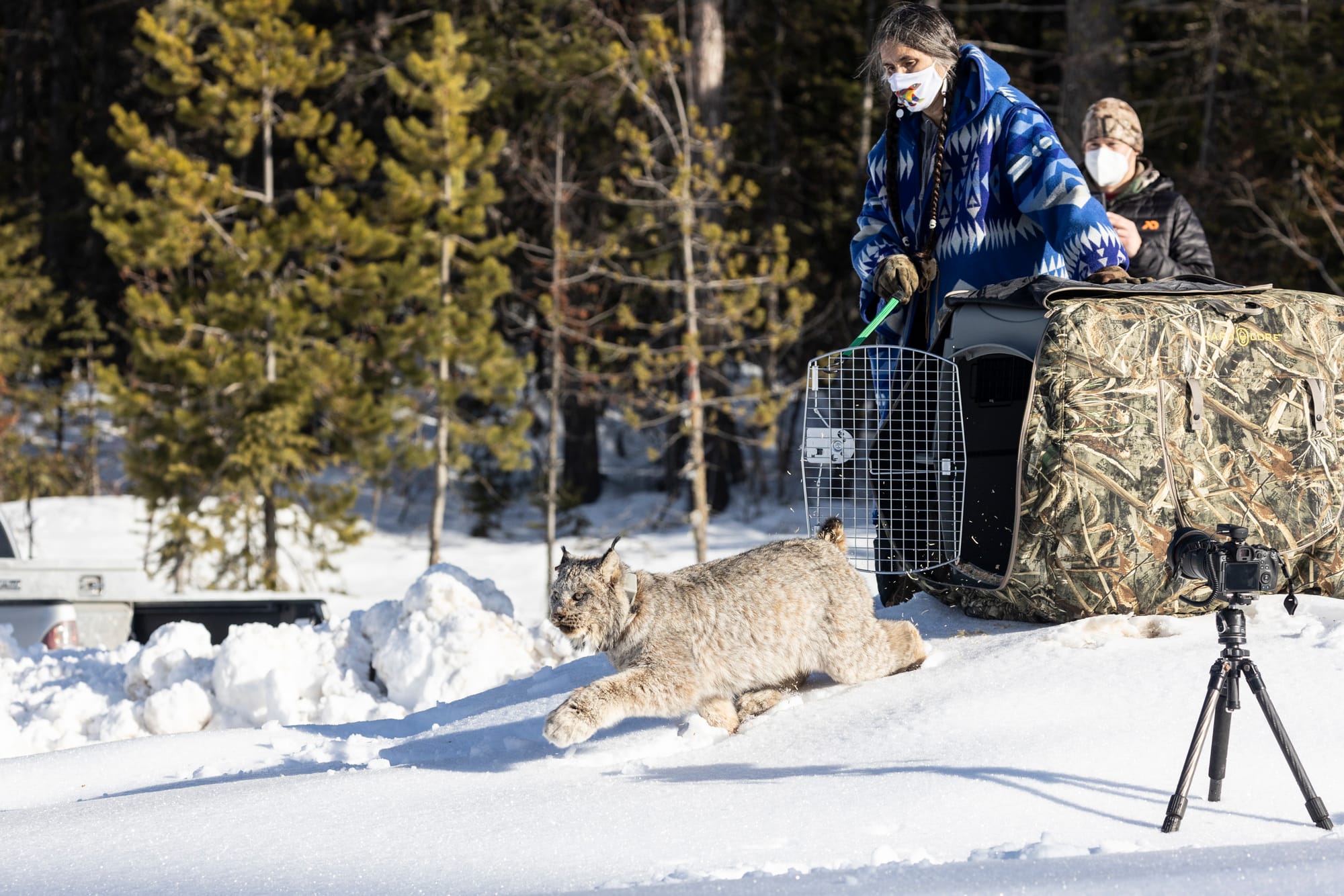17th October 2024
Australia's second-largest state to add new national parks
Queensland has established two new national parks, a new conservation park, and the state’s second special wildlife preserve, in addition to adding 186 km2 to existing national and conservation parks. The move will ensure the conservation of wildlife habitats while providing recreational opportunities for Queenslanders. Queensland Government
A fishing refuge in Mexico helps the ecosystem and community recover
To fight illegal fishing, in 2019 the Celestún fishing community in Yucatan, Mexico, established a 324-km2 Fishing Refuge Zone, the largest in the Gulf of Mexico. The refuge has helped overfished species like the sea cucumber recover and improved women's involvement in an industry traditionally dominated by men. Mongabay
African rhino population showing signs of recovery
While the outlook for the world’s five rhino species remains uncertain, the African rhino population, including both black and white species, increased by 2.4% at the end of 2023 to a total of 23,885. Poaching caused a 1% drop in the black rhino population, but from 2022 through 2023, white rhino numbers increased by 3.7%, to 17,464. IUCN
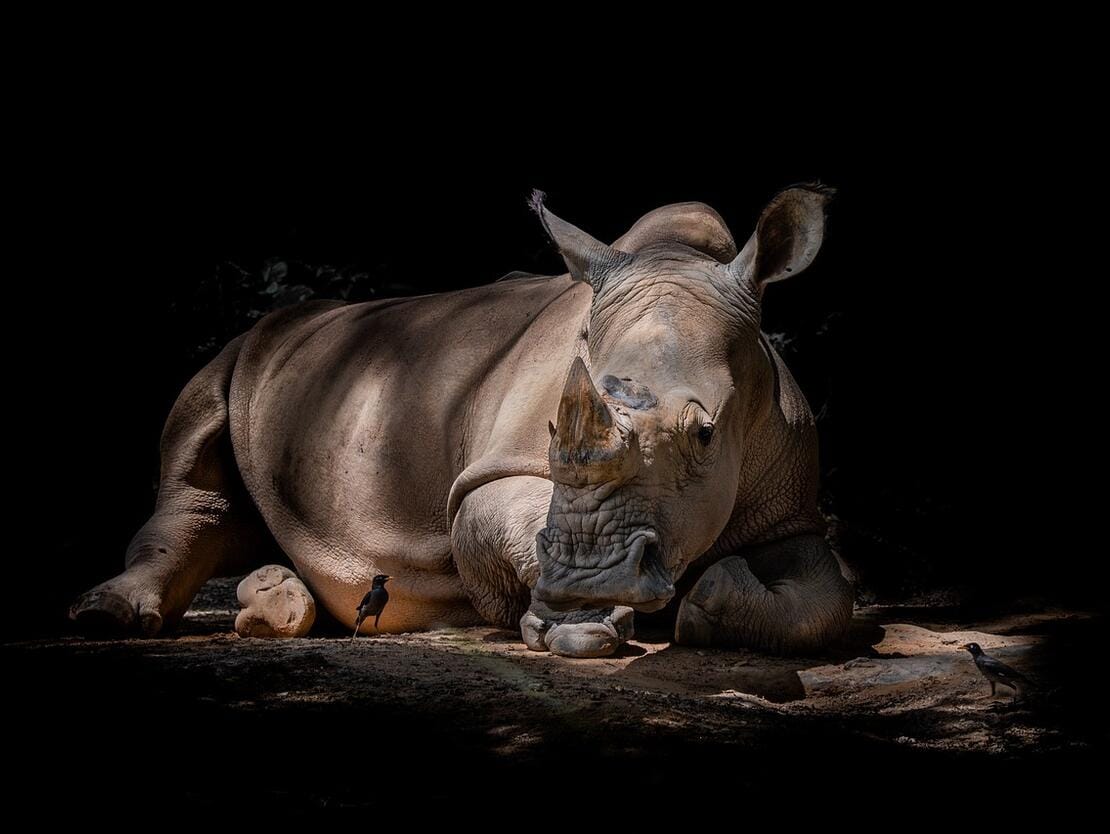
Good news for Florida manatees and California beavers
A proposed update to the manatee’s critical habitat would expand its area to more than 8,000 km2 in Florida and add 315 km2 in Costa Rica, and California has strengthened a Beaver Restoration Program to support beavers and their habitats, which will also help address flooding and drought and prevent wildfires.
Rwanda's capital city rehabilitates wetlands
A wetland rehabilitation project in the city of Kigali will complete the restoration of five wetlands by next September. By enhancing flood resilience, restoring natural ecosystems, and improving water management, the rehabilitated wetlands will benefit over 220,000 citizens. KT Press
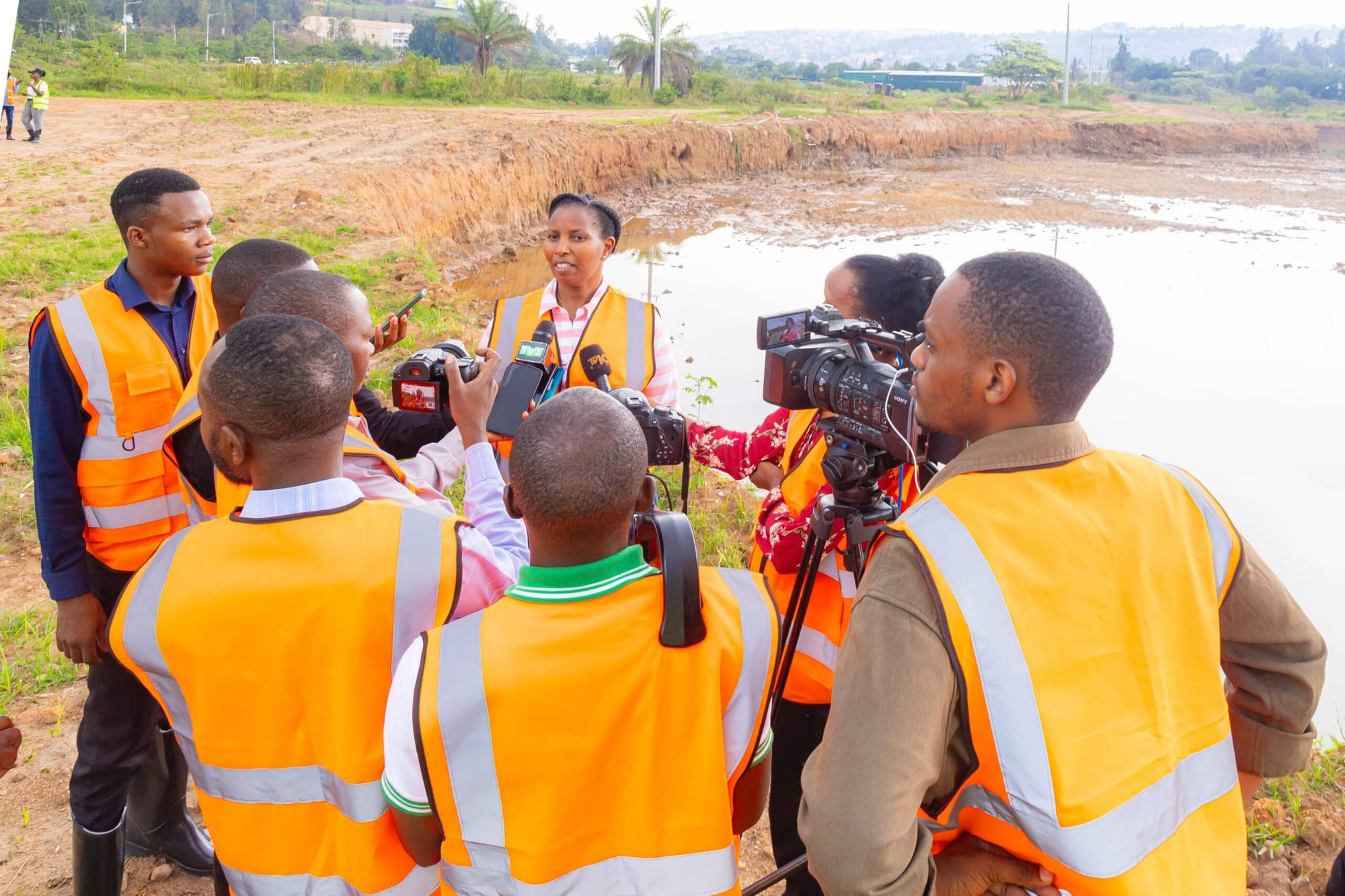
Native bird numbers in Wellington soar
Wellington's community-driven pest-trapping schemes are working. Based on data from counting stations and observations from ornithologists and recreational birders, native bird encounters are up 55% since 2011. The most frequently counted species were the tūī, tauhou, riroriro, and pīwakawaka. RNZ
A nation of beekeepers helps pollinators thrive in Slovenia
With 11,000 beekeepers in a population of two million people, Slovenia has the highest number of beekeepers per capita in Europe. The country banned neonicotinoids in 2011 for their role in bee die-offs, paving the way for an EU-wide ban in 2018. Reasons to be Cheerful
Paris land use changes improve climate resiliency
Since 2004, 44 hectares of car parking in Paris have been converted to make bike lanes and racks, bus lanes, EV spots, wider sidewalks, and outdoor dining spaces, contributing to 90% of trips made via walking, biking, and transit. Another 45 hectares have been planted with 150,000 trees.
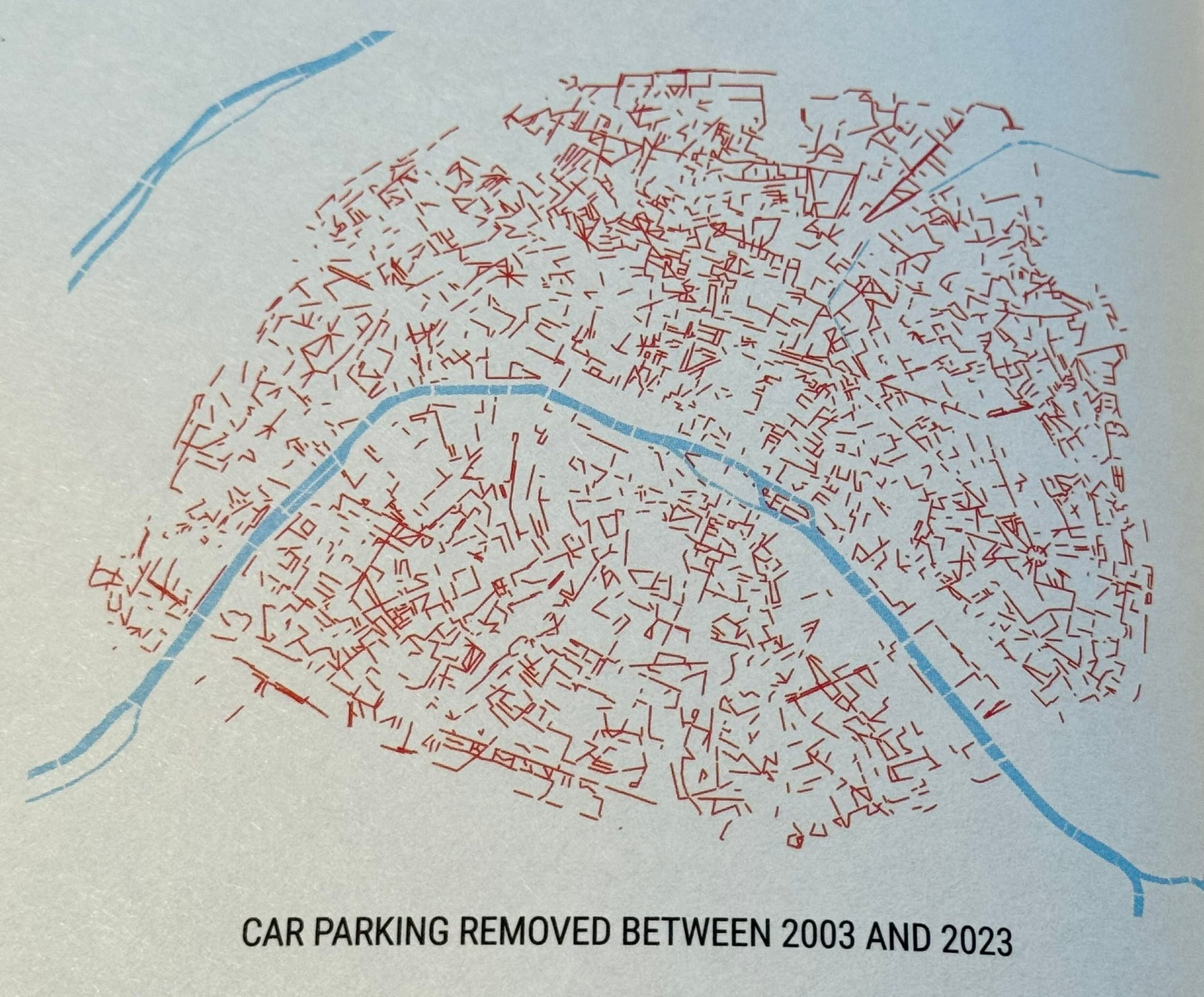
10th October 2024
Australia quadruples the size of marine reserve near Antarctica
The Heard Island and McDonald Islands Marine Reserve, located 1,700 km from Antarctica, is home to penguins, seals, whales, and the country's only two active volcanos. There's still work to do to stop overfishing and bottom trawling—but this expansion does mean 52% of the nation's seas will be protected. Phys.org
How local heroes reforested Rio’s green heart #notjustparis
A restoration programme has made Rio a much more liveable place. The Refloresta Rio project was set up by the city government in 1986. By 2019, it had transformed the city’s landscape, having trained 15,000 local workers who have planted 10 million seedlings across an area ten times the size of New York’s Central Park. Guardian
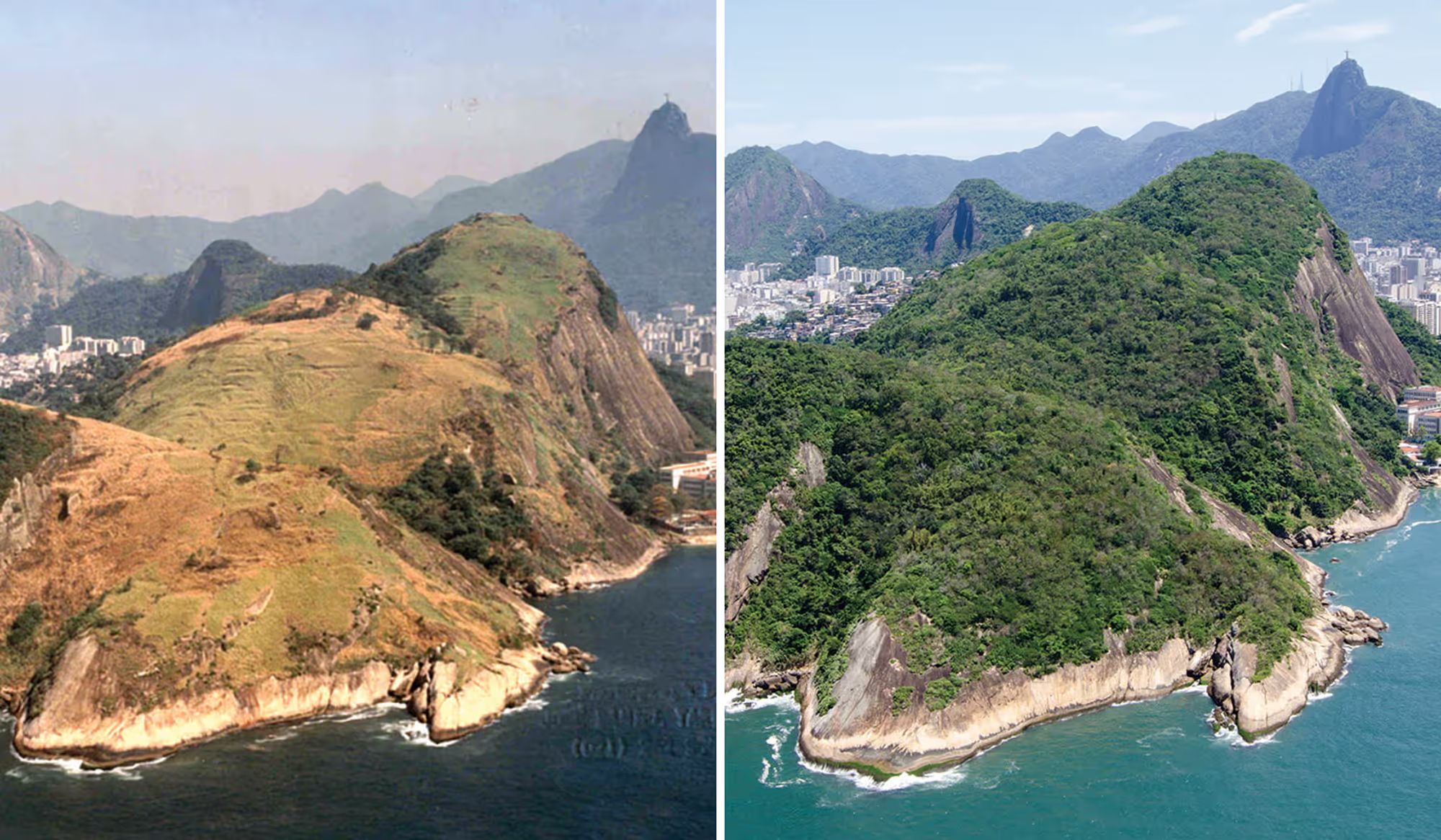
India’s state of Assam creates massive 180-km-long wildlife corridor
Assam has extended Orang National Park’s area to flow into neighbouring protected lands and create an uninterrupted corridor for wildlife. The new corridor will connect Orang to the neighbouring Kazaringa National Park, creating a safe passageway for tigers, elephants, and numerous other species. Guwahati Plus
Credit: @himantabiswa
The Munduruku People of the Amazon win historic victory
The Sawré Muybu territory of the Munduruku People, covering 1781 km2—an area almost the size of 250,000 soccer fields—has been officially signed into decree. While the Brazilian government still needs to mark the territory’s boundaries and start removing illegal occupants, it's a significant victory for Indigenous peoples across Brazil. Greenpeace
The Navajo build thriving farms in parched landscapes
Using traditional rock and stick structures like the ones built by Indigenous peoples to capture water before the arrival of Europeans, Navajo communities in Arizona are defying changing conditions to create productive farms. Scientists confirm that these structures mitigate erosion and increase downstream water availability. Yale Environment 360
Good news for the Atlantic sturgeon, northern bald ibis, and baobabs
In Sweden the Atlantic sturgeon, a long-lost keystone species, is being reintroduced to the Göta River; the northern bald ibis has bounced back in Morocco and is being reintroduced to Europe for the first time since the 1600s; and in southern Africa, the magnificent baobab trees previously thought to be imperilled by climate change look to be thriving.

The EPA to require replacement of all lead pipes within next decade
Forty years after Congress banned new construction from installing lead pipes, water utilities will now be expected to replace lead pipes, a move estimated to benefit around nine million homes. A top priority of the Biden administration, over 367,000 pipes have already been removed nationwide, impacting nearly a million people. WaPo
Wildlife crossings nearly eliminate wildlife-vehicle crashes
Colorado has built more than 40 wildlife underpasses and 3 overpasses, resulting in a 90% reduction in wildlife-involved crashes, and Washington State recorded the 25,716th safe wildlife crossing at the end of 2023 in the Snoqualmie Pass East Project, which includes one bridge and 11 underpasses, with 16 more passes to come.
Seoul's Han River is being restored #notjustparis
Ongoing efforts to restore the Han River ecosystem in South Korea are working. The number of trees along the river now stands at 3.65 million, and the number of species in the area has surged from 1,602 in 2007 to 2,062 in 2022. The project aims to restore nearly 86% of designated areas to their natural state. Korea Times
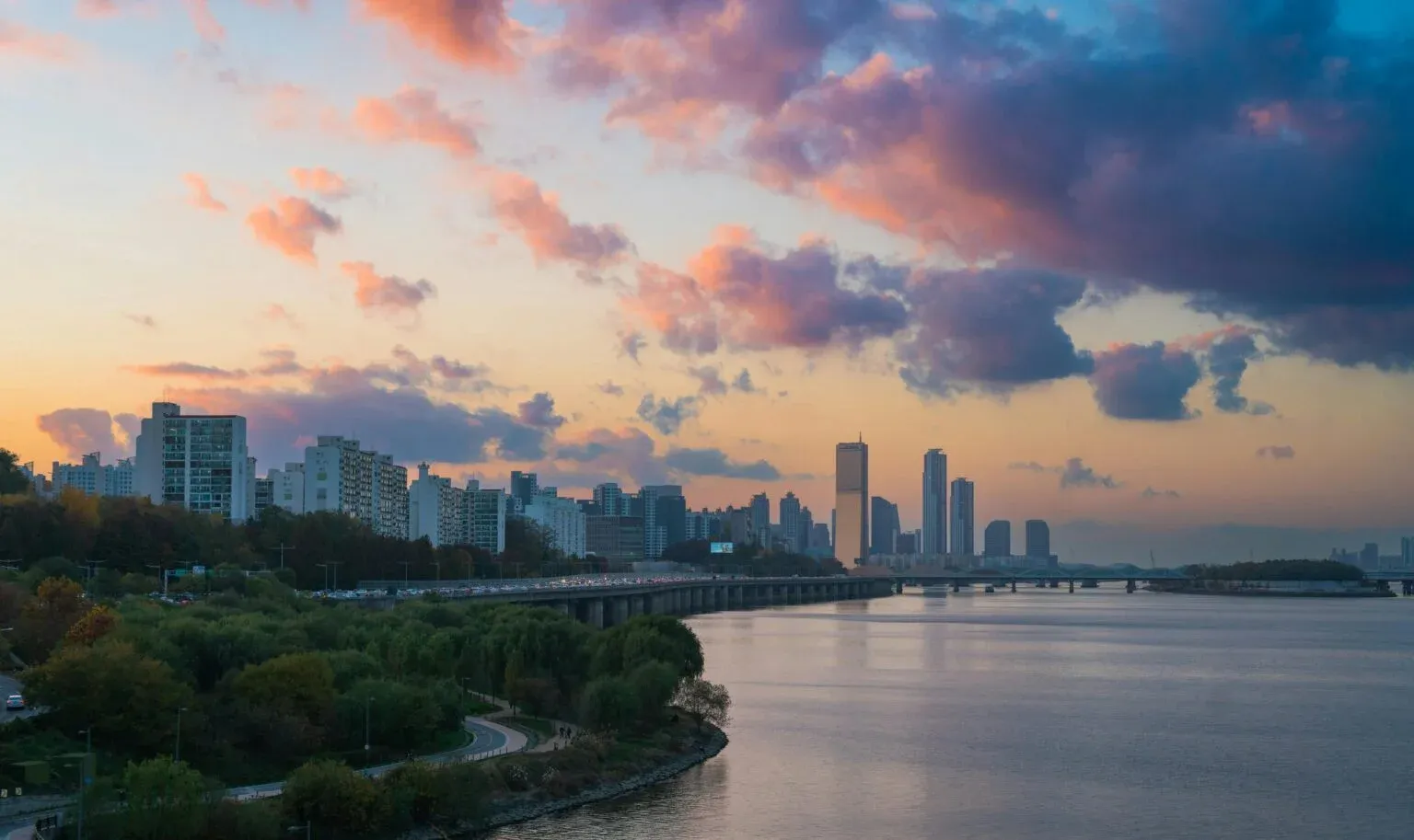
2nd October 2024
California bans all plastic bags at grocery stores
This extends a 2014 ban on thin plastic bags, which still allowed the sale of thicker, 'reusable and recyclable' bags. However, studies found this measure didn’t cut overall plastic use. Climate activists have praised Governor Gavin Newsom for the expanded ban, set to take effect in 2026. The Guardian
Indian rhinos thrive and American manatees get a lifeline
India has announced a remarkable comeback for its one-horned Asian rhino population, which has surged from just 600 in the 1960s to over 4,000 today, following 40 years of conservation efforts. On the other side of the planet, the US government has finally put forward a critical-habitat plan to protect manatees in Florida and Puerto Rico.
More green, less plastic for the United Kingdom
The government introduced a 10-pence plastic bag charge in 2021, up from 5 pence previously. New figures indicate that the total number of single-use plastic bags sold dropped from 1.13 billion in 2018-19 to just 340 million in 2023-24. Meanwhile, more than 1.9 million trees were planted in 2023 in Northern England, with a further 50 million trees to be planted across the region by 2043.
In French Polynesia, researchers are celebrating the birth of Partula snails in the wild, the result of a 40-year effort to save this skittle-sized species from extinction.
How humanity is fighting back against invasive rodents
Island-dwelling species have comprised an estimated 75% of all known recent extinctions of birds, mammals, amphibians, and reptiles; many of these extinctions were caused by the ecological pressures from invasive rats. Global conservationists are now waging a war on them with increasing success. Science
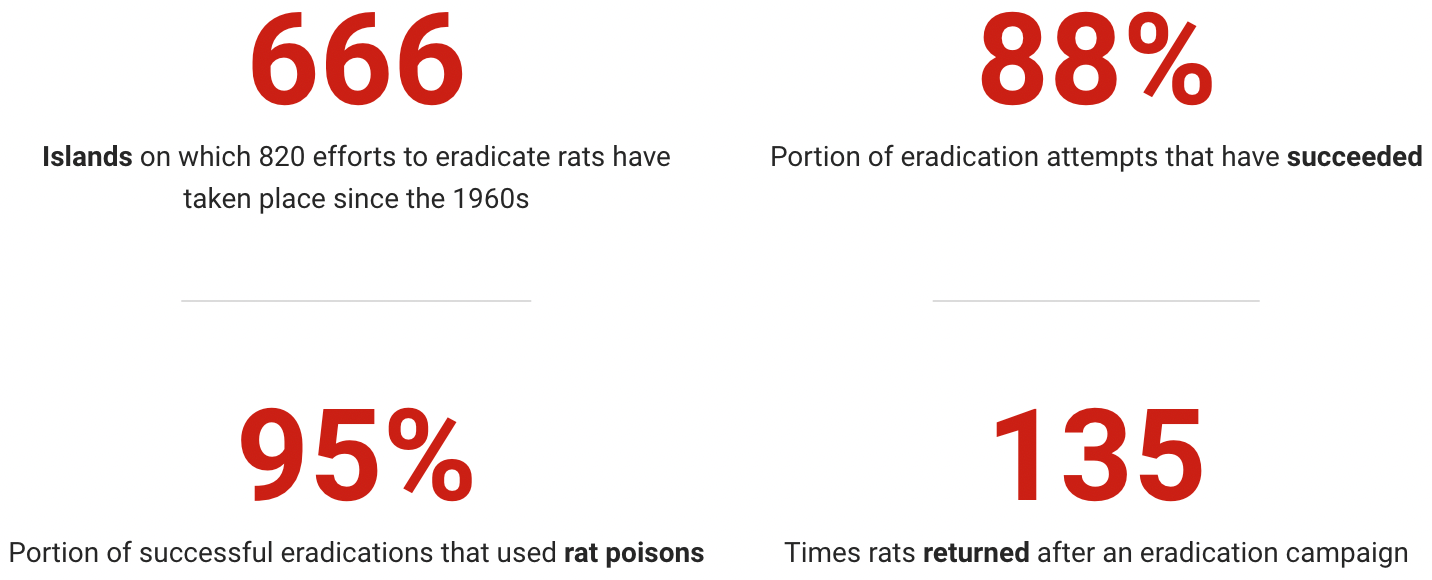
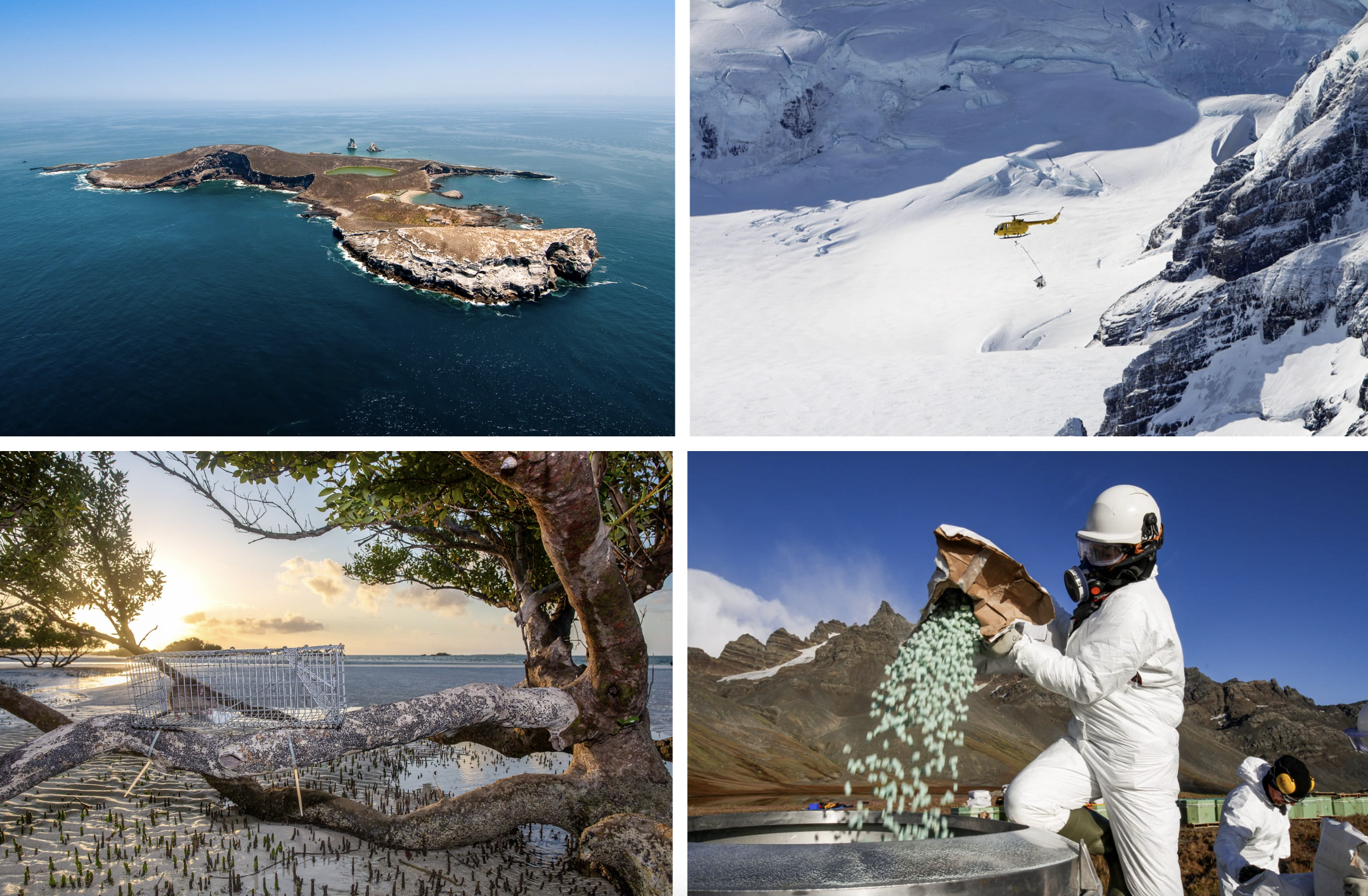
US Forest Service wins the arborist lottery
The Inflation Reduction Act, contains a little known provision of $1.5 billion for the US Forest Service to plant and maintain trees across American cities, principally in underserved areas. This is 40 times bigger than the agency's typical annual urban tree budget. Grist
Time travel in Australia and happy sea turtles in Greece
In New South Wales, Australia, 20 burrowing bettongs and 20 western quolls have been released into Sturt National Park as part of a ten-year project to reintroduce seven locally-extinct mammals to the desert landscape. Meanwhile, on Zakynthos, Greece, a record-high 1,200 sea turtle nests have been recorded on Sekania Beach: 'The message sea turtles are sending is very clear.'

20th September 2024
Huge funding boost for wetland conservation in America
Over $157 million in funding, made available via the North American Wetlands Conservation Act, was approved last week for the conservation and restoration of 91,425 acres of wetlands and associated upland habitats in 17 states for waterfowl, shorebirds, and other birds (including 11 endangered species). FWS
The restoration of the Mar Menor lagoon is working
Spanning 135 km2, Europe’s largest coastal saltwater lagoon has been under pressure from agriculture for decades. The fightback from conservationists has now ramped up—the lagoon recently acquired a 1,500-metre-wide green buffer zone, as well as legal rights, and regulators have begun cracking down on the region’s estimated 12,000 hectares of illegally irrigated land. Geographical
Ashaninka Tribe offers new hope for the Brazilian Amazon
This is a really incredible story. A powerful model of Indigenous conservation in the Amazon is the work by the Ashaninka Tribe, who have protected and restored their territory. They are now looking to expand their model to help 12 Indigenous territories in the western Amazon covering an area of 14,500 km2, about the size of the US state of Delaware. Associated Press
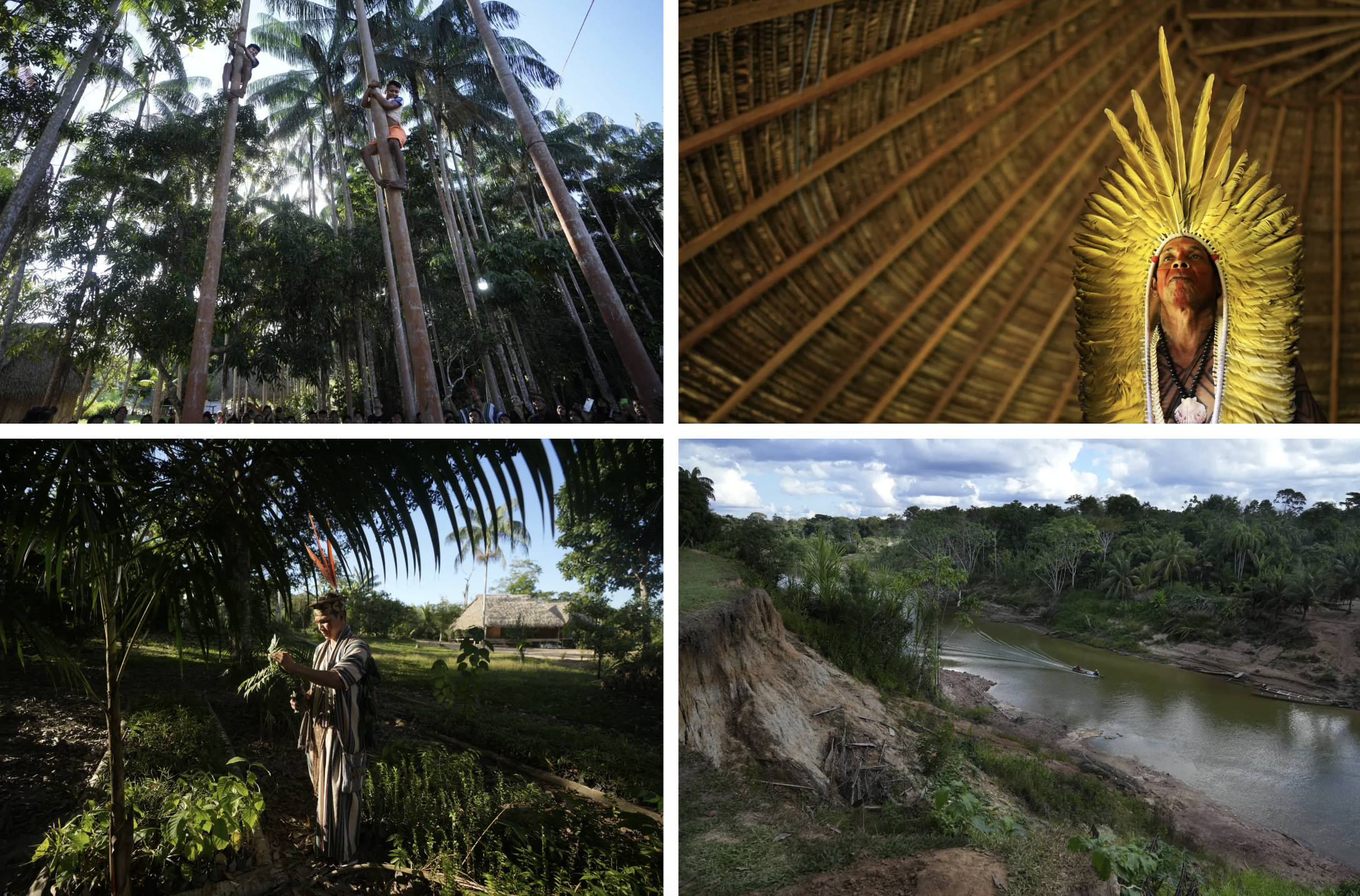
Southern bluefin tuna delisted as a threatened species
The southern bluefin tuna was first listed as threatened under Australia's national environment law in 2010 due to global and recreational fishing driving down population numbers. Effective management over the last decade has resulted in a strong recovery of the population, and last week the species was delisted by Australia's environment ministry. DCCEEW
Two big environmental wins in Ecuador
Los Cedros Protected Forest, a 480-km2 reserve of cloud forest in the Ecuadorian Andes, recently notched a major victory against the oil and gas industry via the rights-of-nature movement. The Ecuadorian government has also initiated the closure of a significant block of oil wells in the Yasuní Biosphere Reserve, after citizens voted to prioritise conservation over oil production last year.
Hope for North America’s most endangered bird
The Florida grasshopper sparrow was near extinction only a few years ago, but conservationists are now celebrating the success of a captive-breeding recovery programme that has doubled the bird’s wild population, from a mere 80 birds five years ago to some 200 today. The next step is getting enough captive-raised birds into the wild to allow the population to become self-sustaining. Inside Climate News
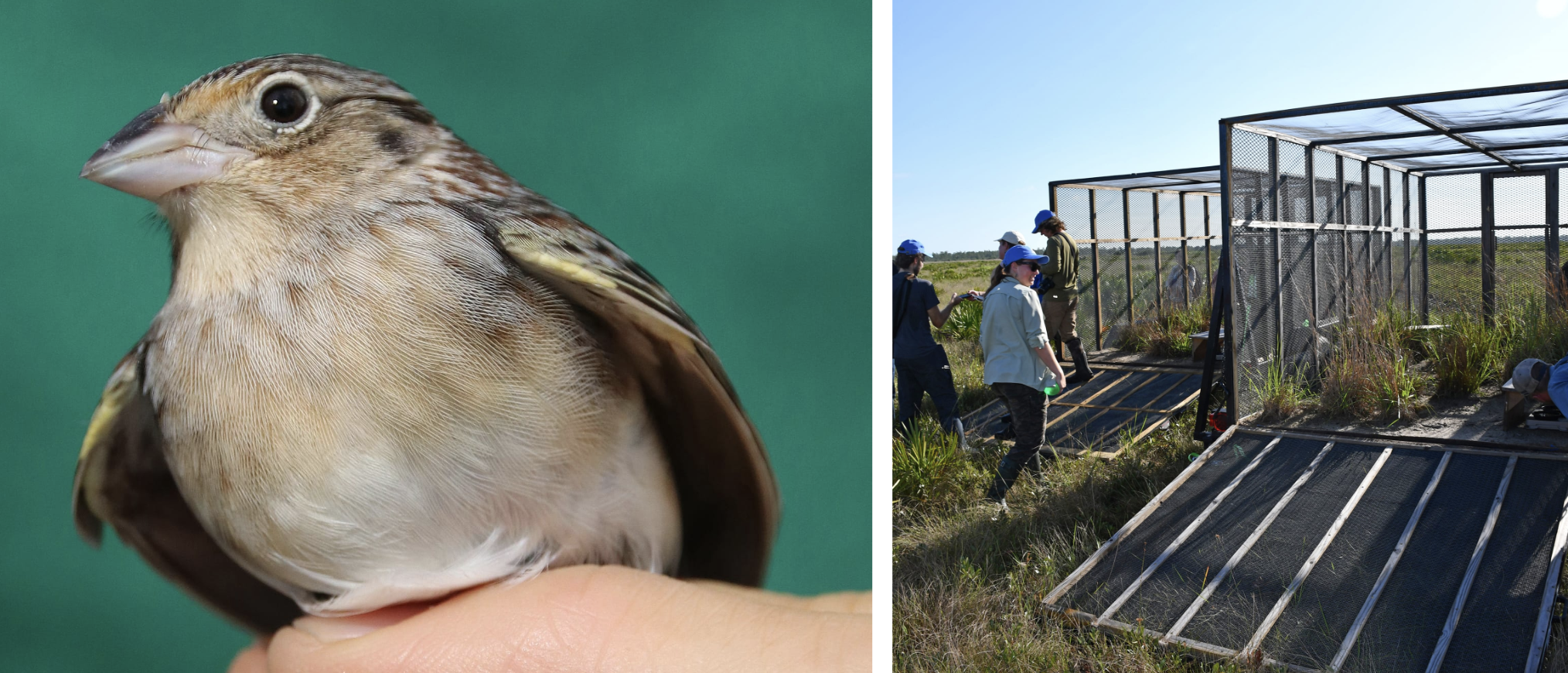
US national forests are being replanted thanks to bipartisan legislation
In 2021, Republican and Democratic lawmakers passed a bill eliminating a 40-year-old cap on spending for the US Forest Service. Known as the REPLANT Act, it's been a smashing success—in 2022 and 2023, they reforested around 1,450 km2, and by the end of 2024, it's estimated that the agency's reforestation backlog of 14,500 km2 will be reduced by 15%. Time
A landmark ruling on Indigenous conservation by the African Union
The continent’s foremost intergovernmental body has ruled, after nine years of deliberation, that the government of the DRC should hand back parts of the giant Kahuzi-Biéga National Park to its ancestral owners, the Batwa people. This is a massive deal—not only for the park itself, but because it sets a legal precedent among all member states of the African Union recognizing Indigenous people's crucial role in safeguarding the environment and biodiversity. Yale360
First Nations begin restoration of oil and gas wells in British Columbia
The traditional homelands of the Saulteau and West Moberly Lake First Nations, about 750 kilometres northeast of Vancouver, are littered with tens of thousands of old, disused oil and gas wells. Now a new project run by First Nations, known as Aski Reclamation and funded by the provincial government, is aiming to reclaim and restore all the orphaned sites by 2030. The Narwhal
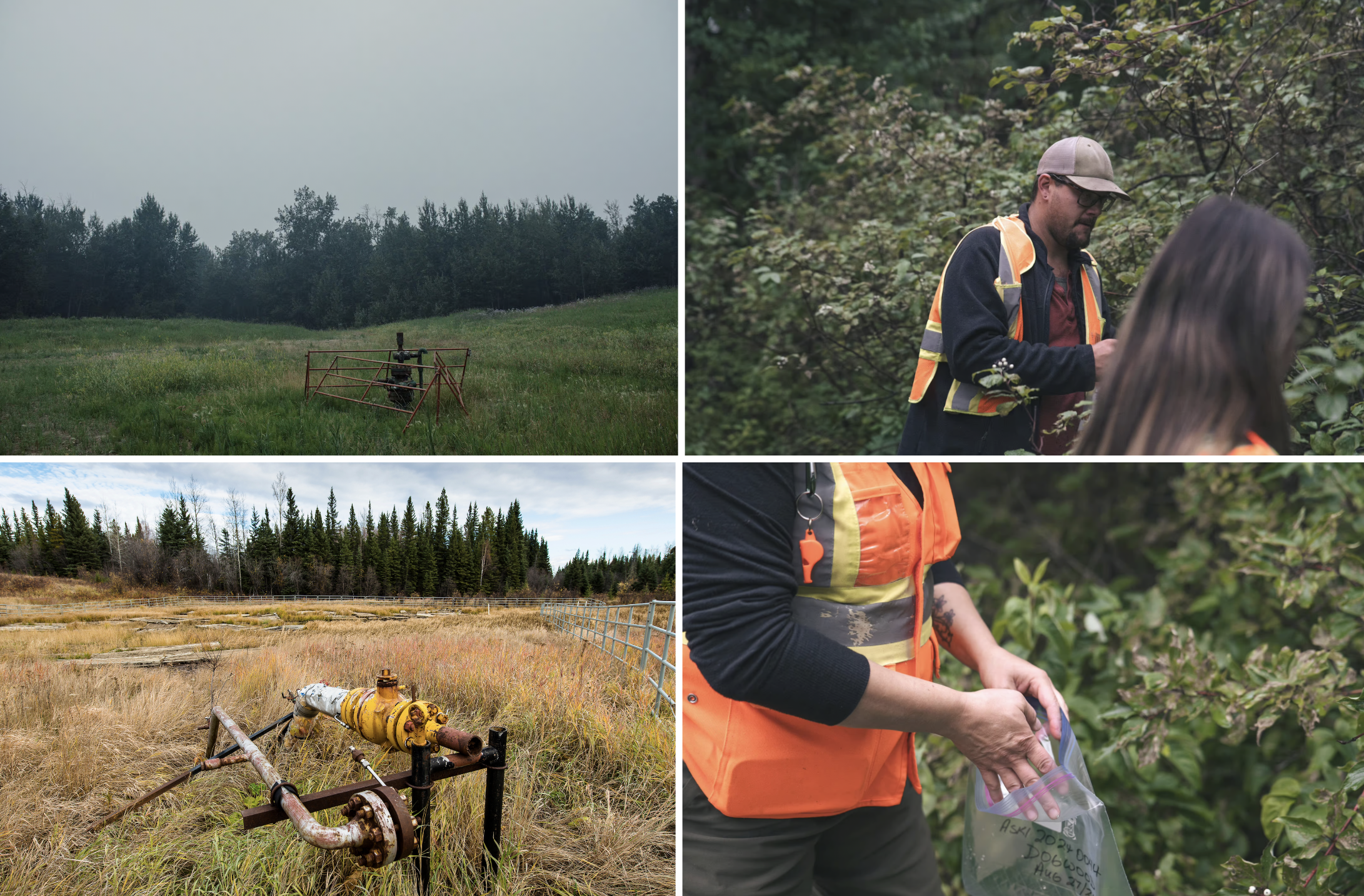
Australia recognises 750 new species
There are already some 150,000 species on the Australian National Species List, the country’s authoritative list of plants, animals, and other organisms. Hundreds more have just been added—including the 248th species of frog, a new orb-weaving spider, and a worm named after David Attenborough. Scientists hope the taxonomic bonanza will aid in conservation efforts. NPR
It’s a little bit like having a library of really valuable books in a house. If you don’t know what books are there, and then maybe there’s a threat to that house — maybe it’s a fire or something — you don’t even know what you’re going to lose. And you’re really in a bad position to conserve those books.
Euan Ritchie, Professor of Wildlife Ecology and Conservation, Deakin University
California passes the Poison-Free Wildlife Act
California's senate has taken a significant step forward in wildlife conservation by passing groundbreaking legislation that imposes stricter controls on the use and sale of harmful rat poisons, which have long posed a grave risk to owls, foxes, pumas, and many other species of wildlife. The new regulations will prevent the poisoning of thousands of animals each year. World Animal News
Illegal gold miners nearly cleared from Amazon Yanomami reservation🧨 They have dynamited 42 clandestine airstrips, set fire to 18 aircraft, seized 92,000 liters of diesel, sunk 45 dredging barges, destroyed 700 pumps, and dismantled 90 Starlink dishes.

More music for those who will listen
- How community members turned a vacant, trash-filled lot into a thriving wetland and birding hotspot in New Orleans.
- The Linnunsuo Wetland in Finland was a brown and barren 'moonscape' 13 years ago. Today, it's a biodiverse haven thanks to the efforts of local fishers.
- The Mekong Earth Regeneration Fund is providing $200 million for regenerative agriculture and sustainable forestry in the lower Mekong region of Southeast Asia.
- Two good bird stories. The Cornish chough just had its best breeding season yet, and some welcome news for sage grouse in southeastern Idaho.
- Did you know that around 80% of aluminium produced in the United States comes from recycled aluminium products?
- In Bhutan, local communities are using ecotourism as a way to revive their economies and help protect the surrounding environment.
- Blackbuck and sambar deer—two native species of antelope in India—are breeding again after reintroduction to national reserves.
- The water vole, one of the cutest animals you'll ever see, is making a comeback in the UK, with recent releases in Northamptonshire and sightings in York.
- In South Carolina, 10,000 acres have been acquired to protect critical plant and animal habitats.
- California set up a competition for ships to go slowly off the coast in order to protect whales, and it's working better than they ever expected.
12th September 2024
Peru grants a record number of Indigenous land titles
Between June 2023 and May 2024, 37 land titles were secured in the Peruvian Amazon in record time, thanks to an innovative, low-cost, high-impact method for expediting the process. Land titles are proven to be the most effective way to protect Indigenous peoples’ land from deforestation, with titled land experiencing a 66% decrease in deforestation. Mongabay
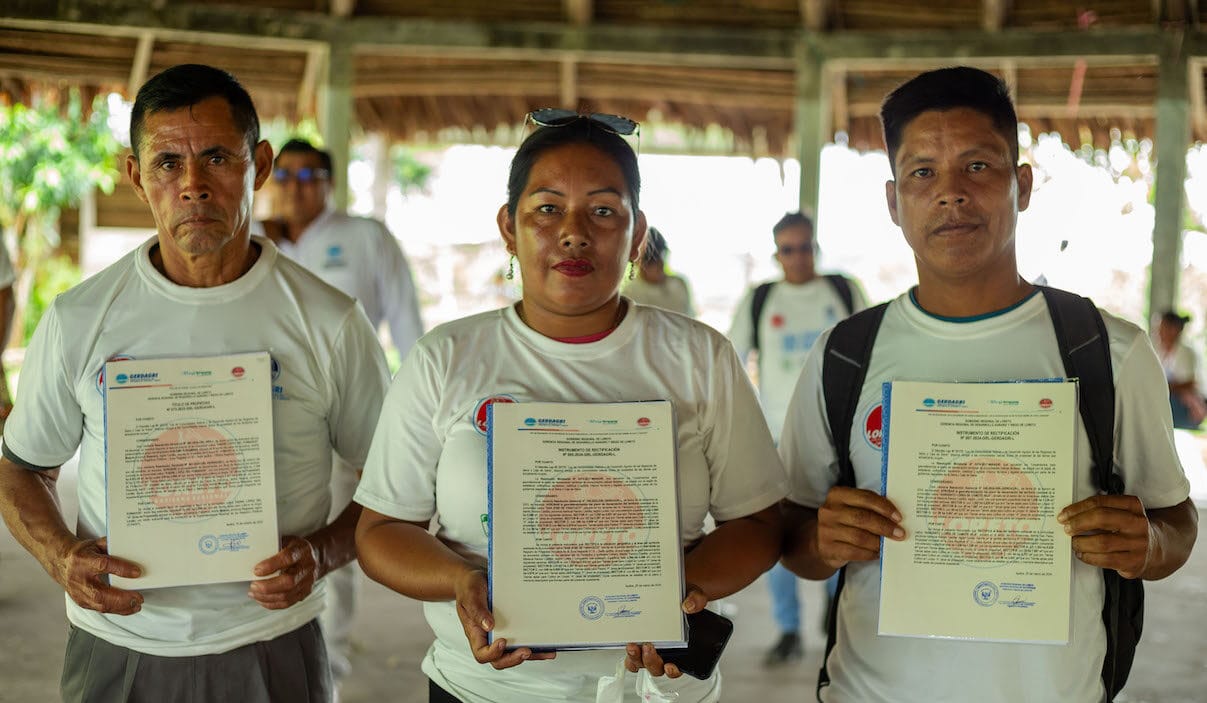
Good news for threatened species in Australia
The populations of more than a third of the 101 threatened species in New South Wales are heading in the right direction. The number of endangered yellow-footed rock wallabies doubled to 144 between 2020 and 2022, and several locally-extinct species reintroduced into parks also increased, including three types of bilby, two types of bettong, bandicoots, and numbats. The West
China’s national park system is helping protect key species
Since 2012, the country’s national park system has helped boost the populations of several flagship species: the population of Tibetan antelope has risen to over 70,000, snow leopard populations have returned to over 1,200, the population of Hainan gibbons has increased from under 10 to 42, and 70% of wild giant panda habitats across the country are now protected. China Daily
A startup is cleaning up Guatemala’s longest river
The Motagua River is one of the most polluted rivers in Central America, pouring 18 million kilograms of rubbish into the ocean each year. In 2023, US-based startup 4ocean installed a floating fence-like barrier to catch debris before it enters the bay. Since then, the boom has saved 45,000 kilograms of debris from reaching the ocean, with plans to capture a lot more. CNN
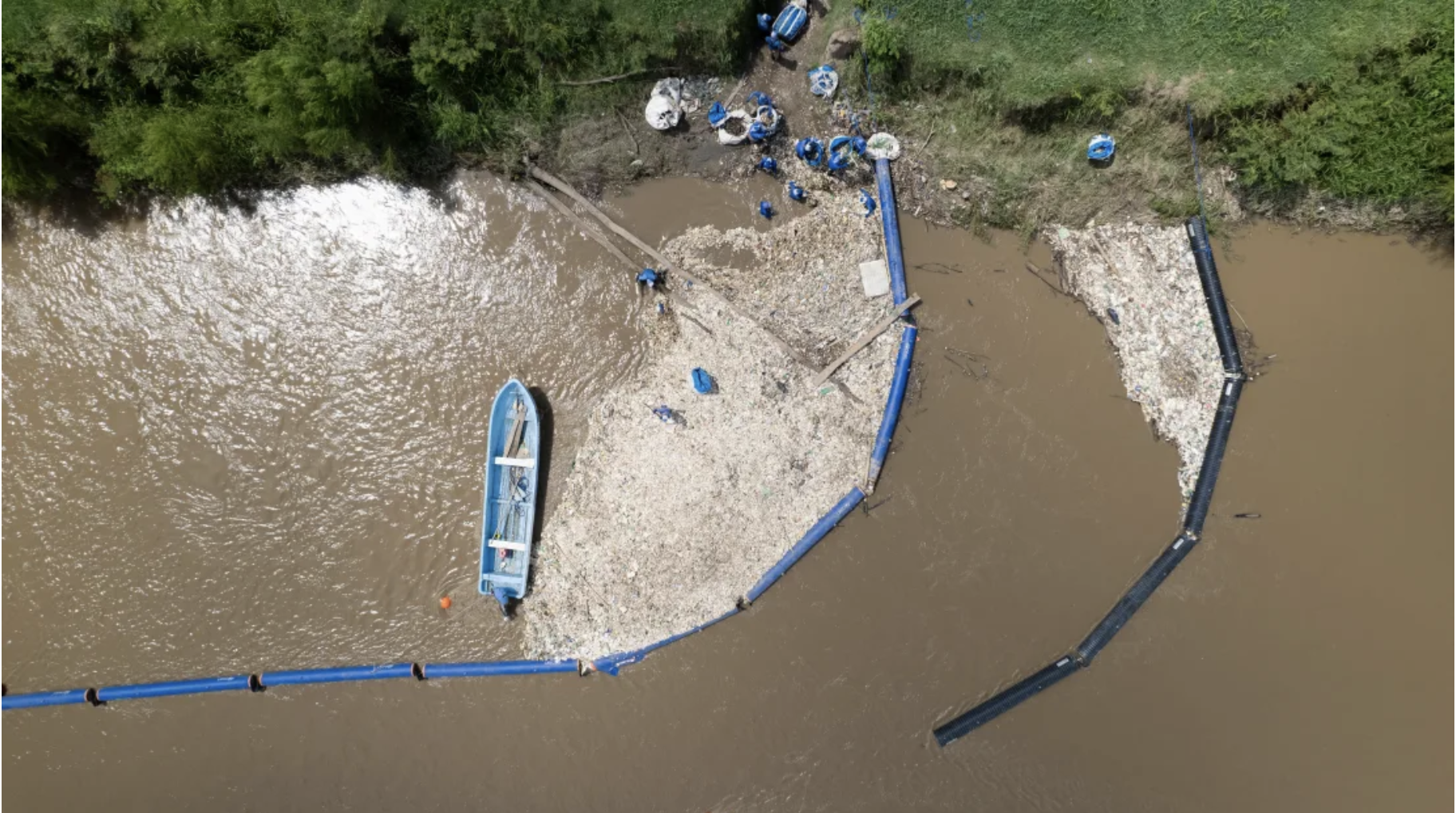
An interactive atlas for animal migration
Scientists have unveiled the Atlas of Ungulate Migration to track the long-distance travels of hoofed mammals, like red deer in the central Alps, saiga antelope in Kazakhstan, and takin in China. The interactive atlas collects data on 20 species from a dozen countries, and researchers hope the resource will help governments, businesses, and wildlife groups when considering development projects. CMS
The Chumash Marine Sanctuary clears a final hurdle
The first Tribally-nominated national marine sanctuary in the history of the United States—and the first new sanctuary in California in over 25 years—is on track for finalization later this year. The 11,766-km2 sanctuary will protect many at-risk species, such as snowy plovers, southern sea otters, leatherback sea turtles, and blue whales. Chumash Heritage
My father, the late Chief Fred Collins, began the journey to protect these sacred waters many years ago and we have been so proud to continue his work. I am delighted to celebrate his vision, today’s success, and the future of our People who will always be connected to past, present, and future by this special stretch of coastline and the true magic its waters hold.
Violet Sage Walker, Chairwoman, Northern Chumash Tribal Council
Landmark nature law in Islamabad
The Islamabad Nature Conservation and Wildlife Management Act 2024 is a significant victory for the region’s biodiversity, supporting the long-term conservation of Margallah Hills National Park thanks to a provision for internal revenue generation. The new law also introduces fines and penalties to enforce the protection of the environment. The News
Brazilian city grants legal rights to waves
The city of Linhares has granted legal rights to the waves at the mouth of the Dolce River, marking the first time a part of the ocean has been given personhood. In 2015, the collapse of a tailings dam sent billions of gallons of sludge into the river, weakening the waves until a flood in 2022 cleared out the buildup. Hakai Magazine
Nigeria takes action to protect its elephants
The country has launched its first-ever National Elephant Action Plan to reverse the decline of its current population, which is estimated to be 300-400 elephants. The 10-year plan includes the protection of habitats and wildlife corridors, law enforcement to curb poaching, and enhancement of community-shared economic benefits generated by tourism. EPI
More music for those who will listen
- The Ocean Cleanup says they can clean up the Great Pacific Garbage Patch in ten years, for the price of around 100 F-16 fighter jets.
- A village in Scotland saved the Abriachan Forest from development. 'It’s taken 25 years, but it’s a long game we’re playing. You have to be patient.'
- Meanwhile, rewilding efforts in the Scottish Highlands have led to black grouse numbers reaching their highest level in 17 years.
- A judge in Brazil has ordered slaughterhouses to pay for Amazon reforestation—the first of dozens of lawsuits seeking reparations for environmental damages.
- Gray wolves are making a historic comeback in California after being on the verge of extinction.
- A nonprofit in Borneo is getting illegal loggers to hand in their chainsaws in return for financial support to set up sustainable livelihoods.
- Autonomous and solar-powered robot boats are cleaning up Asia’s waterways, collecting 200 kilograms of garbage per hour.
- The largest wetland restoration in the history of Yosemite National Park is underway.
- A victory for the Balkan Rivers campaign, with a decision to halt construction of a hydro power plant on the Una river.
- Scientists are bringing the Santa Cruz River back from the brink—by adding sewage water!
- How 'good fire' is helping wildlife in Nebraska, especially cranes.
- Improvements in water quality in Guanabara Bay in Rio de Janeiro are resulting in healthier sea turtles.
- In recent years, water buffalo have earned a reputation as ‘living tractors’, thanks to their crucial role in bringing nature back to wastelands.
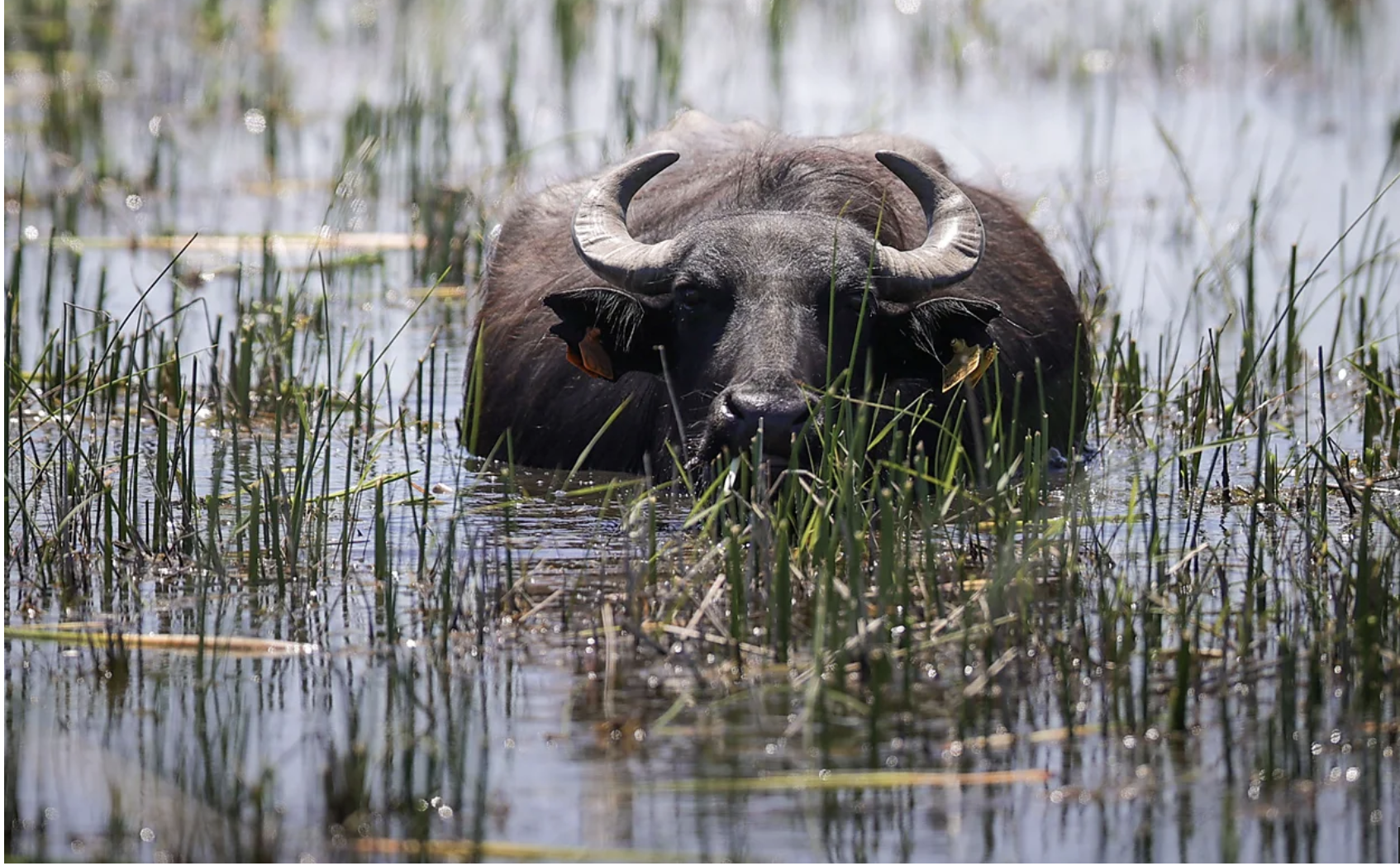
4th September 2024
The largest dam removal in history is complete
The best thing that happened in the world last week: after years of negotiating—and decades of activism—the Klamath River is free of four huge dams, reopening more than 644 kilometres of free-flowing water. It’s a landmark moment for the Shasta Indian Nation, who are restoring 2,800 acres of their ancestral land that is above ground for the first time in a century. BBC + LA Times 🗄️
The biggest thing for me, the significance of the dam removal project, is just hope — understanding that change can be made.
Brook M. Thompson, Yurok Tribe member
90 seconds of video that will make your week, we promise.
28 million acres of public land in Alaska are now protected
The historic protections—which will safeguard critical habitat for caribou, moose, bears, and all five species of Pacific salmon—are a major victory for local Tribes and businesses. The decision retains the protections that were in place for decades until the Trump Administration proposed changes to public land orders to open the area for mining and oil and gas drilling. NRDC
Farmers across North America are reviving ‘Prairie Potholes’
Prairie Potholes are wetlands that serve as natural sponges to hold excess water. Over the past century, the push for greater productivity led farmers to drain half of these wetlands across the Prairie Pothole Region, which spans 770,000 km2 of North America. Now they are being revived due to their rich soils and mineral deposits, benefitting both agriculture yields and wildlife. Reasons to be Cheerful
Landmark victory for environmental democracy in Colombia
The Constitutional Court has unanimously supported the Escazú Agreement, which ensures people have access to environmental information, participation, and justice in environmental matters. It marks a significant step towards protecting the rights and work of environmental defenders in 'the most dangerous place in the world for environmental advocacy.' CIEL
Community engagement drives forest protection in Malawi
In the Zomba Forest Reserve, a community that once destroyed the forest for charcoal has become its custodian. In the late 1990s, a project dubbed Zomba TREEZ taught them how to plant fruit trees and native trees, fight fires, and remove invasive species—and pay for each tree that survived. Now, the community-led side of the reserve is flourishing, while the state-protected section is struggling to curb deforestation. Mongabay
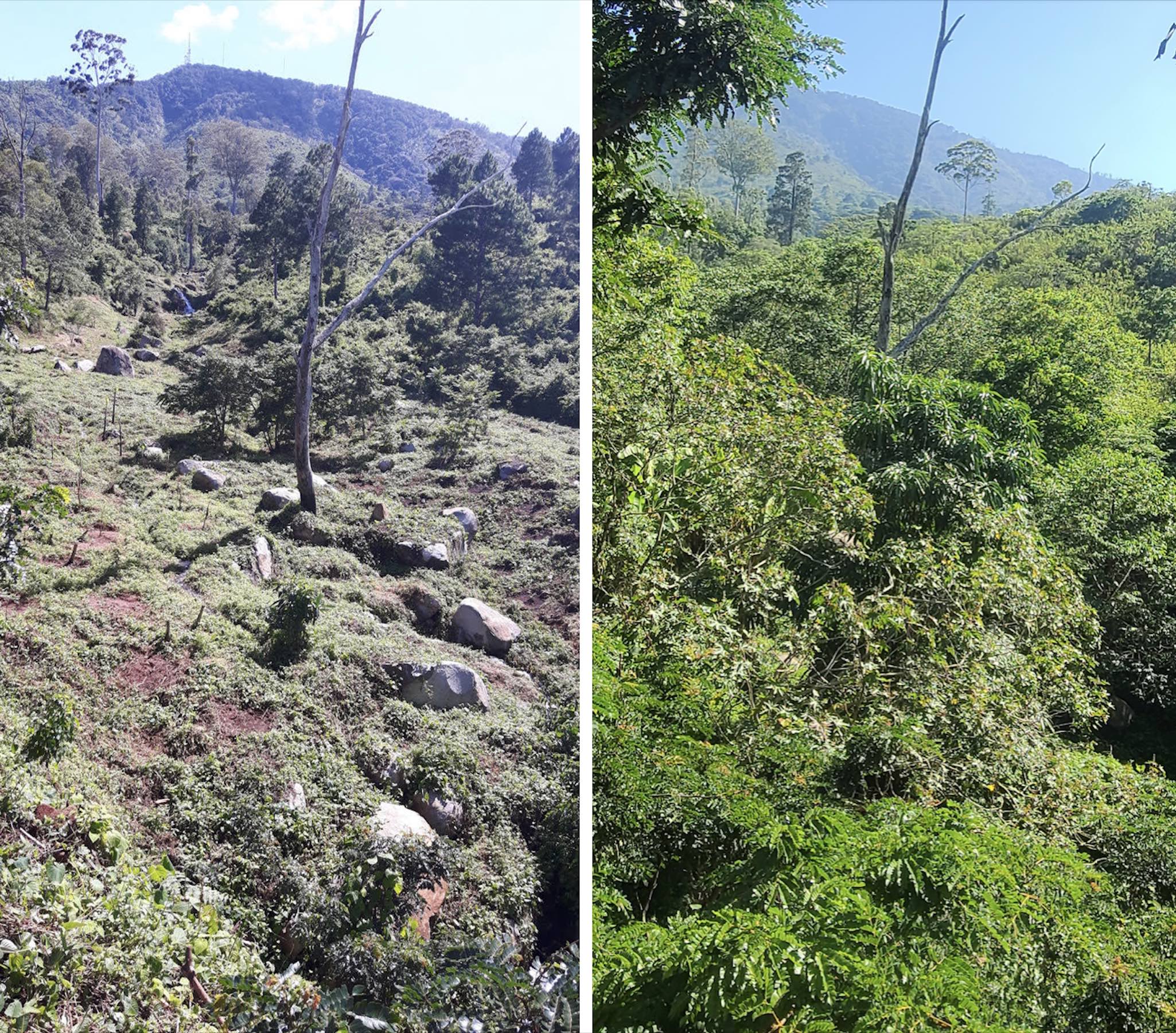
Nearly 25% of European landscape could be rewilded
According to a new study, 117 million hectares across Europe is primed with rewilding opportunities. The researchers focused on areas that covered over 10,000 hectares, had little human disturbance, and were home to vital species. Of the rewilding opportunities, 70% are in colder climates, specifically Northern Europe and several highland regions in the Iberian Peninsula. Phys.org
Record number of breeding puffins in the Gulf of Maine
Seal Island has set a record for breeding puffins, with 672 active puffin burrows counted, about 100 more than the last census five years ago. Measures to restore the island’s populations started in 1992, after a century’s absence due to hunting in the late 1800s. Razorbills, a larger cousin of the puffin, are also doing well, with 101 active burrows recorded. Portland Press Herald
Shipping company changes course to protect whales
A Greek-owned shipping company with 13 tankers will redirect its ships to help protect the sperm whale population in the Eastern Mediterranean. There are fewer that 200 whales in this subpopulation, and they live predominantly in the Hellenic Trench. Half of the cases of stranded whales in the area can be attributed directly to collisions with large ships. IFAW
Debt-for-Nature Swaps inspiring a range of social investment
Since kicking off in the 1980s, there have been 145 debt-for-nature swaps worldwide, making them 'a very tangible strategy that is starting to be proven.' The financial tool enables countries to make climate-adaptation plans that preserve both nature and livelihoods, and the spectrum is broadening, with potential debt-for-health and debt-for-food sovereignty swaps. Carbon Brief
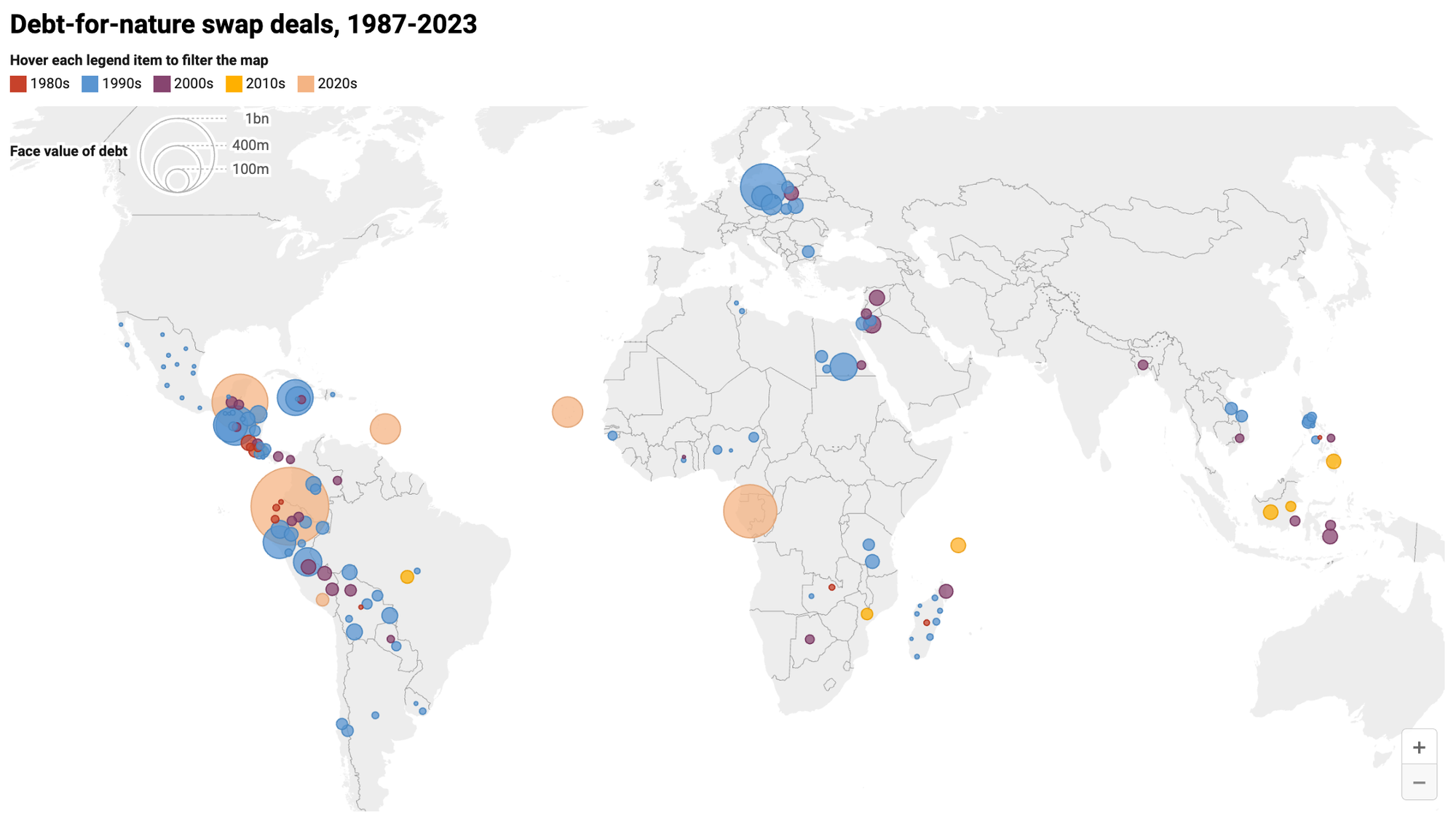
More music for those who will listen
- 400 hectares of critical koala habitat will be restored across Queensland, Australia, to kick off a $4.48-million project over the next five years.
- Also in Queensland, 54,000 hectares of state forest will become the Greater Glider Forest Park to protect the endangered species.
- In Western Australia, the creation of the 200,000-hectare Purungunya Conservation Park is the first new conservation estate in the Pilbara for over a decade.
- After more than five decades of recovery efforts, the Apache trout is being removed from the US Endangered Species list.
- The profits from the UK’s largest community-owned windfarm will fund the planting of a million native trees in the Hebrides.
- In China, a 'development belt' around Wuyishan National Park is helping nature and local communities flourish.
- The sticky catchfly, one of Scotland’s rarest plants, has more than tripled in population following restoration work, with around 10,000 flowering stems counted.
- A $35m debt-for-nature deal will protect Indonesia’s coral reefs in the Banda Seascape, the Bird’s Head Seascape, and in Lesser Sunda.
- Over the last five years, the Orkney Native Wildlife Project has removed more than 6,000 non-native stoats from the archipelago, boosting wild bird populations.
- A project in the Niger Delta will plant five million mangroves to improve biodiversity and local livelihoods.
- Work is underway to give Utah’s Jordan River a boost.
- Dam removal on the Puyallup River will allow free-flowing water for the first time in more than 100 years, protecting Chinook salmon, steelhead, and bull trout.
- 'Beaver bombing' is on the rise in the UK after rogue conservationists have decided to take matters into their own hands.
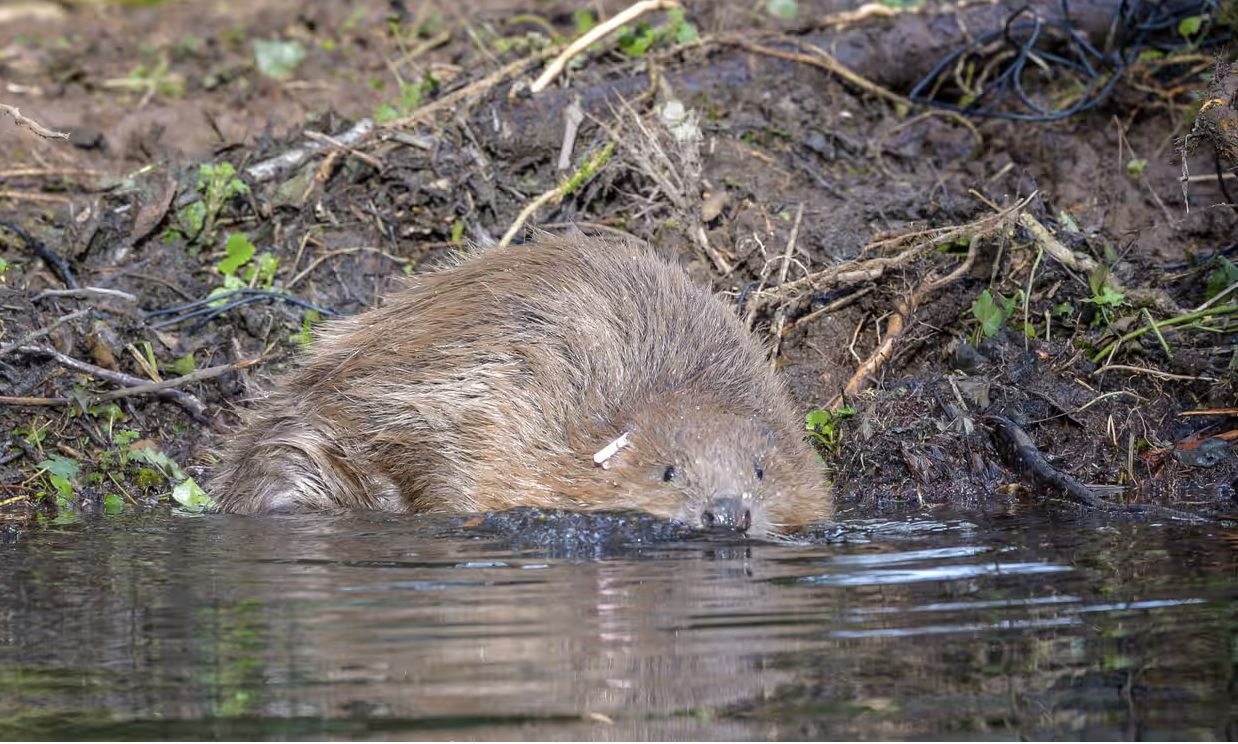
29th August 2024
A $100 million gift for national parks in America
The US National Park Service will receive the largest grant in its history, allowing it to protect fragile ecosystems across more than 400 national park sites. The funding will support a range of priority initiatives, including restoring coral reefs at Biscayne National Park in Florida and recovering trout species in western national parks. AP
Senegal park removed from List of World Heritage in Danger
Over the past seven years, Niokolo-Koba National Park has made an incredible turnaround thanks to an ambitious action plan to combat wildlife depletion, poaching, and mining on site. The park’s gallery forests and savannahs are home to a wealth of wildlife, such as giant elands, lions, and large populations of elephants, birds, reptiles, and amphibians. UNESCO
Did we actually manage to save the whales?
After 80 years of managing global whale populations, the International Whaling Commission may have put itself out of a job. Thanks to its groundbreaking agreement for a moratorium on commercial whaling in 1985, the populations of many whale species are rebounding. 'By exiting with dignity, the IWC would set a powerful example for the international environmental community.' Nature
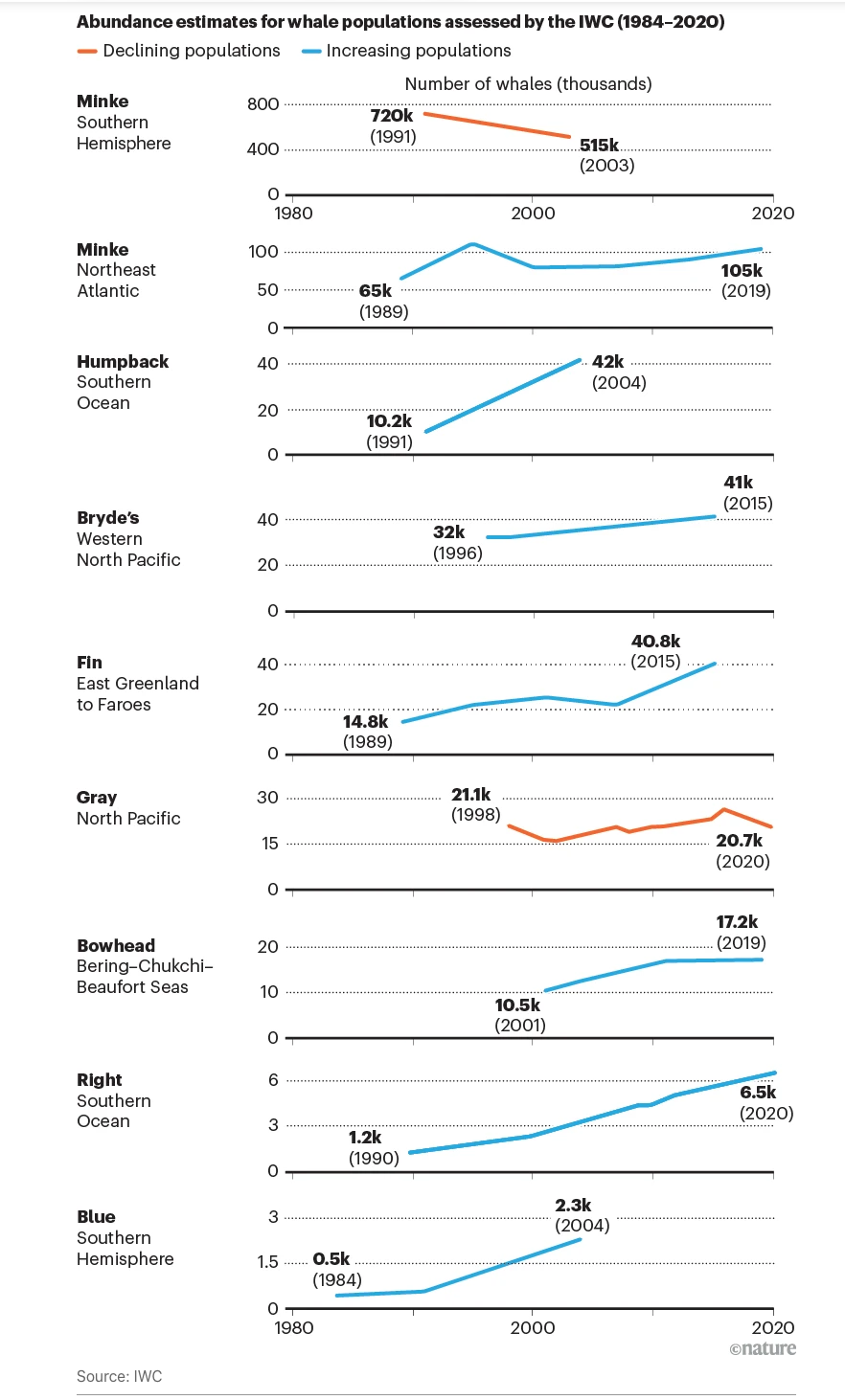
A land management scheme is helping wildlife in the UK
Since it was introduced in 2021, Britain's environmental land management scheme has paid farmers for planting hedges, sowing wildflowers, and leaving corners of their land wild for nature. And it’s worked! The populations of wildlife like butterflies, bees, and bats have increased, and an average of 25% more breeding birds have been found in areas utilising the scheme. The Guardian
New Indigenous reserve in the Peruvian Amazon
After a two-decade campaign, the Sierra del Divisor Occidental Indigenous Reserve will protect 515,114 hectares of forest and several isolated Indigenous communities that live within the reserve. It’s a welcome victory 'not only for the Indigenous people who call it home, but also for those who defend human rights and the environment in Peru.' Mongabay
Berlin is becoming a sponge city
To combat rising temperatures and drought, the city is adopting measures to absorb rainwater—like a sponge—and then release it when water is needed. Nine underground overflow basins have been completed, with one still in the making. At 30 m deep, the basin will hold nearly 17,000 m3 of rainwater, the equivalent of almost seven Olympic-size swimming pools. Deutsche Welle
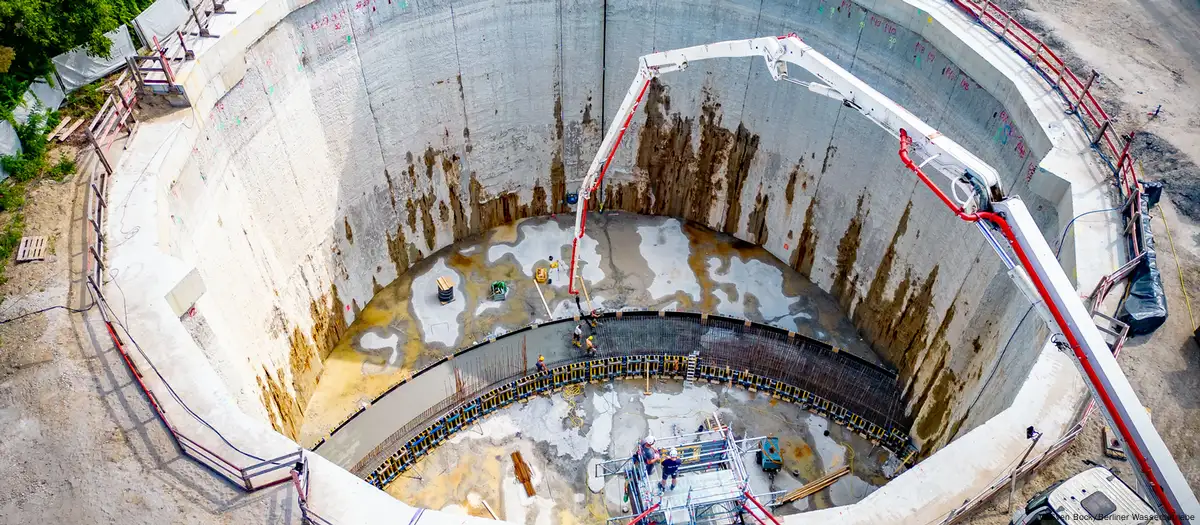
Eight island-ocean ecosystems confirmed for rewilding initiative
The Island-Ocean Connection Challenge is almost halfway to reaching its goal to begin the holistic restoration of 40 island-ocean ecosystems by 2030. They have just confirmed eight new islands across the Dominican Republic, Republic of the Marshall Islands, Ireland, France, and the US Virgin Islands, bringing the total to 17 confirmed projects. Sea Shepherd
These new projects represent a significant step forward in our efforts to restore and rewild island-ocean ecosystems across the globe.
Dr. Wes Sechrest, CEO of Re:wild.
New scheme to make Dutch livestock farming more sustainable
The EU commission has approved a €700 million scheme to promote more sustainable and environmentally friendly production in the livestock sector. Farmers with small- and medium-sized livestock operations who voluntarily close farming sites will be compensated for costs directly linked to the closures. The scheme applies to priority areas, including peatlands, sandy soils, and stream valleys. EU Reporter
A film about Indigenous fire practices: Burnt Country
This short film was the second-place winner of the 2024 Yale Environment 360 Film Contest, and it’s well worth 20 minutes of your time. It focuses on Tasmania’s Melukerdee people, who have long used low-temperature fires to protect the land. 'One of the cultures that humanity needs to learn from in the coming years if we’re actually going to stabilise this planet.'
More music for those who will listen
Rangers in the Democratic Republic of the Congo are transforming the ‘triangle of death’ into a thriving wildlife reserve.
An ambitious restoration project in Cornwall will protect marine habitats in St Austell Bay, including maerl beds that have existed for more than 4,000 years.
A tree-planting project in China has afforested more than 26,000 hectares of Shigar Mountain, with an additional 133,000 hectares planned over the next six years.
Dam removal is restoring Michigan rivers.
Native forests are making a comeback on Huapi Island in Chile, thanks to the restoration efforts of its Indigenous community.
Water temple priests in Bali are using 'ritual technology' to create sustainable rice production.
The Willamette Valley Conservation Area in Oregon will protect oak and prairie habitat of iconic species like the western monarch butterfly.
Scientists in Germany have identified plastic-eating fungi that could help clean up the world’s oceans.
Taiwan has banned live performances by wild animals held in captivity, including dolphins and tigers.
Sockeye salmon are returning in record numbers to the waters of North Central Washington.
Engineers are using massive Dutch-inspired sand sculptures to protect West Africa’s Gulf of Guinea.
An endangered fish species has been 'reborn' in China’s Yunnan province after a 40-year absence.
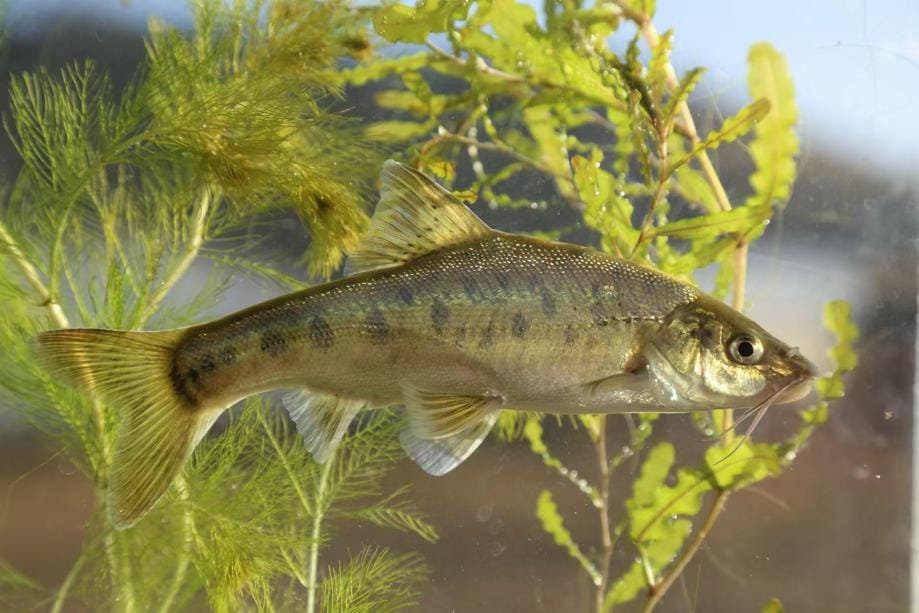
23rd August 2024
The world’s consumption overshoot may be stabilising
After increasing almost every year for decades, the global annual overshoot date has stabilised, indicating that we may have finally reached a turning point in overconsumption. Overshoot days occur when demand for ecological resources and services in a year exceeds what the planet can regenerate that year. DW
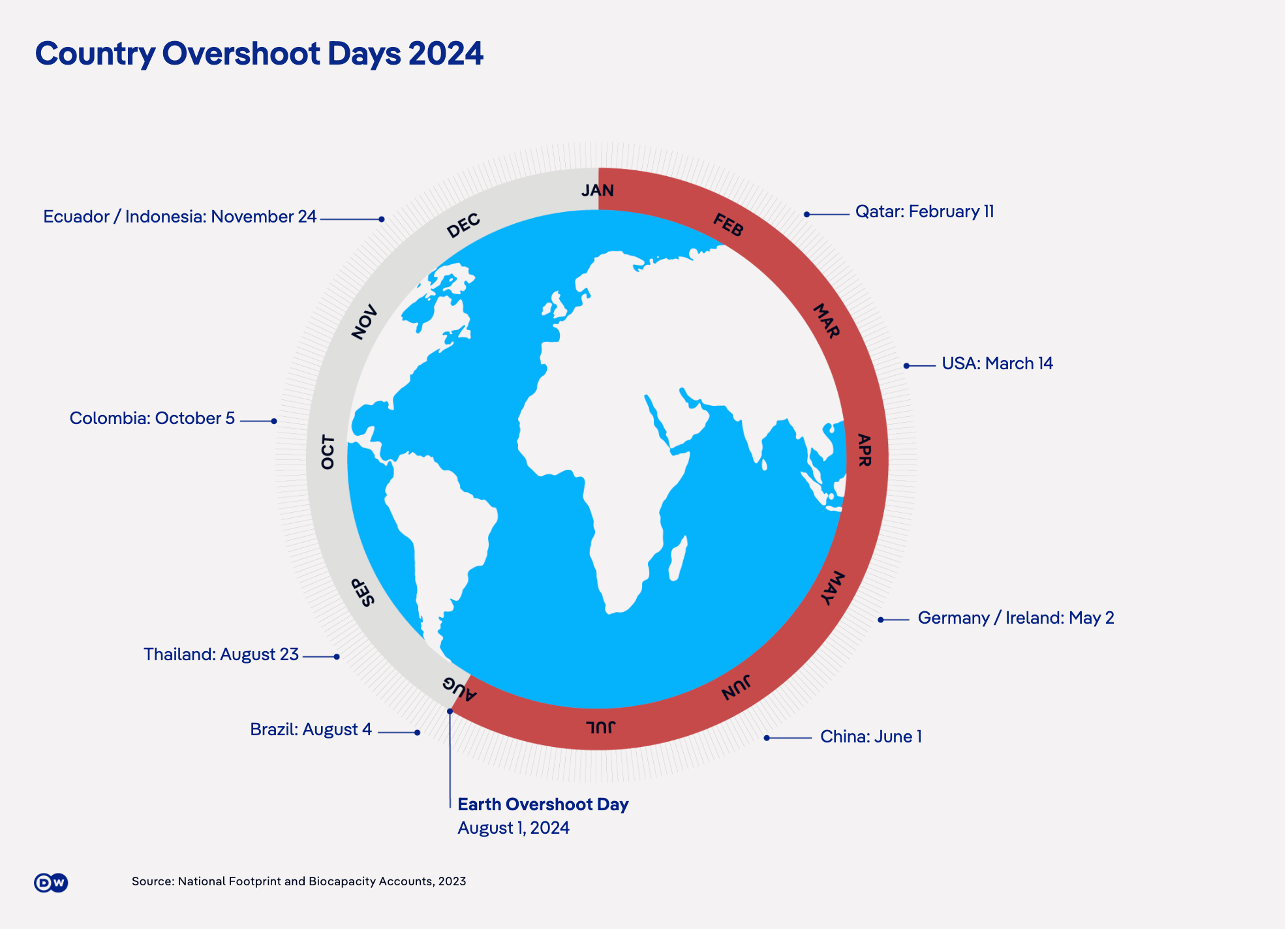
United States backs global plastic treaty
A watershed moment in the fight against plastic as the US, one of the world's biggest plastic makers, supports a major policy shift to reduce the quantity of new plastic produced each year. The move will boost the prospect of UN agreement on a manufacturing cap, with the final round of negotiations due to take place in late November. Reuters
South Korea recycles 98% of its food waste
When the country started tackling the problem 20 years ago, it threw away 98% of its food waste; today, leftovers from homes and restaurants are turned into compost, animal feed, and even energy. It’s one of the few countries with a nationwide system for food waste management, and its 50 million people now consider food recycling a part of daily life. Washington Post
Kenya has planted more than 241 million trees
The Jazamiti app is enabling Kenyans to plant trees based on their ecological zones. It's part of the country’s mission to restore over 30% of its tree cover by 2032 to fight the impact of climate change. The country is well on its way to meeting that target—as of July 2024, more than 241 million trees had already been planted. RESET
Amazon deforestation rate falls to lowest level in eight years
The rate of deforestation in the Amazon is now at its lowest level since 2016, with satellite data showing close to a 50% drop compared to previous years. While much remains to be done to end the destruction, this represents remarkable progress, driven mostly by new policies under President Lula, who aims to end deforestation entirely by 2030. AP

A landmark project to protect Ecuador’s mangroves
Since 1969 Ecuador has lost nearly a quarter of its mangroves, threatening the lives and homes of nearly 200,000 people who live in flood-prone areas. A new $45.9 million project will now protect 150,000 hectares of mangroves and restore 4,850 hectares of degraded mangroves. The project will also cooperate with local communities to promote sustainable shrimp farming practices across 20,000 hectares. Conservation International
Belize delivers on Blue Fund deal
Two and a half years ago, the Belize Fund was set up to help the country protect its marine ecosystems while alleviating national debt. To date, BZ$7.3 million has benefitted 40 coastal communities and 14 marine protected areas—covering over 527,000 hectares—and facilitated training for 66 individuals. Caribbean News
When we closed the historic Belize Blue Bond transaction in November 2021, it felt momentous yet incomplete. It wasn’t until I saw the Belize Fund team in action, translating those debt restructuring funds into tangible marine protection initiatives, that I realized the full potential of what we had set in motion.
Leah Carriere, Nature Conservancy’s Nature Bonds Program
New Caledonia works to protect endangered flightless bird
The population of the flamboyant Cagou has almost tripled since 2017, thanks to monitoring and threat management. Local efforts began in the 1980s, when a zoo in Noumeā started raising cagous in captivity and releasing them at the Blue River Provincial Park. Around 60 birds lived in the park in 1984; today there are over 1,000. The Guardian
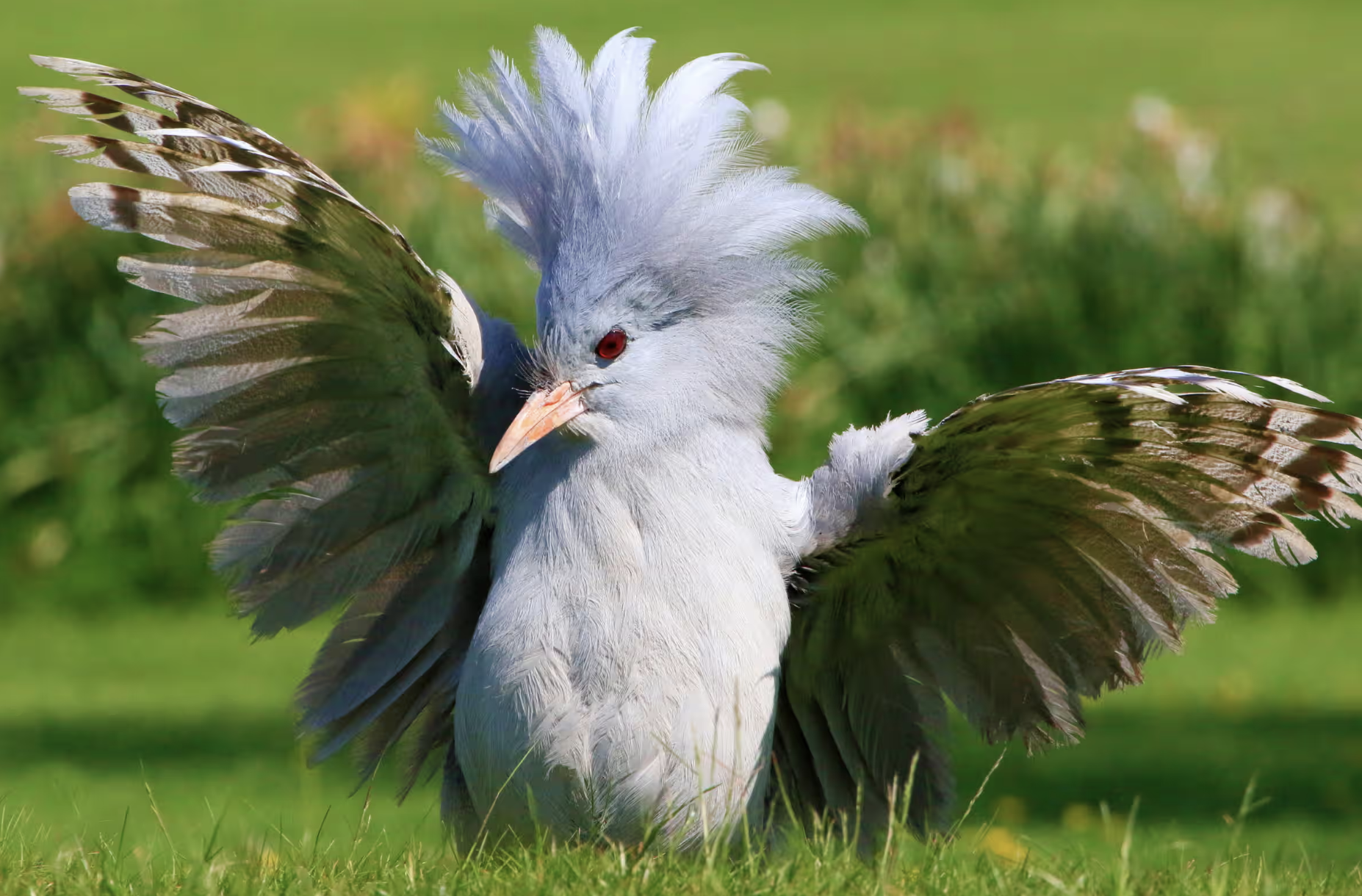
Fishing ban in the Yangtze River is working
The ban was imposed in 2021, and last year 227 native fish species were identified in the river, an increase of 34 from 2022. The number of protected species found in the river has also increased, including the population of the endangered Yangtze finless porpoise, which has rebounded to 1,249, marking a significant turnaround from 445 a decade ago. China Daily
Plenty of good news for whales
There has been an upswing in the number of humpback whales in Icelandic waters; in the US, the federal government is creating a once-in-a-lifetime opportunity to conserve and recover endangered North Atlantic right whales with $82 million in funding; and a district court in Maryland has ordered the government to enhance whale protections in the Gulf of Mexico to protect them from offshore oil and gas drilling.
How Copenhagen cleaned up its harbour
Thirty years ago, the city's harbour was polluted with industrial waste and sewage. Then the government decided to clean it up, an effort spearheaded by a sewage system modernisation programme that cost an estimated €125 million. The benefits for hygiene, health, and daily life are clear, as today the harbour is swimmable and a playground for everyone. Outdoor Swimming Society
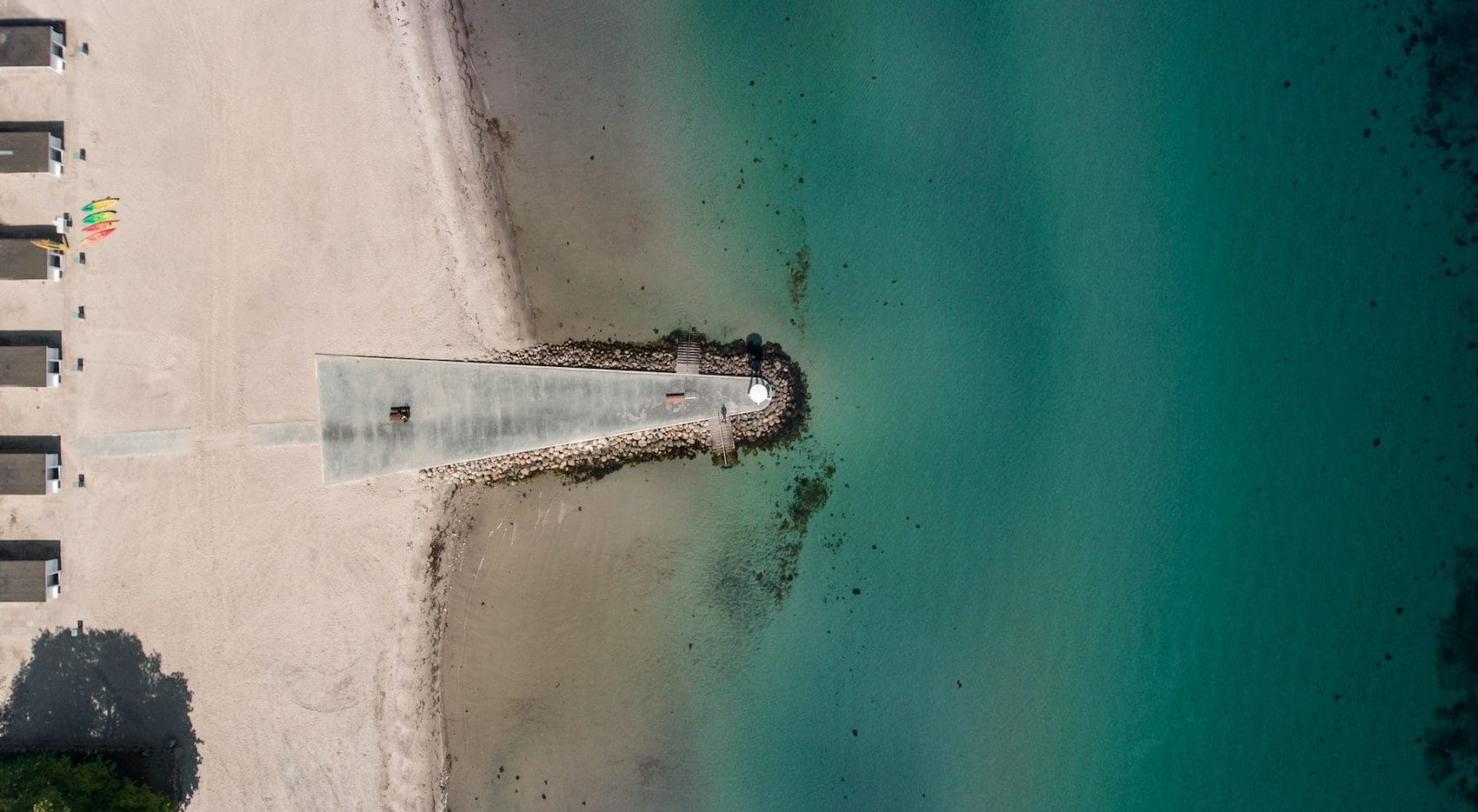
More Music for those who will listen
Local communities are saving endangered baby sea turtles from poaching and tourists in Sri Lanka.
Shanxi province is tackling the ecological and environmental issues in the Yellow River, the second-longest river in China.
There’s been steady growth in the population of Chinese white dolphins, nicknamed the 'giant panda of the sea,’ thanks to conservation measures.
The plans to safeguard 118,221 acres along the Laos-Vietnam border to protect the critically-endangered ‘Asian unicorn.’
A team of Cameroonian rangers and biologists are using GPS collars to support anti-poaching patrols and conserve lions in Central Africa.
Conservationist Maximiliano Bello explains how Chile became a leader in ocean protection: 'Twenty years ago, Chileans had no idea we have whales.'
A decade-old effort to restore the once-parched Colorado River delta in northwestern Mexico appears to be succeeding.
How the combination of ancient tracking skills and technology is protecting Namibia’s endangered pangolins.
Zimbabwe, Mozambique, and Zambia are working together to create the 39,165-km² ZIMOZA Transfrontier Conservation Area to boost tourism and conservation.
9th August 2024
Spain approves proposal to protect the Mar de las Calmas
The Mar de las Calmas (Sea of Calm) in the Canary Islands has been a marine fishing reserve since 1996, and now the Spanish government has approved a proposal to declare it a national park. Once ratified by parliament, it will become the first entirely marine national park in Spain and the 17th in the state network of national parks. El País
Australia’s EPA halts a multi-billion-dollar gas drilling plan
A gas export development off Western Australia’s northwest coast has been deemed 'unacceptable' by the state’s Environment Protection Authority due to its impact on marine life at Scott Reef. Scientists flagged risks to migrating whales and a beach where endangered turtles make nests, as well as the potential of an oil spill destroying a pristine environment. The Guardian
Ecuador safeguards drinking water for half a million
Ecuador's highest volcano, Chimborazo, soars 6,263 metres above sea level, and its surroundings provide a habitat for unique Andean flora and fauna. It's now home to the newly-created Bolivar Provincial Conservation and Sustainable Use Area, spanning 428 km2, which safeguards drinking water for over half a million people and supports sustainable development for local communities. Andes Amazon Fund
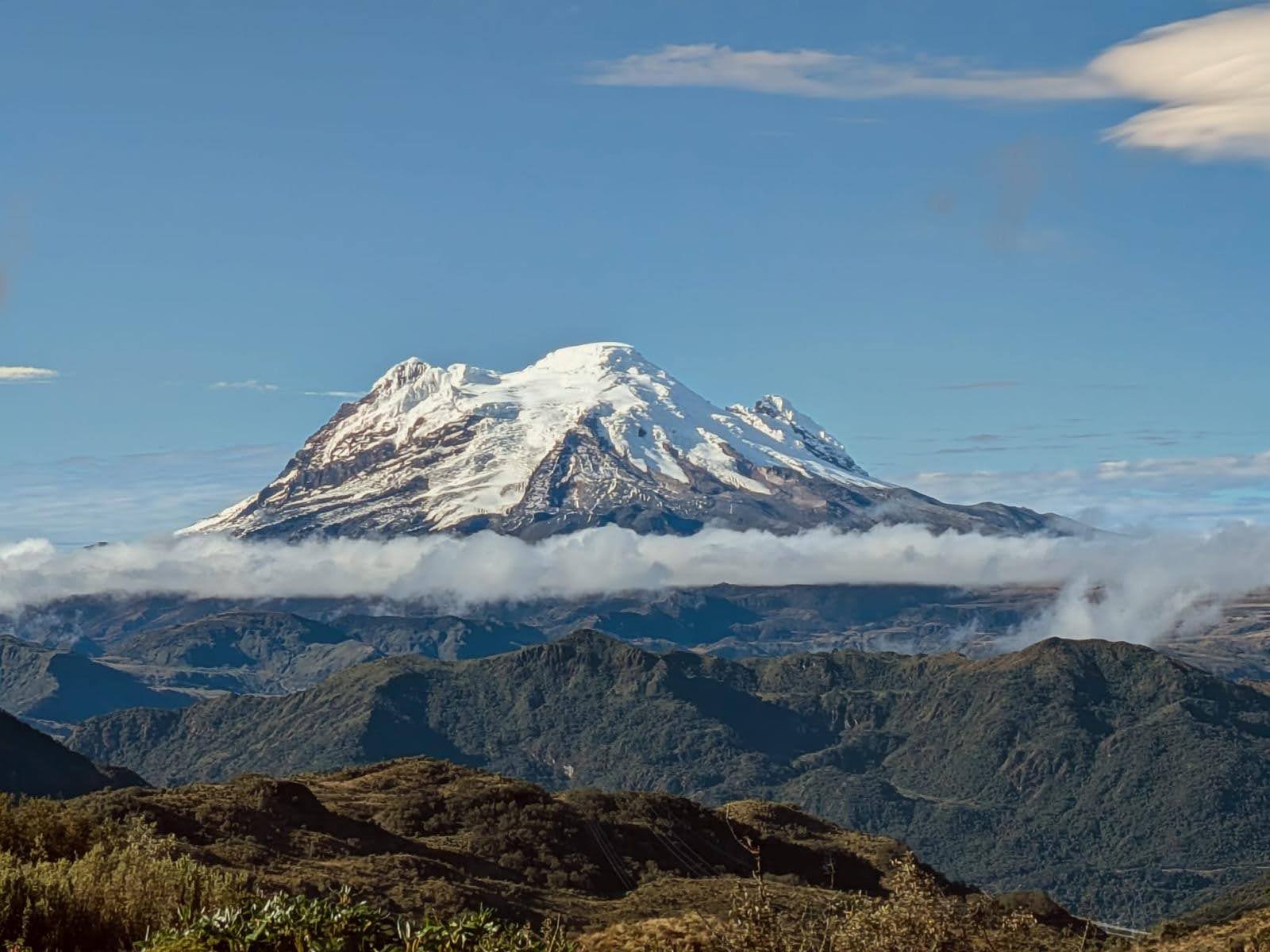
The spillover benefits of marine protected areas
The first global assessment of the benefits of MPAs has discovered a positive spillover effect, with areas just outside the protected zones producing larger fish. The study also reveals that these spillover effects accumulate over time and that within a decade of creation, MPAs help support local livelihoods, 'resulting in a win-win situation for nature and people alike.' University of Hawaiʻi
Colombia pioneers a community-led approach to conservation
At approximately 680 km2, Colombia's new Serranía de Manacacías National Natural Park is small, but it is home to an extraordinary amount of biodiversity—'a landscape that doesn’t exist anywhere else in the world.' It's also one of the country's first protected areas created after a shift in policy that requires the agreement of the people who live in the conservation area. Nature Conservancy
European polecat begins reintroduction to Europe
After being trapped to extinction in the 19th century, the European Polecat (Mustela putorius), ancestor of the domestic ferret, has recolonised extensive parts of the United Kingdom and is now being reintroduced in Spain in an effort to bring the species back to its historic habitats on the continent.
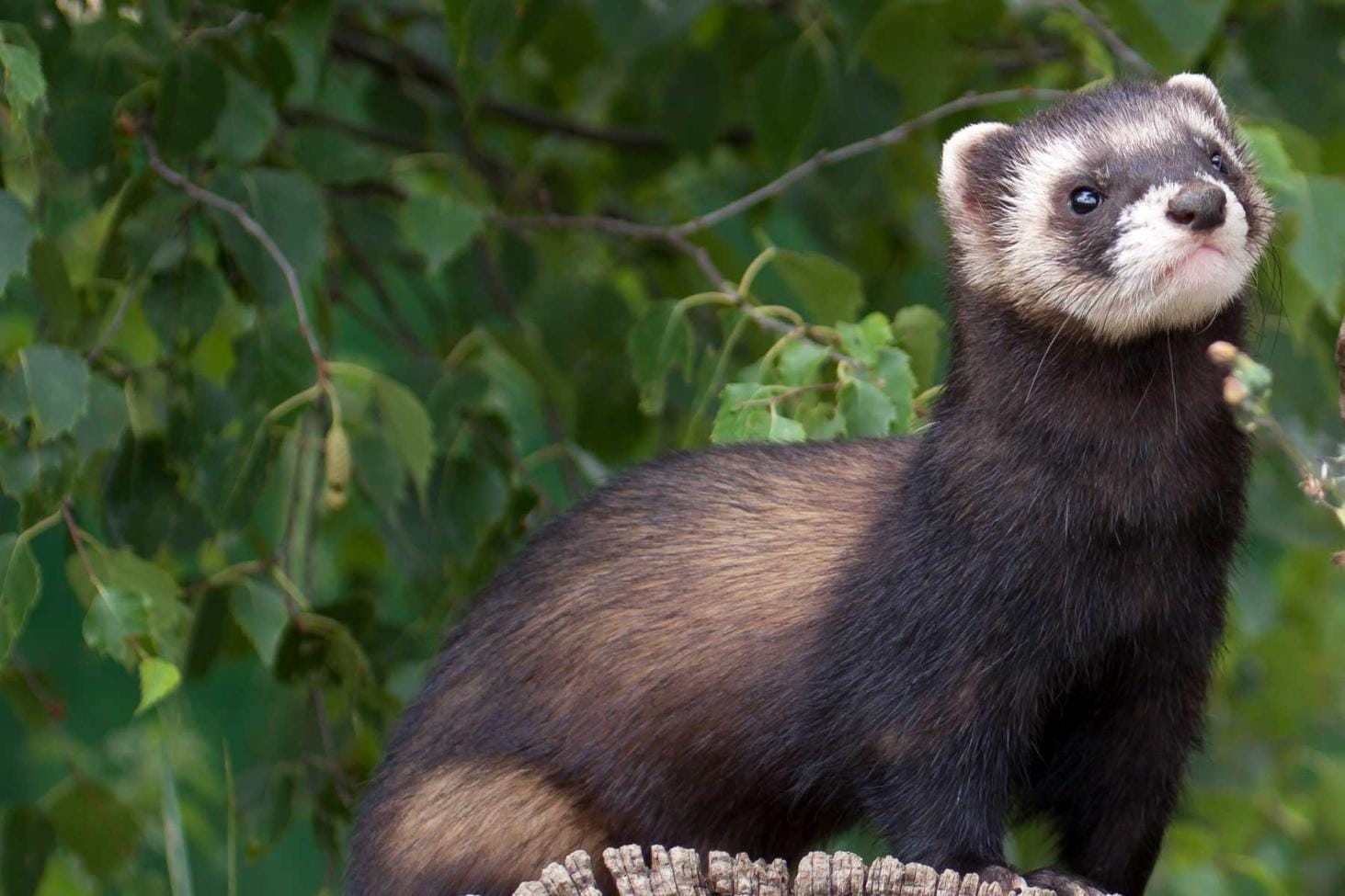
Pesticide spraying halted on millions of acres in US west
Environmental activists have won a lawsuit preventing the US federal government from spraying insecticide on millions of acres in 17 western states to kill native grasshoppers and crickets. 'This approach will reshape grasshopper management for the better, and contribute to the well-being of pollinators, birds, fish and other wildlife across millions of acres of western rangeland.' CBD
Zimbabwe join two UN conventions on water
In an effort to protect its water resources, Zimbabwe has joined two big UN conventions on water, specifically the Water Convention and the Convention on the Law of the Non-Navigational Uses of International Watercourses. It's backed by action, too—the country's shared basins covered by cooperation agreements have risen from 69.9% in 2020 to 90.4% in 2023. Afrik21
Kootenai Tribe of Idaho restores dumping ground
For over a century, a site on the Kootenai River was used as a dumping ground by the county and the local lumber mill. But within the next few years, tribal members and wildlife will be able to enjoy Ambush Rock, thanks to a $2 million grant from the federal government to clean and restore the land. 'It’s justice for the tribe. It’s also environmental justice for the fish and wildlife.' Idaho Capital Sun
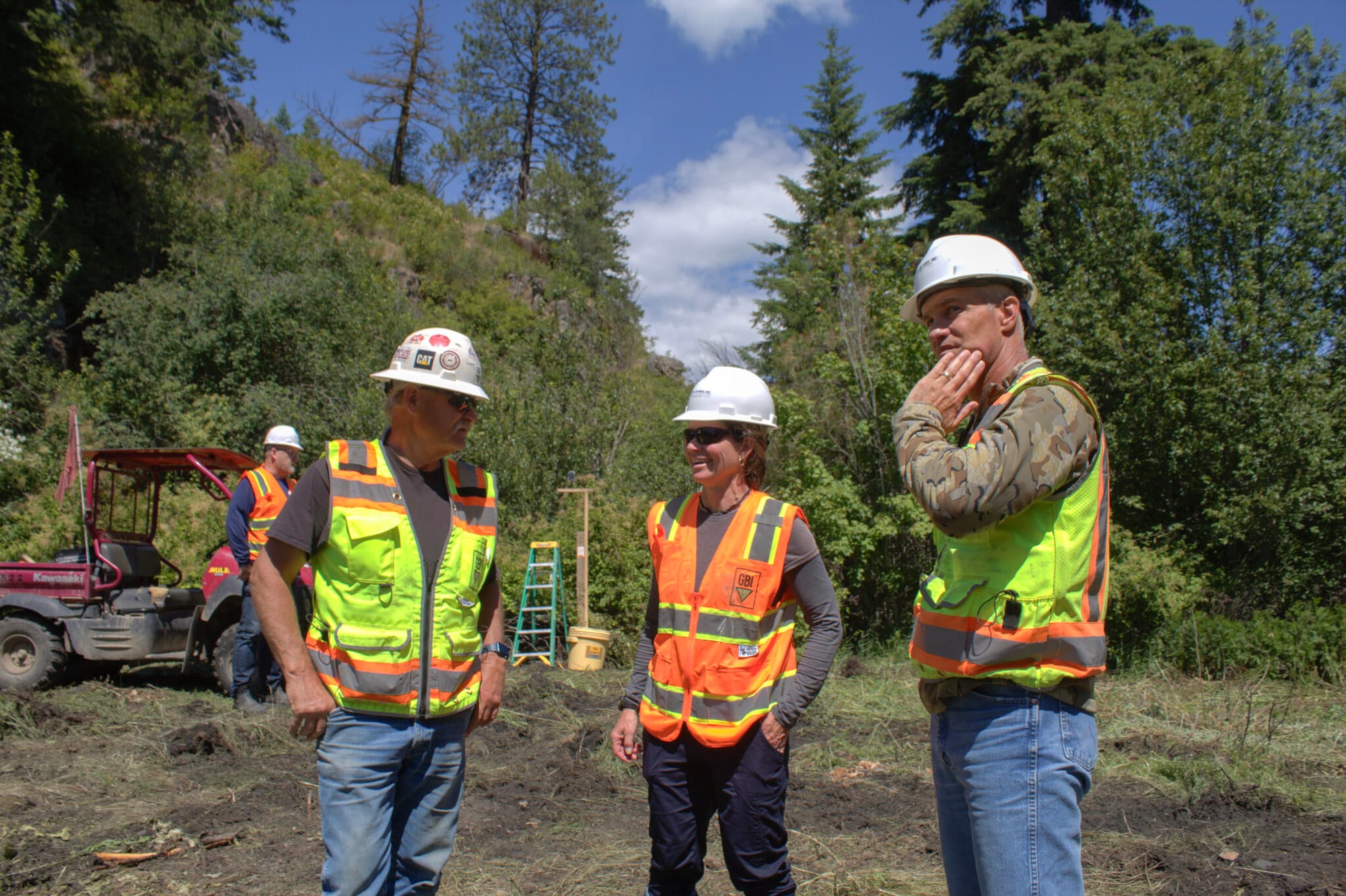
More music for those who will listen
Atlantic sturgeon have been reintroduced to Sweden for the first time. In Mexico City, a vast wetland park rises from a dead airport. Meet the all-women Indigenous patrol team protecting tigers and orangutans in Sumatra's rainforests. How a monk and a solar-powered boat joined forces to tackle Bangkok’s plastic pollution problem. Bull trout in the Klamath Basin are thriving after 30 years of conservation work. Scientists in Florida are hailing the landmark release of the 1,000th Florida grasshopper sparrow into the wild as part of efforts to save the critically-endangered bird. How a clean cooking project in the DRC improved respiratory health for over 600,000 people—and led to the creation of almost 200,000 hectares of community forest concessions. In Yosemite, peregrine falcons are rebounding thanks to rock climbers. A new nature restoration project in Wales is being funded by mountain bikers, flipping the conventional business model for rewilding on its head. Rubber farmers in Thailand are adopting agroforestry as a more sustainable way of cultivating a crop that ranks alongside beef, soy, and palm oil for its destructive effect on forests. The Alaska Youth Stewards are reclaiming Indigenous authority and restoring culture, forests, and local economies.
2nd August 2024
Six new sites added to UNESCO World Heritage List
The new sites include a marine hotspot in the Marquesas Islands, coastal sand dunes in Brazil, interdunal lakes and important migratory bird sanctuaries in China, Vjetrenica Cave in Bosnia and Herzegovina, and one of the largest remaining peat bog ecosystems in Scotland. IUCN
China’s progress on ocean protection
The country has protected 150,000 km2 within marine 'ecological redlines,' which include biodiverse ecosystems such as wetlands, coral reefs, mangroves, and seagrass meadows. China has also established 352 marine nature reserves, spanning about 93,300 km2 of marine habitat, which have aided the recovery of rare species like the spotted seal. Dialogue Earth
Bullfighting bites the dust in Columbia
The Colombian president has signed a bill to ban the centuries-old tradition by 2027, with plans turn more than a dozen bullrings into cultural and sporting venues. 'We cannot tell the world that killing living and sentient beings for entertainment is culture.' This leaves only seven countries where bullfighting remains legal. AP
A conservation victory for the spotted owl
Canada has taken a step towards protecting the spotted owl, releasing a draft recovery strategy that identifies over 400,000 hectares of old-growth forest critical to the survival of the bird. The historic win is thanks to two decades of First Nations leadership and overwhelming public pressure. Wilderness Committee
Our ancestors taught us the spotted owl is our messenger between this world and the spirit world and how they speak to us, and this new recovery strategy gives them chance at survival.
Chief James Hobart, Spô’zêm First Nation
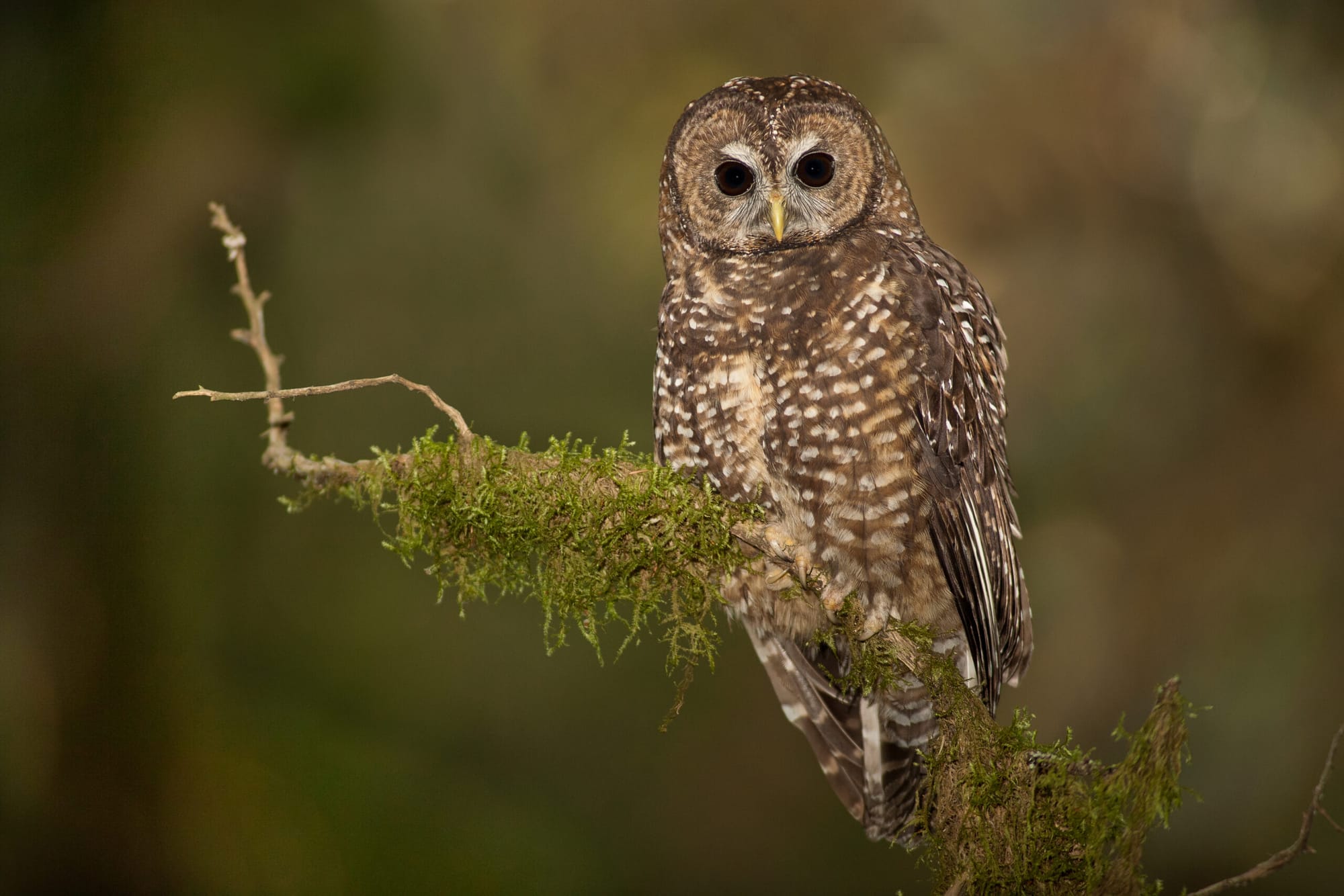
Jaguars return to the wilds of Argentina
The Iberá Provincial Reserve in Argentina has celebrated the release of nine jaguars, marking the first time this top predator has been seen in the Iberá area in 70 years. The park is home to one of the most comprehensive rewilding projects on the planet and has reintroduced foundational species like giant anteaters, Pampas deer, and collared peccaries over the past 50 years. Time
Amazon communities save giant freshwater fish
Just over a decade ago, the arapaima, a fish capable of growing up to three metres long, was on the brink of extinction. But thanks to sustainable fishing practices spearheaded by local communities, the arapaima population has increased by 425% in 11 years. Across the Amazon, around 1,100 communities have adopted conservation initiatives for the fish. National Geographic
For many, many decades, people have been looking to the outside for solutions to the problems in the Amazon, but the arapaima story shows that the answers are often in the hands of the local people and communities living in the forest.
João Campos-Silva, Ecologist
The app helping farmers commit to ‘good fire’ in Thailand
The FireD app is a novel system to reduce deadly smog from agricultural burning in Northern Thailand. Using imagery and data from NASA satellites and thermal drones, the app helps farmers determine the right time to do controlled burns, depending on current atmospheric conditions. The Grist
The EPA is taking steps to regulate vinyl chloride
Experts and environmental groups have been urging the government to take action after a train shipment of the chemical derailed in East Palestine, Ohio, last year. The EPA just designated vinyl chloride, along with four other chemicals used to make plastic, as 'high-priority substances.' If finalized, a years-long study could lead to further restrictions. Toxic Free Future
Jabiluka uranium site protected after decades of activism
In a major win for the Mirarr traditional owners, the application for a ten-year renewal of the mineral lease for the Jabiluka site in Australia, one of the world's largest and richest uranium deposits, will be rejected. The controversial site will be absorbed into Kakadu National Park, ending three decades of uncertainty for First Nations communities. ABC

More music for those who will listen
In the UK, a small fee on plastic bags has resulted in an 80% decrease in litter on beaches over the last decade. This autumn, salmon will return to California’s Klamath River, as the world’s largest dam removal project wraps up. How Shenzhen, China’s most ‘futuristic’ city, restored its mangroves. A revision to the Clean Water Act could mean that US states must consider tribal rights when crafting water rules and protect resources such as wild rice, sturgeon, salmon, and shellfish. Chesapeake Bay in Maryland has received its highest grade in overall health since 2002, proving that cleanup efforts are working. An initiative to rewild 13,000 ha of South Downs National Park in Sussex and Hampshire has hit the halfway mark. The Grand Canyon will become the first national park in the US to trial eliminating single-use plastic waste, potentially saving over 7.2 million foodware items per year. A decade-long initiative to protect tricolored blackbirds in California has prevented the deaths of at least half a million chicks. Local communities in Wales will begin the restoration of a lost Atlantic rainforest in Pembrokeshire. Meet Europe’s Big Five: wolf, bison, wolverine, brown bear, and lynx.
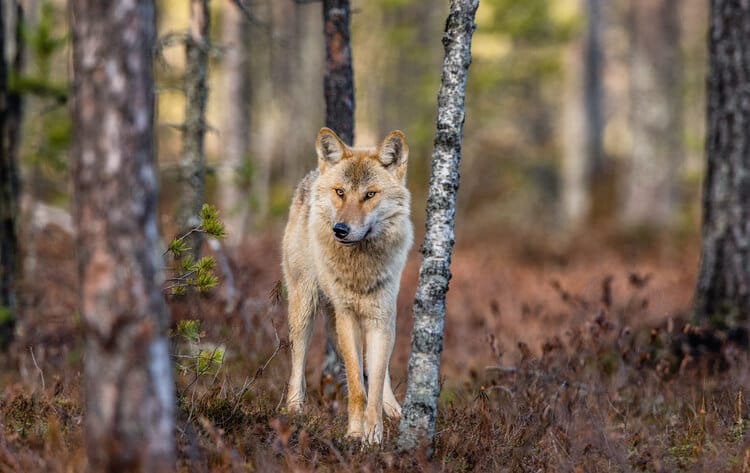
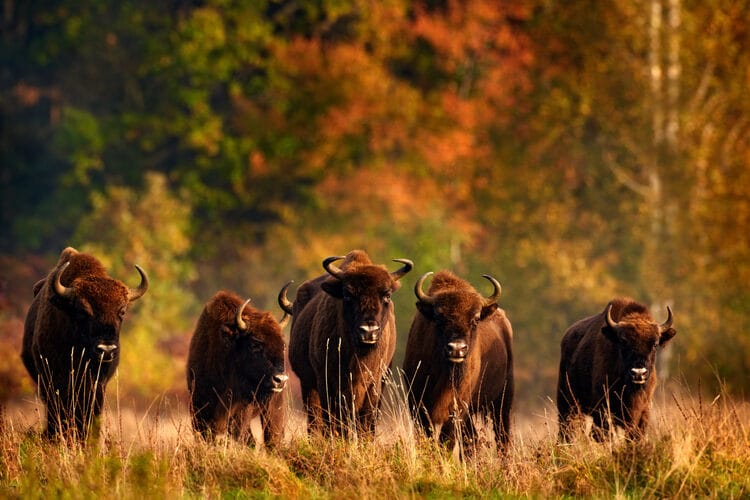
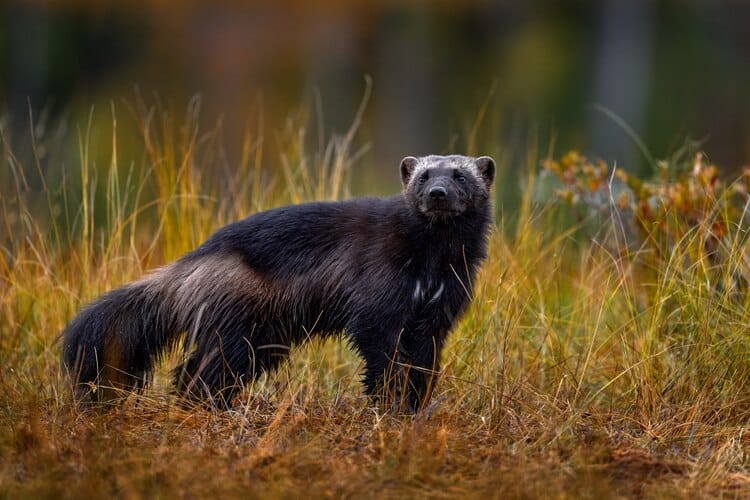
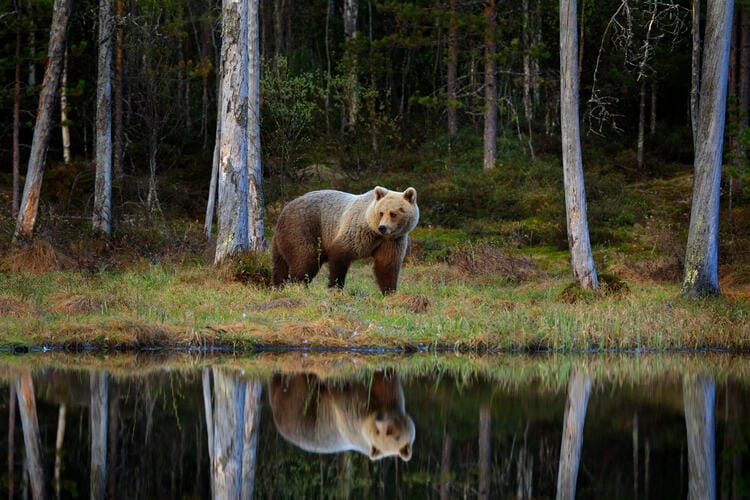
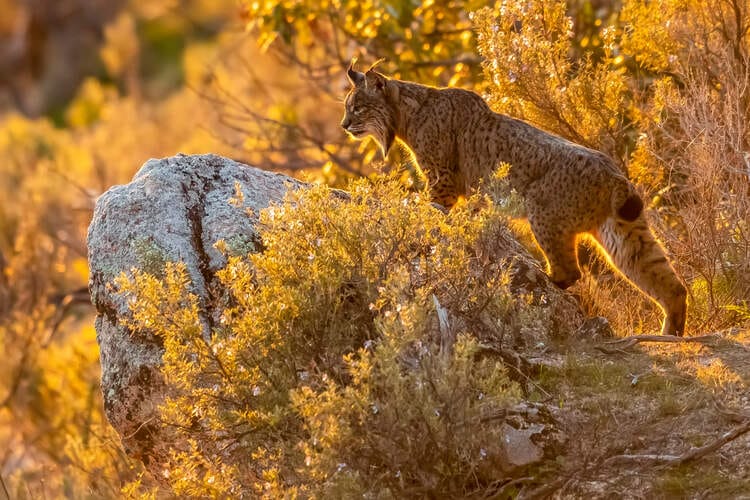
26th July 2024
Ecuador forms new conservation area to protect biodiversity hotspot
In the Ecuadorian province of Napo, the new Pueblo Kichwa de Rukullakta Provincial Conservation and Sustainable Use Area covers 419 km² of Ecuador's central Amazon region. Established by the provincial government in cooperation with local communities and Indigenous peoples, the project will safeguard the immense diversity of species, biomes, and ecosystems found within the area. Andes Amazon Fund
A destroyed park in Mozambique is now a conservation triumph
Gorongosa National Park was decimated in the Mozambican Civil War (1977-1992). After the war, the wildlife sanctuary languished until philanthropist Greg Carr committed $36 million to the park's revival in 2004. Twenty years on, the project has spent closer to $100 million, successfully rewilding the park, safeguarding endangered species, reviving tourism, and improving local livelihoods. Al Jazeera
First Nations will manage Canada’s largest marine protected area
Named Tang.ɢwan - ḥačxʷiqak - Tsig̱is, the new 130,000 km² MPA off the west coast of Vancouver Island will be co-managed by the Haida, Nuu-chah-nulth, Pacheedaht, and Quatsino First Nations. It is a result of years of advocacy and explorations that discovered a wealth of biodiversity on seamounts. Harmful activities like bottom-contact fishing and dumping are now prohibited. Oceana
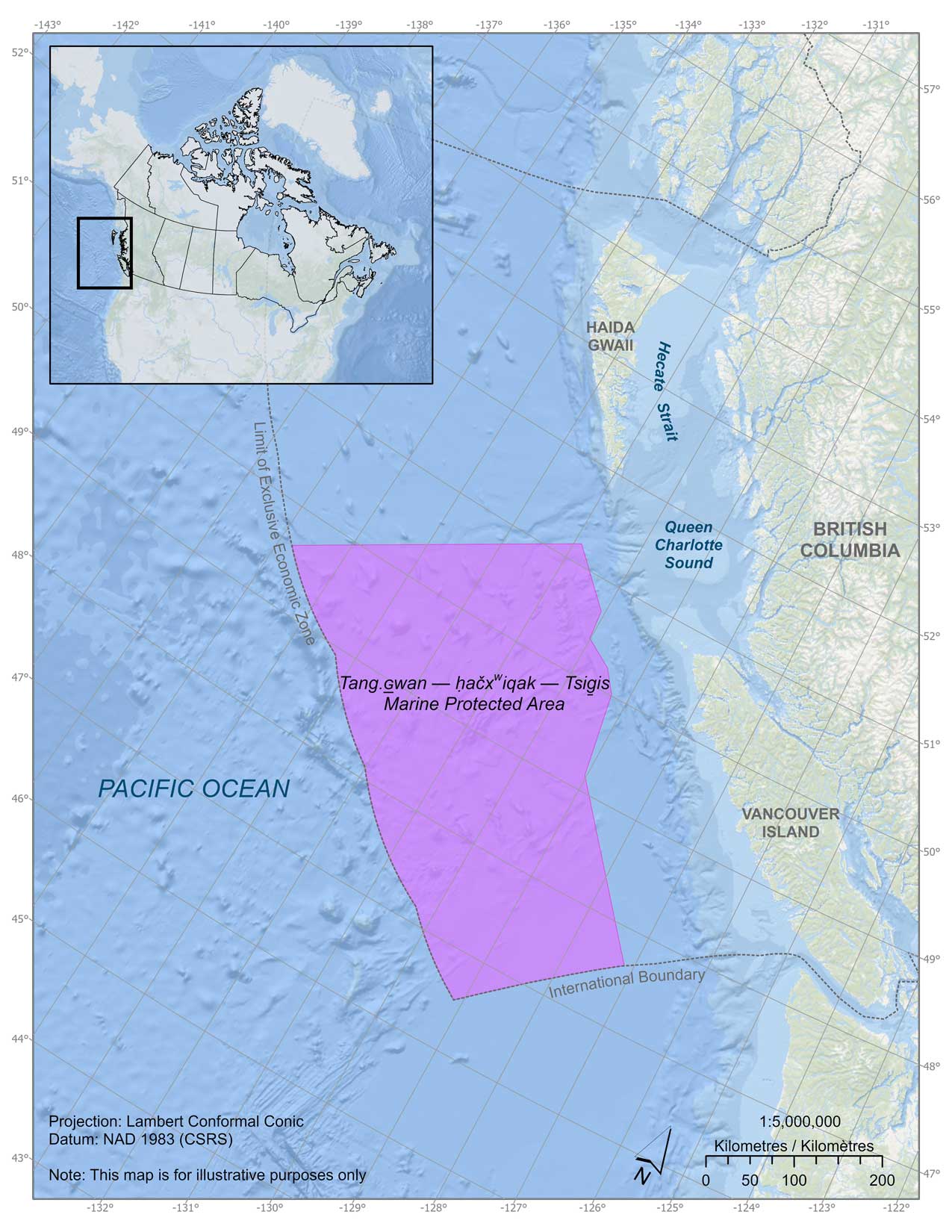
Great Green Wall has revived Africa’s degraded landscapes
The Great Green Wall Initiative, launched in 2007 by the African Union, aims to restore 100 million hectares of degraded land across the Sahel and create 10 million green jobs by 2030. Since its start, it has successfully restored 18 million hectares and created 350,000 jobs across the 11 participating countries in North and West Africa. International Banker
Rapid recovery for the European turtle dove
The population of the European turtle dove has increased by 25% following a temporary hunting ban in place from 2021 through 2023 across France, Spain, and Portugal. The recovery equates to an additional 400,000 breeding pairs, prompting the three countries to continue the ban in 2024. Bird Guides
Wildlife comebacks for tigers, Siamese crocodiles, and narwhals
In Thailand, tiger numbers in the Western Forest Complex have steadily recovered over two decades; in Cambodia, 60 baby Siamese crocodiles were born at the end of June, the culmination of more than 20 years of efforts to revive the endangered reptile’s numbers; and in Canada, the narwhal is no longer considered at risk after researchers recorded stable population numbers in Nunavut.
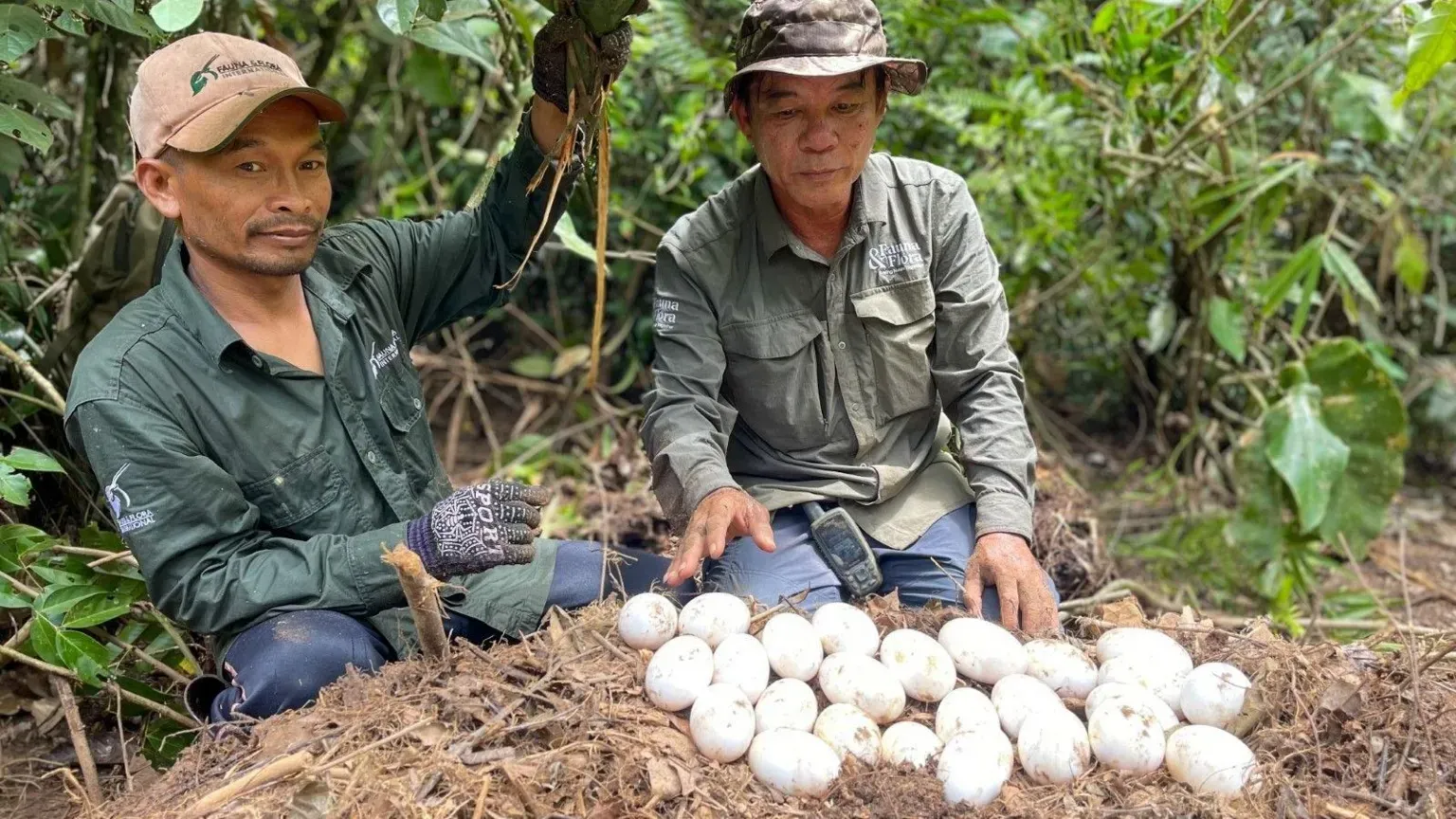
World’s biggest buyer of consumer goods could* phase out plastic
The US federal government has announced its intention to phase out purchases of single-use plastics for food, events, and packaging by 2027; expand the market for reusable, compostable, or more easily recyclable substitutes; and ban single-use plastics from all government operations by 2035. *A big asterisk to acknowledge the current political reality in the United States. NYT
The Ocean Cleanup has removed over 15,000 tonnes of trash
Since its launch in 2013, The Ocean Cleanup has removed over 15 million kilograms of trash from oceans and rivers worldwide. Founder Boyan Slat recently posted, 'During the first eight years of The Ocean Cleanup, we collected 314,000 kg of trash. We're now collecting the same amount... every 4.5 days.'
Clayoquot Sound’s ancient forests receive permanent protection
More good news from Vancouver Island, Canada! In Clayoquot Sound, 760 km² of old-growth forests are now permanently protected by ten new conservancies managed by the Ahousaht and Tla-o-qui-aht First Nations, who have been fighting to protect the forests from logging since the 1980s. A total of 1,639 km², or 63% of Clayoquot Sound, are now protected. The Narwhal
Mozambican conservationists’ push to protect a 'sky island'
The largest rainforest in southern Africa was known only to locals until 2004, when it was reached by an international team, leading to significant exploration and the discovery of diverse new species. Now Mozambican conservationists are working to turn Mabu into a community-protected area—prohibiting logging or mining but allowing locals who depend on the forest to manage and use it. BBC
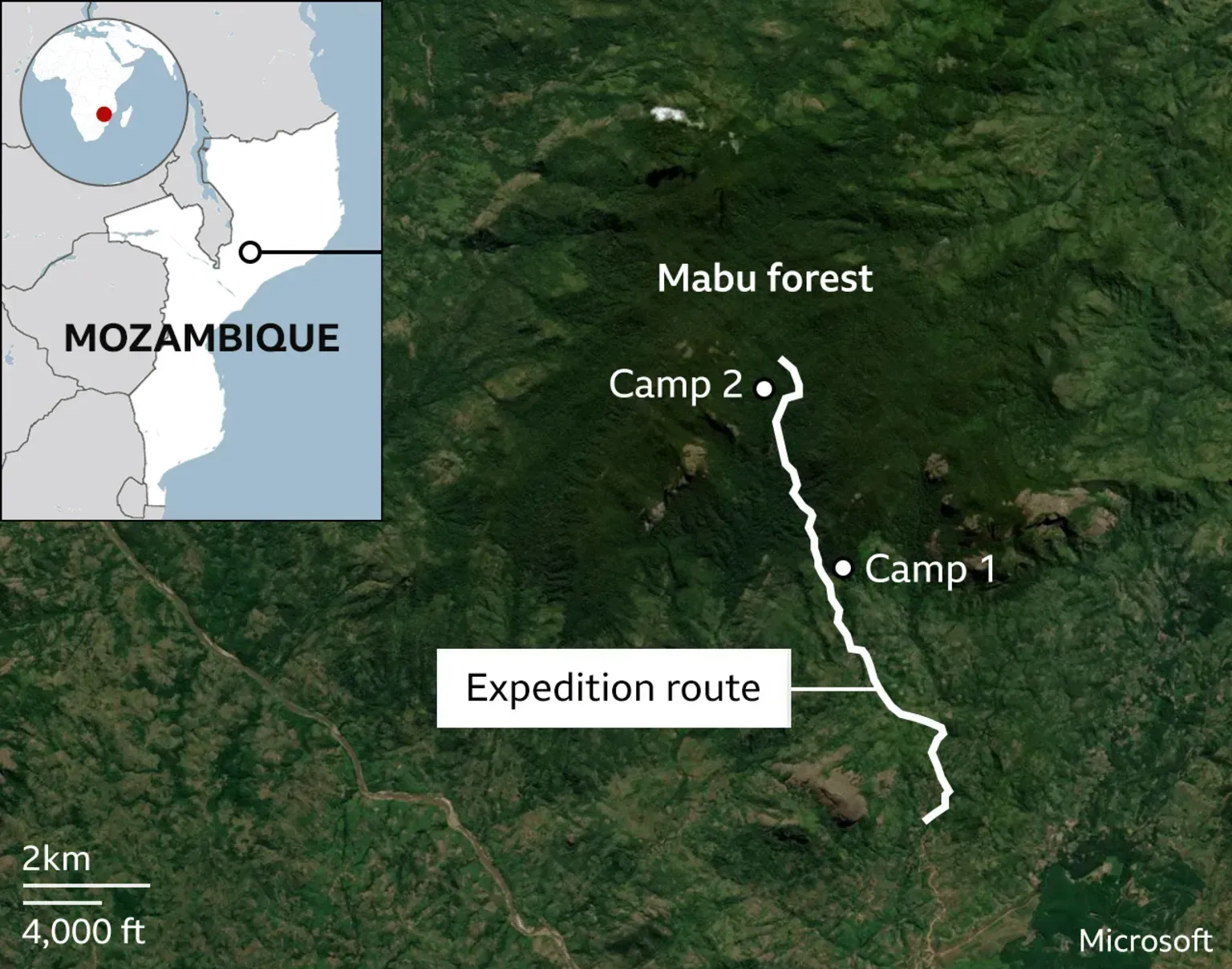
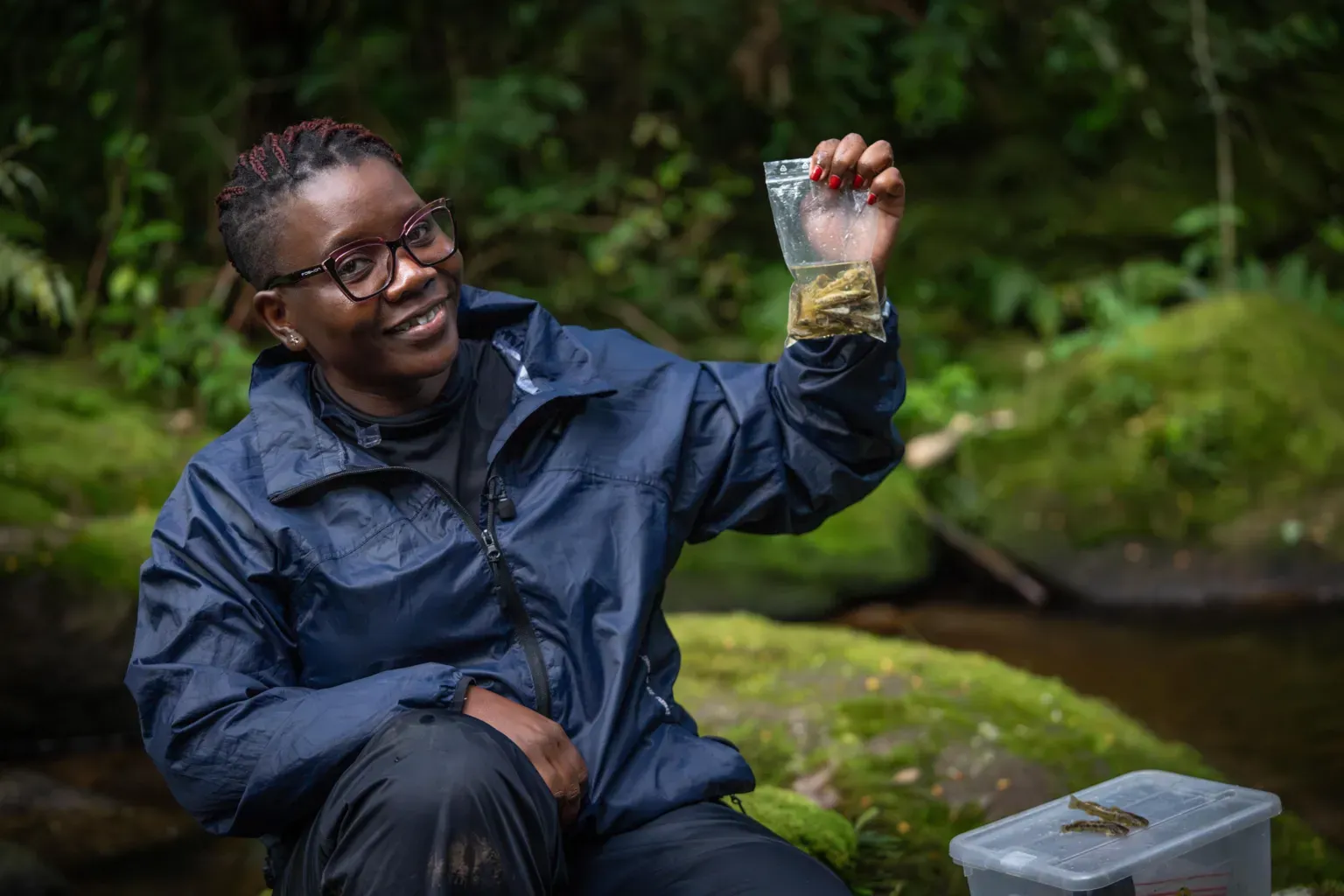
More music for those who will listen
A court in Ecuador has ruled in favour of a river running through the city of Quito, determining it has the right not to be polluted. Hawaii is banning deep-sea mining. The US EPA has agreed to take long-overdue action on 32 states’ plans to reduce haze pollution. An initiative in western Greece is working to clean up 'ghost' fish farms. In a win for transparency, the Senegalese government will make the registry of licensed fishing vessels public. A judge has nullified an offshore oil and gas lease sale in Alaska's Cook Inlet, home to critically-endangered beluga whales. California’s Channel Islands have staged a remarkable comeback since the removal of their feral pig population. A new conservation easement in Florida will protect the state’s endangered panther population. For the first time in 81 years, 1,300 American white pelicans have nested at Hat Island in the Great Salt Lake. Bangkok is mobilising to vaccinate, sterilise, and care for its thousands of strays. Black grouse numbers in Belgium are gradually increasing after a successful release programme. An exploration of daylighting and how it can rekindle our ancient connection with water.
Instead of throwing tomato soup at paintings, maybe climate activists would be better off doing something like this?
12th July 2024
Colombian deforestation fell to 23-year low in 2023
Last year, deforestation in Colombia fell by 36% thanks to a decline in environmental destruction across the Amazon region. About 792 square kilometres of the country was deforested, down from 1,235 square kilometres in 2022. This is good news for one of the most biodiverse countries in the world, home to thousands of plant and animal species. Reuters
Sturgeons return to Swedish waters for the first time in 100 years
Scientists have kicked off a 10-year project to reintroduce the Atlantic sturgeon, transferring 100 young sturgeons from a farm in Germany and releasing them into the cleaned-up waters of the Göta älv. The species lived in the river until the late 19th century but disappeared due to overfishing and pollution. Phys.org
To be a person who has the possibility to re-introduce a species that has been extinct nationally, it's a gift. It's probably the best thing I've done. Biologist Dan Calderon
South Sudan will protect the greatest mammal migration on Earth
African Parks and the South Sudanese government recently conducted a historic aerial survey showing the 'Great Nile Migration'—over six million antelope, including the tiang, reedbuck, white-tailed kob, and Mongalla gazelle—seasonally crossing the White Nile. For context, the Serengeti migration of wildebeest, zebra, and gazelle amounts to around 2 million animals. African Parks
China cleans up its air and water
In 2023, the average density of PM2.5, a key indicator of air pollution, was 30 micrograms per cubic meter, almost 3 micrograms per cubic meter lower than the annual target. This represents a 16.7% decrease from 2019. China’s water also improved, with 89.4% of monitored sections registering above Grade 3 in the five-tier water quality system, up 1.5 percentage points year-on-year. People’s Daily
Air pollution continues to decline in Europe
In 2022, 16 EU Member States reduced emissions of the five main air pollutants, maintaining a downward trend since 2005. The reduction rate for some pollutant emissions is now levelling off—except for sulphur dioxide, which has already reached its target within 22 Member States. EEA
Eleven new biosphere reserves added to global list
The new designations are in Colombia, the Dominican Republic, The Gambia, Italy, Mongolia, the Philippines, South Korea, and Spain, with two transboundary reserves, one of which spans Belgium and the Netherlands, with the other in Italy and Slovenia. The new reserves bring the global total to 759 sites in 136 countries, covering 7,442,000 km2—an area almost the size of Australia. UN

25-year restoration of Michigan’s Maple River is now complete
It's the first river in the US to return to a natural, free-flowing state. The decades-long project removed culverts and dams and replaced roads with free-spanning timber bridge structures to allow the water to flow through. 'This is one step of many to save Michigan's greatest resource: our Great Lakes; the source of drinking water, recreation and aesthetic for millions.' UpNorthLive
Debt-for-nature swaps take hold globally
Since the first debt-for-nature swap in 1987, over $380 million has been invested in projects across 14 countries to conserve critical tropical forests and coral reefs while supporting local and Indigenous communities. 'Debt-for-nature-swaps are more than an innovative financial mechanism; they are a means to keep the whole intact.' WWF
Ancient conservation practice restoring the Middle East
To combat desertification, communities across the Middle East are reviving the concept of the hima, a land-management practice dating back 1,400 years. Himas are areas of land that are set aside for rotational grazing or protected from hunting and logging. Lebanon has 31 himas covering more than 6% of the country’s land, resulting in improved biodiversity. Biographic
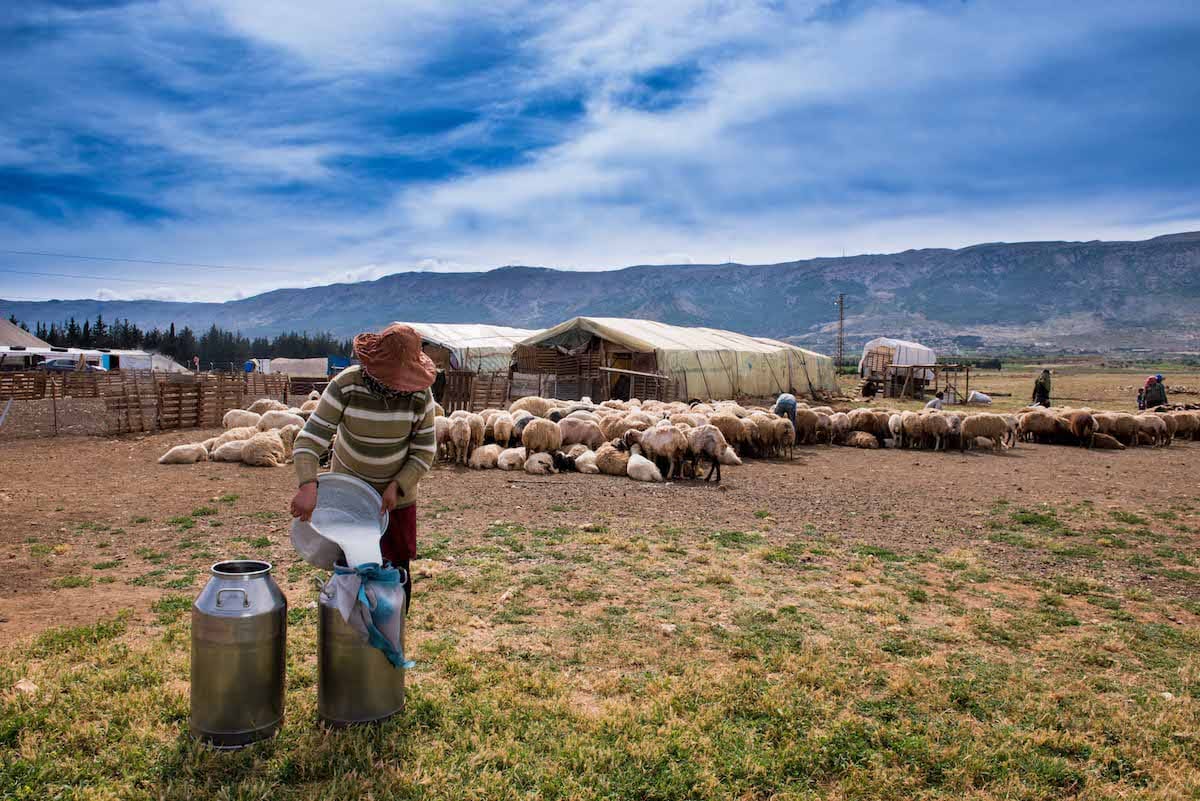
More music for those who will listen
India says it will sign the High Seas Treaty, joining 91 other countries. Florida has banned balloons to help save marine wildlife and seabirds. The UK's largest puffin colony has increased by a third since 2017. Nepal launches 10-year program to boost the critically-endangered Bengal florican. The newest Federal Duck Stamp has gone on sale in the United States; since 1934, the stamp has raised over $1.2 billion and conserved more than 6 million acres of habitat. A ban on ‘dirty fuel’—the most climate-damaging fuel for ships—has gone into effect in the Arctic. The protection of 28 million acres of public lands in Alaska from drilling and mining has been finalised. After years of reversals, sport hunters are banned from baiting black and brown bears in Alaska. A major initiative will restore mangrove forests along the banks of 52 rivers and canals in Khulna, Bangladesh. A landmark ruling in Suriname has granted interim protections to local and Indigenous communities to conserve their land. Author Barbara Kingsolver wrote the pledge for America’s Climate Corps, and it's awesome.
I will honour nature’s beauty and abundance, on which we all depend, and commit to its protection from the climate crisis.
I will build a more resilient future, where every person can thrive.
I will take my place in history, working with shared purpose in the American Climate Corps on behalf of our nation and planet, its people, and all its species, for the better future we hold within our sight.
5th July 2024
Pacific bluefin tuna rebounds a decade ahead of schedule
The species has exceeded international targets—reversing decades of overfishing—thanks to significant international cooperation between fisheries and scientists. Efforts to rebuild the stock started in 2011, after the population hit near-historic lows, but it has rebounded much faster than expected. 'This is an amazingly resilient fish, and the new assessment is showing us that.' NOAA Fisheries
More protected land in the Amazon than officially recorded
A new study revealed that over 40% of land across nine Amazonian countries is under some form of conservation management, significantly higher than the 28% officially recorded. In the Amazon rainforest itself, 62.4% of land is under some sort of conservation—with Indigenous territories accounting for 16%, achieving notable gains in areas where they have been granted robust land rights. Mongabay
World’s first Indigenous-led ‘blue park’
The Gitdisdzu Lugyeks Marine Protected Area on the coast of British Columbia has been designated a ‘blue park’ for its excellence in marine protection. The Kitasoo Xai’xais Nation established the protected area under its own jurisdiction, proving that a 'little community' was able to create this protected area and is on the path to regenerating the area. The Narwhal
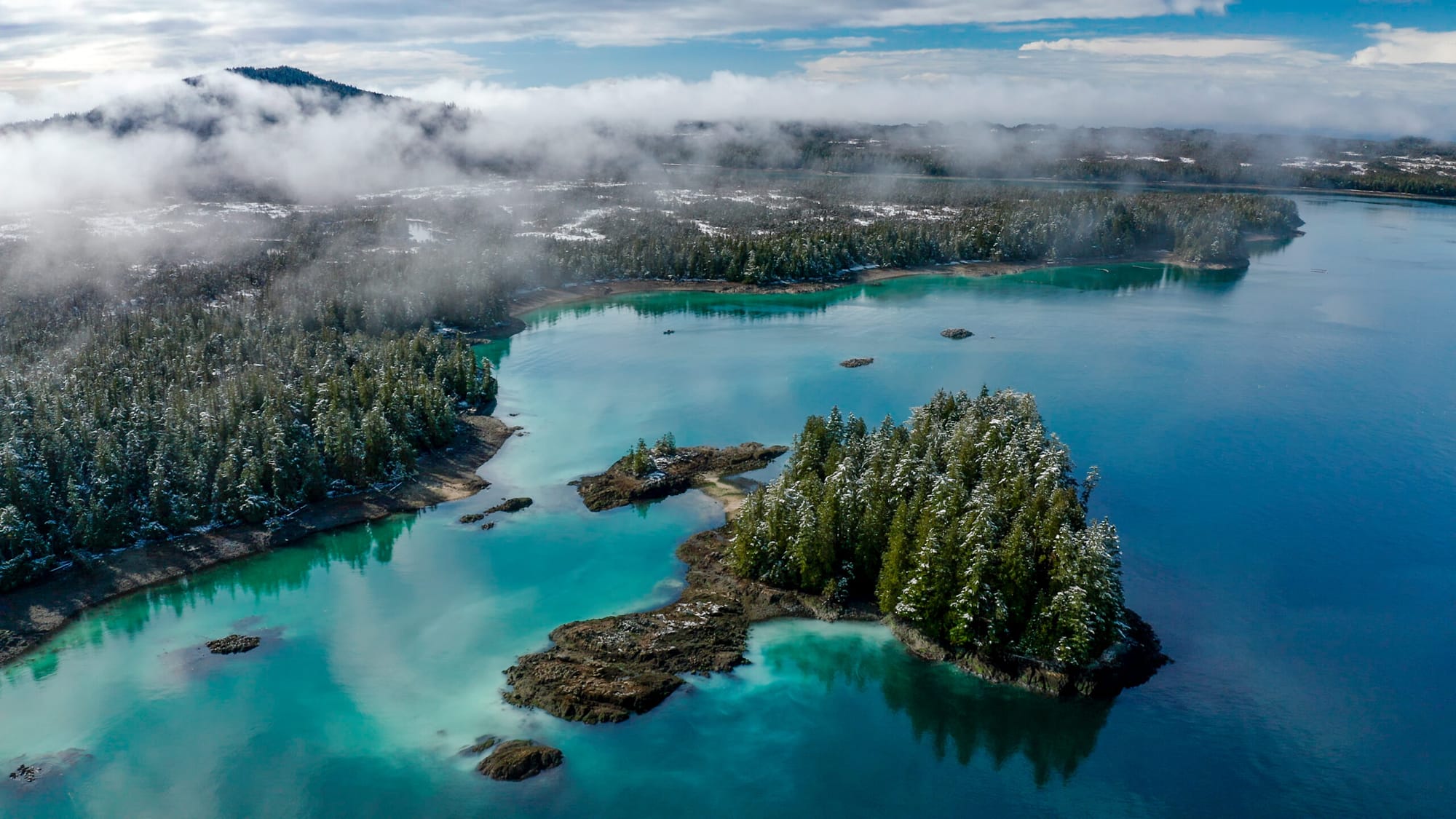
Nigeria to ban single-use plastics
A nationwide ban on single-use plastics—including straws, cutlery, plastic bottles, and small water sachets—will begin January 2025. The country, which generates over 2.5 million tonnes of plastic waste annually, is also drafting a new policy to phase out plastics, with producers expected to shift to alternatives within five years. Reuters
New funding to save America’s most at-risk species
The funds will support conservation projects in 19 states and Guam to conserve 23,000 acres of habitat for 80 listed and at-risk species, including the Indiana bat, wood stork, gopher tortoise, Oregon silverspot butterfly, and Everglade snail kite. The $48 million in grants will be matched by more than $27 million in partner funds. US Fish & Wildlife Service
Colombia has a new national park
Spanning 68,180 hectares—an area nearly four times the size of Washington, D.C.—the National Natural Park Serranía de Manacacías safeguards a vital wildlife corridor that connects the Orinoquía, the second-largest tropical savanna in the continent, to the Amazon. The park includes six unique ecosystems and is home to a quarter of all the bird species known to live in Colombia. The Nature Conservancy
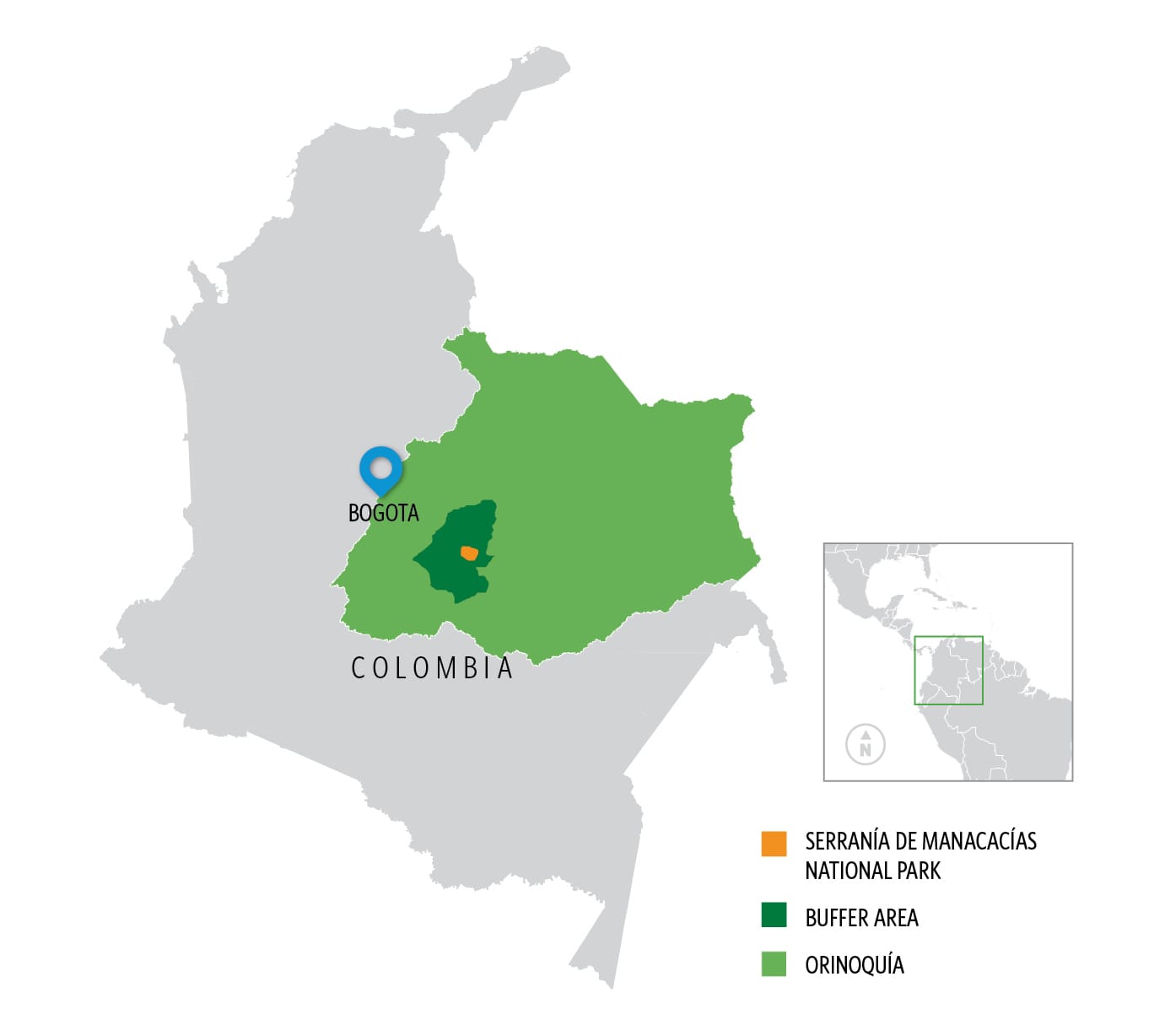
The acquisition of approximately 3,700 acres of land adjacent to the Rio Grande del Norte National Monument will secure vital wildlife habitats, increase public access, and stop development around the park’s boundaries. The expansion is part of a two-decade commitment to preserve New Mexico’s natural and cultural heritage. Trust for Public Land
Conservation and economic development go hand-in-hand
A global analysis of more than 10,000 protected areas has revealed that simultaneous progress in conservation and economic development has occurred in about half of all sites. "Conservation does not happen in a silo. We must consider local development alongside biodiversity conservation to know where and how to protect areas to benefit both the environment and humans." Anthropocene
DRC’s 1 billion trees program achieves 90% of target
From 2019 through 2023, the Democratic Republic of the Congo (DRC) planted almost 895 million trees, covering just under 700,000 hectares across 22 provinces, as part of a government programme known as ‘School Garden: 1 billion trees by 2023.’ The programme aimed to strengthen climate resilience and alleviate poverty in a country that loses 500,000 hectares of forest cover each year. Mongabay
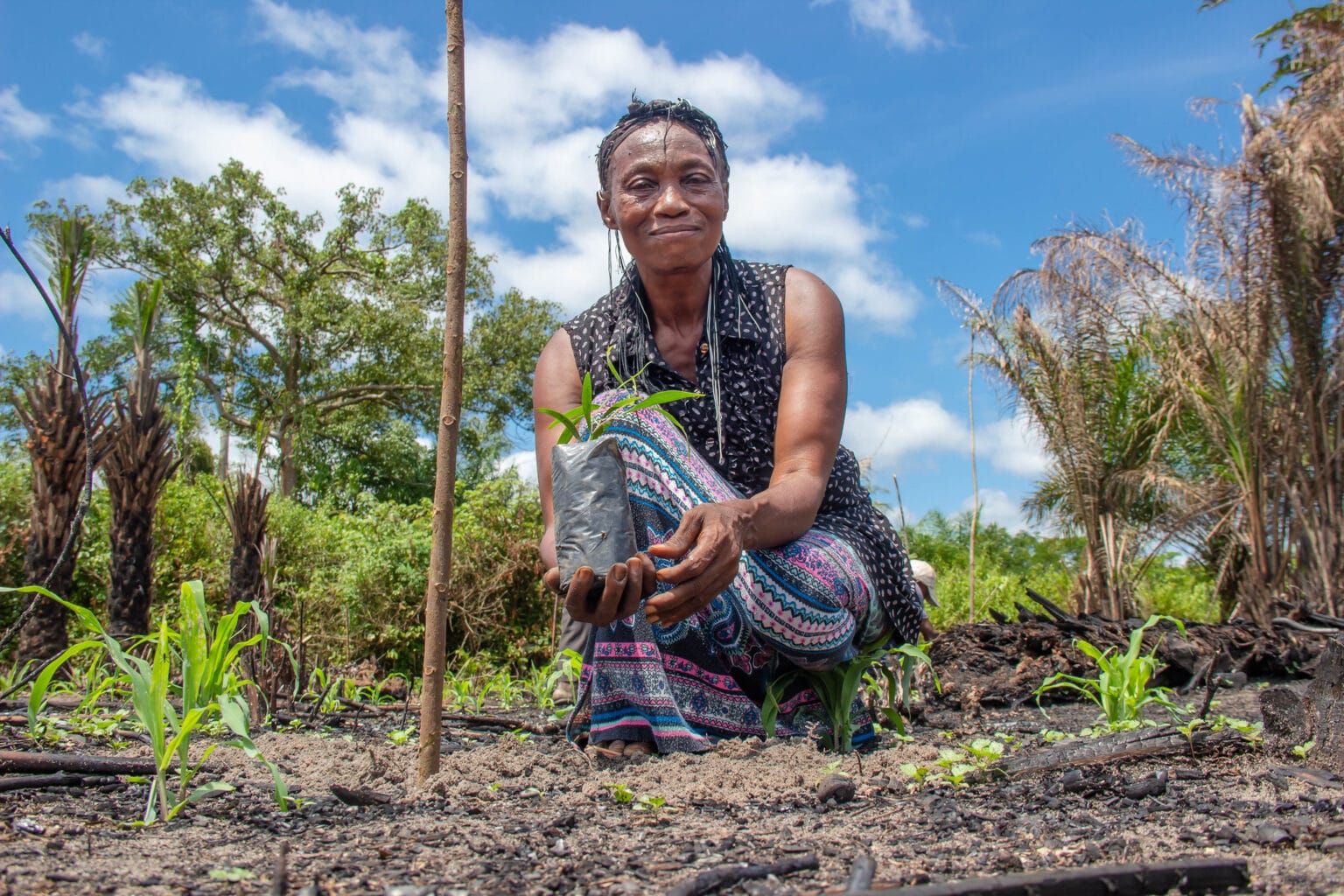
More music for those who will listen
Peru has protected 6,449 hectares of an endemic fog oasis that hosts hundreds of rare and threatened species. The largest salt marsh restoration in the northeast United States is underway in Massachusetts to bring back the Cape Cod river herring. In Maine, rehabilitation will begin on the Penobscot River after a decades-long legal battle. White-tailed eagles are nesting in Belgium for the first time in 500 years. Rewilding in Scotland has created a >400% increase in jobs at rewilding sites. A coalition of organisations is working to restore mangroves in the Greater Florianópolis area on Brazil’s southern Atlantic coast. Atlantic salmon are spawning in the upper waters of the River Derwent for the first time in a century. The incredible ‘second life’ of shipwrecks creating habitats for diverse communities of underwater life. How the Netherlands is leading the shift to a circular economy, with 27.5% of the country’s material resources now coming from recycled waste. European multinationals pull out of an enormous Indonesian nickel mining project amidst concerns it would impact one of the world’s last Indigenous tribes living in voluntary isolation. Developers of the new Babanango Game Reserve in South Africa seem to have made a good start.
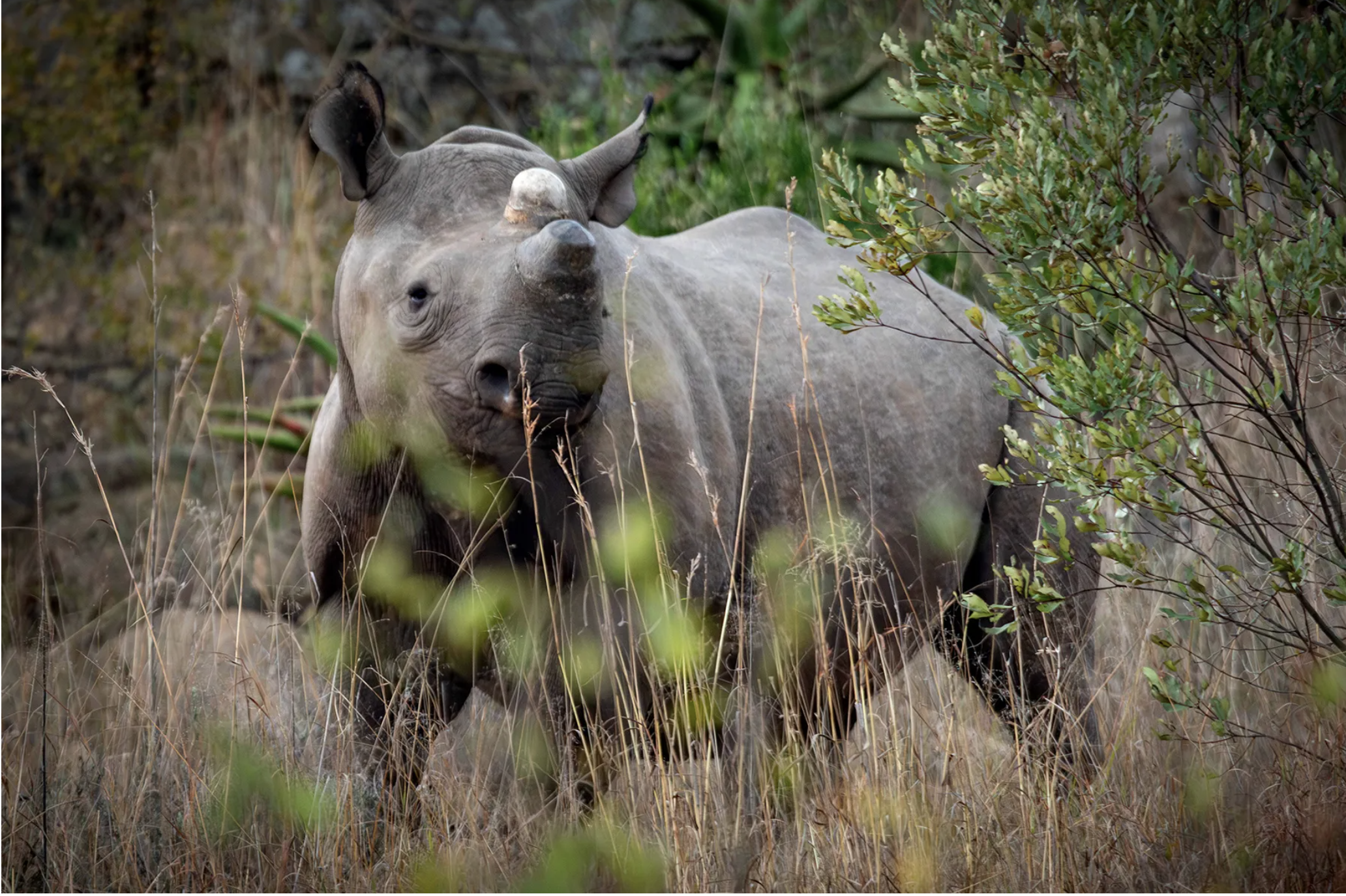
28th June 2024
Marine conservation zones in South China Sea
Over a million hectares of conservation areas called refugia have been established to protect the the biodiversity of the South China Sea, which supports nearly four million people in the surrounding region. "Six countries are now integrating the refugia approach into their national policies. And coastal communities around the region have become protectors of the species they depend on.” UN Biodiversity
This is the world’s first Key Biodiversity Area
Nouabalé-Ndoki National Park in the Republic of the Congo—a critical nature site that has been largely unaffected by human activities—has become the first site in the world to be given this status, due to its high ecological integrity. Covering 4,000 km2 of lowland rainforest, the park has never been logged, contains no roads, and boasts wildlife that has had little to no contact with humans. WCS
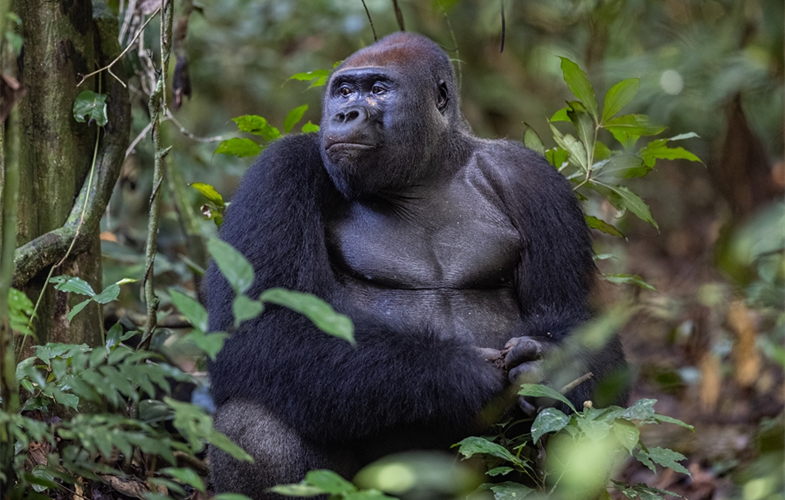
Amur leopard protection in Siberia
North Korea and Russia are rekindling an old flame: science cooperation. In an initial step, the two countries are banding together to conserve the rare Amur leopard. Last month, Russia and China made a pact establishing the Land of Big Cats, a 1.75-million-hectare transboundary reserve for Amur leopards and Siberian tigers. MNR
First cohort of the American Climate Corps sworn in
A modern-day twist on the Civilian Conservation Corps, 9,000 people will be deployed in the coming weeks to restore landscapes, erect solar panels, and work on environmental projects across America to create a greener future. It's expected that more than 20,000 young people will join during the programme’s first year. Grist
Forests in Ukraine are thriving in the wake of disaster
After the Kakhovka Hydroelectric Power Plant dam disaster last year, experts predicted the bottom of the reservoir would turn into a desert. The opposite happened. Young willow forests sprouted, growing to 4.7 m tall in less than a year! About 40% of the land is now covered with forests of willow and poplar thickets that were native to the area before the reservoir was created. Transitions
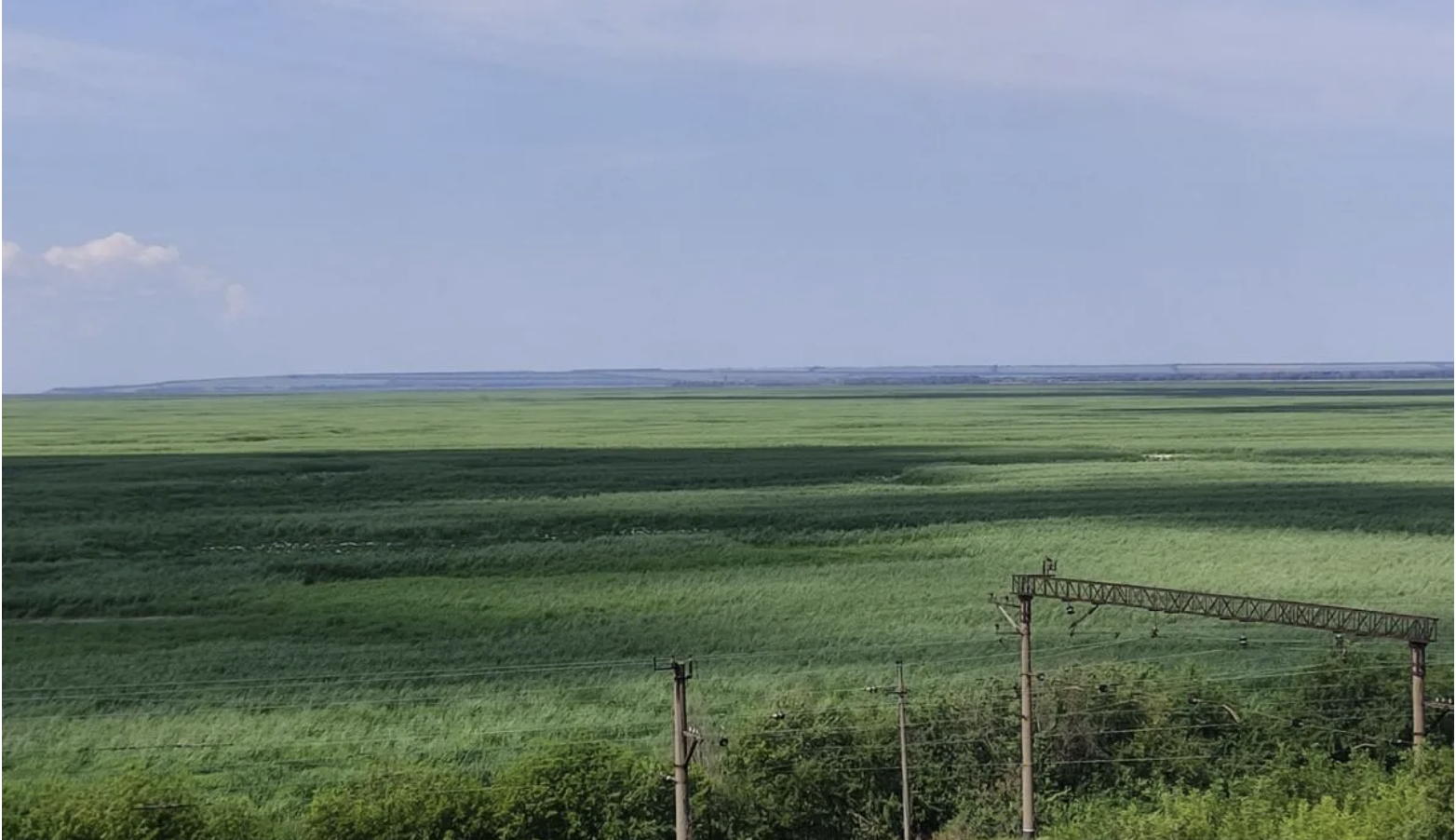
Utah scientists achieve breakthrough in waterbody restoration
The team at BlueGreen Water Technologies has developed a process, now being tested at the Mantua Reservoir in Utah, which oxidizes the algal blooms, knocking out the algae, which settles to the bottom. Testing at Mantua Reservoir safely sequestered 13,000 tonnes of algae, largely restoring the reservoir. KSLTV
Colorado bans 'forever chemicals'
New legislation will ban the sale of products containing PFAS. Starting in 2026, the sale of cleaning products, cookware, dental floss, menstruation products, and ski waxes that contain the chemicals will be banned, and companies will be required to put disclosure labels on PFAS clothing. Colorado is one of 28 states that have adopted policies on PFAS. CBS
Another big Indigenous conservation victory in Canada
The Inuvialuit have signed a new agreement to safeguard almost 850,000 hectares of the Yukon’s northeast coast. The Aullaviat/Anguniarvik Traditional Conservation Area will protect wildlife like the Porcupine caribou herd, polar bears, and migratory birds while preserving Inuvialuit traditional activities. APTN
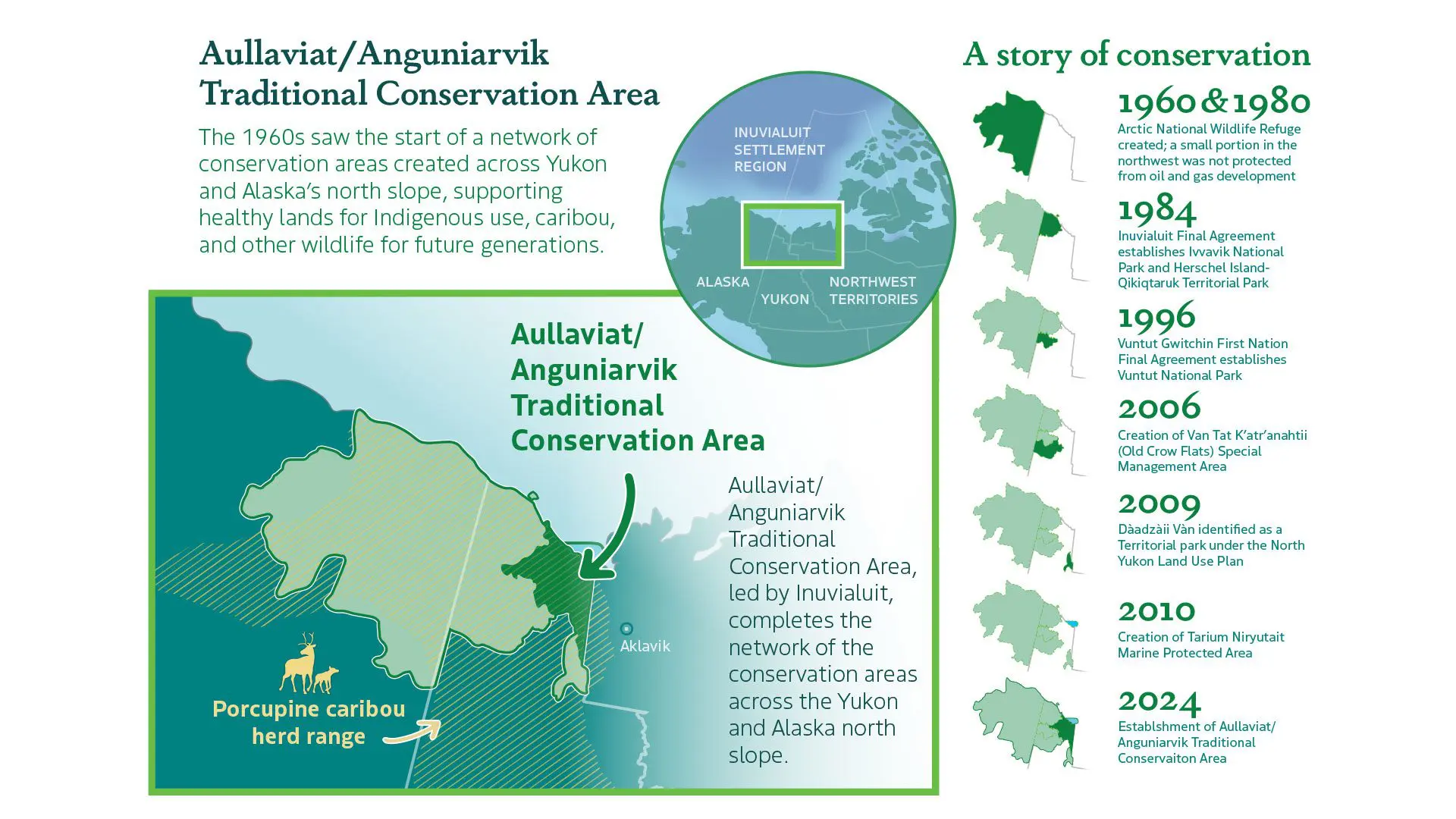
Rare seabird returns to Chilean island
After decades of absence, the Peruvian diving petrel has returned to Pajaros Uno Island following a dedicated effort to eliminate invasive rats. Conservationists played audio recordings of bird calls, which enticed breeding pairs back to their former nesting grounds. The island is also a critical breeding ground for Peruvian boobies, kelp gulls, and the vulnerable Humboldt penguin. earth.com
Recovery of fish populations in European waters
The latest assessment points to the best sustainability results so far. Fish stocks in the Northeast Atlantic, on average, are within healthy ranges, while fishing mortality rates in the Mediterranean and Black Seas have hit their lowest levels. There’s still work to be done in the Baltic Sea, but measurements are in place to ensure four out of ten stocks are no longer targeted. European Commission
Indigenous fire stewardship gains ground in Canada and California
Forestry companies and governments across Canada are starting to incorporate controlled burns, also known as 'good fire,' which have been used by Indigenous communities to maintain healthy forests and prevent the spread of wildfires. Other jurisdictions, like fire-prone California, have passed laws that remove liability for Native American tribes conducting controlled burns. Vancouver Sun
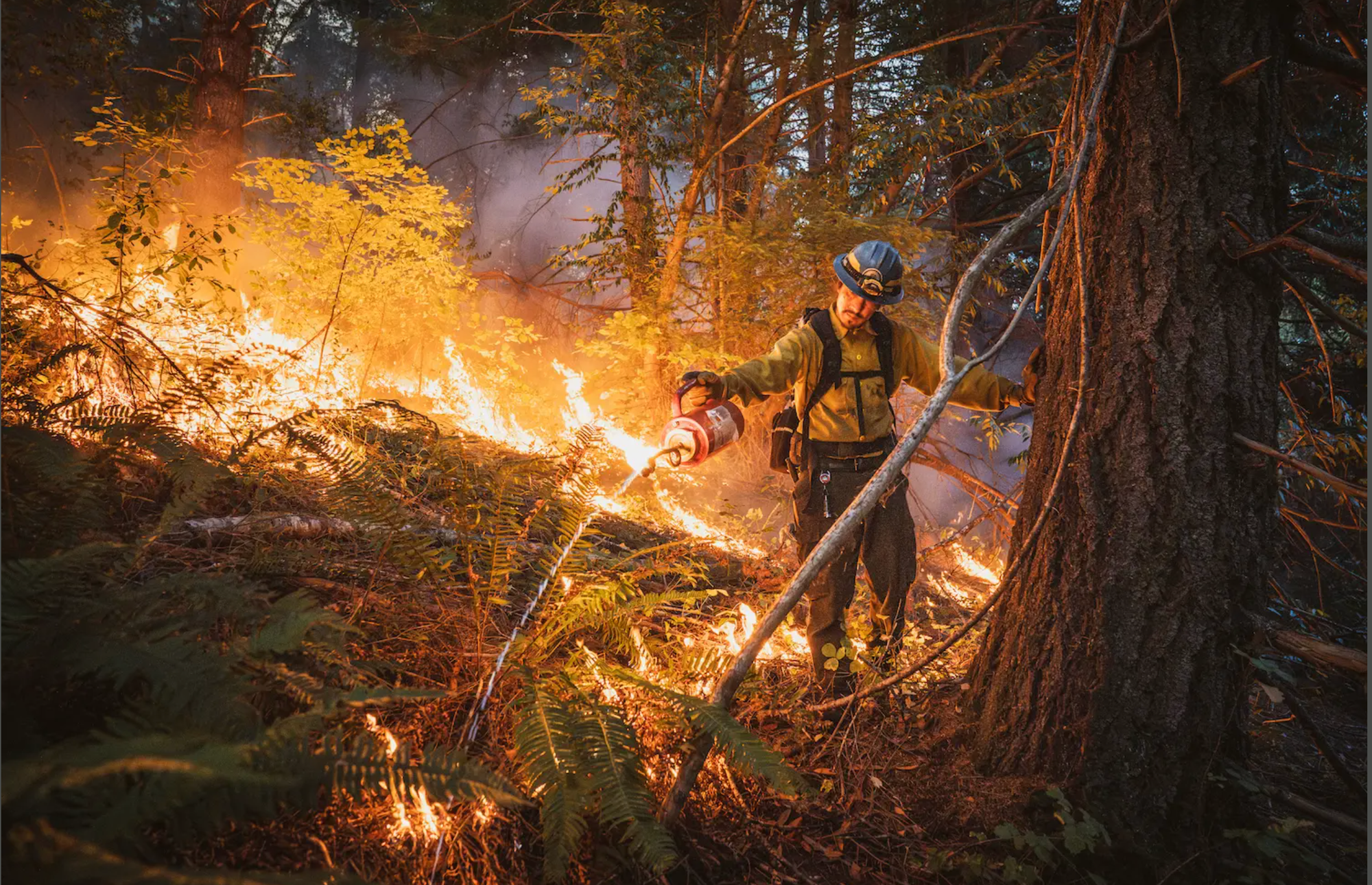
More music for those who will listen
The Iron Law of Environmental Improvement: why didn't they do this sooner? British Columbia has designated 10 new conservation areas in Clayoquot Sound, protecting over 76,000 hectares of old-growth forest, and will also ban open-net pen salmon farming within five years. New Zealand has enforced ‘stringent’ regulations for surface longline fishing after onboard cameras revealed 3.5 times more albatrosses were being caught than expected. California will help return tribal lands as part of the Klamath River restoration. The octopus fisherman protecting Portugal’s largest reef. A volunteer group in Guernsey has removed about 25 tonnes of an invasive plant from the coastline. Vermont has passed some impressive legislation to protect its natural heritage from bee- and bird-killing pesticides. The reinvention of Buenos Aires Zoo into an eco-park that treats injured animals and houses the largest biobank in South America. How the local community of Mnemba Island saved their Indian Ocean coral reef. Thanks to decades-long work, flamingos are returning to Everglades National Park in Florida. In the Brazilian Amazon, the Waimiri-Atroari Indigenous people have built almost 30 ‘canopy bridges’ across roads to save wildlife.
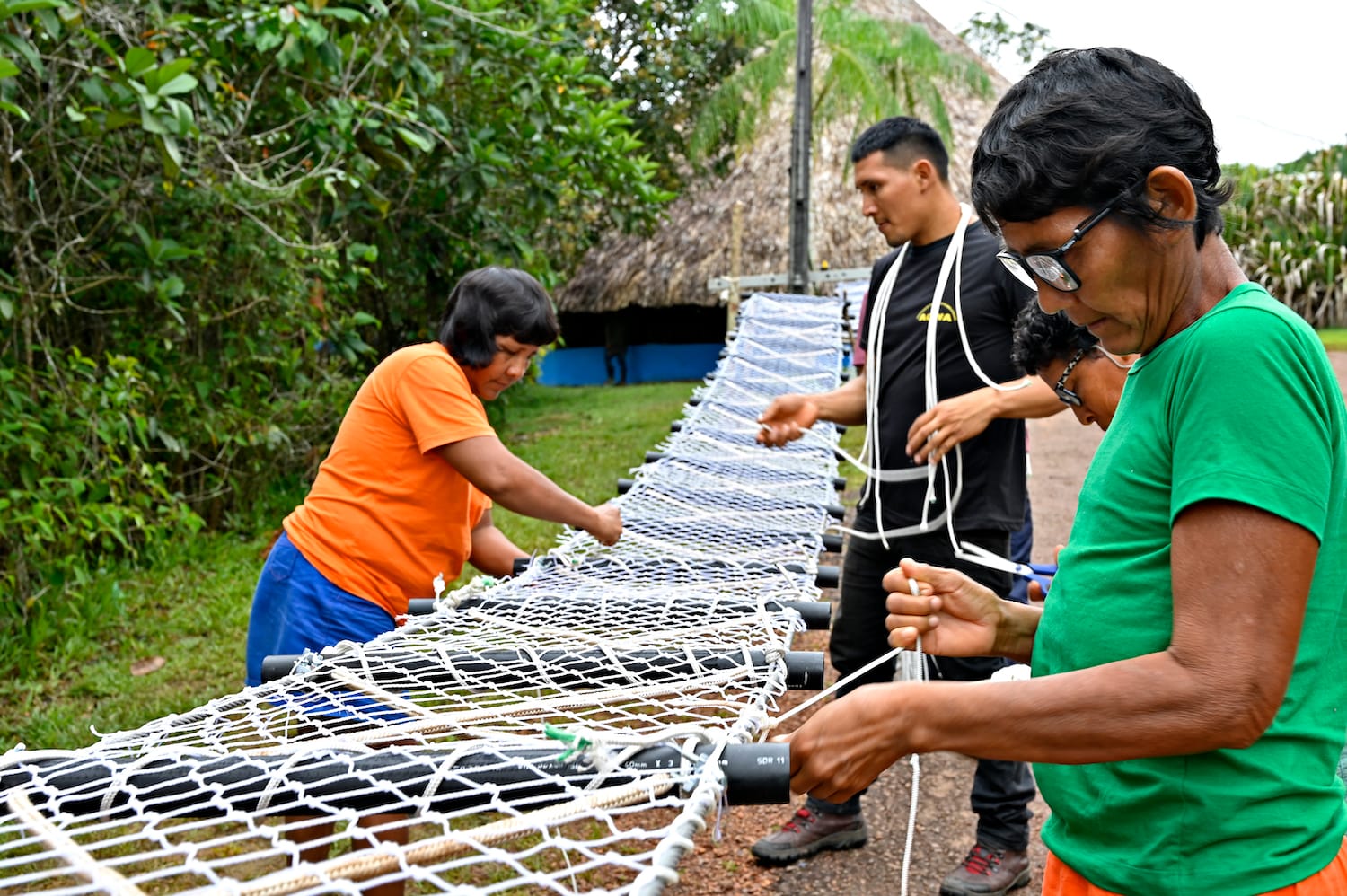
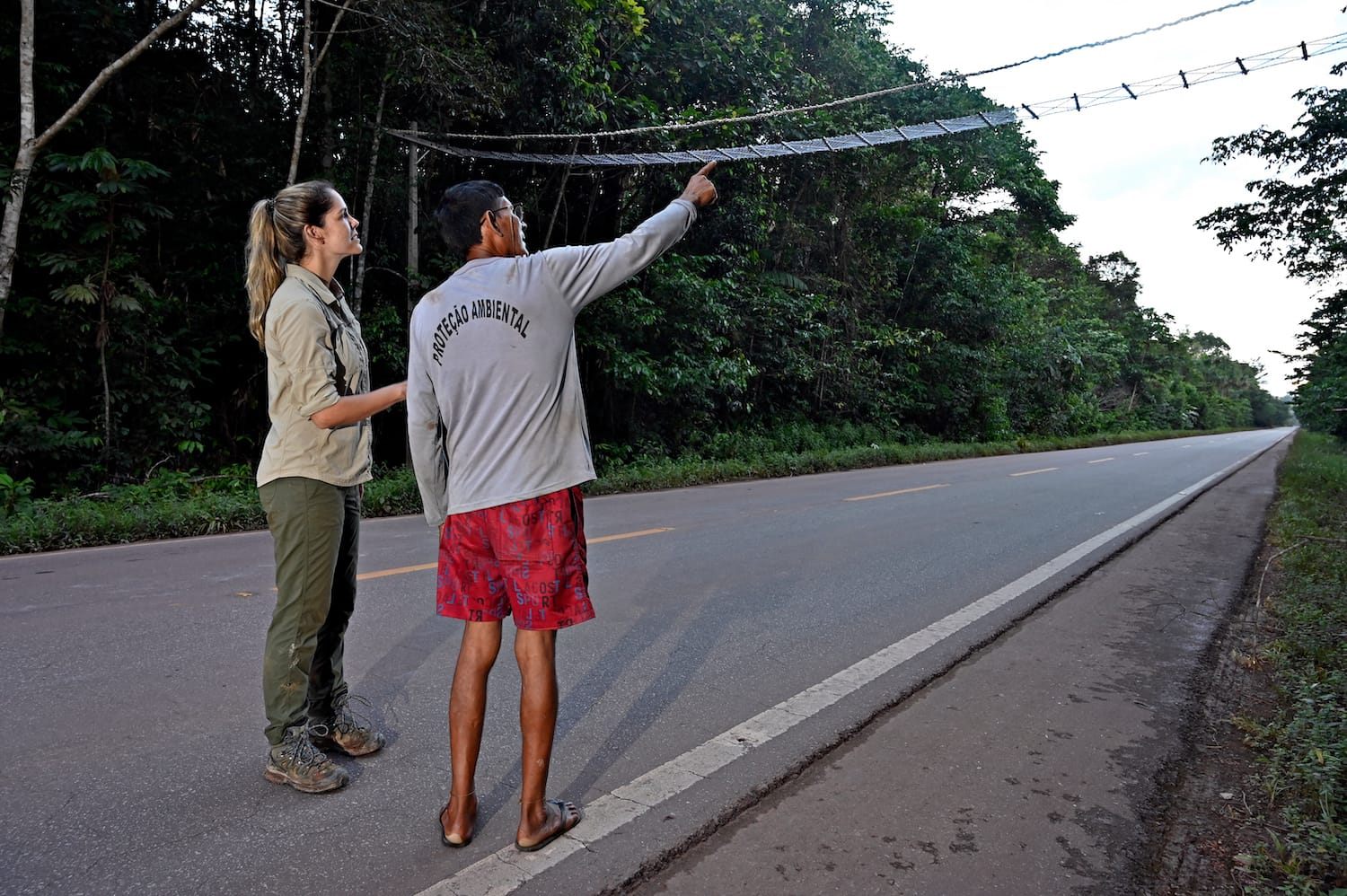
21st June 2024
EU passes landmark nature restoration law
The hero of this story is rogue Austrian minister Leonore Gewessler, whose last-minute vote saved the proposal. It's a dramatic victory for conservationists, ending a months-long deadlock among member states. The new legislation sets a target to restore at least 20% of the EU’s land and sea by the end of the decade. The Guardian
Today’s decision is a victory for nature. My conscience tells me unmistakably [that] when the healthy and happy life of future generations is at stake, courageous decisions are needed.
Leonore Gewessler
New nature reserve in South Africa’s Drakensberg mountains
The new Northern Drakensberg Nature Reserve will protect 6,500 hectares of vital wetlands, grasslands, and water sources for millions of people and open an important wildlife migration corridor. The new park, which is also home to some of the best prehistoric rock art in the world, was declared in record time thanks to a consensus among local landowners. The Conversation
Animal conservation in the Caribbean is paying off
The Caribbean islands have suffered some of the highest extinction rates in modern history. But over the past three decades, conservationists have worked tirelessly to restore 30 islands and have saved 12 species, including the Antiguan racer, one of the world’s rarest snakes, the White Cay iguana, and the Sombrero ground lizard. BBC
$700 million for the Colorado River
The funding will support projects across the Lower Colorado River Basin, including water distribution structures, desalination, and farm efficiency improvements. The basin provides water for over 40 million people and is a crucial resource for thirty Tribal Nations, two states in Mexico, and agricultural communities across the American West. Phys.org
Deforestation in the Amazon continues to plummet in 2024
Despite a rise in fires, deforestation in the Brazilian Amazon has dropped to its lowest level since March 2018. For the year to date, 1,182 square kilometres of forest have been cleared, marking a 40% decrease from the 1,986 square kilometres recorded at this point in 2023. Mongabay
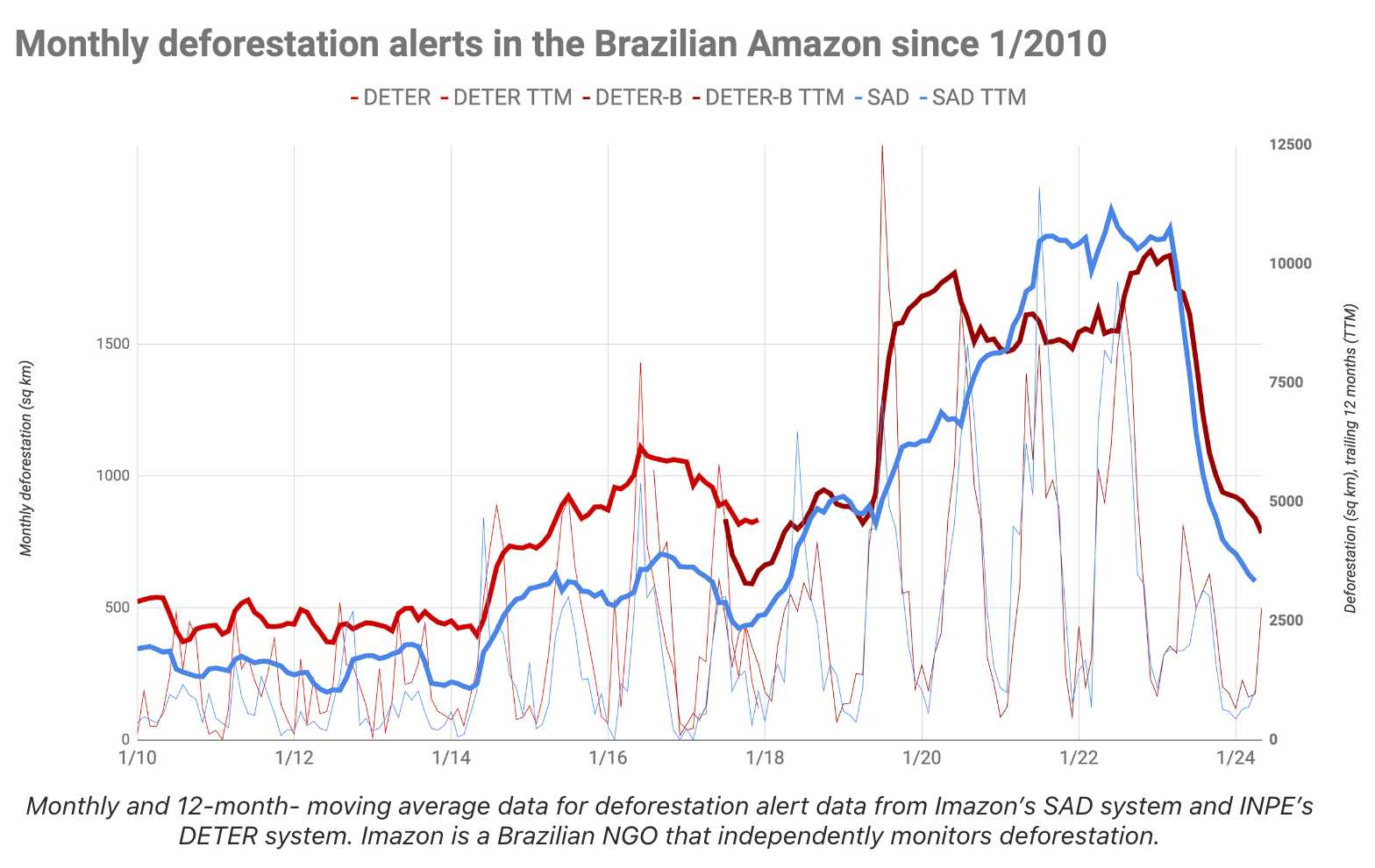
Ecuador is cleaning up its rivers with conveyor belts
A local startup is using conveyor belts to remove plastic from rivers, with the capacity to collect around 80 tonnes of plastic per day. The Azure system stretches across the river to stop objects floating on the surface and extends down 60 cm into the water to allow fish to move freely. It’s a welcome development for a country which has one of the worst plastic waste problems in the region. BBC
The global rise of women-led forest rangers
Much like the team preventing rhino poaching in South Africa, a women-led group of rangers in Indonesia is leading patrols to combat deforestation. They carry no weapons, apart from large blades they use to cut through the forest, and their low-key tactics have been so effective in getting people to change their habits, they’re now sharing their strategies with other women-led groups around the world. AP
Tiger conservation success in Nepal
In the last 15 years, Nepal has tripled its tiger population to 355 thanks to a zero-poaching policy and conservation measures that have doubled forest cover by 45%. The success is benefitting local communities, with Chitwan National Park, home to the largest tiger population in Nepal, now generating 4,000 full-time tourism jobs. World Bank
Endangered caribou habitat is getting protected in Canada
Nearly 200,000 hectares of habitat in northeast British Columbia has been permanently protected in the newly expanded Klin-se-Za/Twin Sisters Park, making it the largest provincial park created in the province in a decade. The Narwhal
One of the most powerful conservation stories of the year
A group of Indigenous women in Peru have won a historic ruling recognising the legal rights of the Marañón River, the main source of the great Amazon. What makes this story ‘nearly transcendent’ is that after decades of patriarchy, it was a female judge of Indigenous descent who listened to the testimony of the women and ruled in favour of the river’s inherent right to life. Common Dreams

More music for those who will listen
How the small Pacific island nation of Vanuatu drastically cut plastic pollution. California's bees and birds will receive increased protections from toxic neonicotinoid insecticides across more than a million acres of fish and wildlife habitat. Brewing giant Heineken just celebrated its first regenerative harvest. The ambitious national plan to rewild Saudi Arabia. How Comoros is leading the way with community-led fisheries. Indonesia’s Social Forestry Program is reducing poverty with forest permits. State-level laws are creating a strong protection framework for domestic animals in the United States. The bee-whisperers in South America saving native bees. A cloud forest in Northern Ecuador is thriving after being granted personhood. The incredible comeback of the Californian condor. Agricultural drones are transforming rice farming in the Mekong River delta, cutting down on the amount of pesticides and fertilizers. The US federal government is dedicating $130 million for abandoned mine reclamation in six states. Can we revive our planet in 20 years? Biologist Sean B. Carroll says we can.
13th June 2024
Major milestone for ozone layer recovery
Levels of hydrochlorofluorocarbons (HCFCs), the last ozone-damaging chemicals to be phased out, have been falling since 2021—the first decline since scientists started taking measurements in the late 1970s. 'This marks a major milestone in the recovery of Earth’s ozone layer – and offers a rare success story in humanity’s efforts to tackle climate-warming gases too.' The Conversation
China’s Green Great Wall against desertification
Since 1978, China’s ambitious Three-North Shelterbelt Forest Program has reforested 32 million hectares of desert-prone lands in the north of the country. The program has flourished thanks to scientific plant distribution methods and the rise of agrivoltaics, which combines new energy power generation with agricultural production, expanding greenery in fragile sandy areas. China Today
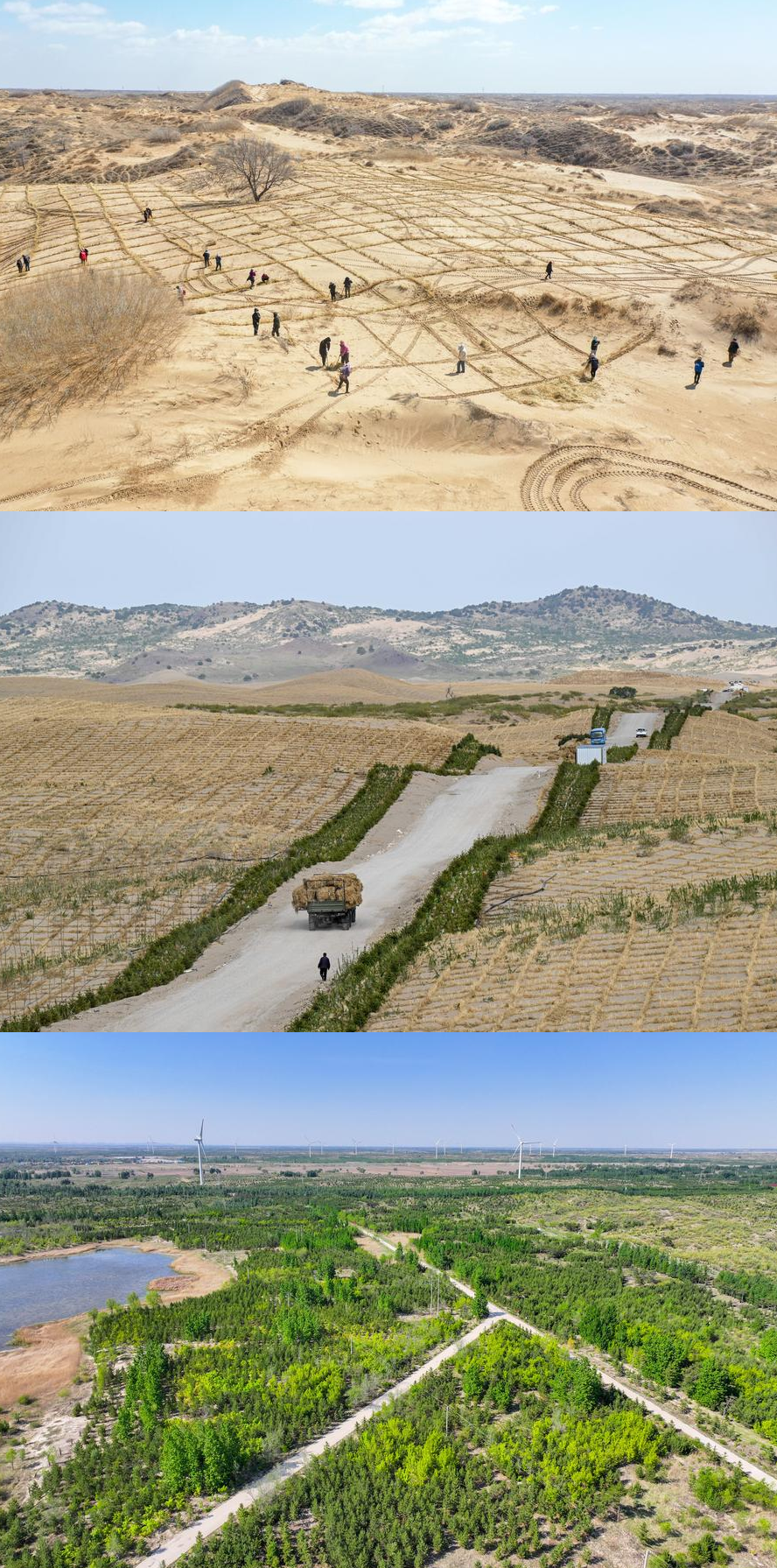
Brazil boosts protections of mangroves in the Amazon
After 13 years of advocacy, the state of Pará has created two new conservation areas along the Amazonian coastline, protecting an additional 74,700 hectares of the most continuous belt of mangroves on the planet. The Filhos do Mangue and the Viriandeua extractive reserves will preserve the area’s rich diversity and guarantee food security for local communities. Mongabay
Wild horses return to Kazakhstan
After a 200-year absence, a group of seven Przewalski’s horses—known as the world’s last wild horses—have returned to central Kazakhstan. The horses are descended from two groups that survived in Munich and Prague zoos, and a total of 40 horses will be relocated over the next five years. The Guardian
Biden administration’s environmental track record
During Biden’s term, around 41 million acres—an area slightly larger than Florida—has been placed under some form of new protection, making him 'one of the nation’s strongest conservation presidents.' Protections range from glacial lakes in Minnesota to tribal lands in New Mexico, huge expanses of the Arctic, and archaeological sites in Texas. The Guardian
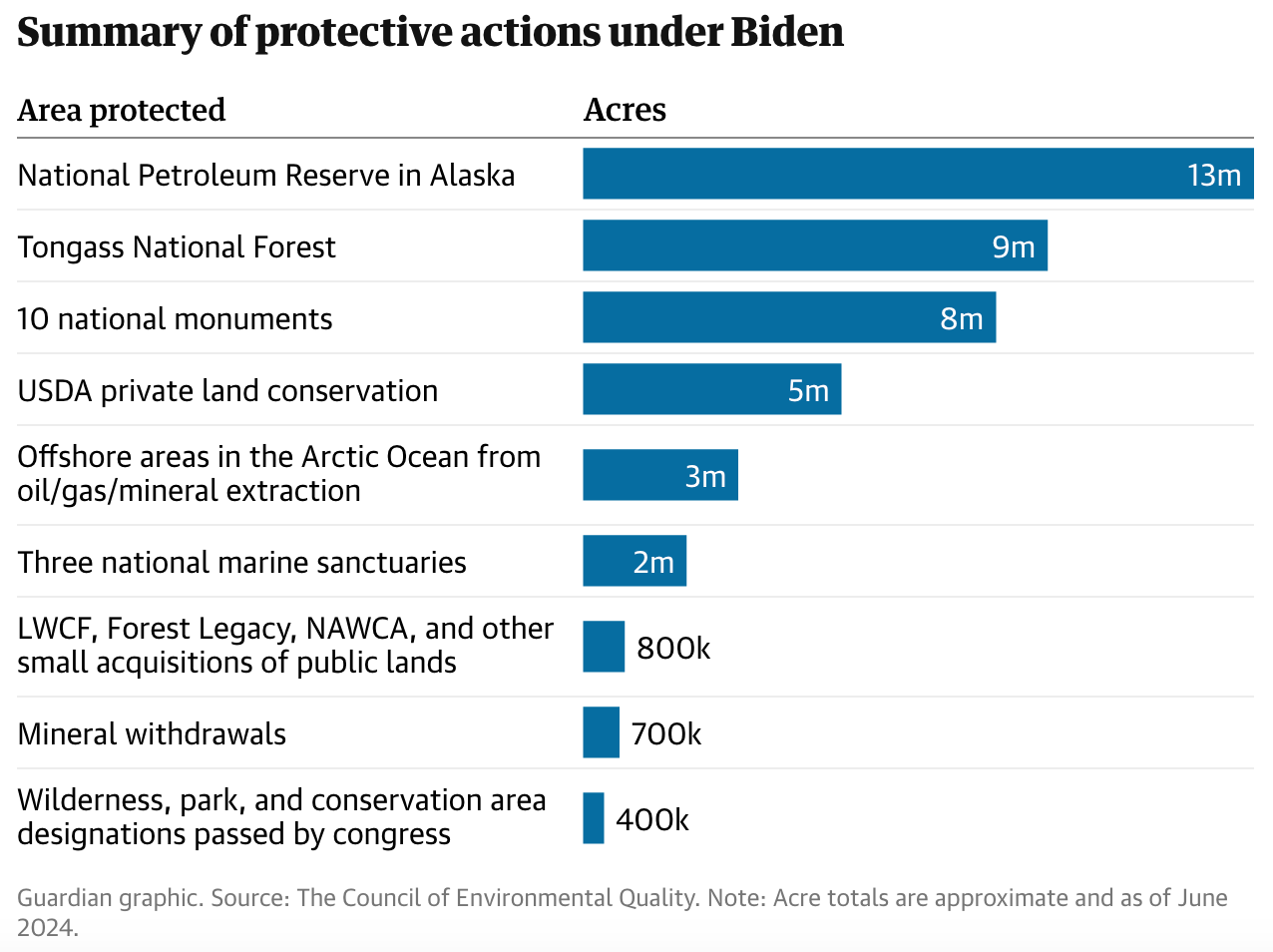
Cleanup of Washington’s ‘forgotten’ river
Twenty-five years ago, the Anacostia River, a 14-kilometer urban waterway that flows through Washington, D.C., was one of the most polluted rivers in America. Today the water quality is steadily improving, after a series of tunnels that reduced outflows of sewage and wastewater by 91% were drilled under the city. AP
New national park in Australia will be home to 12 threatened species
The 37,422-ha Comeroo Station in NSW provides habitat for at least 158 native species, including the threatened eastern fat-tailed gecko, the south-eastern hooded robin, and the Hall's babbler. The property boasts alluvial floodplains, wetlands, grasslands, woodlands, and Yantabulla Swamp, an internationally-recognised area that hosts up to 50,000 waterbirds at any one time. Mirage News
California is building the world’s largest wildlife bridge
Construction has begun on the Wallis Annenberg Wildlife Crossing, a $100 million structure that will give threatened mountain lions and other animals such as bobcats, coyotes, and mule deer a safe path over a 10-lane freeway. The bridge will span roughly the size of a football field, reconnecting the Santa Monica Mountains with the Simi Hills; it is expected to open in early 2026. Washington Post
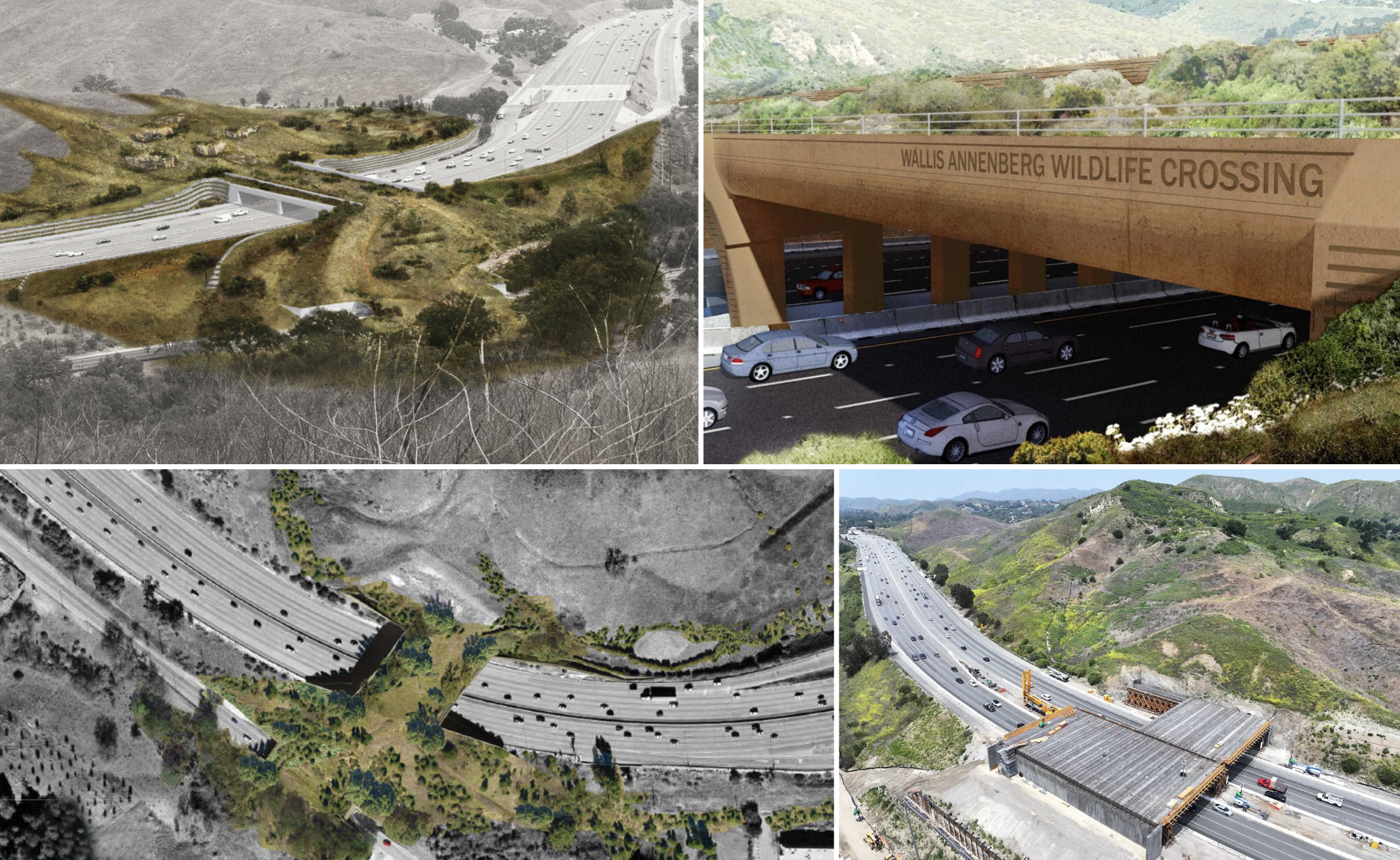
More music for those who will listen
Rewilding efforts are throwing a lifeline to Brazil’s most-trafficked endangered bird, farmers in Bolivia are improving their livelihoods by protecting the endangered red-fronted macaw, and birding tourism is thriving in Ecuador. Sweden is about to become the second EU country, after Greece, to ban bottom fishing in MPAs. Exciting news for vulture populations in Bulgaria. A historic rewilding project has seen 120 southern white rhinos translocated to Kruger National Park. In Bangladesh, olive ridley turtles break a four-year record with a 53% increase in eggs. Mangrove restoration is underway in the Niger Delta. A conservation victory for California’s Mendocino forests is good news for the endangered coho salmon, steelhead trout, and northern spotted owl. This innovative Australian organisation uses marine trash to track ghost nets in the ocean. How Indigenous aquaculture is healing ecosystems and communities in Hawaii. The number of nature-based policy announcements from governments around the world has doubled in the past year. And finally, a reminder: it's actually just one big ocean.
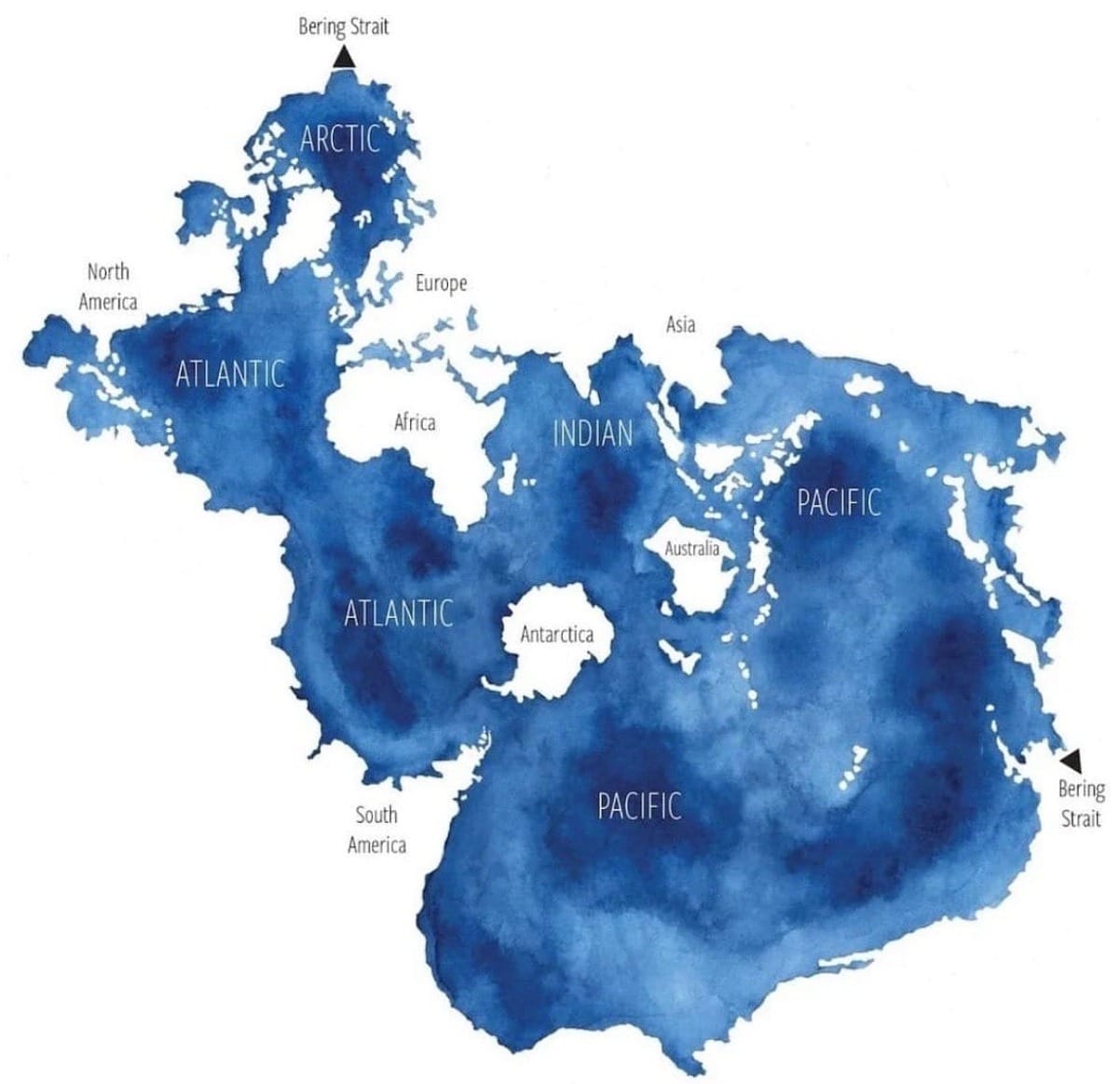
6th June 2024
A new $300 million plan to clean up industrial sites in the US
The EPA has announced new funding to redevelop 200 industrial sites across the country, and an additional $14 million will be invested into a brownfields job training program. The redevelopments will improve air, water, and soil quality and add tens of millions of dollars in local tax revenues. The Guardian
China ramps up clean water efforts
For the first time, China has issued national-level regulations on water conservation to help manage shortages across nearly two-thirds of its cities. A total of 145 national water-saving cities have been established, focusing on wastewater reuse and 'sponge city' construction—which emphasises flood management through green infrastructure rather than relying on drainage systems. China Daily
New protected area in Bolivia
The Puerta Amazónica municipal conservation area in Guanay will protect 426 km2 of tropical Yungas forests, which are home to several vulnerable species, including the harpy eagle, the giant anteater, and the giant armadillo. The designation will protect the area from gold mining and support water security for the 26 communities located within the reserve. Andes Amazon Fund

$400 million project for resilient forests in Türkiye
The Türkiye Climate Resilient Forests Project will strengthen wildfire management for the 14 provinces that are most at risk of wildfires. In 2021, Türkiye’s southern and western regions experienced their worst wildfires ever recorded. The selected provinces are home to about 20 million people, many of whom depend on the forest for their livelihoods.
The restoration of Bear River kicks off
The restoration of Wuda Ogwa, the site of the 1893 Bear River Massacre, has begun. In 2018 the Northwestern Band of Shoshone acquired land around the massacre site to restore the land, improve water quality, and send an additional 13,000 acre-feet of water to the Great Salt Lake every year. 'Cultural healing is the reason we started… to heal that land there.' Great Salt Lake Collaborative
The incredible comeback of barn owls in Britain
Collaborative efforts of conservationists and communities have drastically increased barn owl populations across the British Isles from 4,000 breeding pairs in 1980 to around 12,000 breeding pairs today. One of the key strategies has been the installation of nest boxes, which provide safe nesting sites in areas where natural sites are scarce. Restore Our Planet
'The story is an inspiring case of how small groups of dedicated conservationists and communities, with a little ingenuity and effort, can have extraordinarily positive effects on one species.'
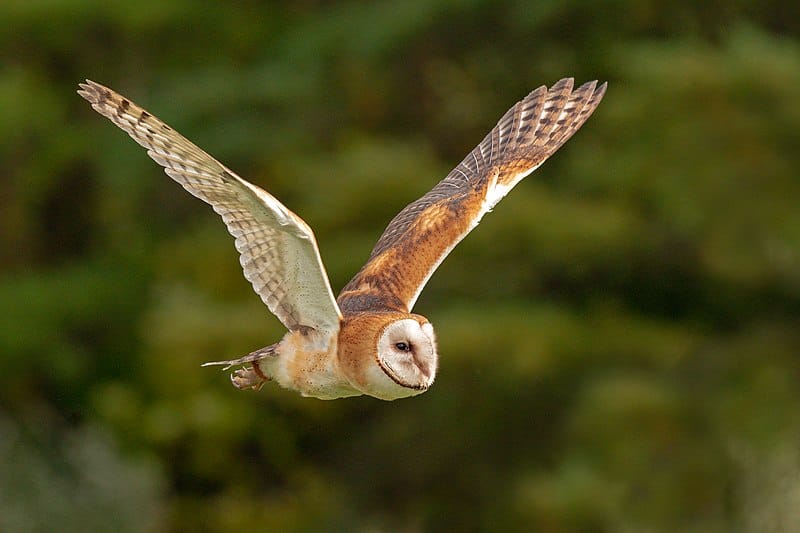
Marine protected areas shown to conserve sharks
Drowning in a sea of bad news? A global survey of 66 MPAs across 36 countries found that there were twice as many reef sharks in protected areas compared with fished areas—and the conservation benefits of MPAs double when combined with fisheries management. Nature
Good news for a small Australian native fish
Over the past eight years the population of the red-finned blue-eye, once Australia’s rarest freshwater fish, has grown from 1,000 to 5,000 on a special wildlife reserve in Queensland. The former cattle station is home to 26 fish species that are found nowhere else in the world, which 'helps us understand how life functions, how diversity is created, how our world has changed.' The Guardian
Vietnamese ‘farmfluencers’ are making rice fields more sustainable
In Vietnam, 1,645 rice farmers have adopted more sustainable methods thanks to a 'train-the-trainer' programme that has helped 20 influential farmers encourage communities to reduce burning and pesticide use and improve water management. To date, 90% of farmers involved in the project have reduced crop burning, with 57% ceasing the burning of rice straw and stubble altogether. RTBC
Paris has reduced air pollution by 40% thanks to urban renewal
Paris has closed more than 100 streets to motor vehicles, tripled parking fees for SUVs, removed roughly 50,000 parking spots, and constructed more than 1,700 km of bike lanes since Mayor Anne Hidalgo took office in 2014. 'How did we achieve this? By assuming a major and radical rupture: the end of car-dependence.' NBC

More music for those who will listen
The Eastern Kuku Yalanji people are collaborating with conservationists to create a wildlife corridor between the Daintree Rainforest and the Great Barrier Reef. Sustainable projects are offering new hope for the Mekong River. The population of a tiny desert fish hit a 25-year population high in the Mojave Desert. A decade after its pest eradication programme, Macquarie Island is ‘flourishing.’ Fish stocks in the Yangtze River are up 25.6% following the introduction of a 10-year fishing ban in 2021. A forest restoration project is bringing birdlife back to Angola’s highest mountain. A record 27 Mexican wolf pups have been fostered into wild dens. Seoul has banned a popular pesticide in order to protect honeybees. Atlantic rainforest restoration in Scotland surpassed its 2023-2024 target by 40%. Environmental education is thriving across Latin America. Across California and Oregon, 1.2 million acres of critical habitat for the Pacific marten have been protected. The US has invested $240 million in new fish passage projects to support conservation efforts. Colombia has banned bullfighting across the country from 2027. Meet the First Nations guardians protecting Canada’s shoreline.

30th May 2024
European cities are embracing nature-based solutions
A new report by the European Environment Agency (EEA) has found that European cities are increasingly turning to nature-based solutions like urban forests, water management, and greening buildings to help combat climate change. Germany is leading the way, with green roofs and facades to enhance rainwater absorption, cool buildings, and improvements to air quality. WEF
Uzbekistan and Kazakhstan are reforesting a dried-out sea
Both countries are working with locals to plant drought-resistant plants in the dry lakebed of the Aral Sea to prevent sandstorms and mitigate the health impacts of toxic dust. Over the past five years, a forest covering 1.7 million hectares has taken root on the Uzbekistan side of the border, with an additional 200,000 hectares planned for this year. Mongabay
Wolverines to return to Colorado’s high country
Colorado lawmakers have approved a bill to restore North American wolverines to the Rocky Mountains for the first time since they were exterminated in 1919. Colorado holds about 20% of the wolverine habitat in the western United States and is key to ensuring the animal's survival. KSUT
Decrease in cancer-causing pollution from refineries in the US
Oil refineries across America have reduced their emissions of benzene—a toxic chemical that can cause leukaemia and other blood cancers—thanks to EPA regulations and monitoring. The number of refineries exceeding action level for benzene in 2023 halved from 2020, ensuring greater protection for hundreds of communities positioned nearby. Washington Post
Mangrove conservation in Rio de Janeiro
Over the past four years, the Green Guanabara Project in Rio de Janeiro has restored a huge area of mangroves, planting 30,000 trees in Guanabara Bay. The initiative will help safeguard one million residents in the nearby city of São Gonçalo from flood while preserving marine biodiversity and reducing river pollution. PBS
Succulent restoration in South Africa
An initiative in South Africa will restore a native carbon-absorbing succulent, called spekboom, over 100,000 ha of degraded land across the Eastern and Western Cape provinces. In addition to removing an estimated 30 million tonnes of carbon, the project will also create 1,000 jobs for local communities. Straits Times
The Recovering America's Wildlife Act is a bipartisan unicorn
The RAWA is poised for another vote on the US Senate floor. If successful, it will secure an annual $1.3 billion for wildlife agencies and $97.5 million for conservation work by tribal nations, reaching thousands more species in need of conservation and potentially restoring some populations before they become endangered. High Country News
US conservationists take on mining interests
A gold mining project in California’s Sierra Nevada Mountains has been struck down to protect the habitats of unique species including bighorn sheep, golden trout, and the elusive slender salamander and Mount Lyell salamander. In Arizona, tribal nations have joined forces with the federal government to protect the Baaj Nwaavjo I'tah Kukveni – Ancestral Footprints of the Grand Canyon National Monument from uranium mining.
Restoration of the Elwha reveals long-term benefits of dam removal
Scientists in Washington State studying the Elwha River delta over the decade since the dam came down have revealed the positive impact the dam removal has had on coastal ecosystems. Despite an initial die-off of kelp due to suspended sediment, the river’s mouth has now been completely transformed, with a series of lagoons and new ecosystems providing 'a beautiful deltaic habitat.' Hakai Magazine
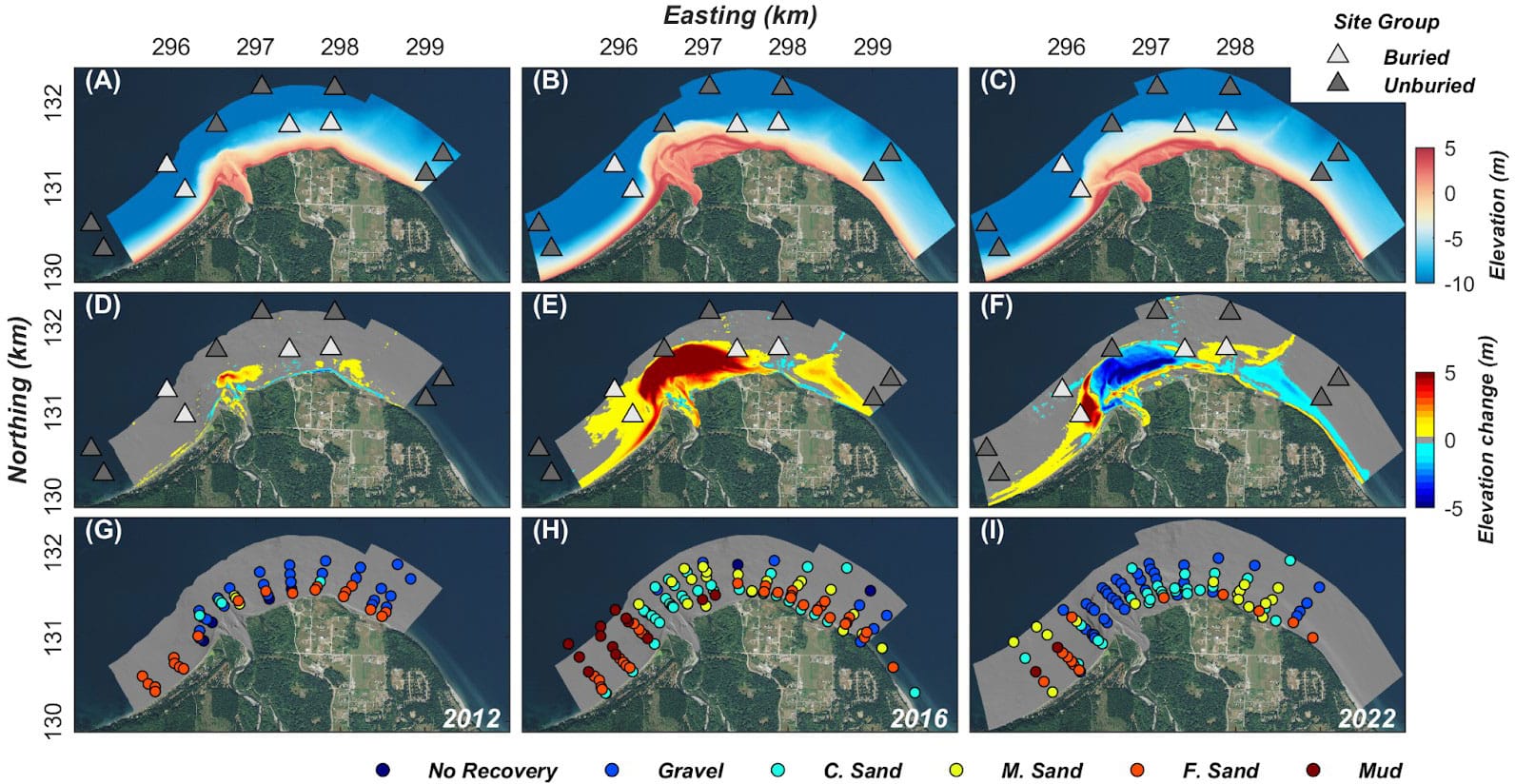
More music for those who will listen
Scientists have created a butterfly forest in the Italian Alps to help boost the global butterfly population. The 'mountain jewel' plant, which was believed to be extinct in the UK, has been re-introduced in a top-secret location. A flightless bird and a gliding mammal thought to be extinct have been discovered in the wild. How the Miccosukee Tribe of Indians of Florida plan to stop oil drilling in the Everglades. Water quality levels on the Klamath River are improving amid dam removal work. A rare songbird's epic journey from the edge of extinction. Measures to protect India’s Ganges river dolphin are working, with population numbers increasing to 4,000. Increased protections for the world’s largest urban national park in Brazil. The 'remarkable' return of an endangered frog species in California. Meet the ‘River Champions’ who are fighting to preserve Europe’s last free-flowing rivers. A timely reminder from Brenna Quinlin.

23rd May 2024
The Iberian Lynx is almost free from the risk of extinction
The lynx population in Spain and Portugal has reached 2,000, a milestone that decreases the big cat’s risk of extinction. Twenty years ago, there were less than 100 in the wild, but thanks to targeted efforts by conservationists and communities, the population has steadily increased since 2015. Olive Press
Papua New Guinea passes new laws to protect biodiversity
Papua New Guinea recently passed a Protected Areas Bill, signalling a new era for biodiversity conservation. Fourteen years in the making, with support from the Australian government, the bill paves the way for traditional owners to have greater control and benefit from conservation. DCCEEW
Rewilding in Romania
Rewilding efforts have scaled up in the Southern Carpathians with Retezat and Domogled-Valea Cernei National Parks pledging more than 105,000 hectares of additional land. With free-roaming bison now thriving in the area, Rewilding Romania is working to identify natural corridors between the national parks and planning to reintroduce griffon vultures in 2025. Rewilding Europe
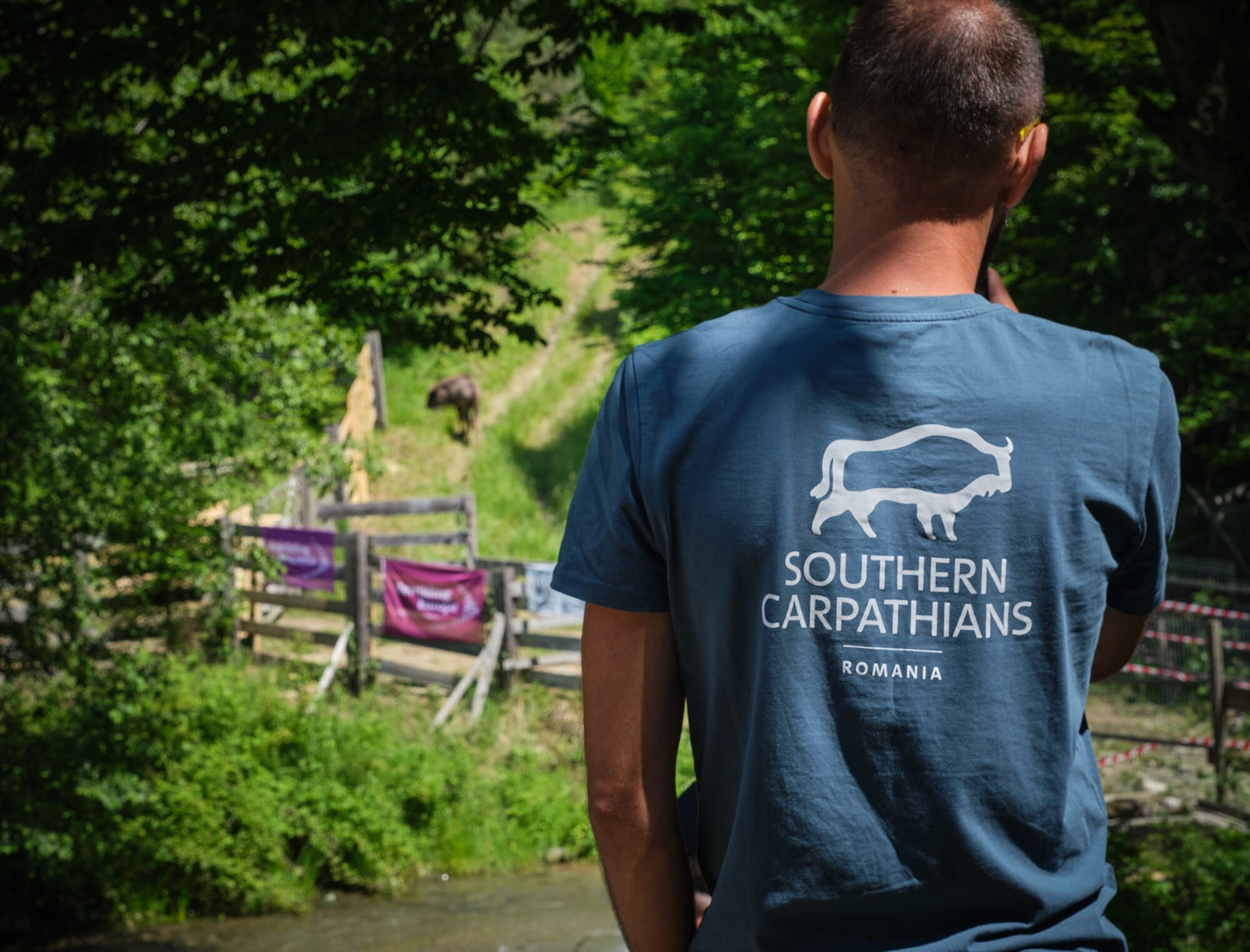
Locals save the Yosemite of South America
In a landmark agreement, a Chilean businessman has agreed to sell his 325,000-acre property to the environmentalists who fought against his development plans. The $63 million sale will preserve some of the most ecologically significant territory in South America, including forests of ancient Alerce trees and the Cochamó Valley, a cathedral of towering granite walls. NYT
The US is ramping up endangered species protection
Protections have been finalised for ten endangered species, including the alligator snapping turtle, the Suwanee snapping turtle, Washington’s Mount Rainier white-tailed ptarmigan, the Peñasco least chipmunk, and six species of Texas mussels. Critical habitats of the Humboldt marten, the Barrens topminnow, the Pearl River map turtle, and a Tennessee fish will also be protected by the end of the year. FWS
Southern white rhinos return to South African wilderness
In a new initiative spearheaded by the NGO African Parks, dozens of southern white rhinos have been reintroduced to the wild across South Africa. This marks the first phase of a larger plan to release 2,000 rhinos into conservancies across the continent. African Parks
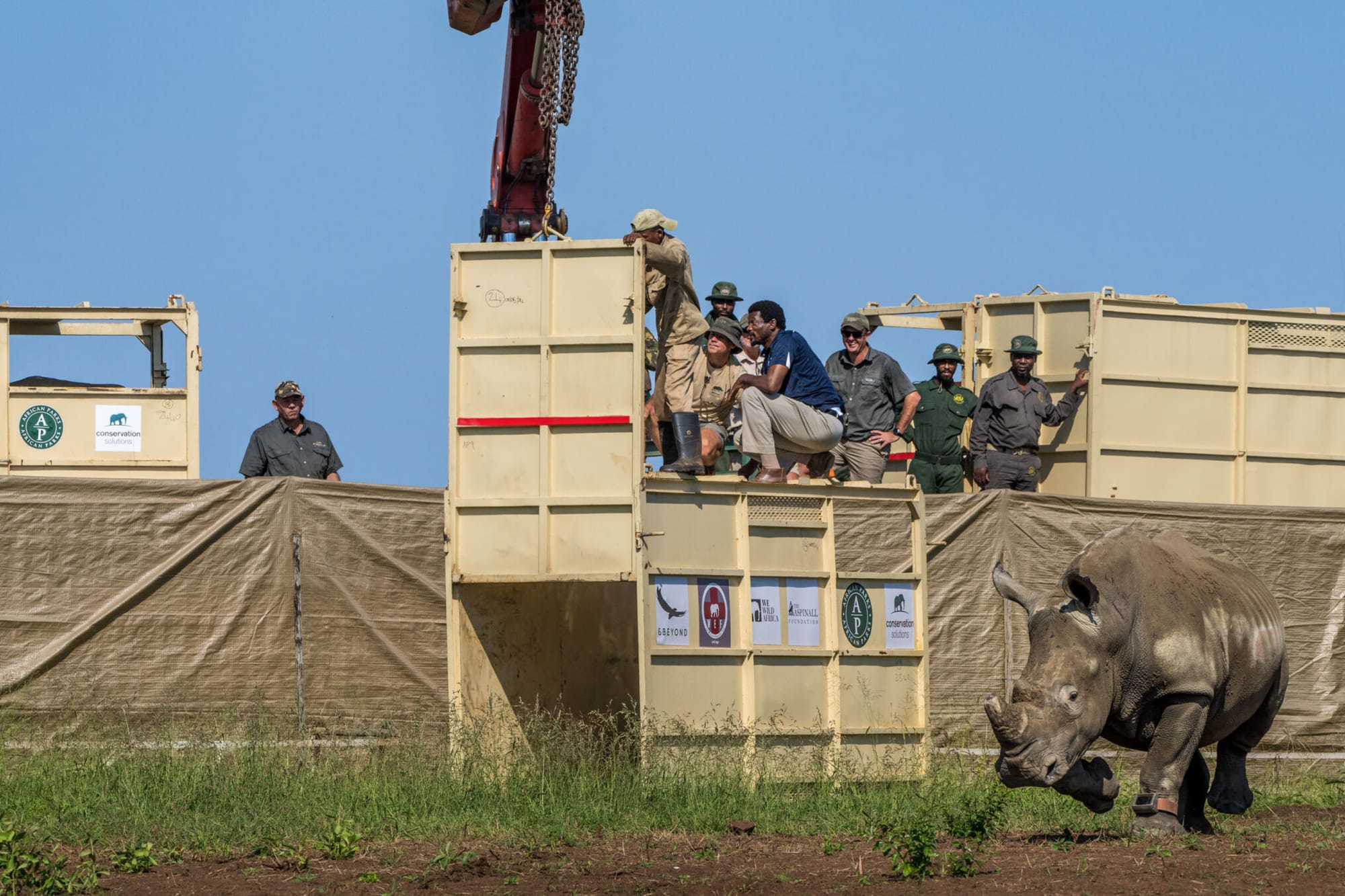
India’s forest cover has increased significantly
Over the past 15 years, India has made 'significant advancements in forest conservation' and now ranks third globally in net gain in average annual forest area. The country has also celebrated 50 years of Project Tiger and 30 years of Project Elephant to protect critical habitats; additionally, India has introduced the 'Green Credit Programme' to incentivise tree plantations and the restoration of degraded forest lands.
The secret behind Mexico’s forest success
Over half of Mexico’s forests are managed by Indigenous communities, resulting in greater biodiversity, fewer wildfires, and improved livelihoods. Of the 21,000 communities, 1,600 engage in sustainable logging, which has been 'instrumental in helping people to get out of poverty.' Sophisticated community governance and state policies have also played a role. The Guardian
Historic agreement for Colorado River Indian Tribes in Arizona
This agreement, 40 years in the making, allows the tribe to lease their allocation of Colorado River water to users who are off tribal land, freeing them from federal restrictions. The financial gain will help tribal members build essential infrastructure and update agricultural systems while contributing to water conservation efforts across Arizona. Inside Climate
Good news for Australian wildlife
The Australasian bittern has been detected in Tasmania's central highlands for the first time in 40 years after damage from dams was reversed; in Melbourne's Royal Botanic Gardens, an endangered mouse has returned for the first time in half a century; and scientists are attempting to modify the endangered northern quoll’s genes to resist cane toad toxin in order to save it from extinction.
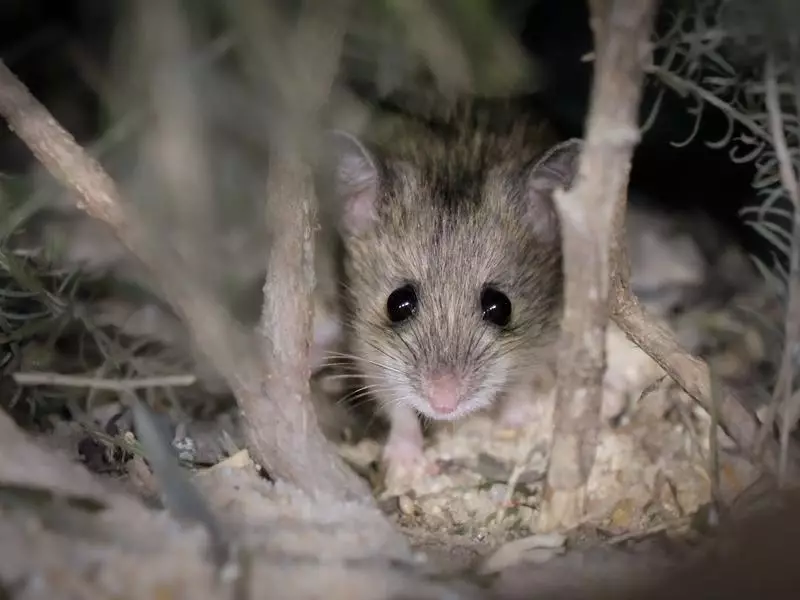
More music for those who will listen
Don't look now, but April was arguably one of the best months for conservation in US history, with massive wins for Alaska’s caribou, conservation of public lands and waterways, and protection of national parks from future oil and gas drilling. In a landmark victory for animal welfare, the UK has banned live animal exports. Oman’s ancient oasis agriculture could hold the key for sustainable land use in a warmer future. A national programme to replant and regenerate mangroves in Sri Lanka is restoring balance and breathing new life into some coastal villages. Another win for Rewilding Europe, as bearded vultures make a comeback in the French Alps. For the first time in a century, majestic sei whales have reappeared in Argentine waters. The US is buzzing with almost a million new bee colonies. Scientists have discovered what could be the first known smooth hammerhead shark nursery in the Galápagos. Some good news for Canada’s narwhal population, helped along by Indigenous conservation. A former industrial site in Bangkok has been transformed into a green urban oasis with 400 different species of trees.

16th May 2024
Conservation measures are slowing global biodiversity loss
A major international study has shown that conservation efforts to reduce biodiversity loss are working, with two out of every three measures making a positive impact. Researchers spent 10 years reviewing 665 trials of conservation initiatives in different countries and oceans and across species types, with some dating back as far as 1890. Oxford
This study provides the strongest evidence to date that not only does conservation improve the state of biodiversity and slow its decline, but when it works, it really works.
Dr Penny Langhammer, Global Wildlife Conservation
Overfishing of commercial fish stocks has declined in the USA
The number of fish on the US overfishing list reached an all-time low last year, with 94% of fish stocks no longer subject to overfishing. Several important species were removed from the list, including cubera snapper, Atlantic Coast bluefish, and Atlantic mackerel, showing that regulation, when enforced, really works. AP
‘Remarkable recovery’ for Atlantic hake
The hake population in the waters of northwestern Europe has surged over the past two decades, thanks to strict catch limits, selective fishing gear, and large protected areas. The success of the rebound is attributed to a gradual increase in catch quotas, allowing the hake to be fished sustainably while protecting the livelihoods of coastal communities. Euronews
Alaskan reserve protected from new oil and gas leases
Thirteen million acres of a federal petroleum reserve in Alaska will be protected from new oil and gas leasing in order to help protect wildlife like caribou and polar bears. The area has been at the centre of a longstanding debate between environmentalists and developers since the 1970s; it was set aside as an emergency oil source for the U.S. Navy almost a century ago. Fast Company
Four national wildlife refuges in the US will be expanded
The expansion of two existing wildlife refuges in Texas—plus one in New Mexico and another in North Carolina—will allow for the voluntary conservation of up to 1.13 million acres of wildlife habitat. The initiative will protect critical habitats for at-risk species like the Atlantic sturgeon, endangered whooping crane, and lesser sandhill crane. DOI
Biden Administration announces expansion of San Gabriel Monument
The San Gabriel Mountains National Monument outside Los Angeles has been expanded by 13,696 acres, to total roughly 346,000 acres. The expansion will make the area more accessible to nearly 90% more people, especially thousands of low-income families, who will benefit from easy access to green space.
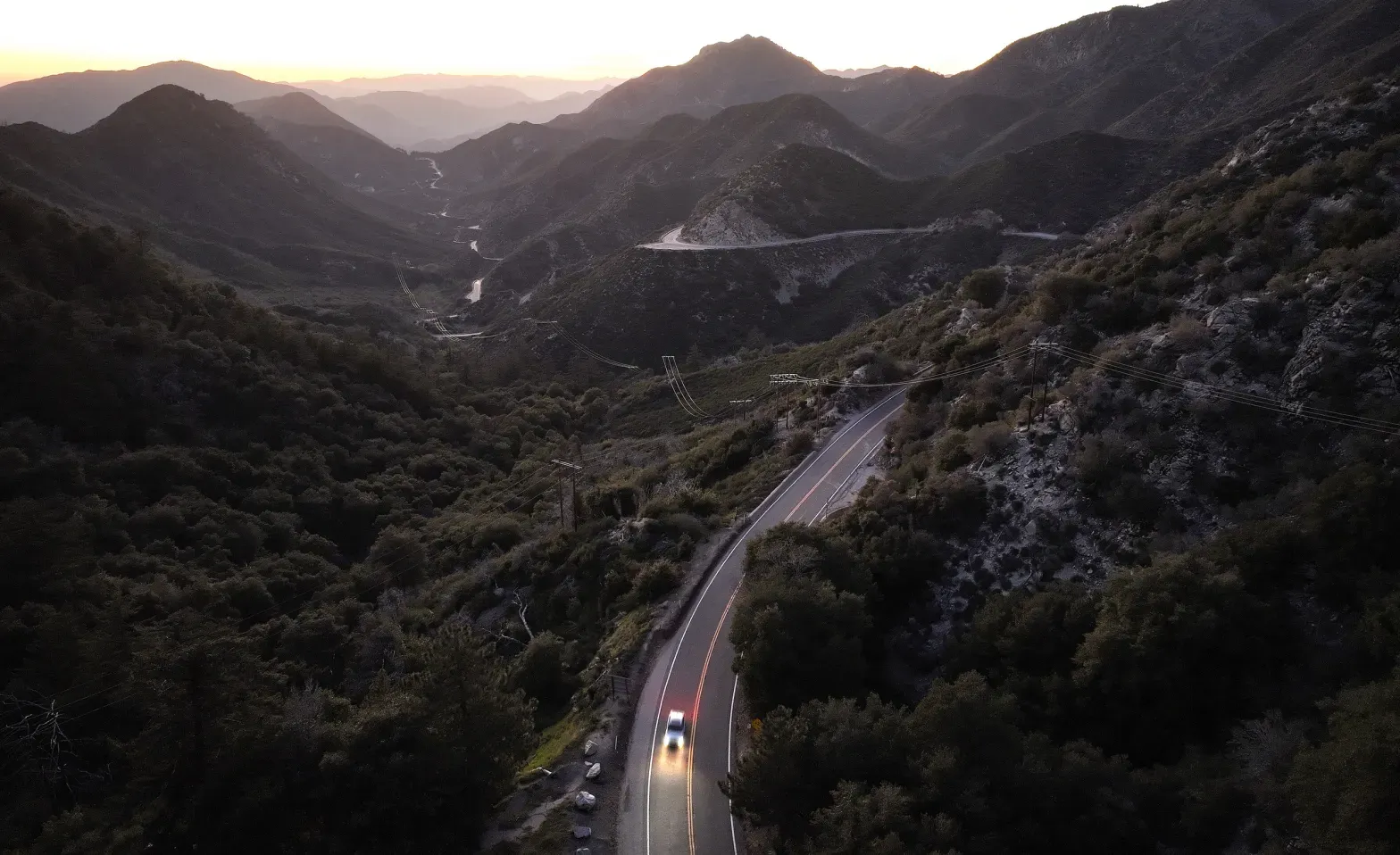
Good news for three whale populations
Scientists have confirmed the comeback of fin whales, with over 50,000 recorded in the Scotia Sea alone, more than triple the number previously estimated for the entire Southern Ocean. In the Seychelles, blue whales have been spotted for the first time in decades, and after 20 years of listening to the songs of Antarctic blue whales, researchers believe their numbers may be increasing.
Tromelin Island’s impressive comeback
Twenty years after the last member of the invasive rat population was eradicated, Tromelin Island, a small teardrop of scrubby sand near Madagascar, is a thriving seabird paradise once again. The island is home to thousands of breeding pairs from seven different bird species, including white terns and brown noddies, which hadn't been documented breeding on the island since 1856. Hakai Magazine
Peru safeguards a marine paradise
The Mar Tropical de Grau National Reserve will protect 1,157 km2 between two large marine ecosystems, the cold waters of the Humboldt Current and the warm waters of the Southern Equatorial Current. The area is home to the rare Humboldt penguin, the Pacific seahorse, the endangered hammerhead shark, and humpback whales, which travel to the area to give birth. Nature and Culture
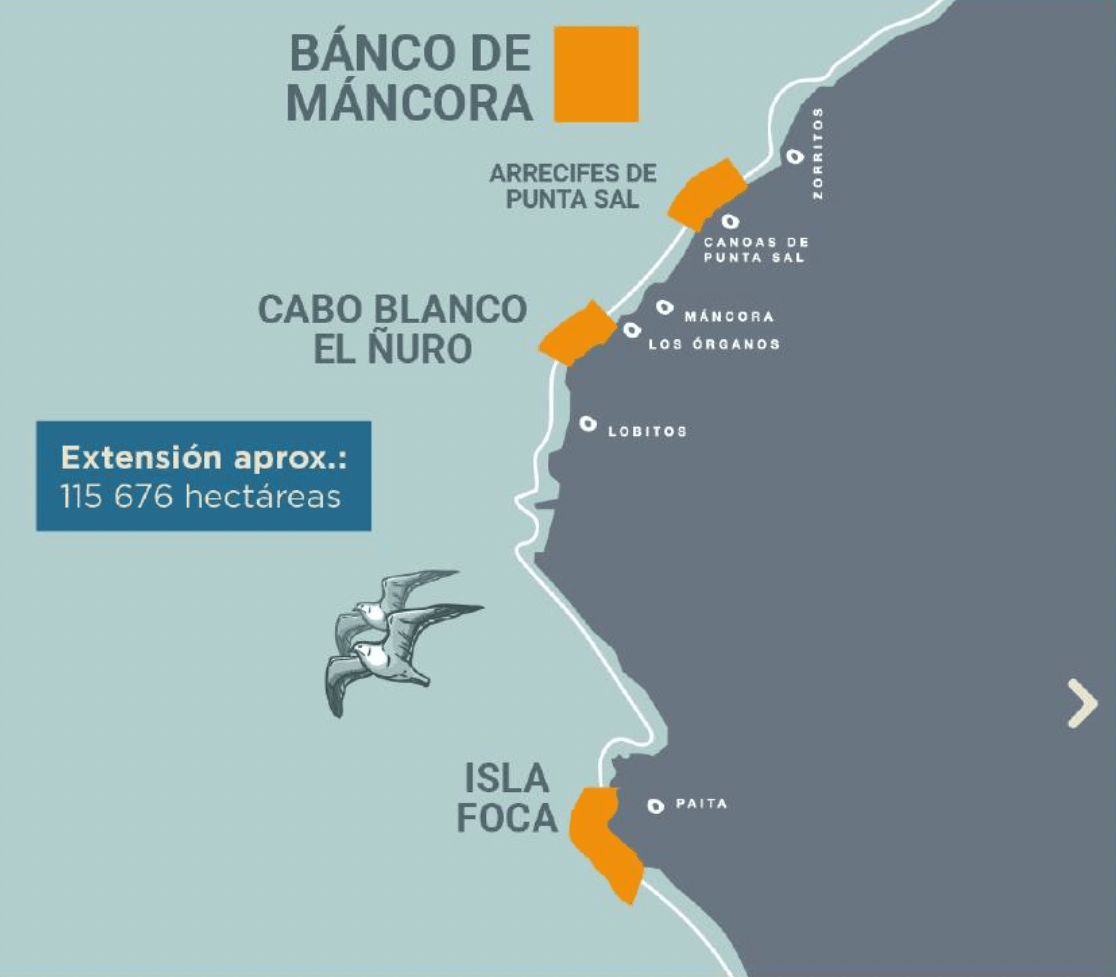
More music for those who will listen
The man who took on the coal industry to save a forest—and won! Los Angeles has captured 96.3 billion gallons of stormwater, enough to supply about 2.4 million people. In Guatemala, The Ocean Cleanup's Interceptor has prevented 1.4 million kg of trash from flowing into the Caribbean Sea during the first heavy rains of 2024. Broken glass is helping coastal restoration efforts in New Orleans. The UK has banned wet wipes containing plastic. Australia’s live sheep export trade will end in 2028. California has announced its first new state park in a decade. The EPA has banned another forever chemical, methylene chloride, used for stripping paint, cleaning metal, and decaffeinating coffee. One in three Americans has reduced their use of plastic products. Conservation efforts are working in Bangladesh, with a 53% increase in olive ridley sea turtle eggs. Grizzly bears will return to the North Cascades in Washington. The beavers that were reintroduced to West London last year are thriving. The total area of the world’s coral reefs is almost 25% larger than we thought. How scientists are becoming coral midwives. Meet the 2024 Goldman Environmental prize winners.
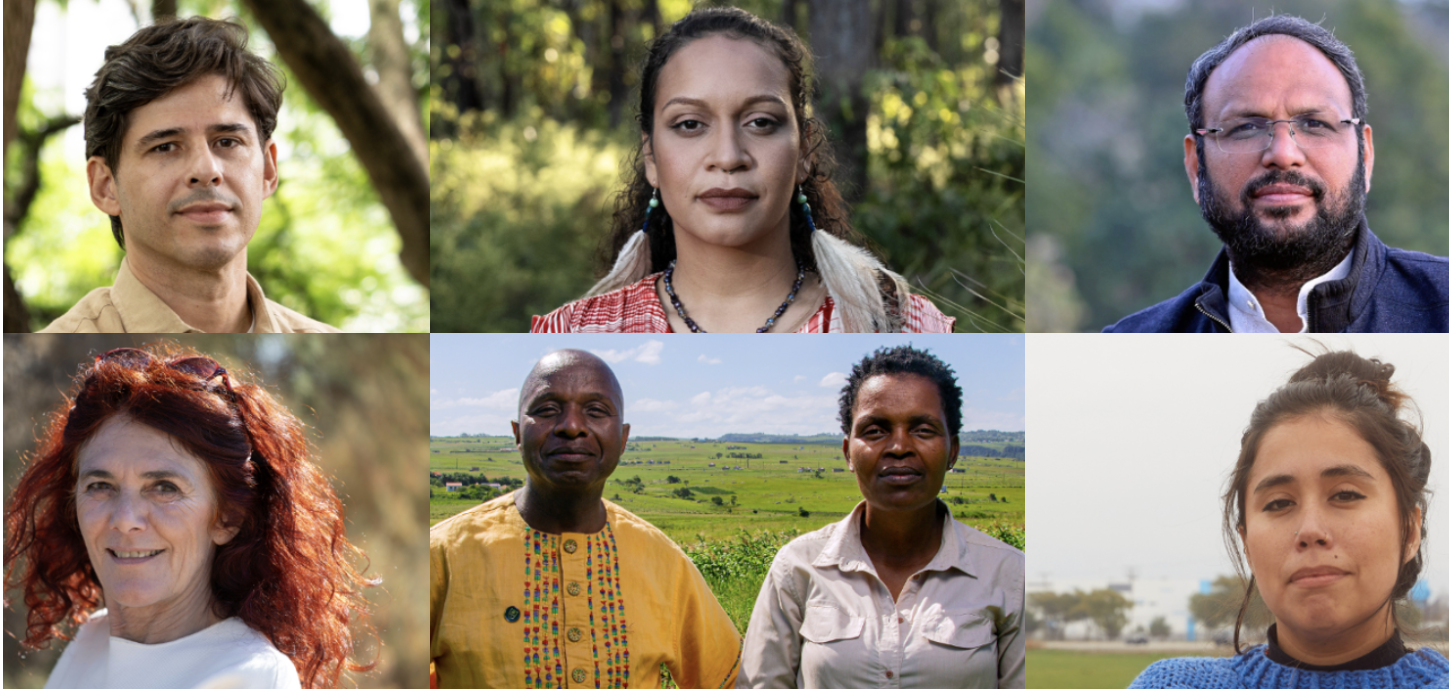
28th April 2024
Historic Indigenous conservation victory in British Columbia
Nearly half a million hectares of Crown land, including more than 200 islands of the Haida Gwaii archipelago, has been returned to the Haida Nation. It's the first time in Canadian history that the government has recognised Indigenous title across an entire terrestrial territory inclusive of land area as well as surrounding airspace, seabed, and marine waters. Hakai Magazine
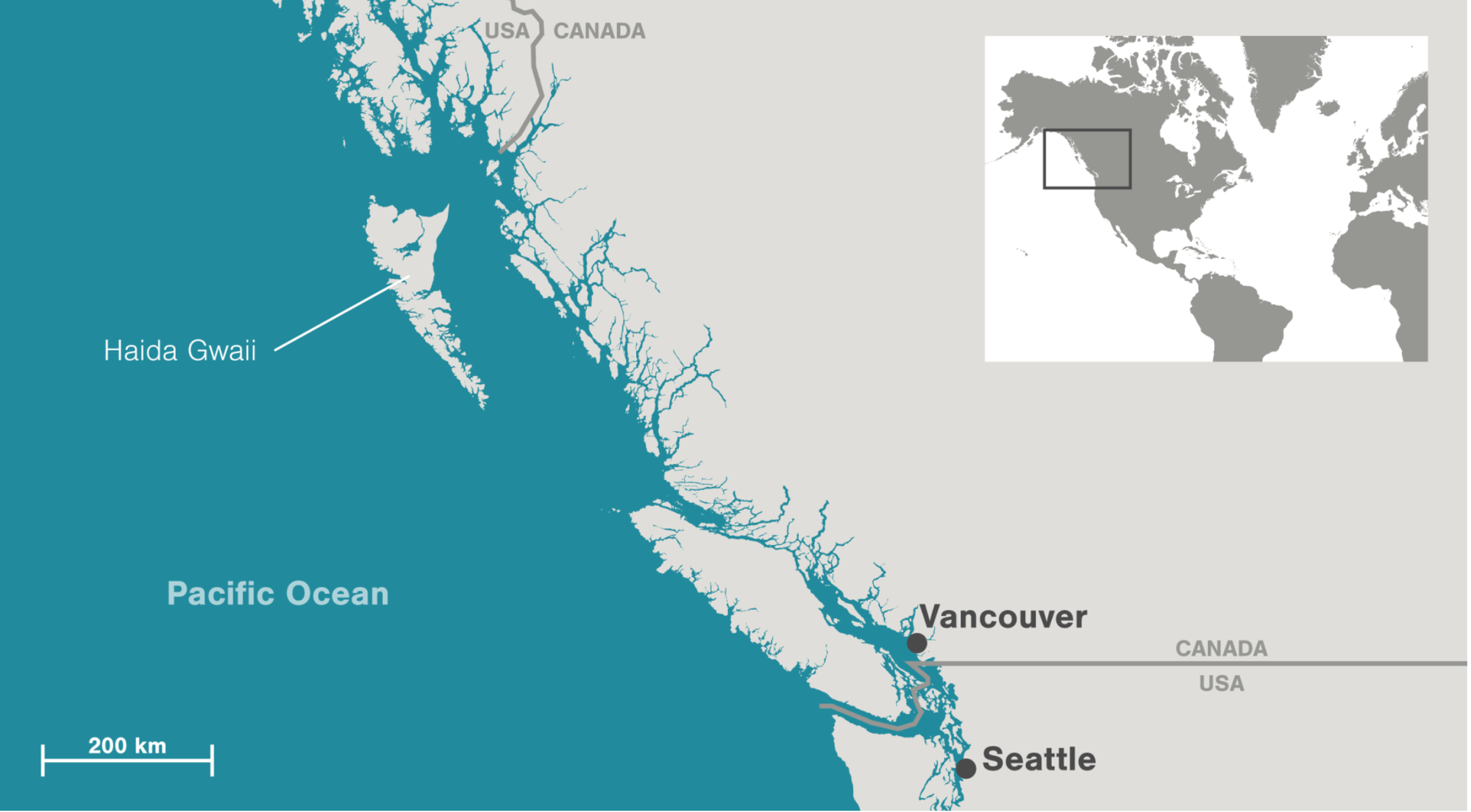
Big conservation news in Mongolia
The Eternal Mongolia initiative will invest $198 million over 15 years to help local communities safeguard 14.4 million hectares of Mongolia’s lands and waters, including intact grasslands, forests, deserts, wetlands, and rivers. The funding will also strengthen management of the country's 47 million hectares of already-protected areas. The Nature Conservancy
Huge land win in Australia
A Queensland cattle station the size of Yosemite National Park has been acquired for conservation after an anonymous donation of A$21 million. The 352,000 hectare property contains 34 ecosystems and is home to the endangered night parrot and vulnerable yellow-footed rock-wallaby. The Guardian
Ocean Conference raises $11.3 billion for marine conservation
Delegates at the Our Ocean Conference in Athens made 469 new commitments, with the host country making some of the biggest pledges to protect its oceans. Greece will establish two new MPAs in the Aegean and Ionian seas, ban bottom trawling in MPAs by 2026, and increase ocean monitoring and surveillance. Mongabay
Aquaculture in Thailand
Farming fish and shrimp together is one of the most common practices in polyculture farming in Thailand and is key to the future of its fishing industry. Integrated Multi-Trophic Aquaculture (IMTA) involves multiple organisms from different trophic levels being farmed together in a way complements one another, reducing waste and improving growth efficiency. Reasons to be cheerful

Peru's watershed moment for the 'right to a healthy environment'
After a 20-year legal battle, residents of La Oroya have won a landmark victory after an international court ruled that Peru was responsible for the 'physical and mental harm that a metallurgical facility’s pollution inflicted on 80 people.' The victims will be provided free medical care and over $30,000 compensation each. Inside Climate News
New EPA rules to slash pollution from power plants
The suite of new regulations includes rules that plants must control 90% of their carbon pollution, coal-fired plants have new emissions standards for toxic metals that are tightened by 67%, and pollutants discharged through wastewater must be reduced by more than 660 million pounds per year, ensuring cleaner water for affected communities. EPA
Brazil boosts mangrove protection
The state of Pará has established two new conservation reserves, adding 74,700 hectares to the world's largest and most-conserved belt of mangrove ecosystems. The progress is thanks to 13 years of advocacy by environmentalists and local communities. Mongabay
Good news for global tiger conservation
The Tiger Conservation Coalition will invest $1 billion to conserve tigers and tiger landscapes over the next ten years. In addition to securing and increasing the global tiger population, these funds will help expand tiger range, increasing overall biodiversity for the benefit of the local communities that share space with the species. WSC
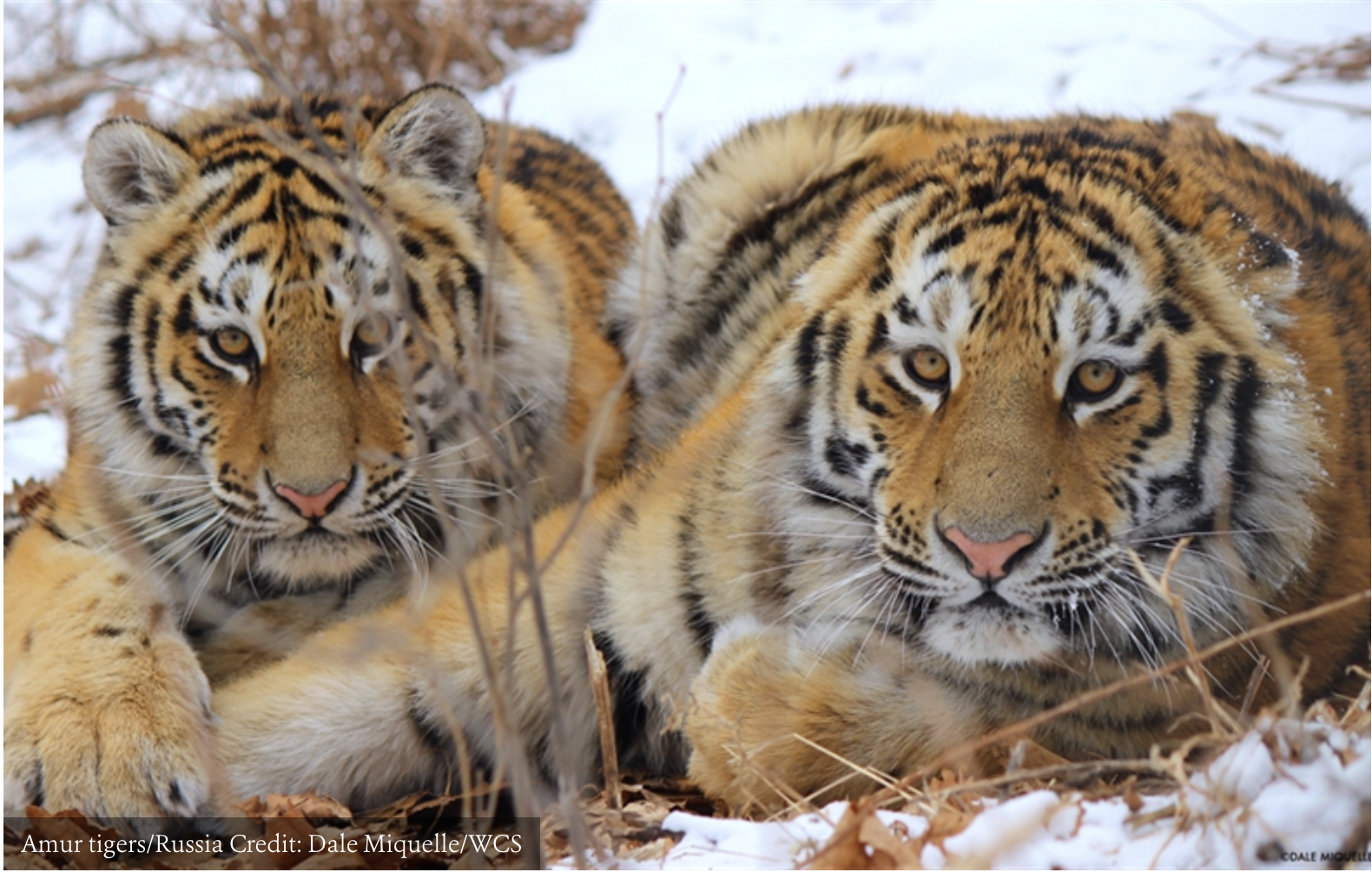
More music for those who will listen
Recordings of healthy fish are being transmitted to attract heat-tolerant larvae back to degraded reefs in the Maldives. Bangladesh is using satellite transmitters for saltwater crocodile conservation. The white-tailed eagle has bred in Belgium for the first time in 500 years. Scientists have finally pinpointed a fungal virus harming frogs and toads. Zambia has banned charcoal permits in three districts. Wet wipes containing plastic will be banned in the UK. Wellington’s biodiversity boom is bringing back the birds. Have you heard about the 'Green Islam' movement that is helping turn the tide on climate change?
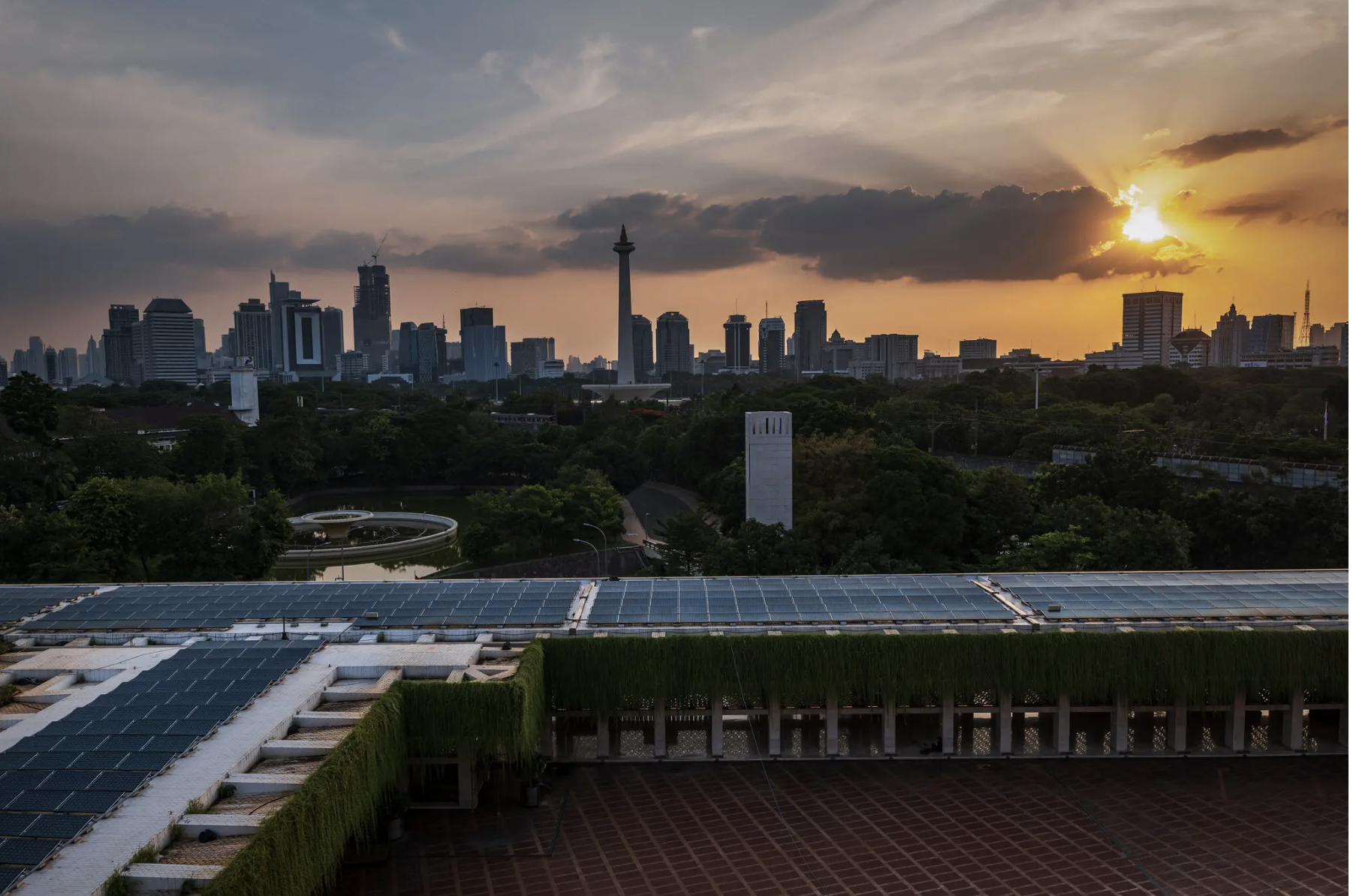
12th April 2024
The largest-ever restoration initiative in the Mediterranean
Since 2017, the Restoring Mediterranean Forests initiative has regenerated around 20,000 km2 of degraded forests, an area 500 times the size of Athens. The project plans to restore a total of 80,000 km2 by 2030, including wildfire-affected areas. UN
Biden restores protection measures to Endangered Species Act
The Biden Administration has restored several protections for US species that were weakened under Trump. Thanks to the amendments, species classified as ‘threatened’ will have the same blanket protections as ‘endangered’ listings, and economic impacts will not be considered when deciding if animals and plants need protection. Inside Climate News
Guatemala to clean up one of its most polluted rivers
Over 50 companies have joined forces to clean up Guatemala's Motagua River within the next decade. The river is one of the largest landfills in Latin America and is responsible for 2% of the plastic waste that enters the ocean. Efforts will span education, public policy, infrastructure, waste management, and clean-up task forces. Fair Planet
The Alliance is not just an initiative; it is a socio-economic and environmental movement. One of the main differences between this and previous initiatives is that we are aware that this is a problem that requires everybody's contribution.
Chloé Dubois, co-founder of Ocean Legacy
A new protected area in the Bolivian Amazon
The Dowara Kanda Tech Uyapï municipal conservation area in Bolivia will protect 254 km2 of critical landscape, including Yungas cloud forests. The region acts as an important water collector and is home to the critically-endangered Emmel’s ground snake, as well as vulnerable species such as the military macaw and giant anteater. Andes Amazon Fund
Philanthropists to create ‘European Yellowstone’ in Romania
A foundation has bought 270 km2 of Romanian wilderness as part of its plan to create a gigantic protected area spanning 2,000 km2. The area is one of the most important wildlife ecosystems in Europe and is home to wolves, brown bears, lynxes, beavers, and bison. El País
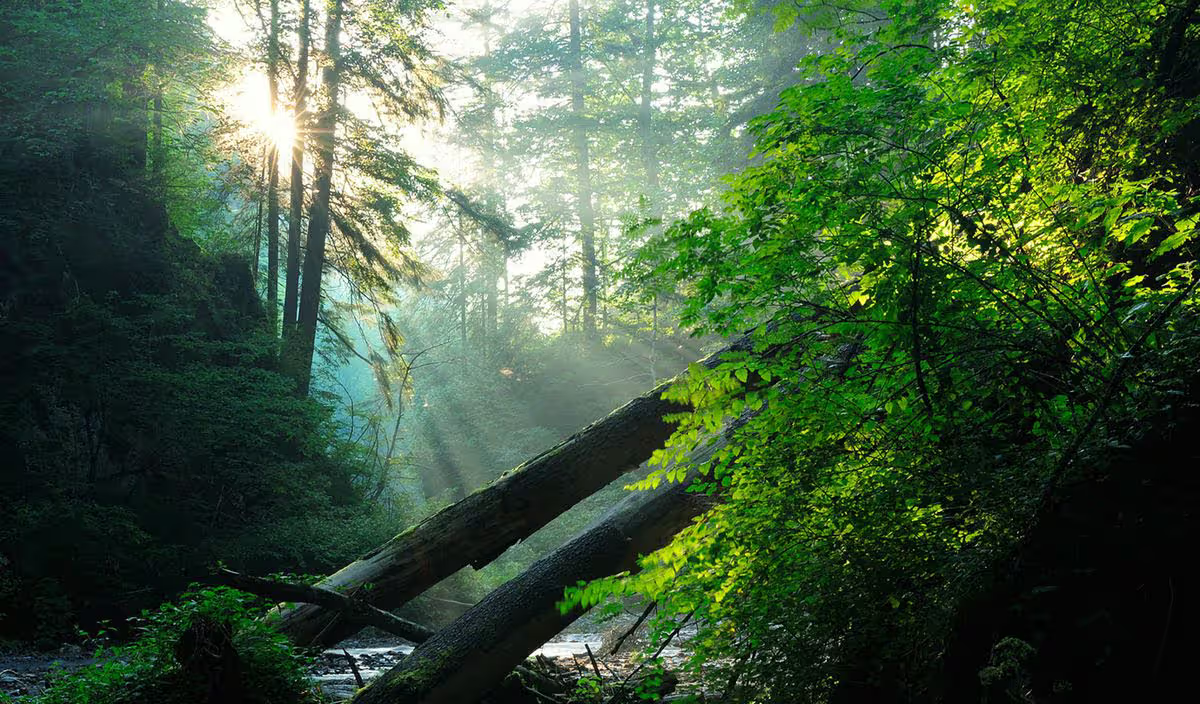
Family farm to become the biggest natural grassland in England
The Pertwood Plain project will rewild a 2,800-acre family farm in Wiltshire to bring back endangered species like cuckoos, grasshopper warblers, and turtle doves. Pigs and cattle will roam the property in low densities to recreate flower-rich chalk grassland, allowing the owners to cut costs on fertiliser and machinery. The Guardian
Massive Indigenous conversation win on the horizon in Canada
Canada is close to finalising a historic Indigenous-led conservation agreement that will secure funding for protections 'unprecedented in scope and scale' across the Northwest Territories (NWT). The NWT Project Finance for Permanence (PFP) initiative will protect at least 30 million hectares of freshwater habitats and wildlife. The Pew Charitable Trusts
Landmark agreements from Conference on Migratory Species
The 14th Convention on Migratory Species has adopted stronger protections for migratory animals. The measures include multi-country initiatives to foster collaboration between range states, a mandate to address the impacts of deep-seabed mineral exploitation, and targeted action plans for Atlantic humpback dolphins, hawksbill turtles, angel sharks, and African elephants. Earth.org
A victory for the largest marine national park in the US
After decades of overuse and public debate, a no-fishing marine reserve area will be established within Biscayne National Park. The measures will help restore the coral reefs and populations of marine life such as black groupers and hogfish. NPCA
Three positive news stories for Aussie conservation!
The Australian Wildlife Conservancy has reported that the populations of numbats appear to be increasing after reintroduction efforts, there’s a bilby boom of more than 3,300 individuals thanks to a protected network of predator-free fenced areas, and the largest coordinated threatened species monitoring program for the great desert skink has kicked off.
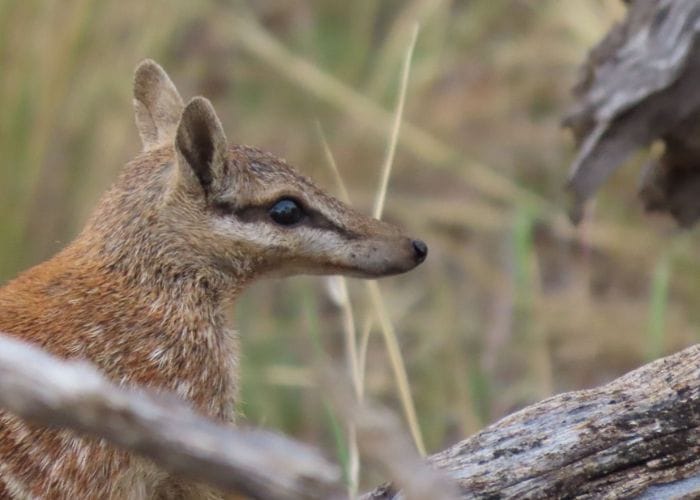
More music for those who will listen
Want to feel better about the state of the world? Check out Bloomberg's new series 'An Optimist’s Guide to the Planet'. Spain is banning domestic flights under 2 hours as part of its carbon reduction plan. A rewilding initiative has returned giant anteaters to Brazil for the first time in a century. The pretty purple North Park phacelia plant in Colorado is about be delisted. Ten international organisations, led by the World Shipping Council, have come together to develop guidelines to prevent illegal wildlife trafficking. Senegal’s new president is a bit of an eco-warrior. Polynesian Indigenous groups have initiated a historic treaty to give whales personhood. Vietnam is planting millions of trees as part of a post-Lunar New Year festival. The Arunachal tribe in India has donated 1,470 hectares of land to save a critically-endangered songbird. In West Virginia, 2,000 acres of Big Cove is now protected as part of Canaan Valley National Wildlife Refuge. Check out the new Everglades to Gulf Conservation Area in Florida—it's really big!
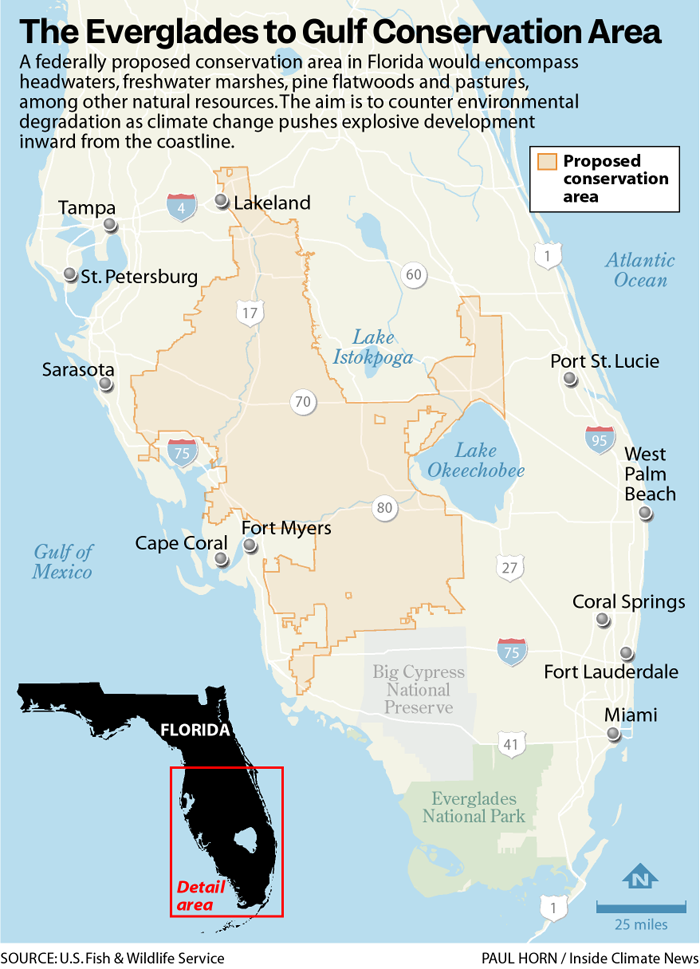
5th April 2024
The US just prioritised conservation on a tenth of its land
The Department of the Interior has introduced a rule prioritizing conservation, recreation, and renewable energy over traditional resource extraction on public lands, representing a seismic shift in the management of roughly 245 million acres of public property, one-tenth of the nation's land mass. WaPo
Suspension of Chinook salmon fishing in Yukon River
Canada and Alaska have agreed to a seven-year moratorium on fishing Chinook salmon in the Yukon River. Last year only 15,000 fish reached Canadian spawning waters; the new agreement has a target of 71,000 Canadian-origin fish reaching their spawning grounds each year for the next seven years. CBC
Deforestation in Brazil keeps declining, despite fires
Over the past year, forest loss in the Brazilian Amazon hit its lowest level since May 2019, totalling 5,010 square kilometres. The decline continues even as fires and hotspots increase due to severe drought, particularly in Roraima. One of the biggest drivers of the change? Community peace building. Mongabay
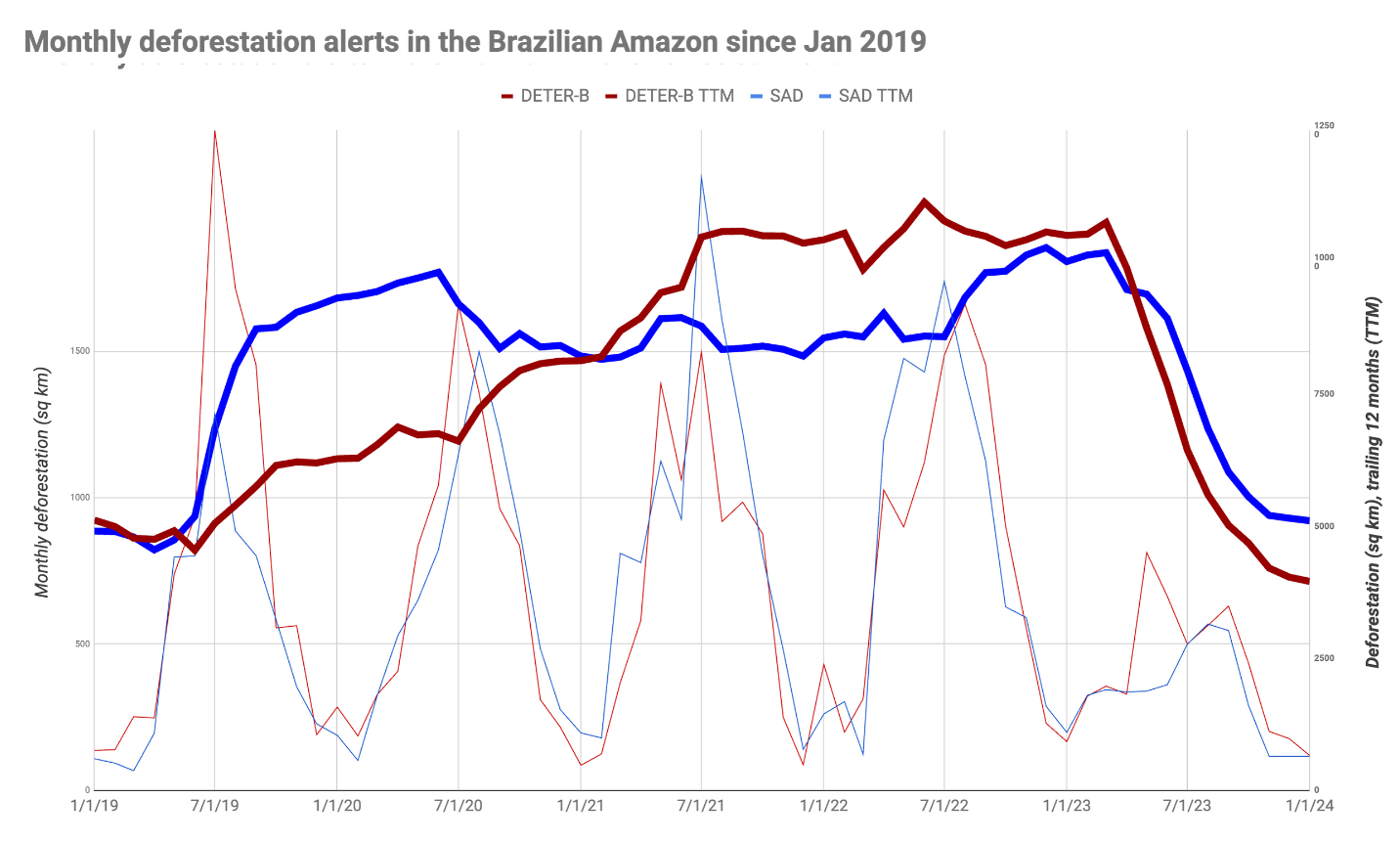
Paris is officially a cycle city
A recent survey has found that cyclists now outnumber motorists for trips from the outskirts of Paris to the city centre, a huge change from just five years ago. The revolution is thanks to an increase in cycleways and numerous anti-motoring measures, including the closure of some major roads to motorists. Forbes
New EPA regulation to limit pollution from chemical plants
A new EPA rule will force over 200 chemical plants across the US to reduce toxic air pollutants to decrease cancer risks for nearby residents. It’s the first regulation in nearly two decades to target ethylene oxide and chloroprene, which are used to sterilise medical equipment and make rubber for shoes. The new measures will reduce an estimated 6,200 tons of toxic pollutants each year. NYT
EPA sets limit for ‘forever chemicals’ in drinking water
The EPA has set new drinking water standards to reduce exposure to PFAS, a group of human-made chemicals that can increase the risk of cancer and other health conditions. It’s the first time a drinking water standard has been set for a new contaminant since 1996 and is expected to reduce PFAS exposure in drinking water for about 100 million people. Washington Post
Peru announces largest conservation concession
The new Cotuhé Conservation concession in Peru will protect 198,743 hectares of Amazon rainforest, securing a bio-cultural corridor that benefits local communities. The concession also safeguards the buffer zone of Yaguas National Park, home to the largest number of normal and black jaguars in the country and some of the last populations of Amazonian manatees. Andes Amazon Fund
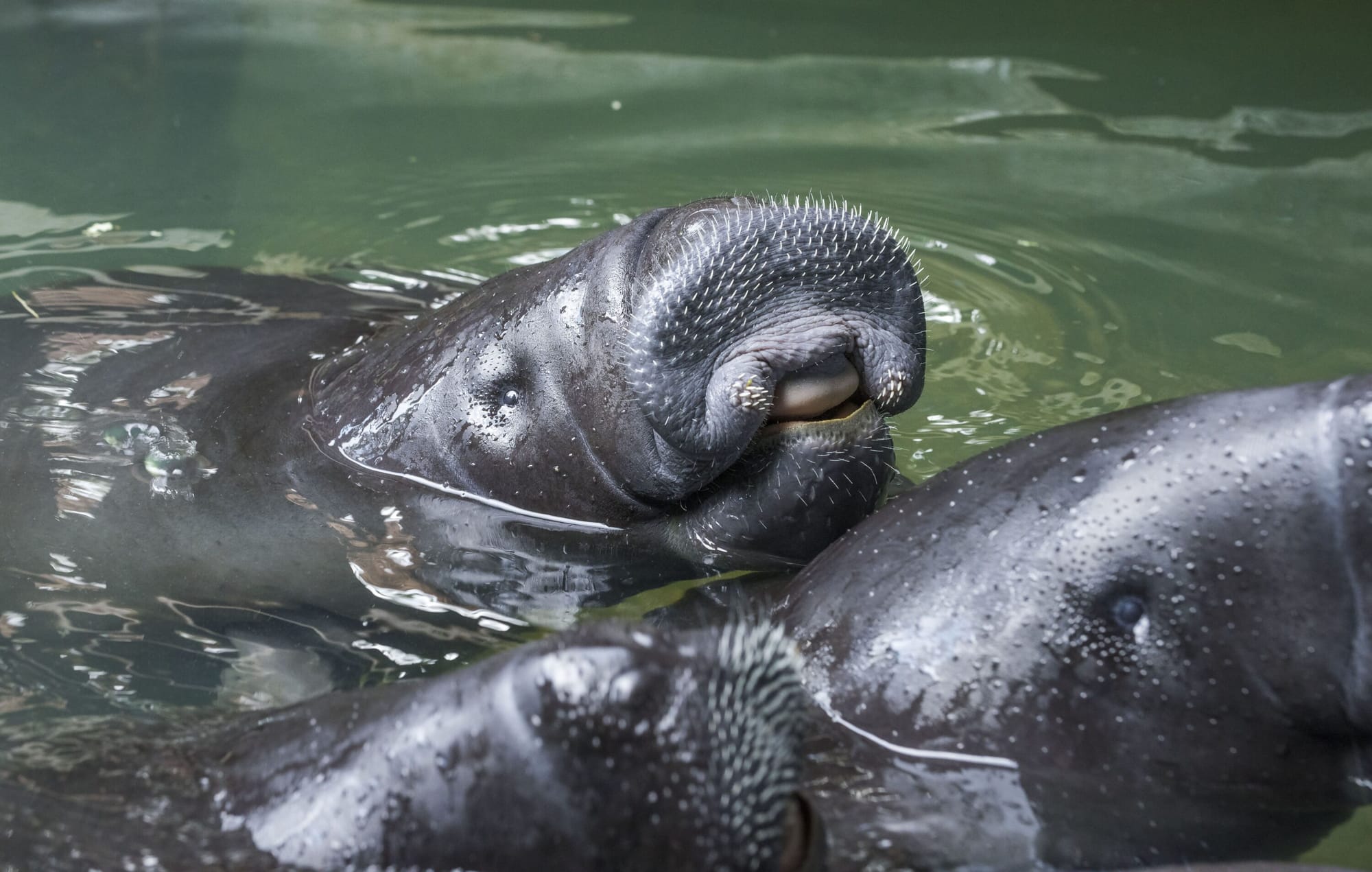
South Africa bans captive breeding of lions and rhinos
The controversial practice of breeding lions and rhinos in captivity has finally been banned in South Africa, following more than a decade of advocacy. The move will also end the commercial exploitation of lions, including ‘canned’ hunts, which release tame big cats into small enclosures for hunting. Bloomberg
NY is suing the world’s biggest meat company
New York is suing JBS, the world's largest meat company, for misleading customers on its climate commitments. The company’s lack of concrete emission reduction steps and misleading claims make it a fraud case with high chances of success. It’s part of a wave of lawsuits against big businesses for greenwashing sustainability claims. The Guardian
A 50-year project to restore the wetlands of the California coastline
The South Bay Salt Pond Restoration Project will restore over 15,000 acres of tidal wetlands after 150 years of commercial salt production. Since 2003 the project has recovered over 3,000 acres of shoreline, while keeping some of the man-made salt ponds to support the ducks and shorebirds that rely on them. Reasons to be Cheerful
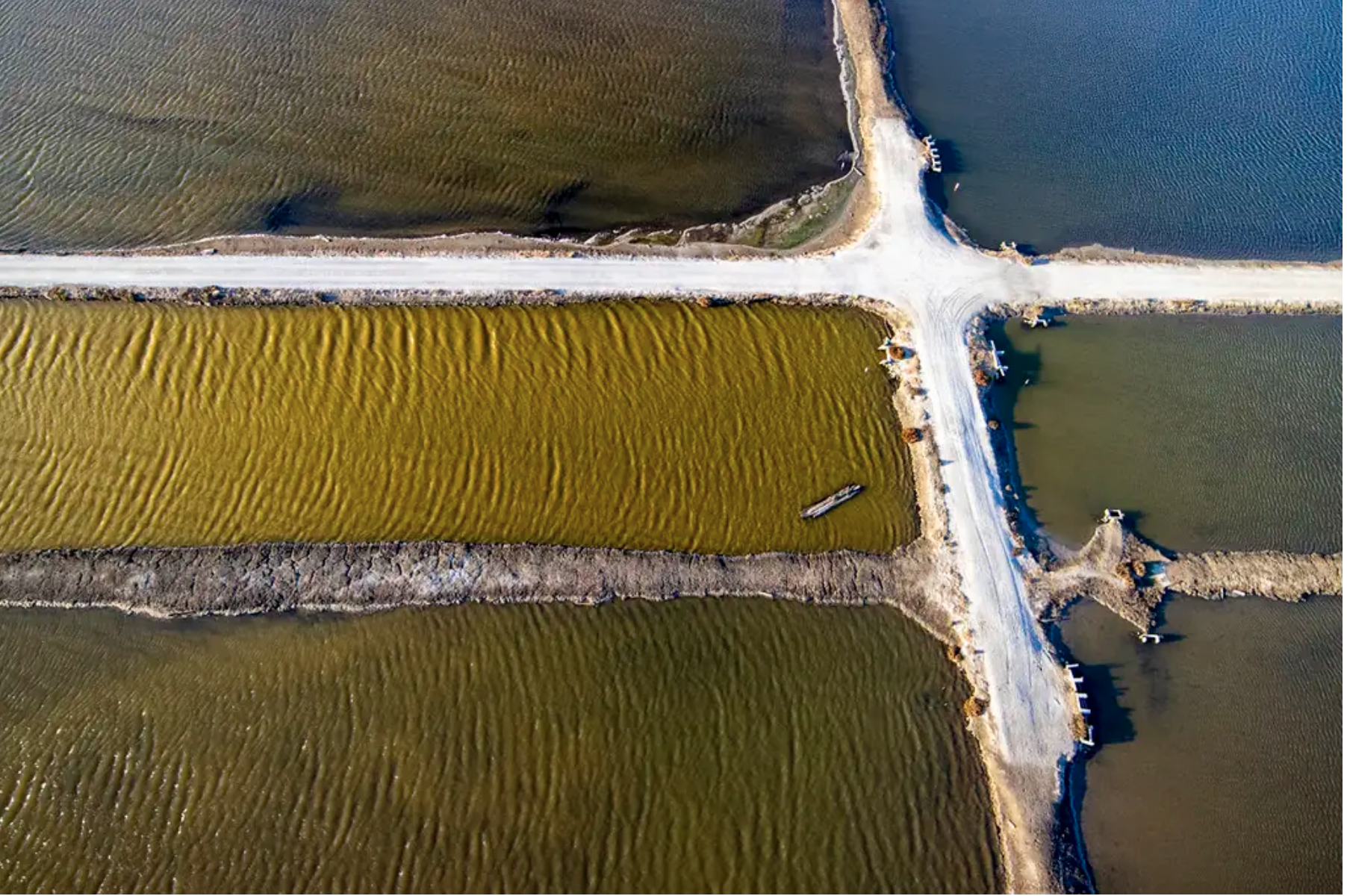
More music for those who will listen
Certified forests in the Congo Basin have increased populations of gorillas and forest elephants. France and Brazil announce a $1.1 billion green investment plan for the Amazon rainforest. Brazil’s Cerrado grasslands, a megadiverse savanna biome, is the main beneficiary of a COP26 initiative to end deforestation. Norway and Canada create new emission control areas in their Arctic waters to reduce harmful pollutants from shipping vessels. Former gold miners are helping restore parts of the Peruvian Amazon destroyed by illegal mining. How an English castle became Britain’s first stork breeding ground in 600 years. A UK rewilding network is restoring 155,248 hectares of land and 506 square kilometres of seabed. A 20-year tree-planting project in central Victoria has transformed degraded farmland into a lush paradise. The Wind River Indian Reservation in Wyoming is buying up privatised land as a home for wild bison.
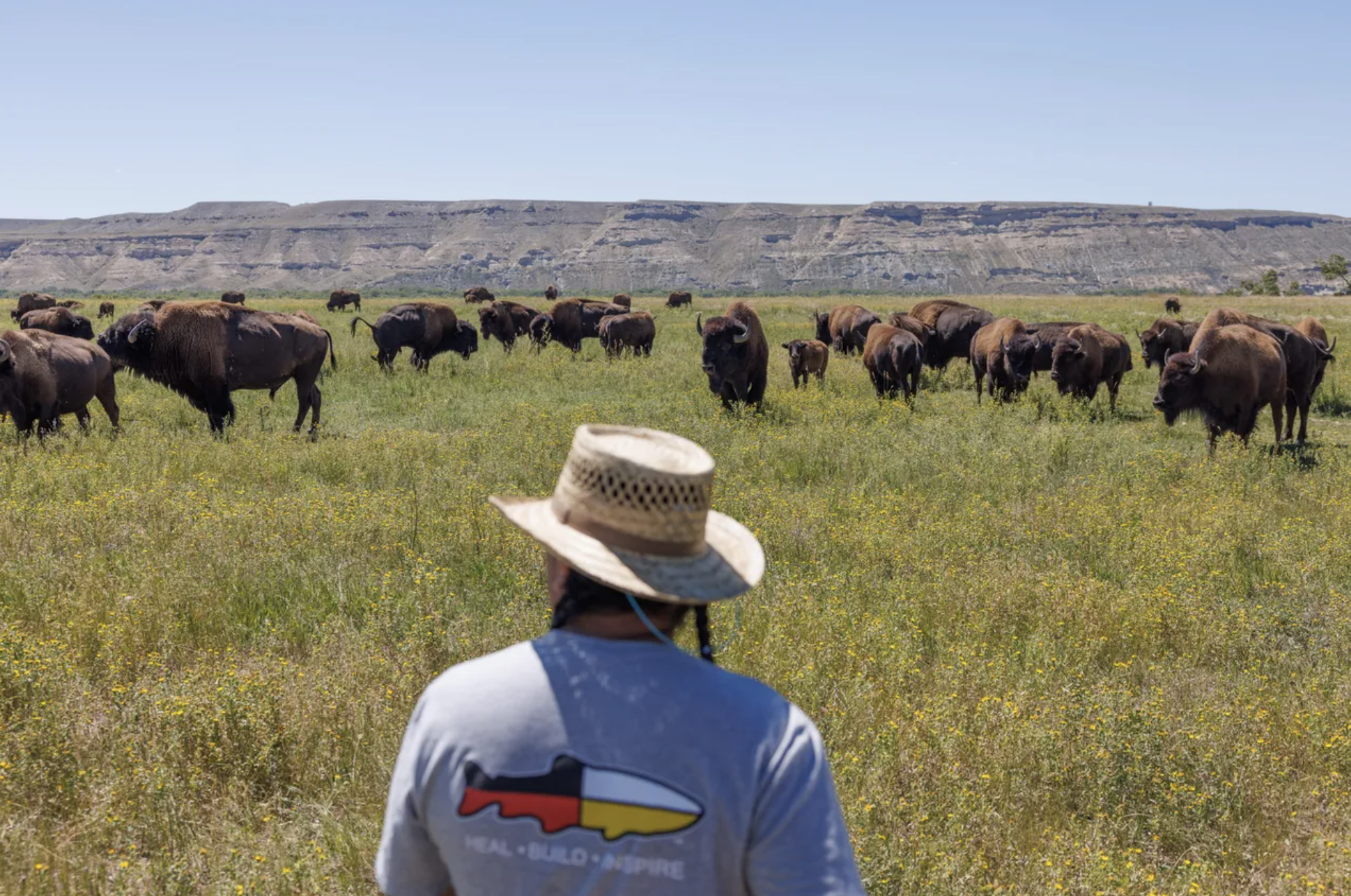
28th March 2024
Deforestation in the Amazon plummets in February
Lula is keeping his promise. New satellite data from February show that deforestation in Brazil's Amazon rainforest fell 30% from a year earlier. 'The trend is still the same we had been seeing in 2023: a drop in Amazon deforestation, an increase in Cerrado deforestation.' Reuters
Endangered seabirds flourishing on restored Chilean island
A lot can happen in 30 years. Here are a few of the islands around the world that have been restored over the last three decades—and it looks like another one has just been added to the list, after Peruvian diving petrels have been observed flourishing on Chañaral Island after it was cleared of invasive rabbits.
Toxic chemical releases decline by a fifth in the United States
The EPA just released a new report showing that environmental releases of toxic chemicals from sectors such as manufacturing, mining, hazardous waste management, and electric utilities were 21% lower in 2022 compared to 2013. This includes a 26% decrease in chemicals being released into the air. Cleantechnica
US provides funding for projects to restore habitat connectivity
The Department of the Interior and the National Fish and Wildlife Foundation just announced funding for ten projects to protect migratory species such as elk, mule deer, and pronghorn and their habitats in Arizona, California, Colorado, Idaho, Montana, Oregon, and Wyoming. DOI
Comeback on the cards for Asian antelope in Bangladesh
The largest antelope species in Asia, the nilgai, is making a comeback in northwestern Bangladesh after being hunted to extinction in the 1930s. Recent forays back into their historical habitats indicate that Bangladesh is once again hosting nilgais within its borders. Mongabay
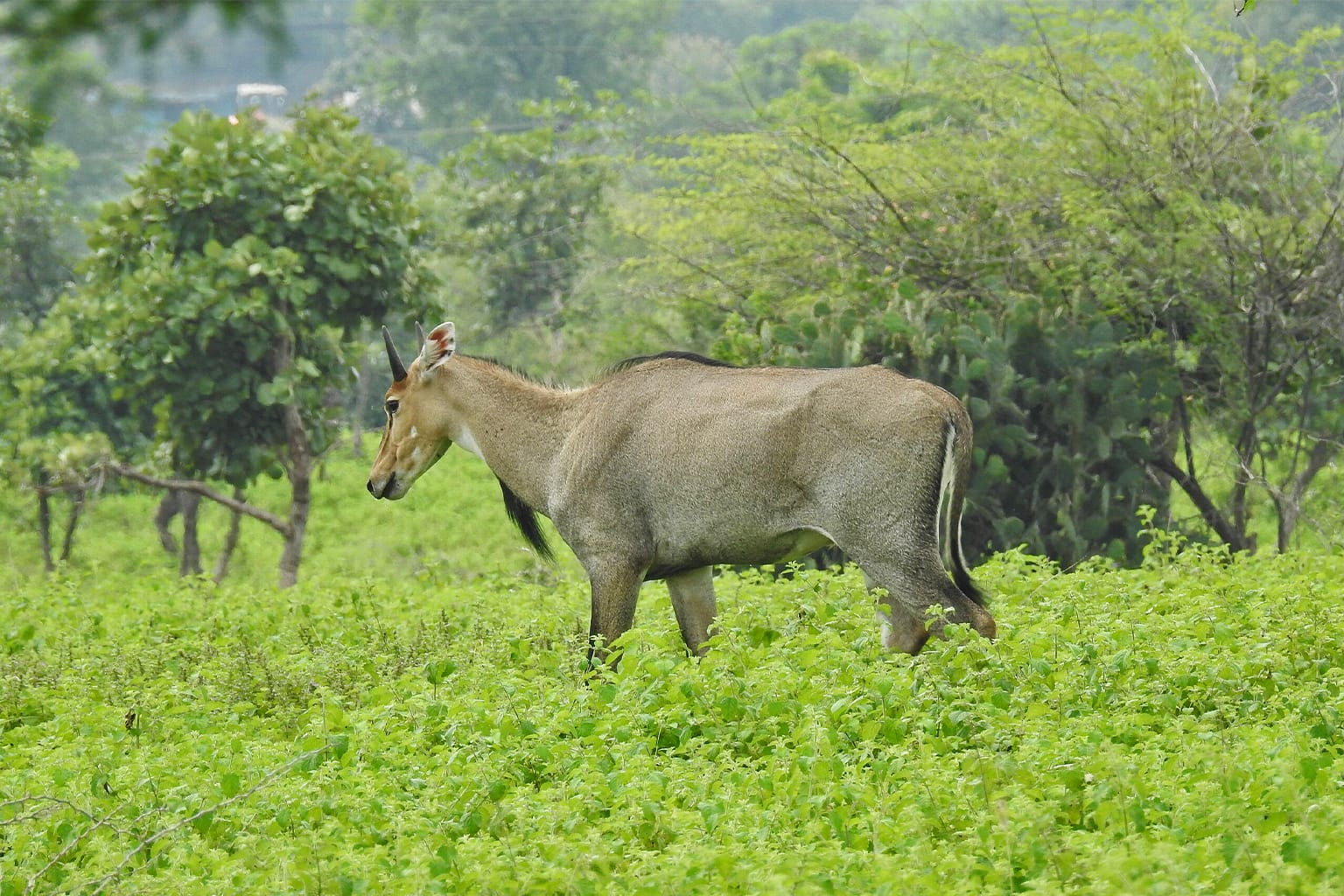
Aruba on track to be the second country to recognise rights of nature
The government of the small Caribbean nation is moving to change its constitution to recognize that nature has inherent rights and also to affirm a human right to a 'clean, healthy and sustainable environment.' If successful, it would join Ecuador, which enshrined the rights of nature in 2008. Inside Climate News
New area protects freshwater for Bolivia’s largest city
Bolivia has created the new Fuente de Vida ('Source of Life') protected area, a 77 km2 water corridor which safeguards freshwater sources for over 2.4 million people in the city of Santa Cruz. The area also adds to a conservation corridor that includes the Carrasco and Amboró National Parks. Andes Amazon Fund
The world's largest trees are thriving in the United Kingdom
More than a century ago, the Victorians were so impressed by redwoods that they brought them home and planted them. It's estimated there are now half a million redwoods in the UK, compared to around 80,000 mature giants in California, and people have finally started noticing them sticking up above the other trees. BBC
Paris has become one of the most bicycle-friendly cities on Earth
Within a year of building 52 km of bike-friendly 'corona tracks,' 60% of users were new to cycling, while the proportion of women increased by 14%. Cyclists in the French capital now have more than 1,000 km of bike paths and marked routes, up from 200 km in 2001, and a further 130 km will be added by 2026. Cities Today
The US is fixing a century-old problem for fish
Ben Goldfarb explores the impact of culverts on migratory fish populations, highlighting new efforts to address this issue. With the replacement of outdated culverts, sea-run fish like salmon can navigate waterways more freely. 'It was one of those problems that I never thought I would see fixed in my lifetime.' Hakai
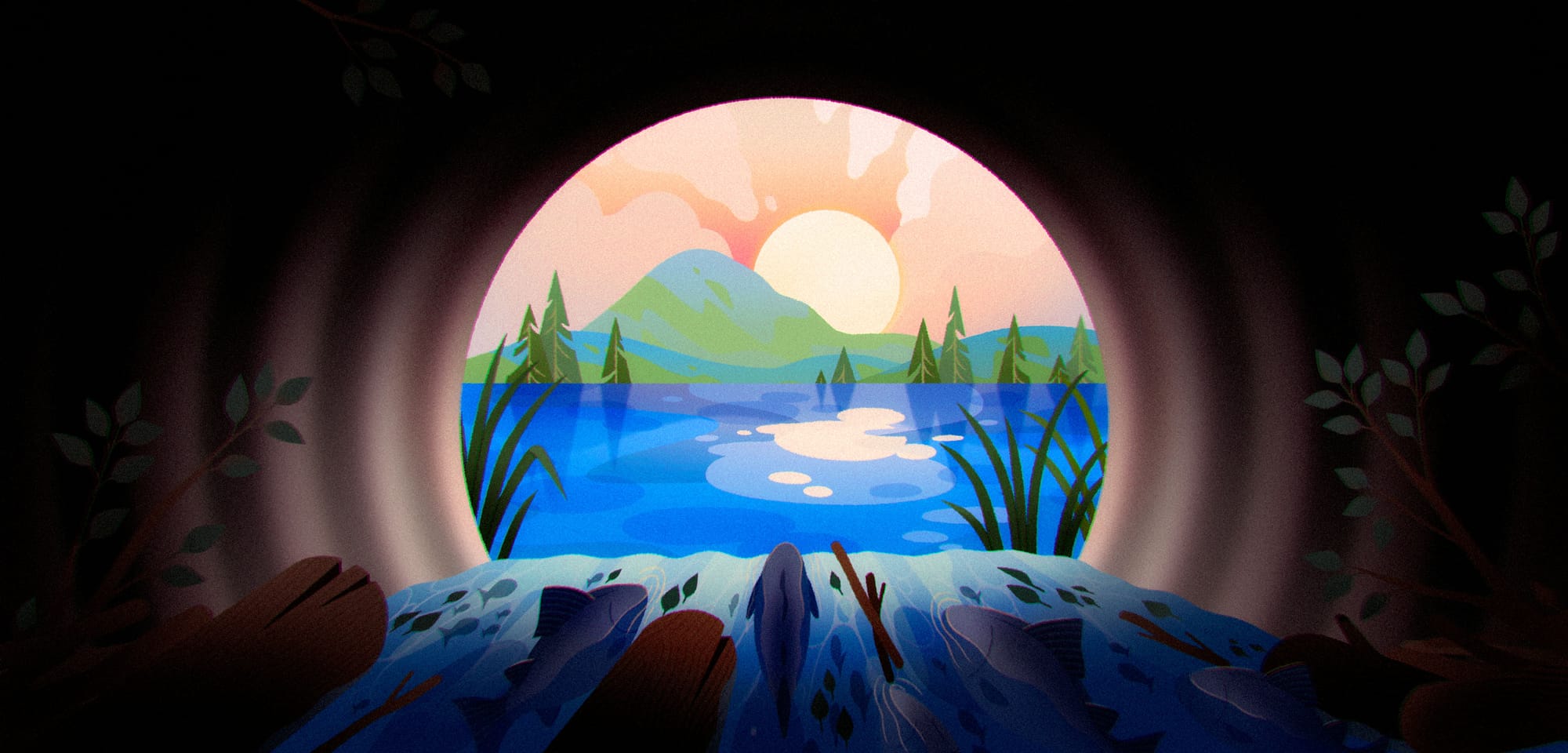
More music for those who will listen
What is rewilding, and why is it our best hope? California's Yurok Tribe will become the first Native people to manage land with the National Park Service. Scotland bans snares and other brutal wildlife traps. Many coral reefs are dying. This one is exploding with life. Custodianship of California redwood forest returns to ten Native American tribal nations. Volunteer-led rewilding projects are helping restore degraded habitats in Australian cities. The federal government takes the first steps to start cleaning up abandoned uranium mines in the Navajo Nation’s Lukachukai Mountains. Wolves are thriving again across western Europe. Sea lion populations in New Zealand cities 'turn a corner.' Things are looking up for gray whales, with populations expected to rebound. The Dutch city of Utrecht celebrates the restoration of its 900-year-old moat, 40 years after it was cemented over to accommodate a 12-lane highway.
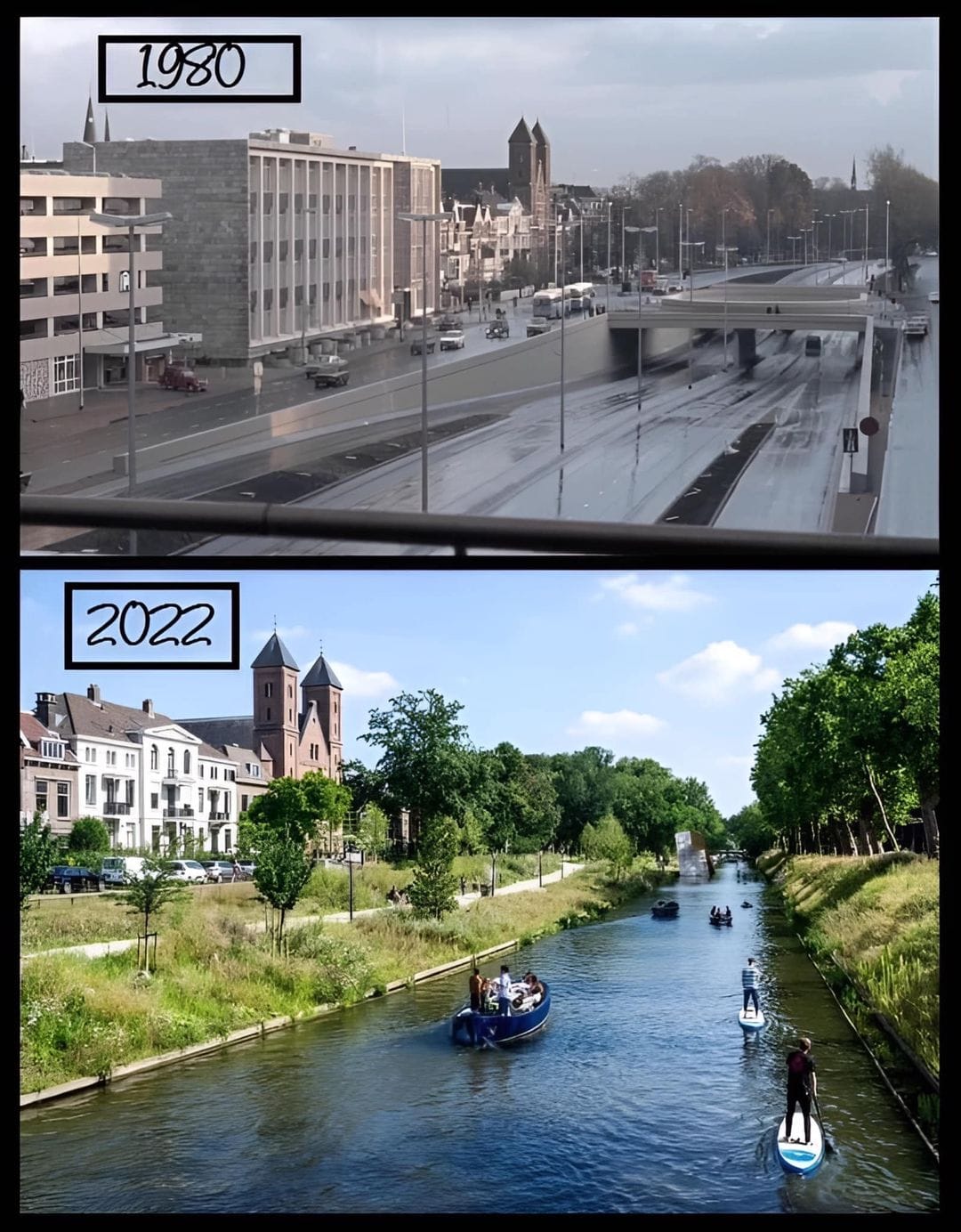
21st March 2024
The UK expands marine protection in the Southern Ocean
The government just announced full protection for an additional 166,000 km2 surrounding South Georgia and the South Sandwich Islands, home to one of the largest and most varied aggregations of wildlife on the planet. Full protections within the MPA now encompass approximately 450,000 km2. Mongabay
China protects its largest saltwater lake
Qinghai Lake, on the northeastern Tibetan Plateau, is the country's largest inland saltwater lake and a key stopover site for migratory birds. It's about to become a new national park, protecting endangered species such as the Przewalski's gazelle, key migratory channels for fish, and areas critical for bird migration. China Daily
US moves closer to creating two huge new marine sanctuaries
The proposed 19,200 km2 Chumash Heritage national marine sanctuary in California has been recognised as a Mission Blue Hope Spot, and NOAA just released a draft proposal to designate marine portions of Hawaii's 1.5 million km2 Papahānaumokuākea Marine National Monument as a national marine sanctuary.
Tree planting project in Africa restores thousands of hectares
Since it was founded in 2015, the Trees for the Future programme has planted tens of millions of trees each year in nine countries, ranging from Senegal and Mali to Tanzania and Kenya. It has reportedly restored a combined area of more than 410 km2, replacing barren monocultures with biodiverse forest gardens. Guardian
Conservationists make headway as rewilding arrives in Japan
Monoculture plantations make up 44% of the country's forests, but now a new movement is trying to change that. Piece by piece, year by year, expanses of protected areas in Japan are becoming wild again with the aid of environmentally-conscious volunteers who help nature recover. Inside Climate News
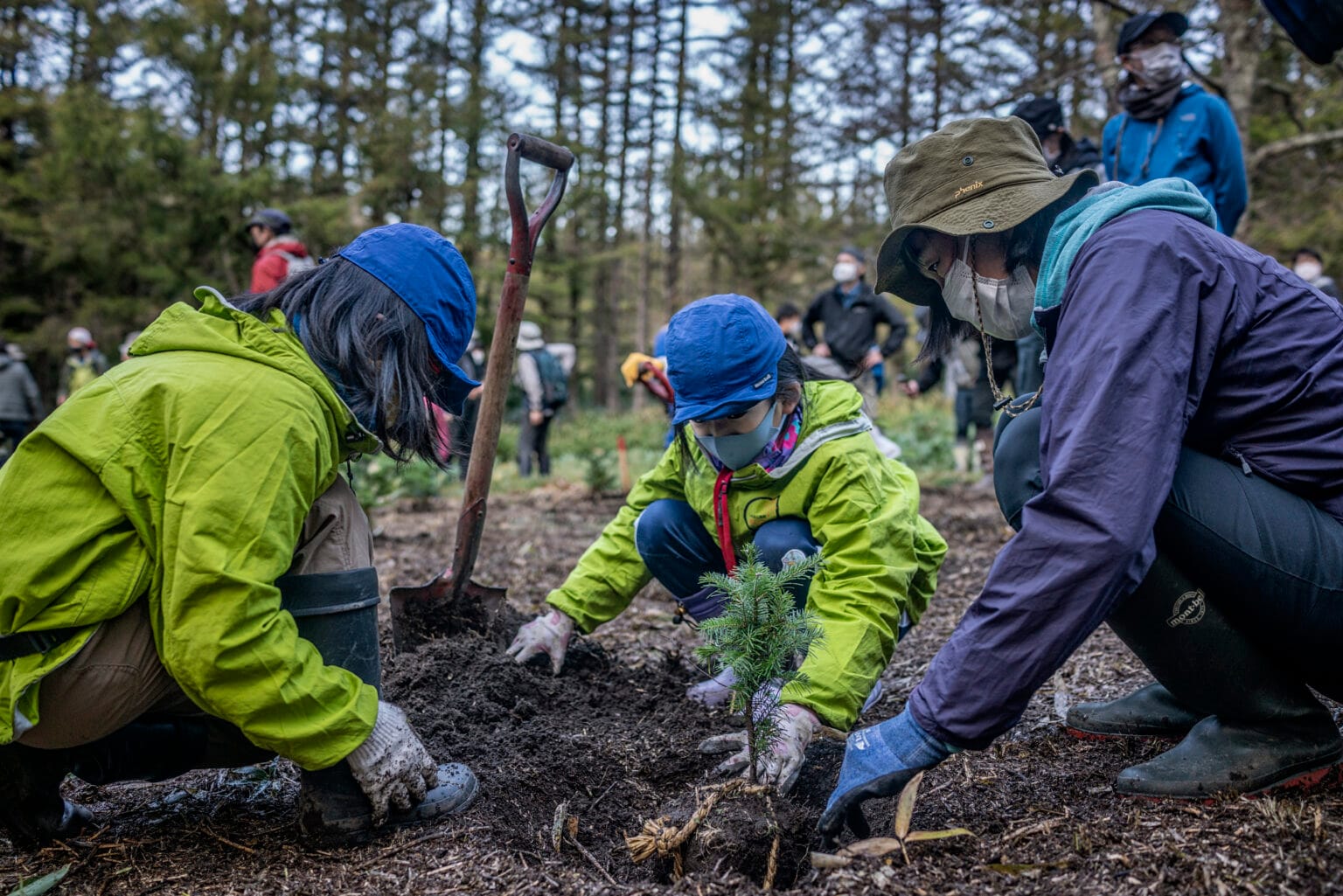
Air pollution levels improve in Europe
A new study looked at pollution over the last 20 years in 1,400 regions in 35 European countries and found that overall suspended particulate matter levels (PM2.5 and PM10) have decreased on average by 2.72% and 2.45% every year, and that nitrogen dioxide (NO2) levels have decreased by an average of 1.72% annually. Guardian
The UK and Sweden launch new conservation projects
Twenty new nature projects across the UK will receive funding to create and restore critical habitat areas equivalent in total to the size of York; in Sweden, new funding has been secured for a four-year project to protect ten endangered species. 'It's a massive undertaking to be able to protect this many species.'
Fisheries monitoring system in South Africa pays off
Nine years ago, South Africa put in place an innovative information management system designed to monitor and protect its seas. A new study has shown that it has brought significant benefits—mitigating environmental risks, reducing overfishing, and allowing for better coordination with other countries on ocean governance. Science Direct
NGO takes on Bali's plastic problem
Three years after its creation, Sungai Watch has installed 268 rubbish barriers on rivers, initiated more than 1,000 weekly cleanups with the help of volunteers, and collected a total of more than 1.7 million kilograms of waste. It's still a drop in the ocean, but it's starting to inspire greater government action. Guardian
Oregon outback named world’s biggest dark sky sanctuary
Long regarded as a stargazers’ paradise, the region is the new home of the world’s 19th, and largest, dark sky sanctuary, offering pristine views of the night sky across over 10,000 km2. The certification involved a years-long effort by federal, state, and local officials, community members, and several legal jurisdictions. Guardian
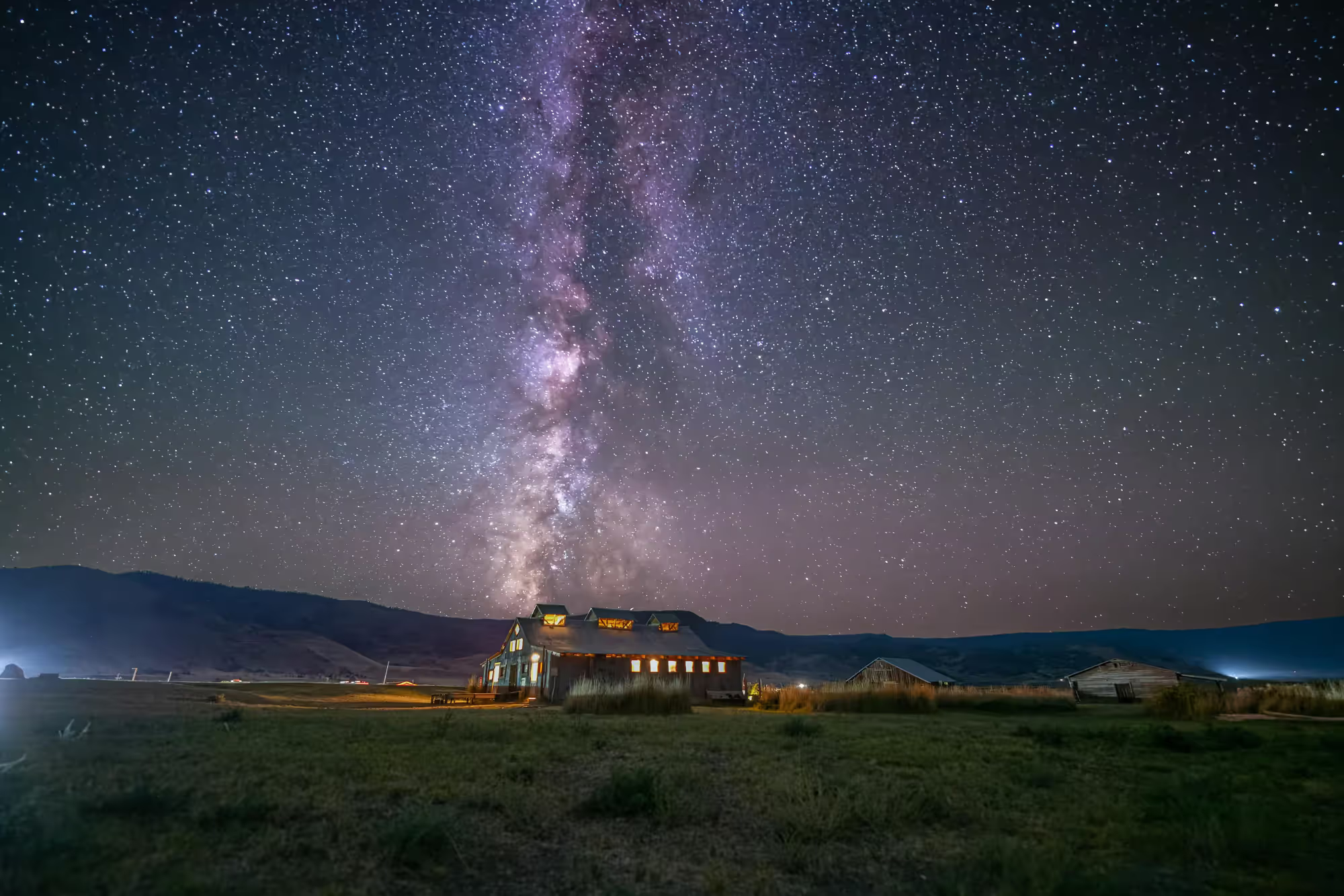
More music for those who will listen
Inside the successful, decades-long effort to protect the Humboldt Archipelago in Chile. After three decades, the US EPA has finally fully banned asbestos, a material that still causes about 40,000 deaths each year. Conservationists in the Galapagos have begun restoring 13 species to Floreana Island. Apple and its partners are spending $280 million on forest restoration projects in Latin America. Have you heard of the Amazon of the Seas? More than 2% of Scotland’s land is now rewilding. France’s lower house of parliament has voted to limit the excesses of fast fashion. New York is about to get its first Miyawaki forest. The Biden administration wants to limit oil and gas drilling, mining, and livestock grazing across the American West to save a bird. As dams come down on the Skutik River in Maine, the once-demonised alewife gets a second chance. A bipartisan group of lawmakers in Colorado want to bring back wolverines in an unprecedented rewilding effort. Spain recently protected a whole lot of its ocean, and we sent someone an email asking for the maps. Here they are:
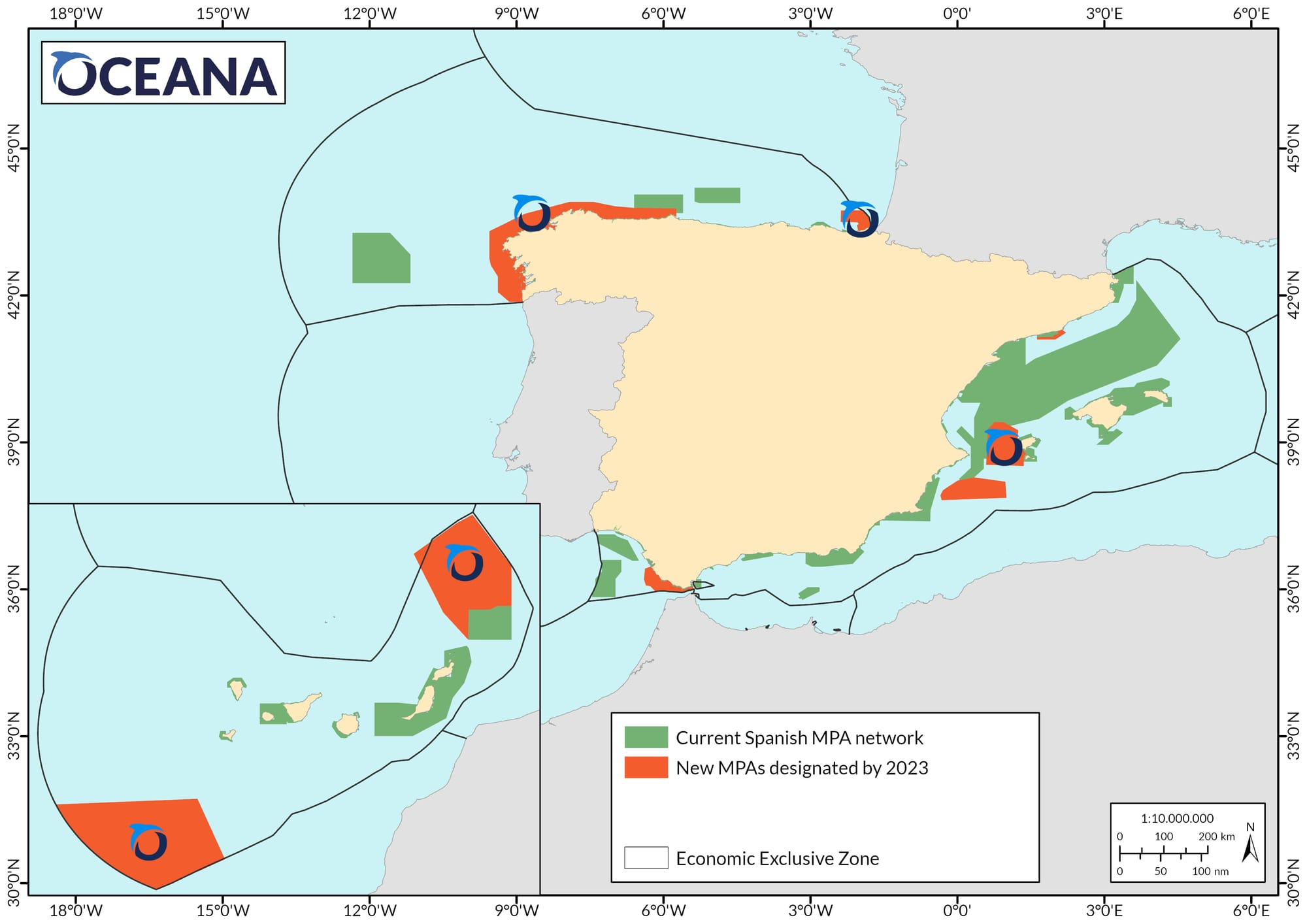
14th March 2024
China's National Greening Commission just announced that it increased its greening efforts last year with 39,998 km2 of forest planted, 43,790 km2 of degraded grassland restored, and 19,050 km2 of sandy and stony land treated. The country is notoriously unreliable with big data like this, but even if the numbers are half of that, it's incredibly good news. Xinhua
The US Department of the Interior just announced the establishment of a new 16,187 km2 conservation area in the Everglades in southwest Florida. The area will provide crucial protected wildlife corridors, enhance outdoor recreation access to the public, and bolster climate resilience in southwest Florida. FWS
South Africa is set to transform the Loskop Dam Nature Reserve into a massive 1,000 km2 protected area. The project, a collaboration between the Mpumalanga Tourism and Parks Agency and The Aspinall Foundation, is not only expected to become a sanctuary for over 30 endangered wildlife species, including the black rhino, but also to offer economic upliftment to surrounding communities. Discover
In 2014, Australian conservationists completed one of the largest publicly-funded conservation investments in history, successfully clearing Macquarie Island of non-native cats, rats, rabbits, and other animals. Now their work is paying off—a new study has shown that populations of petrels, a group of highly specialised seabirds, are recovering. Conversation
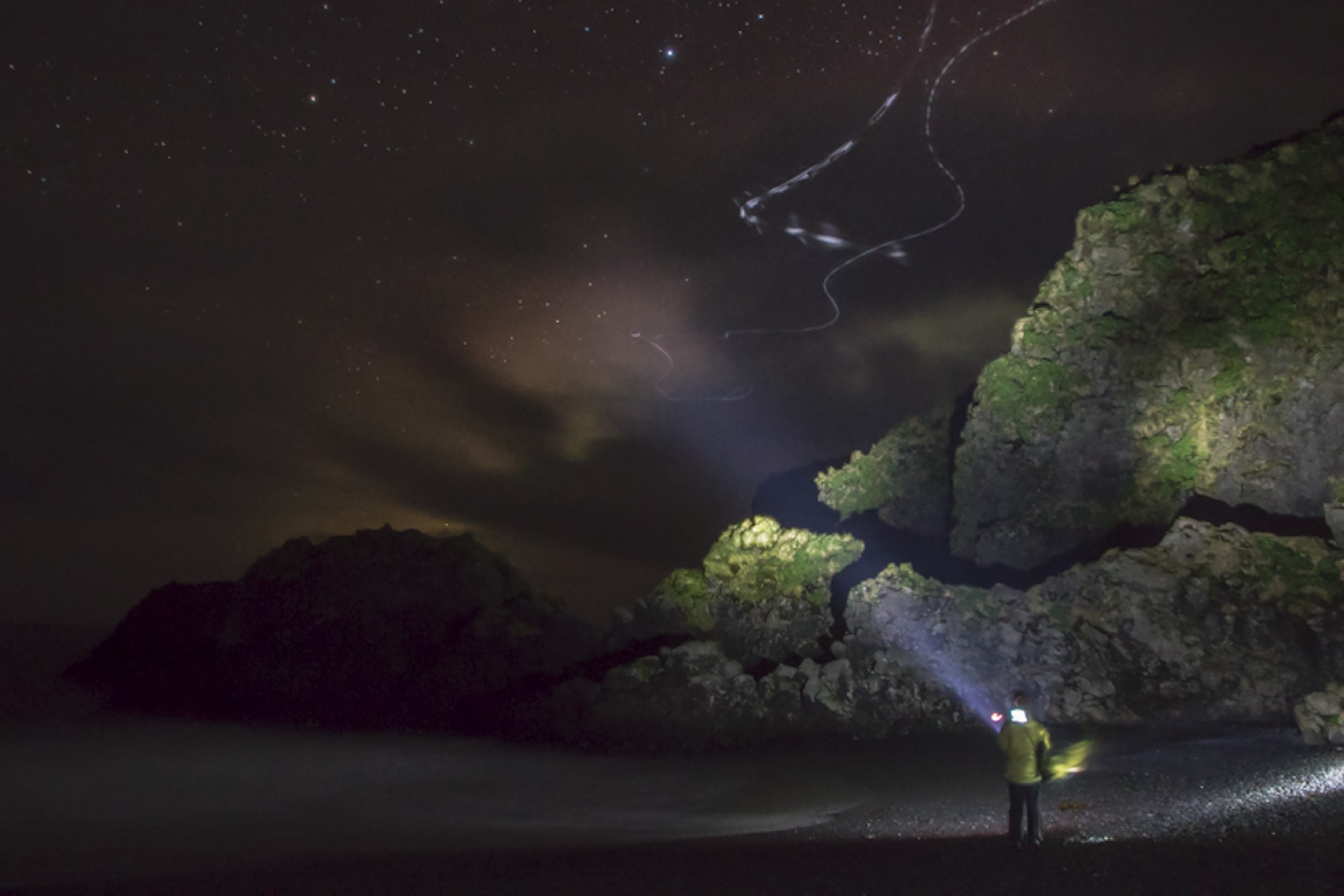
For nine years, the Gomeroi people of New South Wales have been campaigning to put a stop to Santos' A$3.6 billion fossil gas project on their traditional lands. Last Thursday, they won an appeal to halt work, with a federal court ruling that climate change impacts had not been adequately considered. 'To say that I was excited is an understatement. It was an overwhelming feeling of happiness and pride.' ABC
A conservation milestone for India in Gujurat, home to the only population of Asiatic lions in the world. The IUCN just recategorized the species from endangered to vulnerable, and there may be even more good news coming, with the state forest department proposing a new 30,000 km2 sanctuary for the apex predator. Times of India
India’s cheetah reintroduction programme just celebrated the birth of five cubs in Kuno National Park. 'This takes the tally of Indian born cubs to 13. This is the fourth cheetah litter on Indian soil' since the beginning of the programme, and the first litter by a South African cheetah in India. This is a really big milestone, especially after the programme's difficult start. Times of India
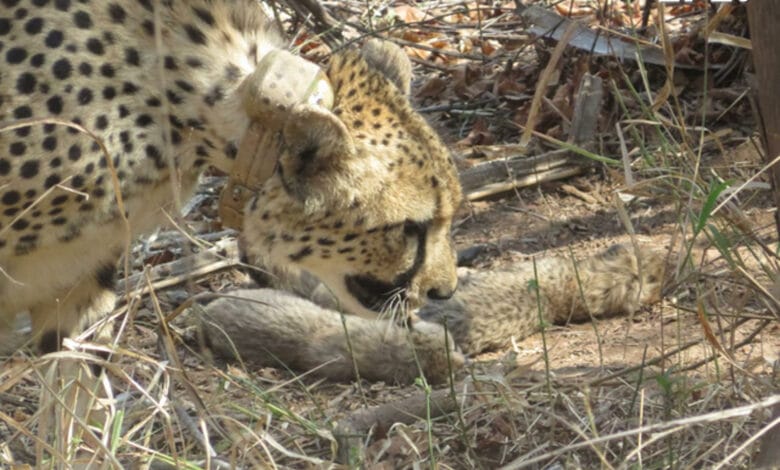
The EU has agreed on a provisional deal to create a new law to cut packaging waste and ban single-use plastics used for supermarket fruit and vegetables. Negotiators agreed on targets to reduce overall packaging by 5% by 2030 and 15% by 2040, and that all packaging should be recyclable by 2030. Earth.org
According to the latest statistics from the US Department of Agriculture, more than 40% of hens used for eggs in the United States are now cage-free, and 11 states have banned the practice of caging hens. Just 15 years ago, that number was only 3%. While free-range is still the only genuinely humane way to farm chickens, this does represent progress towards that goal. Humane Society
Following the success of the High Line and years of community advocacy, New York is poised for a unprecedented year of urban greening, with the opening of around 60 km of citywide 'greenways.' 'I don’t think there’s been a year like this, from a standpoint of greenways, and so much kind of focus and effort going into greenway planning.' Inside Climate News
The largest tuna fishery in the world, created by the Nauru Agreement (PNA) in 1982, is also the world's most sustainable. 'By imposing a limit, all of a sudden the onus is on the harvesters. They have to manage themselves within the quota that we've imposed. That raises the revenue, it supplements building roads, hospitals, schools, job creation and economic development for the islands.' Euronews

Bald eagles have returned to Toronto, suggesting the city's regreening efforts are working. 'A very special day,' as Darwin's finches are reintroduced to one of the Galapagos Islands. Mexican wolf populations in Arizona and New Mexico increase for the eighth year in a row. In Italy, efforts to build a viable population of Marsican brown bears are underway.The Wyoming toad leaps towards recovery. Nearly 12,140 km2 of grassland ranches in the United States have now been certified by the Audubon Society as bird-friendly. Restoring peatland is easily the cheapest form of carbon sequestration, and Scotland has already restored over 100 km2. Canada just banned strychnine for poisoning, hailed as a major victory by animal protection and environmental groups. Hundreds of baby sea turtles were recently released by conservationists off the coast of Nicaragua.
Quite literally a green shoots story, and probably the best one you'll hear this year.
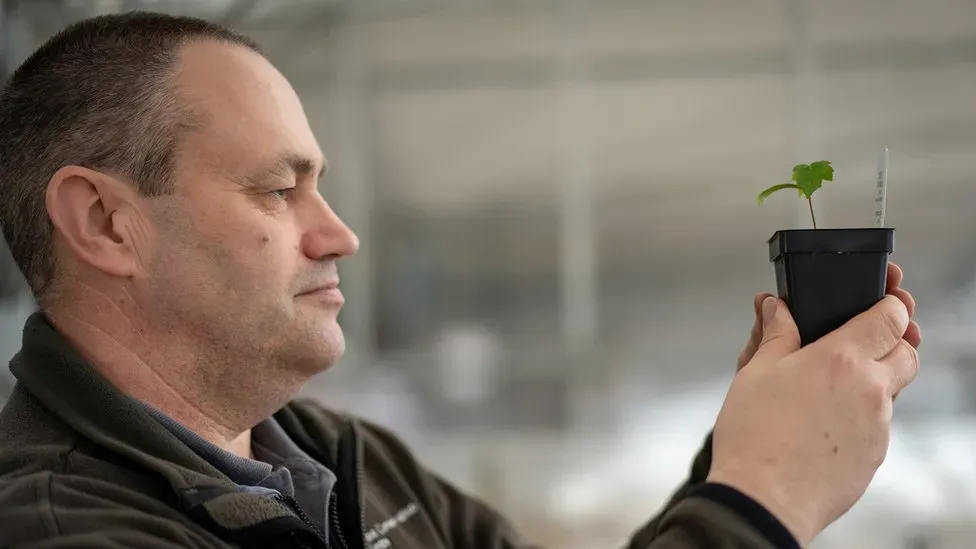
7th March 2024
Europe's new nature restoration law is a big deal. By 2030 it will legally require the restoration of 20% of land and sea and overall protection of 30%, aim for 30% of EU species and habitats to reach 'a favourable conservation status,' and restore at least 25,000 kilometres of free-flowing rivers. Carbon Brief
The Saksfjed Wilderness is one of the largest and most aspirational rewilding initiatives in Denmark. Since January 2023, a foundation has been working to actively rewild the area into open grassland, with scattered vegetation, open forests, and wetlands, grazed by bovines and wild horses, and now it's been added to the European Rewilding Network.
For the last 15 years, environmentalists and the Penobscot Indian Nation have been restoring the Penobscot River in Maine. As a result, thousands of kilometres of habitat along the river and its tributaries has been re-opened, fish populations have skyrocketed, and alewives could soon be returning to Maine’s Mattamiscontis Lake. Nature Conservancy
When these fish get into the smaller streams and there are hundreds of thousands of them, you can’t miss seeing them. When I first saw them in these numbers, it was a mind-blowing, guttural emotional response.
Dan McCaw, Fisheries Biologist, Penobscot Nation
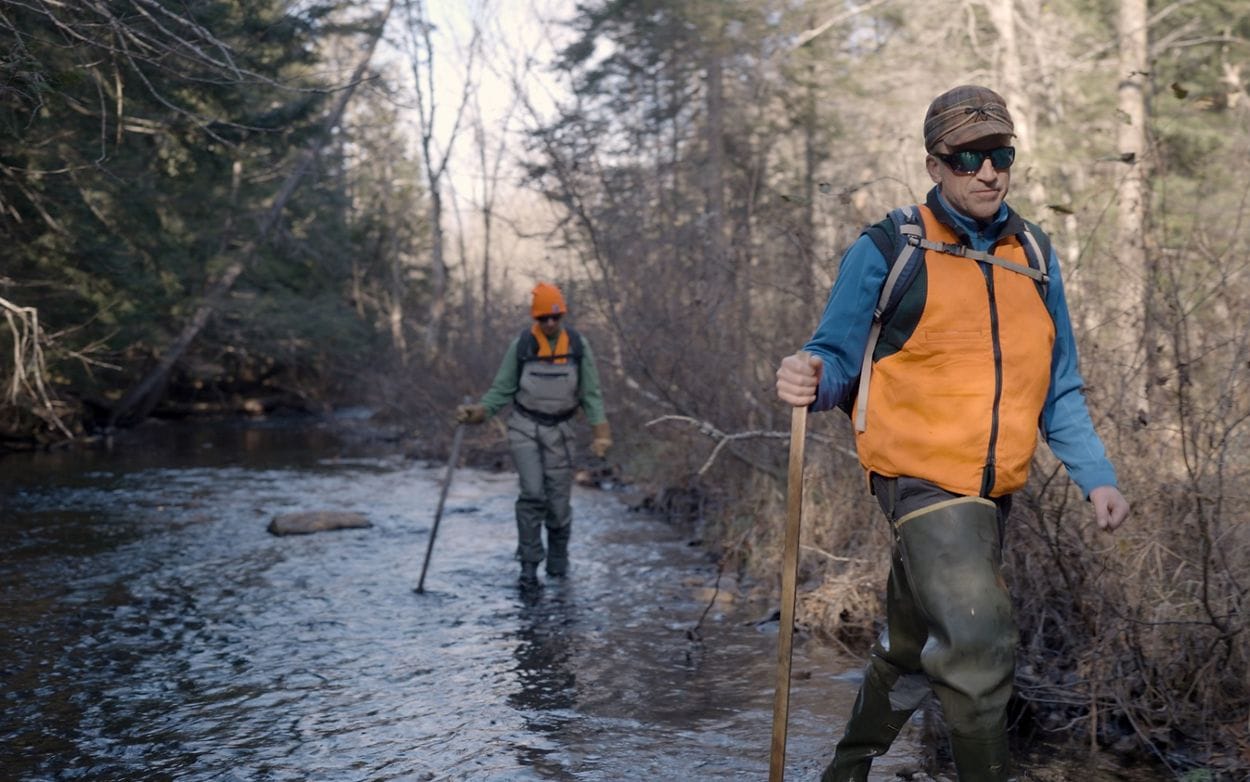
Thailand just achieved a significant environmental milestone with the first sighting of Siamese crocodile babies in Beung Boraphet, the country's largest freshwater swamp and lake. The return of crocodiles to the area suggests that decades of conservation and restoration efforts are starting to pay off. Pattay Mail
The Australian saltwater crocodile (Crocodylus porosus) was driven to the edge of extinction in the mid-20th century, with an estimated 3,000 individuals left by the 1970s. Now, after decades of protection, they have achieved 'full recovery,' with an estimated 100,000 individual crocodiles in Australia today. Science Direct
Sarah and Mark Tompkins founded the Samara Karoo Reserve in South Africa in 1997. Since then, they have successfully restored 271 km2 of land, reintroduced the area's first cheetah, black rhino, elephant, and lion in over a century—and kicked off a campaign to create South Africa’s third largest protected area, covering 12,140 km2. Geographical
When the Florida golden aster (Chyrsopsis floridana) was listed as endangered in 1986, only nine clusters of the yellow daisy-like perennial herb could be found growing in Hillsborough County, Florida. Now, 37 years later, 30 populations have spread across five counties in West Central Florida, and it's just been taken off the endangered list by the US Fish and Wildlife Service.
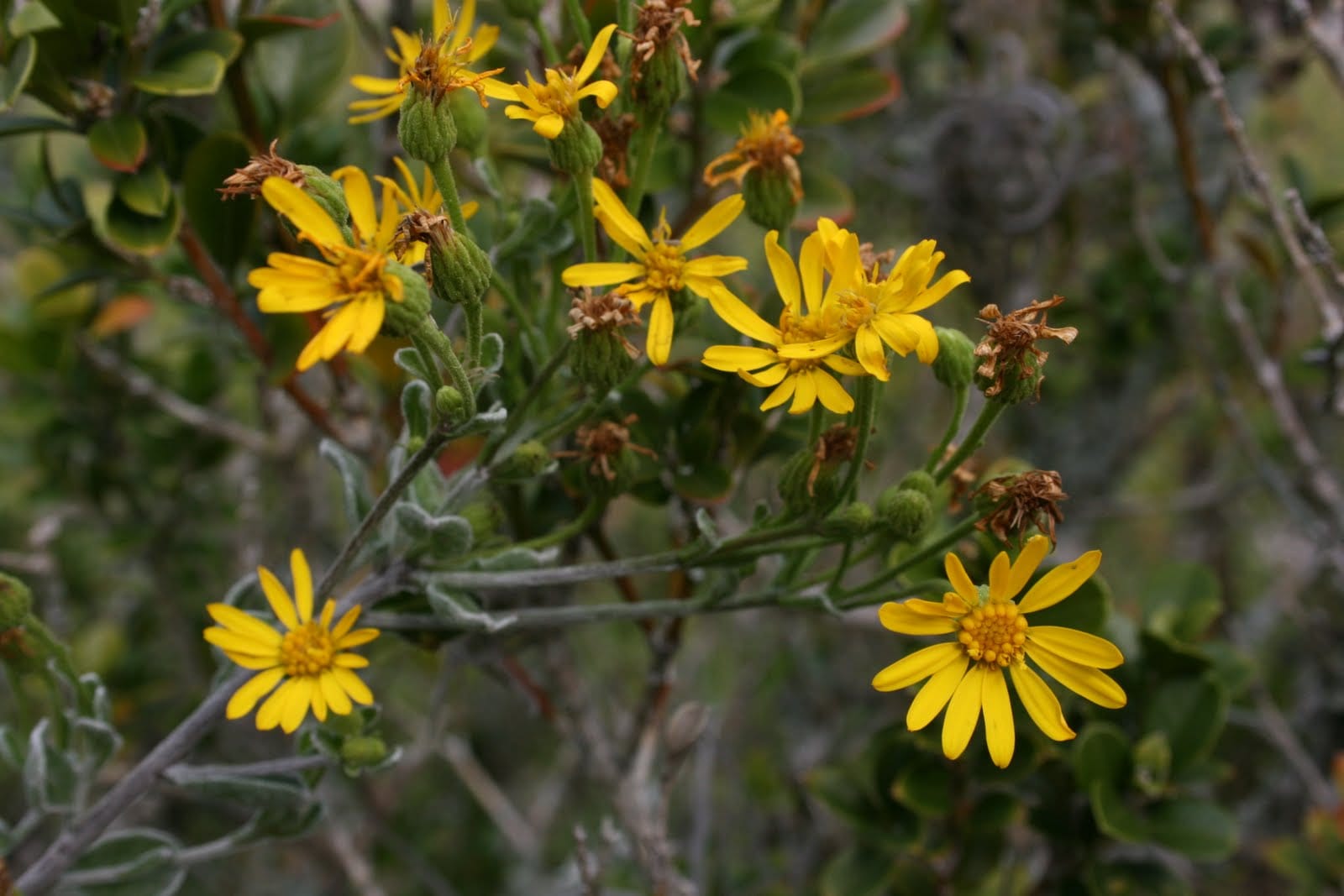
How's this for progressive taxation? The US Fish and Wildlife Service just announced over $1.3 billion of new conservation funding, supported by excise taxes paid in the United States last year on ammunition, firearms, archery and angling equipment, and a fuel and small engine tax. FWS
In the last decade, anti-poaching measures have been put in place in almost 100 global biodiversity sites, and poaching is now falling in 20 of them, affecting species from the desert-adapted elephants of Mali to Sumatran tigers and rhinoceros in Indonesia. In Ethiopia, 90% of illegal wildlife trade cases now end in convictions, and demand for ivory and tiger amulets in Thailand has fallen by 30%. World Bank
Bucking the global trend, Pakistan's mangrove forests saw a three-fold expansion between 1986 and 2020, from 483 km2 to 1,439 km2, according to an analysis of satellite data in 2022. Experts attribute this success to massive mangrove planting and conservation programs, as well as concerted community engagement. Mongabay
The Butterfly Redemption:
Recognizing the need for urgent action, the Oregon Zoo began a captive breeding program for the species in 2003. In 2011, the zoo helped establish the breeding program at Mission Creek as part of The Evergreen State College and Washington State’s Sustainability in Prisons Project. Since then, the work undertaken by these incarcerated women has become one of the last best hopes for the species’ survival. Hakai
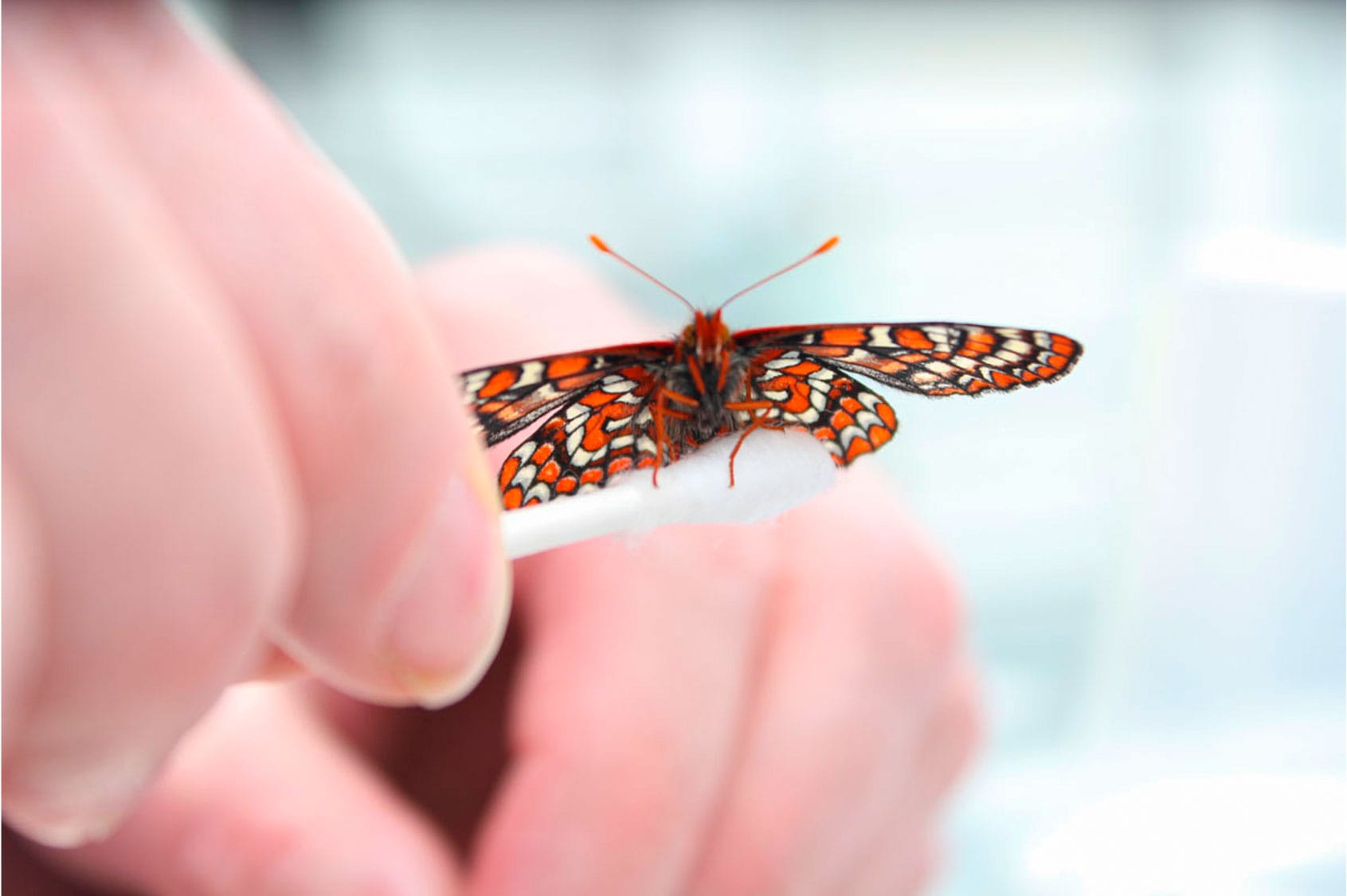
Medellín's Green Corridors is arguably the best urban restoration project in the world right now. Since 2016, 2.5 million plants and 880,000 trees have been planted in 30 'corridors,' reducing pollution and bringing temperatures down by 2°C in a city of 2.5 million people. Other cities are following suit, including Bogotá, Barranquilla, and São Paulo, the largest city in South America. RTBC
The Biden Administration has announced $195 million in funding to spend on climate projects in US national parks. It will support more than 40 projects, from restoring coastal marsh systems in the Northeastern corner of the United States to promoting native fire management in the Pacific Northwest and developing conservation plans for bison in a dozen parks. National Parks Traveler
The Svalbard Global Seed Vault just received deposits from 23 seedbanks—with Bosnia and Herzegovina, Cameroon, Indonesia, Kazakhstan, Kenya, Madagascar, Nigeria, and Zambia depositing for the first time. Reuters

In the space of a few weeks, judges in Idaho, Nevada, and Montana just altered the landscape for conserving water in the western United States. The successful rehabilitation of Harpy Eagles in Bolivia is a ray of hope for a species that's lost vast stretches of its historical habitat. Taiwan's FDA just banned animal testing for iron supplements. The US FDA is banning forever chemicals in food packaging like fast-food wrappers, microwave popcorn bags, and takeout pizza boxes. How recycled oyster shells are restoring the Alabama coast. Ireland has launched an ambitious new national waste management plan. Efforts are now underway to restore populations of the American marten to forest areas across Pennsylvania. What if all the best jobs in 2030 were ones that regenerated the world? It's not naive. Many inspiring people are already doing it—soil doctors, river guardians, seaweed farmers, river restoration engineers, and food waste hackers, among others.

29th February 2024
The European Parliament has adopted a law to restore 20% of EU’s land and sea. Under the law, countries must restore at least 30% of habitats in poor condition by 2030, 60% by 2040, and 90% by 2050. Member states will also have to restore at least 25,000 km of rivers to be free-flowing rivers and ensure there is no net loss in the total national area of urban green space and of urban tree canopy cover.
The Terai Arc Landscape initiative, Nepal’s pioneering landscape-level ecosystem restoration project, has led the restoration of 668 km2 of forest and nearly tripled the population of the endangered Bengal tiger. It's just been honoured as a UN World Restoration Flagship, one of the seven best examples of ecosystem restoration around the world.
The Biden administration, governors of Oregon and Washington, and the leaders of four Columbia River Basin tribes have formally launched a $1 billion plan to help recover depleted salmon populations in what was once the world’s greatest salmon-producing river system. AP
This signing ceremony is a historic moment, not just for the tribes, but also for the US government and all Americans in the Pacific Northwest. My heart is big today.
Corinne Sams, Confederated Tribes of the Umatilla Indian Reservation

Twenty years ago, officials closed around 12,000 km2 of ocean waters off Southern California due to overfishing. Since then, nearly all species have achieved full recovery, and the area has been reopened to non-commercial fishing, with some crucial areas still conserved. 'If you leave Mother Nature alone, things can come back and can be more resilient than even we expect.' Santa Barbara Independent
In 2015, McDonald’s—one of the world’s largest and most iconic fast food chains—agreed to switch 100% of the eggs that it purchases to cage-free in the United States by 2025. The Humane Society just revealed that they reached that goal early, at the end of 2023. This is a big deal—McDonald’s purchases nearly 2 billion eggs each year for its US locations.
French company Carbios says it has commissioned an engineering firm to construct the world’s first biological recycling plant for PET plastic in eastern France. The company’s technology is among the first to offer full circularity for PET, and it claims it will be able to extend its enzymatic approach to many different types of plastic. Recycling Today
During the United State's early colonial history, huge areas of woodland were razed for agriculture and housing, but this trend began to reverse around a century ago. Such large expanses have since been reforested in the eastern United States—enough trees sprouting back to cover an area larger than England—that it has helped stall the effect of global heating. Guardian
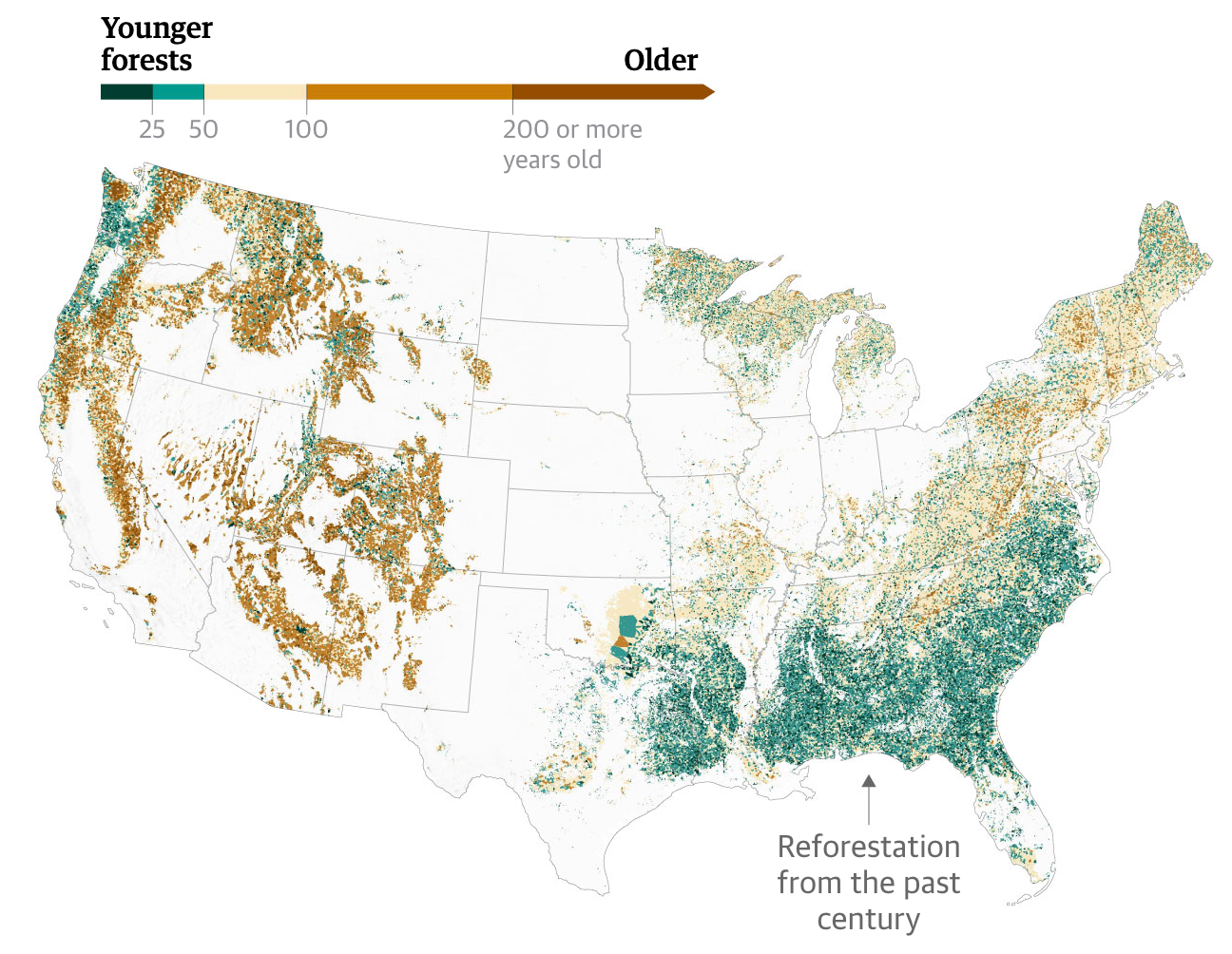
The EU has upgraded its laws to combat environmental crime more effectively. The new legislation enables criminal prosecution for environmentally-damaging conduct, standardizes penalties—increasing prison sentences for individuals and setting fixed fines for companies—and expands the list of environmental offences. Member states have two years to adopt it into their national laws. Greens
The EU has agreed to set stricter limits on the toxic particles and dangerous gases that dirty its air. The new rules slash the yearly limits for fine particulates known as PM2.5 from 25 µg/m³ to 10 µg/m³, and for nitrogen dioxide, a gas that hurts the lungs, from 40 µg/m³ to 20 µg/m³. 'This is a major step forward for people’s health. It is a once-in-a-generation chance to improve air quality.' Guardian
England has an ambitious new biodiversity credit scheme that will force new road and housebuilding projects to benefit nature rather than damage it. Developers will need to deliver a Biodiversity Net Gain of 10%, meaning if a woodland is destroyed by a road, another needs to be recreated either on site or elsewhere. Guardian

Belgium becomes the first country in Europe to recognise ecocide as a crime. Environmentalists celebrate the surrender of the last offshore oil permits in British Columbia, a victory decades in the making. Crocodiles are thriving once again in the rivers and wetlands of Costa Rica. Fin whales return to the waters off New York and New Jersey. Earlier this month, as relentless rains pounded Los Angeles, the city’s sponge infrastructure helped gather 8.6 billion gallons of water. Hats off to the people behind Kenya's largest-ever rhino relocation. California just conserved a 27,000-acre parcel of land on its Central Coast, and the Nature Conservancy just bought an 8,000-acre tract at the confluence of the Alabama and Tombigbee Rivers. The EPA will award $4.6 billion to states and cities this year to implement local climate action plans. Say hello to green roads. Utah is about to become the biggest no-kill state in the United States. The population of common cranes, the UK’s tallest bird, is the highest since their reintroduction in 1979. For the first time in a century, the Pilliga Forest, the largest native forest west of the Great Dividing Range in Australia, is crawling with native animals.

15th February 2024
Over the past decade, the Dominican Republic has regreened one fifth of the country thanks to the Yaque River basin restoration project. The project, which uses the simple strategy of convincing landowners that reforesting their farms is beneficial for them, has reduced soil degradation by 18%. El País
For the first time in a decade, the EPA has tightened regulations on air pollution, lowering the allowable limit for annual PM2.5 levels from 12 micrograms per cubic meter to 9. The reduction is predicted to reap $46 billion in net health benefits by 2032, including prevention of up to 800,000 asthma attacks and 4,500 premature deaths. NPR
Bhutan has expanded its protected area network with a new biological corridor connecting Sakteng Wildlife Sanctuary and Bumdelling Wildlife Sanctuary in the country’s east. The region is home to hundreds of unique flora and fauna species, including the snow leopard, red panda, and Ludlow's Bhutan glory. WWF
As the site of what's been called the 'greatest river recovery in Europe,' the Mersey River is continuing to thrive with sightings of dolphins, harbour porpoises, jellyfish, and five species of sharks. Last year, 45 different kinds of fish were found in the river, triple the amount recorded in 2002. Not bad for a river declared biologically dead 40 years ago. Liverpool World
Chile has formally created the new Valle Cochamó Nature Sanctuary. It is one of the country’s largest protected areas, spanning 14 km2 of forest, glaciers, and million-year-old rocks. The region is home to 12 forest types, 50 animal species, and one of the most important water reserves in the world. Patagon Journal
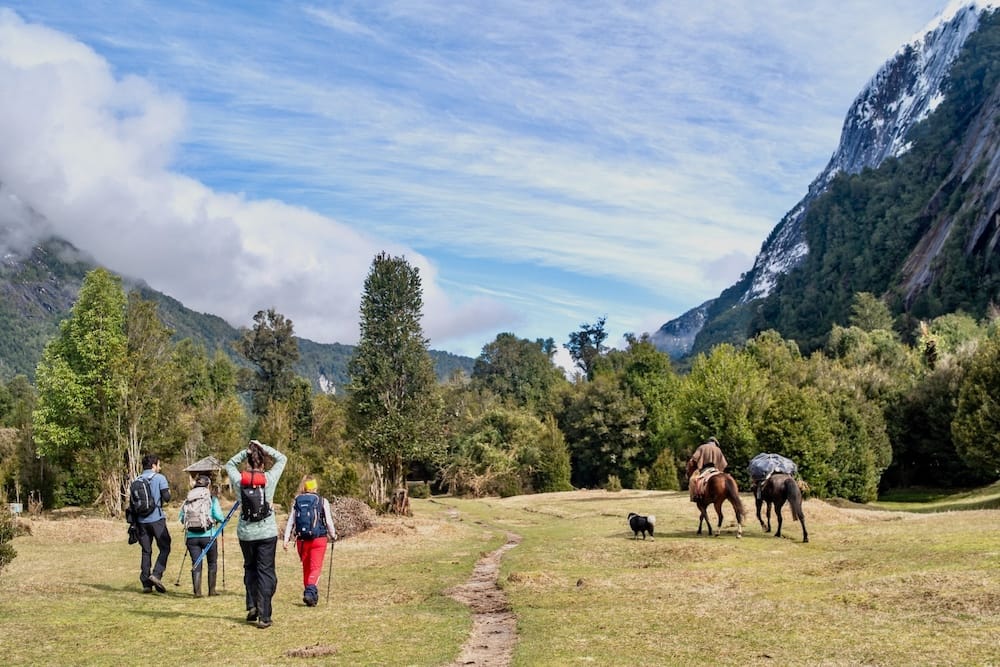
Manglares de Puerto Morelos, in the Mexican state of Quintana Roo, will protect 12 km2 of mangroves that contain 23% of the state’s biodiversity. The site is part of a larger wetland complex that includes critical habitats for the monarch butterfly, Yucatán mushroomtongue salamander, snail-eating thirst snake, and collared toucan. El Economista
The US Bureau of Land Management will invest $41 million for ecosystem restoration by supporting 74 projects in 16 states, including restoring abandoned mine lands, protecting wildlife, improving water quality, and strengthening local economies. BLM
Columbia has protected the Las Siete Sabias-Esperanza de Vida in Chocó, 303 km2 of tropical rainforest along the Pacific coast, boosting connectivity within an important biodiversity hotspot. The rainforests are home to threatened species like the Choco broad-nosed bat and the saffron-headed parrot, as well as the Cabí River, a vital water source for approximately 108,000 people. AAF
A $15 million land purchase in Alabama will protect 32 km2 of the Mobile-Tensaw Delta, dubbed ‘America’s Amazon’ for its remarkable biodiversity and wildlife. The deal, which is called Land Between the Rivers, is a collaboration between The Nature Conservancy, a private donor, and outdoor clothing company Patagonia. AL
This is one of the most important conservation victories that we’ve ever been a part of. It’s protected a vitally important complex of land, almost 8,000 acres, critically important to the health of the Mobile Delta and then, by extension, Mobile Bay and the Gulf of Mexico.
Mitch Reid, The Nature Conservancy
After years of dwindling numbers for Florida manatees, wildlife officials say numbers are bouncing back thanks to continued efforts by the state. In Tasmania, over 80 critically-endangered orange-bellied parrots have returned to their breeding ground, the highest number in 15 years; and for the first time in 600 years, giant tortoises are roaming Madagascar, thanks to a six-year relocation project.
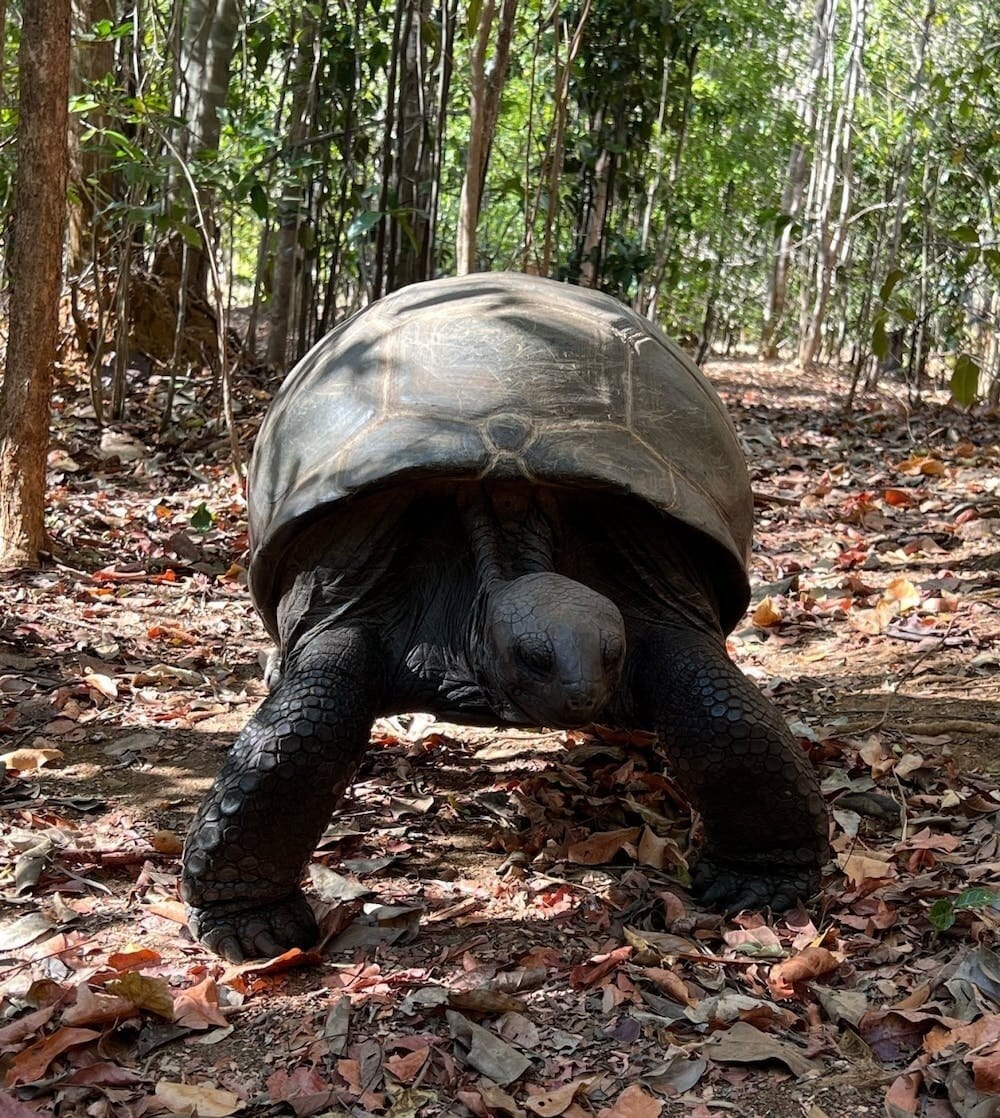
It’s been a busy month for global advocacy group Oceana: new MPAs have been created in Mexico, Chile, the Canary Islands, the Ibiza Channel, and the Strait of Gibraltar. Over the past century, European bison have made an amazing comeback to 7,000 wild animals across the continent. Arizona now uses 3% less water than it did in 1957, despite its population mushrooming more than 555%. The restoration of Yundang Lake in China is a testament to the power of regenerative approaches. A new project is aiming to protect South America's Chaco-Pantanal Wildlands, spanning 1.2 million km2 across Argentina, Bolivia, Brazil, and Paraguay. Since 2007, Project Hariyali has planted over 20 million trees in India. A new conservation strategy in Africa is reversing the trend of illegal wildlife trafficking by transforming reformed poachers into wildlife advocates. The US military is taking on forever chemicals. Northwestern University chemists have developed a new catalyst that completely breaks down the plastic used by fishing nets in minutes. New research has found 8,481 potential transboundary conservation areas in Africa, covering an area of nearly 2 million km2—half the size of the EU.
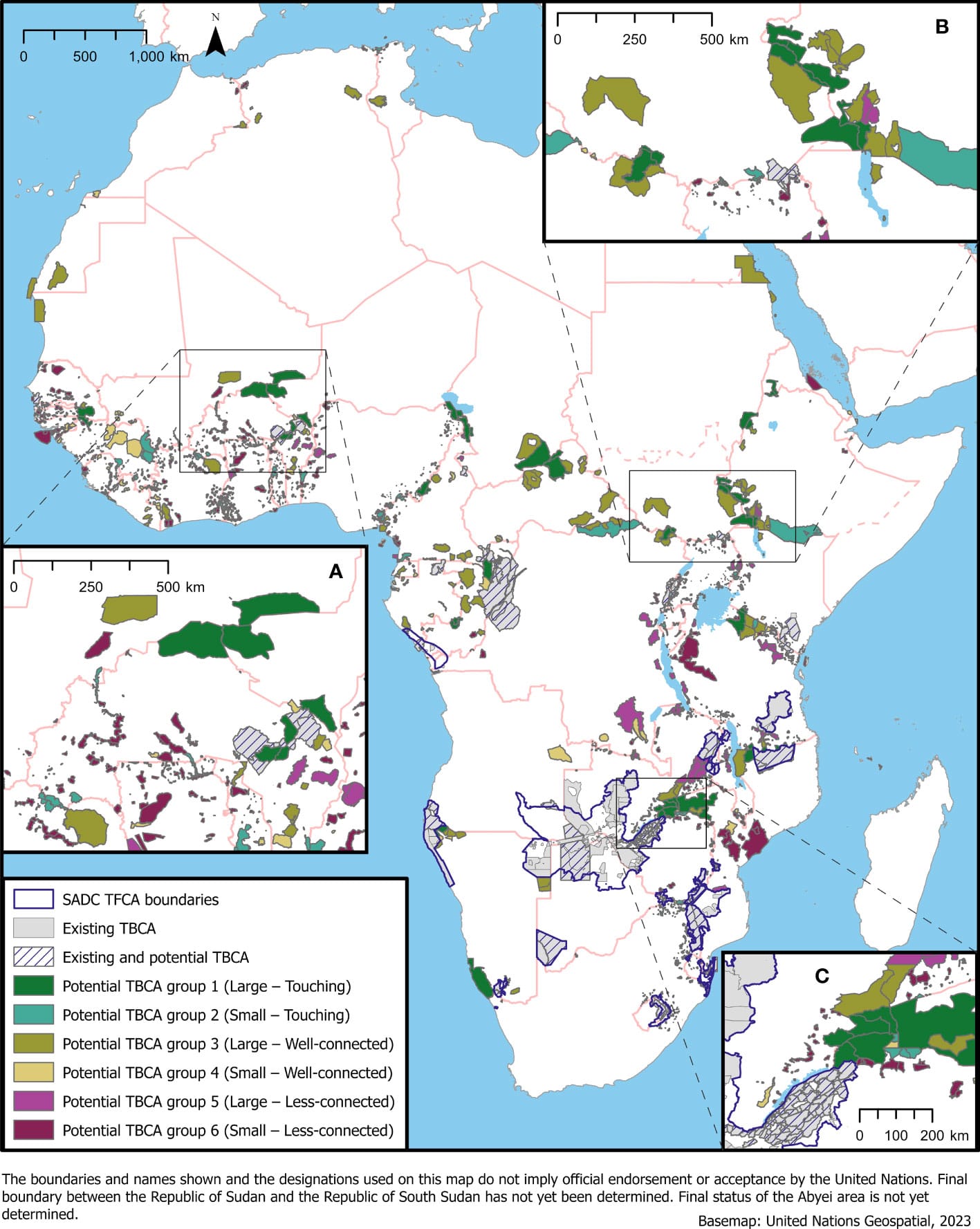
8th February 2024
Over the past 25 years, small towns across Bolivia have protected over 100,000 km2 of the Amazon, creating a 'conservation mosaic' almost the size of Iceland. Recently, the community of Sena has added another piece to the puzzle with the Gran Manupare Integrated Management Natural Area, 4526 km2 of lowland rainforest that is home to the endangered giant otter. Conservation International
Piece by piece, we are knitting together the fabric of conservation in the Amazon. Local communities have kept their eyes on the prize. They are having a big impact on the Amazon, for the benefit of us all.
Eduardo Forno, Vice President, Conservation International - Bolivia
Spain has designated seven new marine protected areas across the country’s three marine regions: the Mediterranean, Macaronesia, and the Atlantic. The designation will increase Spain’s area of ocean protection from 12% to 21%, safeguarding the habitat for threatened species, including deep seamounts and a large migratory corridor for birds. Oceana
Canada will provide federal funding to 42 Indigenous-led conservation projects across Nova Scotia, Quebec, Ontario, and Saskatchewan, adding to the $202 million already allocated to Indigenous communities. In Bangladesh, Indigenous communities have reversed the decline of the endangered putitor mahseer fish by protecting the headwater forests that support breeding and population growth.
A great example of how saving one species can have a domino effect on the restoration of a whole ecosystem. In California’s Monterey Bay, efforts to bolster sea otter populations are saving local salt marshes because the otters feast on the burrowing crabs that cause erosion. The sea otters have consumed enough of the crabs to slow the erosion almost to a halt. ABC
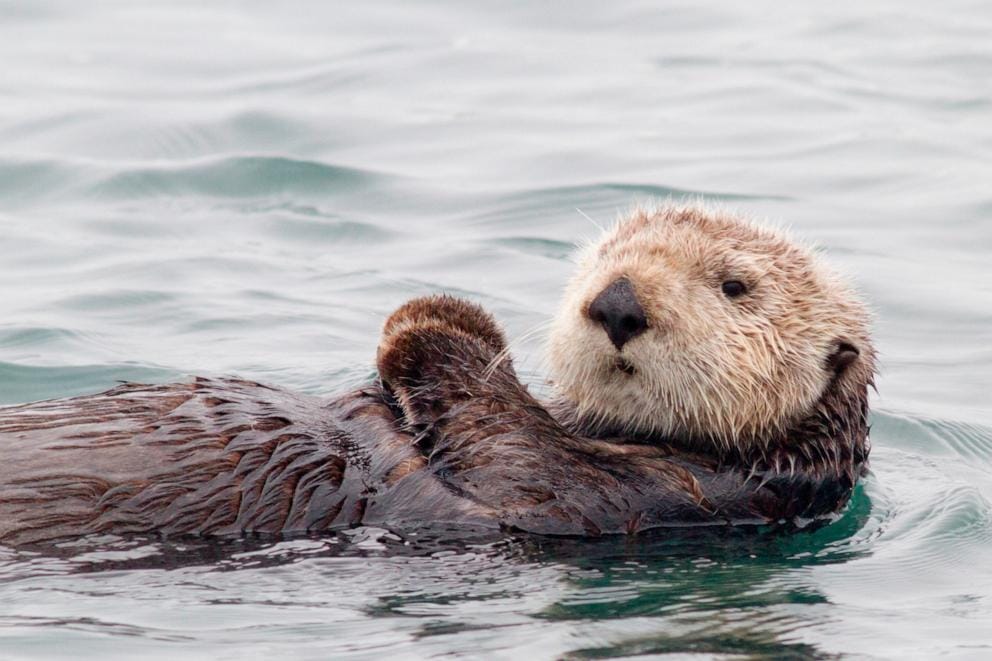
The first-ever snow leopard survey in India has confirmed the country is home to 718 big cats, roughly 10-15% of the global population. The survey reported that understanding the precise population is important because as the apex predator, the leopard indicates the health of—and challenges facing—the entire Himalayan ecosystem. BBC
Ecosia, the German-based search engine that uses advertising revenue to fight climate change, has reached an impressive milestone of 200 million trees planted. The organisation has also invested in climate tech solutions, set up an incubator for regenerative agriculture, and has created enough solar plants since 2020 to power all Ecosia searches twice over.
California’s landmark plastic reduction law, SB 54, will dramatically alter how plastic and packaging waste is managed. All single-use packaging and plastic food service-ware will have to be recyclable or compostable by 2032, with a 65% recycling rate for these materials. Companies that don’t comply will face steep fines up to $50,000 per day for each violation—and it's already working. EHN
In 2022, Yvon Chouinard, the founder of outdoor apparel brand Patagonia, declared that all future profits of the company would be used to protect the environment. Since that date, $71 million of earnings have funded the protection of 658 km2, and there are plans to protect another 13,000 km2, much of it in Australia and Indonesia. NYT

Chile and Palau have become the first two of 80 countries required to ratify the UN’s landmark High Seas Treaty. New Zealand will be the first country to ban the use of forever chemicals in cosmetics from 2026. After a 30-year absence, the endangered Guam Kingfisher will soon return to the wild. The Pench Tiger Reserve has become India’s first Dark Sky Reserve (the lack of light pollution makes it ideal for astronomy enthusiasts). Against all odds, it looks like jaguars are making a return to the United States. Turtle nests have been found off the coast of Cambodia, sparking hopes for endangered hawksbill and green turtles. The UK is delivering on measures to protect its oceans with a permanent closure of the sandeel fisheries and a targeted ban on bottom trawling in an additional 13 MPAs. An enzyme used in laundry detergent has been found to break down single-use plastics within 24 hours, 84 times faster than the 12-week-long industrial composting process. Nouabalé-Ndoki National Park in the Republic of the Congo just marked its first year without any elephant poaching.
1st February 2024
Mexico has announced 20 new protected areas, which will cover roughly 23,000 km2, stretching across 12 states and both the Gulf of Mexico and the Gulf of California. The areas will preserve critical land and marine habitats for species including whale sharks, Mexican prairie dogs, and jaguars. Mongabay
Ireland has designated more than 3,000 km2 of ocean off the coast of Wexford as a Special Protection Area. The area adjoins eight existing SPAs and will boost protections for over 20 species of rare and threatened birds, including the Common Scoter, Red-throated Diver, and Black-backed Gull. Irish Independent
China’s efforts to protect panda habitats are paying off, with the wild population of giant pandas increasing from 1,100 in the 1980s to 1,900 today. The Giant Panda National Park, established in 2021, is home to around 72% of the wild giant panda population, securing a status change for the species from 'endangered' to 'vulnerable.' Straits Times
The world’s forests are doing better than we think. England now has more forest than it did during the Black Death, covering 13,000 km2 of the country; China’s forest area has increased by about 607,000 km2 since 1992, and the combined tree-planting efforts of India and the United States would cover Bangladesh in an unbroken canopy of leaves. Bloomberg 🎁
'We should celebrate our success in slowing a pattern of human deforestation that’s been going on for nearly 100,000 years. Nothing about the damage we do to our planet is inevitable. With effort, it may even be reversible.'
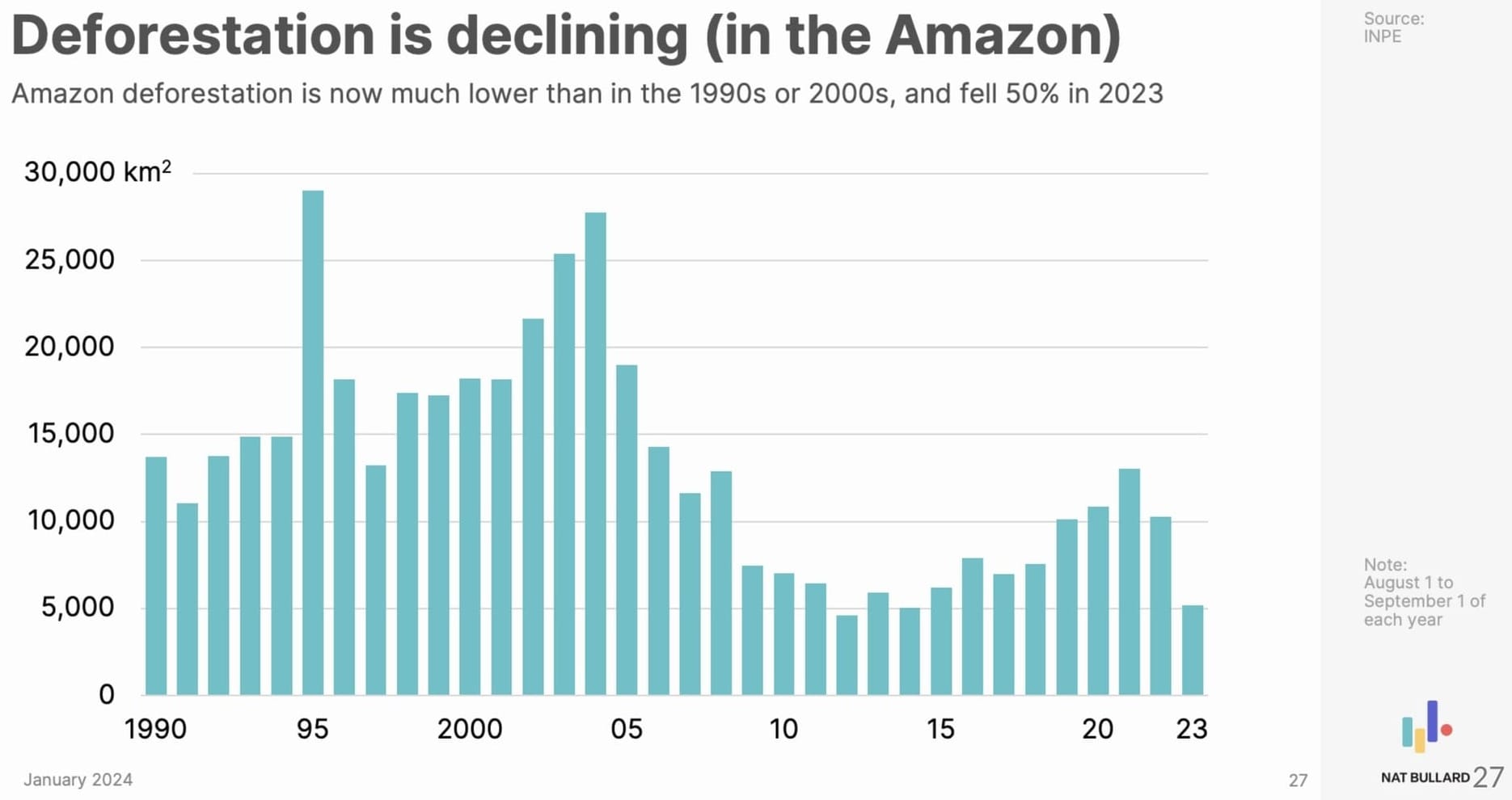
The first-ever platypus translocation program has introduced ten furry trailblazers into Sydney’s Royal National Park after a 50-year absence, with hopes they will breed in the area. Over the past three decades, the areas where platypuses live in Australia have shrunk by 22%, but early reports from the program say the animals are adapting well. Concrete Playground
Composting is now mandatory in France, with households and businesses required to sort out bio-waste such as food scraps and garden waste, and in California, consumers and businesses have cut food waste by 10% since 2016. Tighter restrictions are aiming to cut organic waste by 75% by 2025, in addition to recovering 20% of edible food waste in order to address food insecurity.
The EU is tackling greenwashing, with new legislation banning misleading marketing claims like 'environmentally friendly' and 'biodegradable' on product packaging unless there is concrete evidence for the claims. It is also continuing its crackdown on microplastics by forcing beauty companies to cover the extra costs needed to get rid of the pollutants in urban wastewater.
Colombia has created a new national park by turning local ranchers into rangers. After a decade of negotiations, Parque Nacional Natural Serranía de Manacacías now spans 680 km2 of tropical savanna that provides a crucial link to the Amazon. 'The hope is that by protecting this small puzzle piece of savanna, a whole lot more can be saved.' NYT
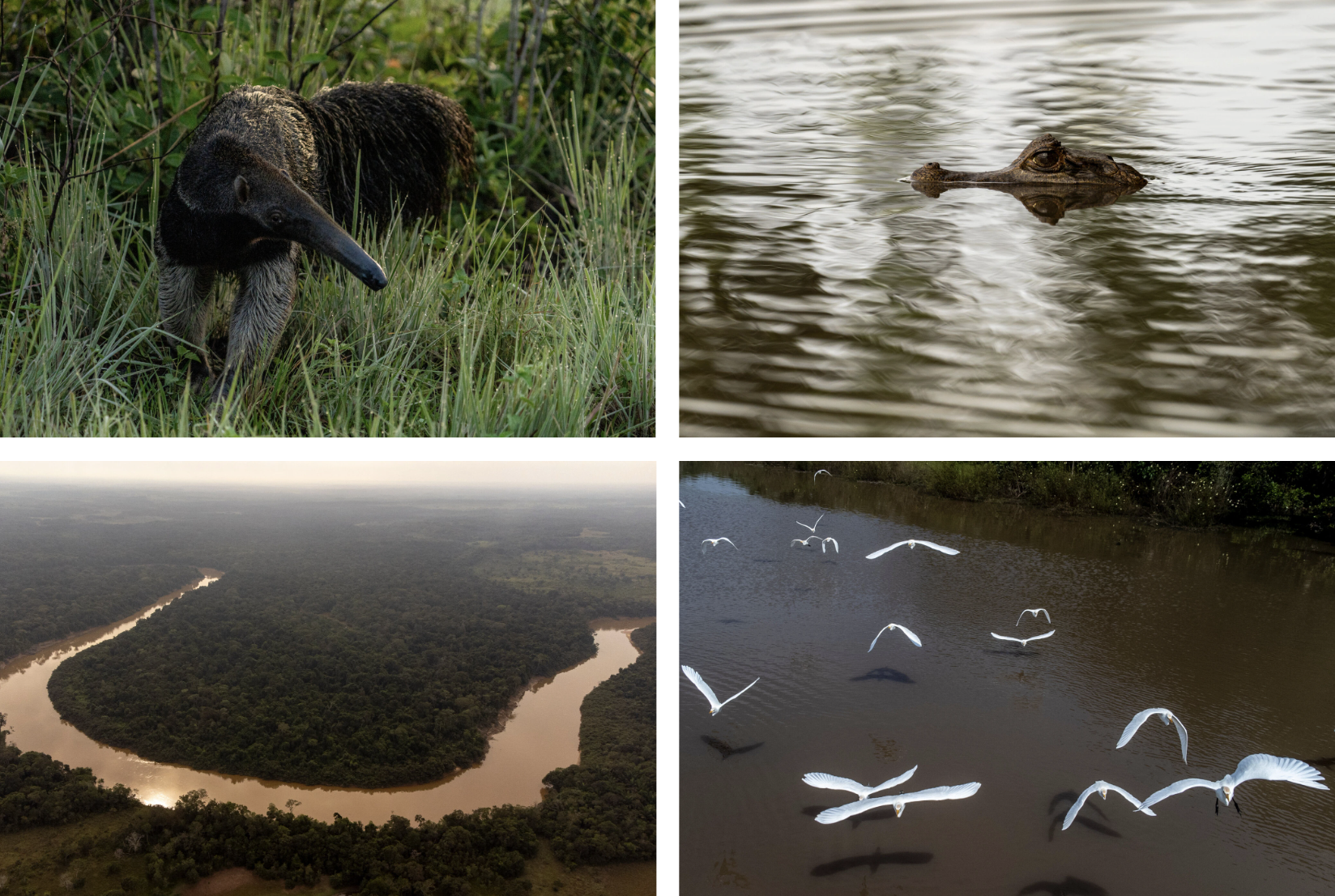
After two years of negotiations, Belgium has banned the import of hunting trophies from endangered species. Heralded as a 'momentous' triumph for wildlife conservation, the legislation will protect vulnerable animals such as hippopotamuses, cheetahs, and polar bears. World Animal News
Over the past several years, American cities and states have passed over 500 policies restricting single-use plastic bags, and a new report says these laws have prevented billions of bags from being used. 'The bottom line is that plastic bag bans work.' Grist
Lagos State, in Nigeria, has announced an immediate ban on single-use plastics and styrofoam to deal with escalating pollution. It follows the lead of African countries like Tanzania, Botswana, Uganda, and South Africa that have either banned single-use plastics or placed a high tax on them. Ecowatch
Brazil’s footwear industry is aiming to become more sustainable by switching to vegan materials. In Scotland, a fierce competition ensues between glens, lochs, and isles to become the country’s next national park; in Devon, an ancient rainforest will be restored with 100,000 new trees across 50 hectares; in Wisconsin, the largest land conservation purchase in the state's history will protect 70,000 acres of the Pelican River Forest. Could 2024 be the turning point for unregulated fishing? Communities in northeastern Brazil have rallied to protect 100,000 acres of Caatinga dry forest, and volunteer efforts to remove purple urchins are saving California’s kelp forests. Have you ever wondered how cities like London and Paris make car-free zones popular? It has something to do with the Goodwin Curve. 'When I first set foot in the Klamath watershed as a scientist back in 2008, dam removal seemed little more than a dream. Fast forward 15 years and I’m on the edge of my seat as three dams on the Klamath River see their final days, with a fourth already removed.'
24th January 2024
After last year's record fall in the rate of deforestation, Lula has kicked off 2024 vowing to keep up the pressure on environmental criminals devastating Indigenous lands in the Amazon. 'We cannot lose a war to illegal miners, we cannot lose a war to illegal loggers and we cannot lose a war to people who are breaking the law.' Guardian
Plastic bags are the number one contaminant found in Colorado’s rivers and streams—but last year, thanks to the imposition of statewide fees, between 1.5 billion and 1.8 billion fewer plastic bags were used, and an even greater reduction is expected this year, as businesses phase out their use too. ABC Denver
Last month marked the 50th anniversary of the US Endangered Species Act. For decades it has protected nature with bipartisan support, rescued hundreds of species of animals and plants from annihilation, transformed the US Fish and Wildlife Service from a wildlife killing service to a wildlife recovery service, and helped birth the global science of restoration ecology. Time
Youth activists in Norway have won a major legal victory, after a court in Oslo found the approvals of three new oil and gas fields invalid and issued an injunction forbidding the state from granting any new permits necessary for construction and production there. 'This is an important victory for current and future generations and the environment.' Greenpeace
One of the most underrated ecological phenomena of our time is the regeneration of abandoned farmlands, thanks to the more efficient land use of modern agriculture. Since the 1990s, the EU has reforested an area the size of Portugal, the United States uses 40% less cropland than in 1960, and globally, an area of farmland half the size of Australia is abandoned every year. Legendes Carto
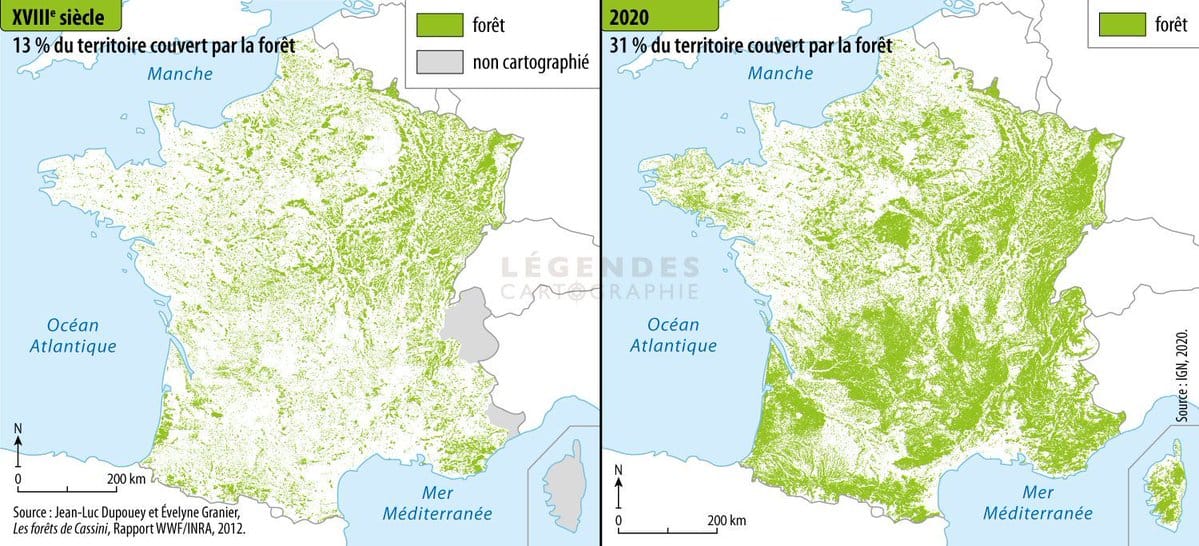
China reforested or restored 83,300 km2 of land in 2023, thanks to hundreds of ecological restoration, land afforestation, rare tree cultivation, and wetland protection and restoration projects. It's also setting up a national ecological monitoring network across 44 key regions, covering forests, wetlands, grasslands, deserts, oceans, cities, and farmlands.
It's reforestation week! Sri Lanka's cabinet just approved a plan to increase forest cover to 32% by 2032, the Dominican Republic is roping in the military to help with its reforestation plans, in Brazil drones are reforesting the hills around Rio, and the Philippines just passed laws requiring parents to plant two trees for every child—and requiring students to plant two trees when they graduate.
An international effort to protect endangered river dolphins is gathering steam. Known as the "Global Declaration for River Dolphins," it commits 14 of the animals’ range countries to implement specific actions and strengthen regional and national initiatives. So far, nine countries have signed the declaration. China, Indonesia, Myanmar, Peru, and Pakistan are pending. Mongabay
In the UK, the Cornish chough, once extinct in Cornwall, has been re-wilded and has started to move inland in what wildlife experts say is a sign of its 'flourishing' recovery. In the United States, the Eastern monarch butterfly, long thought to be in peril, is not in decline after all, and well-meaning efforts by the public may actually be doing more harm than good.
In an unexpected display of rationality, the French government has listened to the advice of scientists instead of the fishing industry and temporarily banned all fishing in the Bay of Biscay. From Finistere in the extreme west of Brittany to the Spanish border, fishing will cease almost entirely until the 20th of February. France24
According to a new study, humpback whale numbers in Cumberland Bay of the island of South Georgia have nearly recovered to pre-whaling levels, last seen in 1904. The rewilding of South Georgia amounts to 'the single most uplifting environmental story in the world.' Hakai
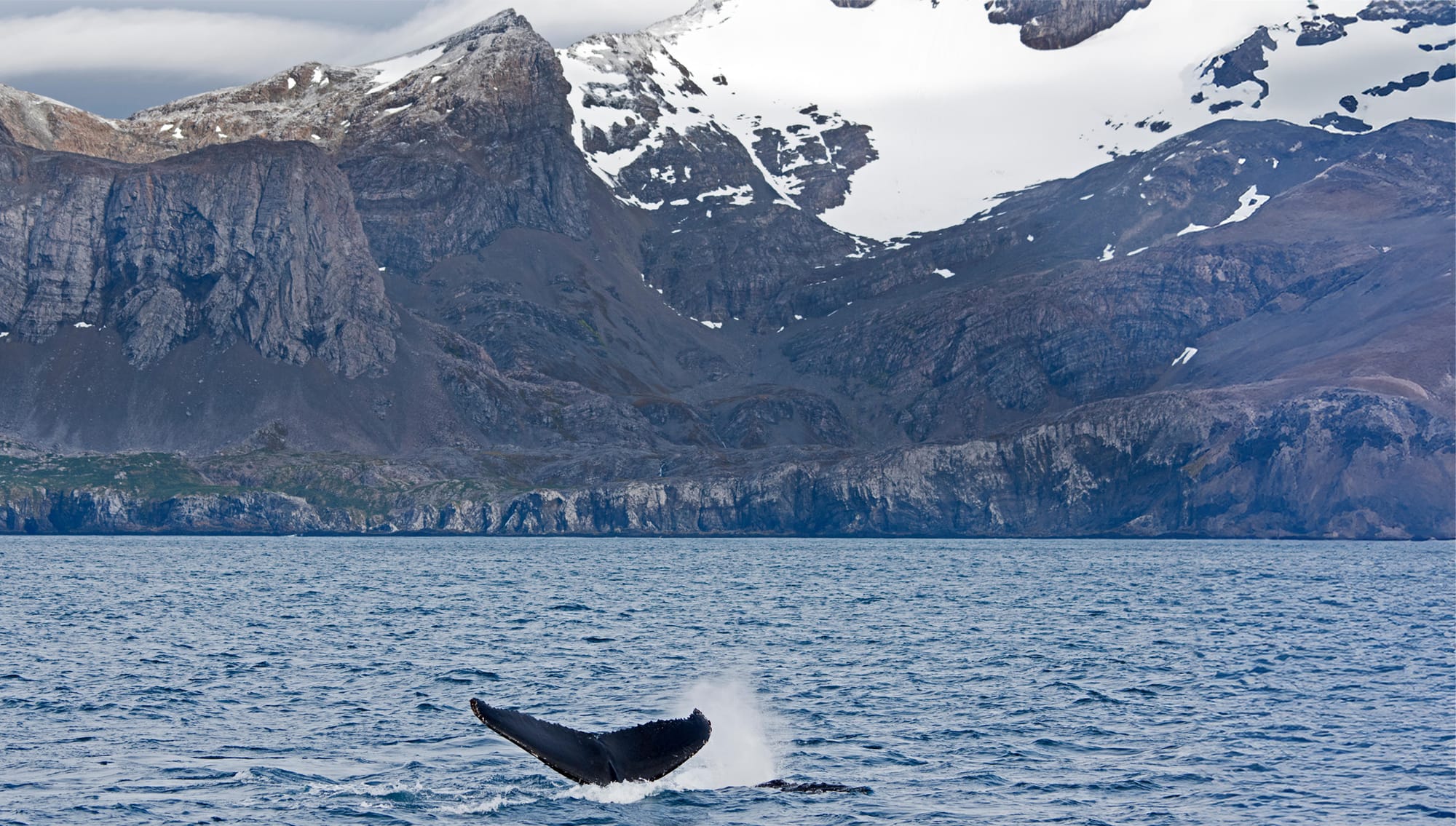
Canadian beef farmers say they're on track to meet their goal of cutting emissions by a third before 2030. Did you know that the US Department of the Interior directed over $2 billion of investments to restore the nation’s lands and waters last year? Yeah, us neither (it's almost like news organisations didn't bother reporting it). Make America Rake Again. The state of Maryland has planted half a million trees in the last two years, getting it 10% of the way to its 5 million target by 2031. New York is getting in on the tree-planting action, too. What if we told you 2023 was actually a pretty great year for conservation in Texas? ‘The wildlife that has come is phenomenal’—British farmers are holding off floods by planting trees, creating floodplains, and rewilding rivers. The Pacific Coast’s real native oyster is making a comeback, with a little help from some friends. A revolutionary way to feed the world that's actually very old.
18th January 2024
The most comprehensive analysis of Africa’s elephant population to date has found numbers have increased annually by 0.16% over the past 25 years, with the current population estimated to be 415,000. The most stable populations were mostly found in large, protected lands that were connected to buffer areas rather than isolated 'fortress' parks. Guardian
For decades, news from southern Africa was dominated by waves of poaching and other threats. But there’s been a lot of good work done that has basically turned the tide and that story has never really been told.
Dr Robert Guldemond, University of Pretoria
The new Island Lake Wilderness Area in Nova Scotia will protect 3,937 hectares of land, wetlands, and water in the St. Margarets Bay area, which is critical habitat for the endangered mainland moose. The area is one of 23 new designations for the Canadian province, tallying an additional 14,000 hectares of protected wilderness (and counting).
In Spain, a landmark €1.4bn deal will safeguard the Doñana in western Andalucía, one of Europe’s most important wetlands. The agreement will diversify the local economy and stop farmers using aquifers to irrigate fruit crops. 'There’s more of a future than strawberries and raspberries and anyway, if you don’t look after the water, there will be no more strawberries or raspberries.' Guardian
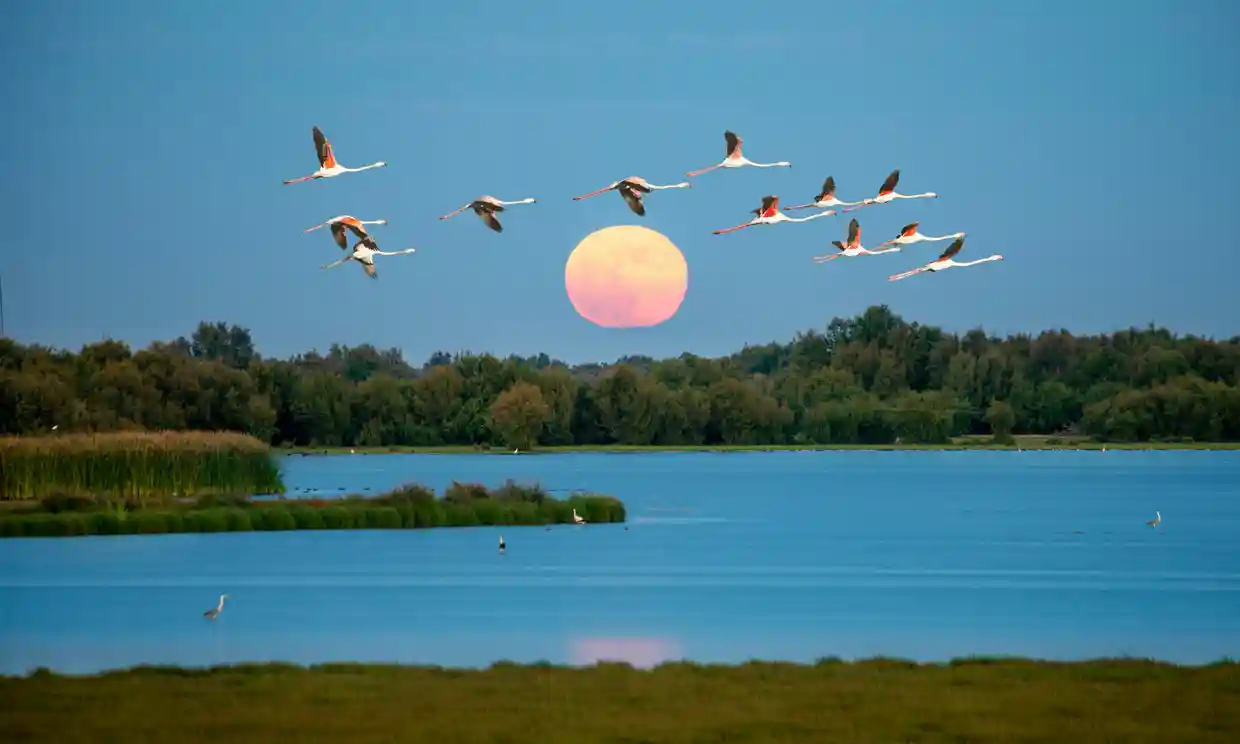
A historic win for Indigenous land rights in Ecuador, with Siekopai communities regaining ownership of 42,360 hectares of their ancestral Amazonian homeland, 80 years after they were displaced. It’s the first time an Indigenous community has received title to land within a nationally protected area. Mongabay
Poland’s new climate minister, Paulina Hennig-Kloska, has taken the first step to stemming biodiversity loss, with a six-month moratorium on logging in 10 of the country’s most ancient forests. She also announced plans to create a constitution for Białowieża National Park, a UNESCO heritage site on the border of Poland and Belarus. Guardian
The United States finished 2023 on a high note for environmental protection, with a 70% increase in criminal investigations of polluting industrial sites and a renewed push to limit logging and conserve old growth forests. This will include the first nationwide amendment to US Forest Service management plans in the agency’s 118-year history. Euro News
China’s stricter regulations on chemical particulates that can be easily inhaled and passed into the human bloodstream have shown remarkable success in clearing up its skies. Concentrations of PM2.5, a major cause of heart and respiratory diseases, has fallen across most major cities, especially Beijing. Bloomberg
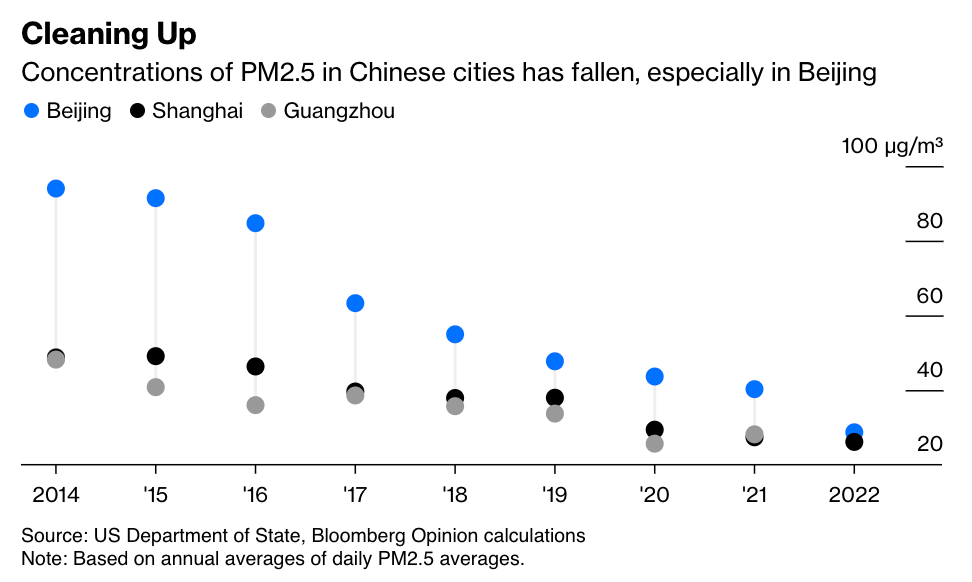
The Sucúa Municipal Conservation and Sustainable Use Area in Ecuador will protect 17,741 hectares of threatened Amazonian ecosystems in Morona Santiago, preserving water sources for over 30,000 people and critical habitat for the endangered Humboldt’s Woolly Monkey. Andes Amazon Fund
Good news for animal rights. A new law in South Korea will make the sale of dog meat illegal from 2027, ending centuries of the practice, and after a multi-year campaign by animal rights organisations, Chile has banned cosmetic testing on animals, including the manufacturing, import, and marketing of cosmetics tested on animals elsewhere in the world.
The ulūlu, also known as Hawaii’s millerbird, is no longer critically endangered thanks to efforts by conservationists to reintroduce the bird to its restored island of Laysan; and in Chad, an ambitious recovery project has reversed the fate of the mythical-looking scimitar-horned oryx after it was declared extinct in the wild in 2000.
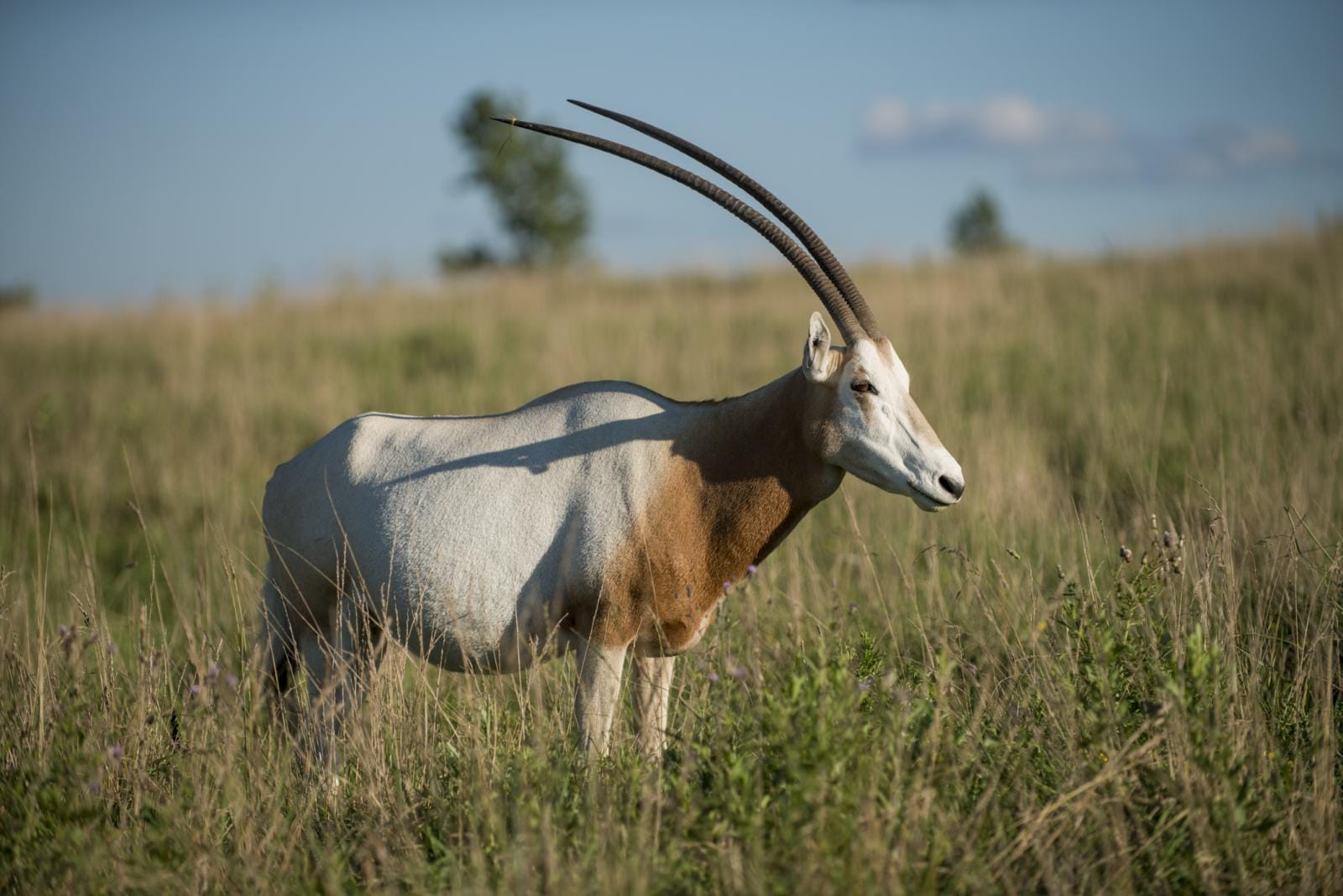
Conservationists in British Columbia have bought the hunting rights in the Great Bear Rainforest to protect wildlife. The United States is bringing back nature's best firefighters: beavers. In 2023, deforestation in Brazil's Amazon fell by nearly 50%, resulting in the lowest deforestation rate in the last five years. An international court has ruled in favour of the Indigenous Q’eqchi’ people in Guatemala, to stop mining on their lands. How a conservation group in Ecuador protects 10% of the world's bird species. The first-ever US Ocean Justice Strategy will advance environmental justice for communities that rely on the ocean and the Great Lakes. How one of Uganda’s smallest national parks became a powerful model for the future of sustainable conservation. New York has become the tenth US state to ban wildlife killing contests, and its Birds and Bees Protection Act just came into effect, prohibiting neonicotinoid pesticides. The 12 tribes of the Confederated Tribes of the Colville in Washington State are restoring the lands of their ancestors. Why 2023 was a year of real progress in environmental protection and scientific cooperation.
